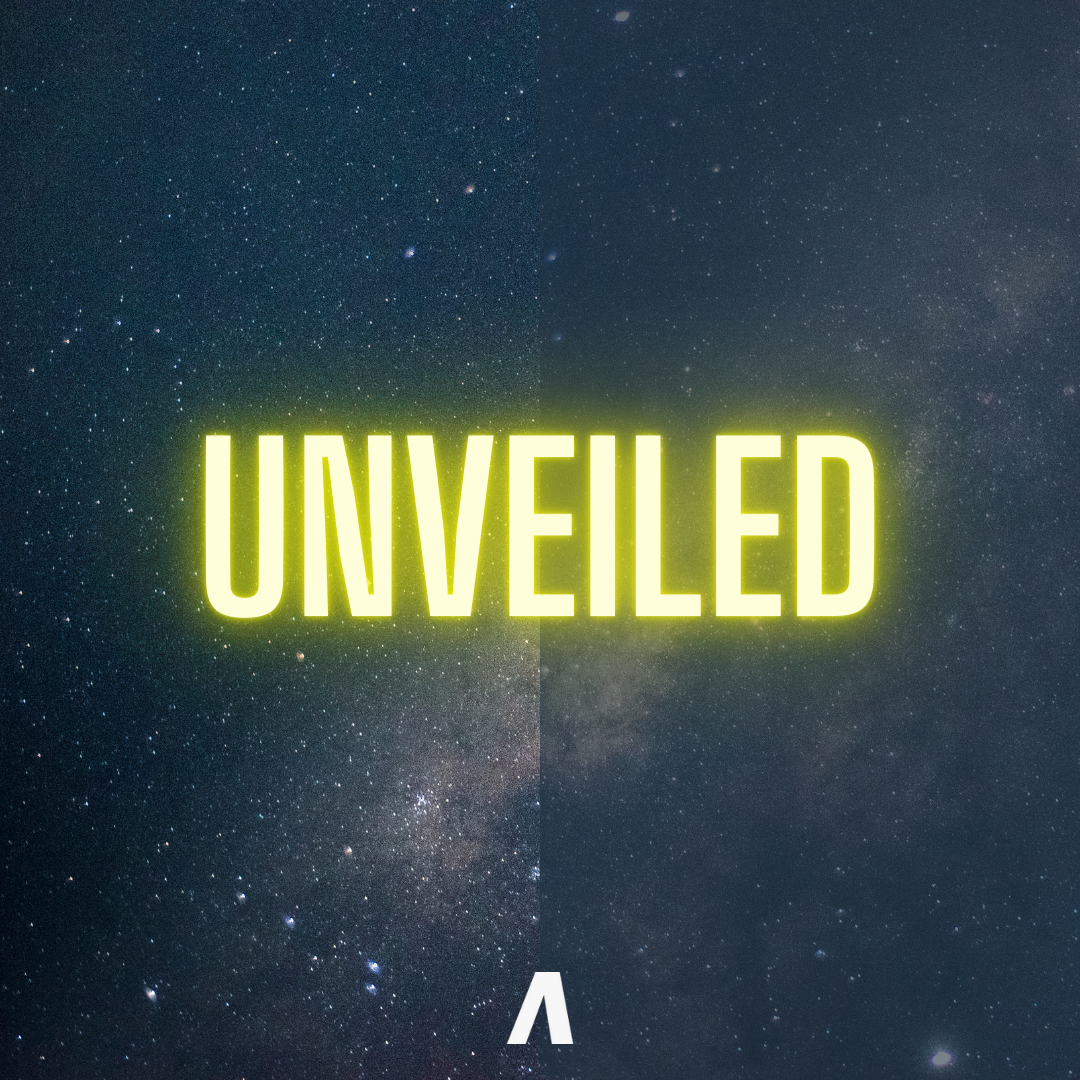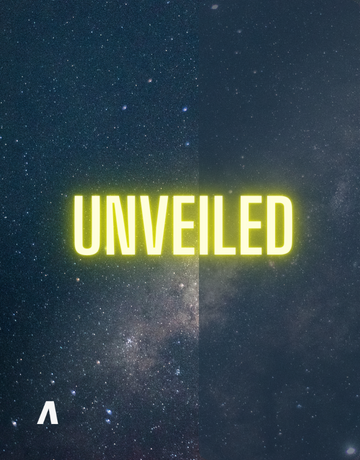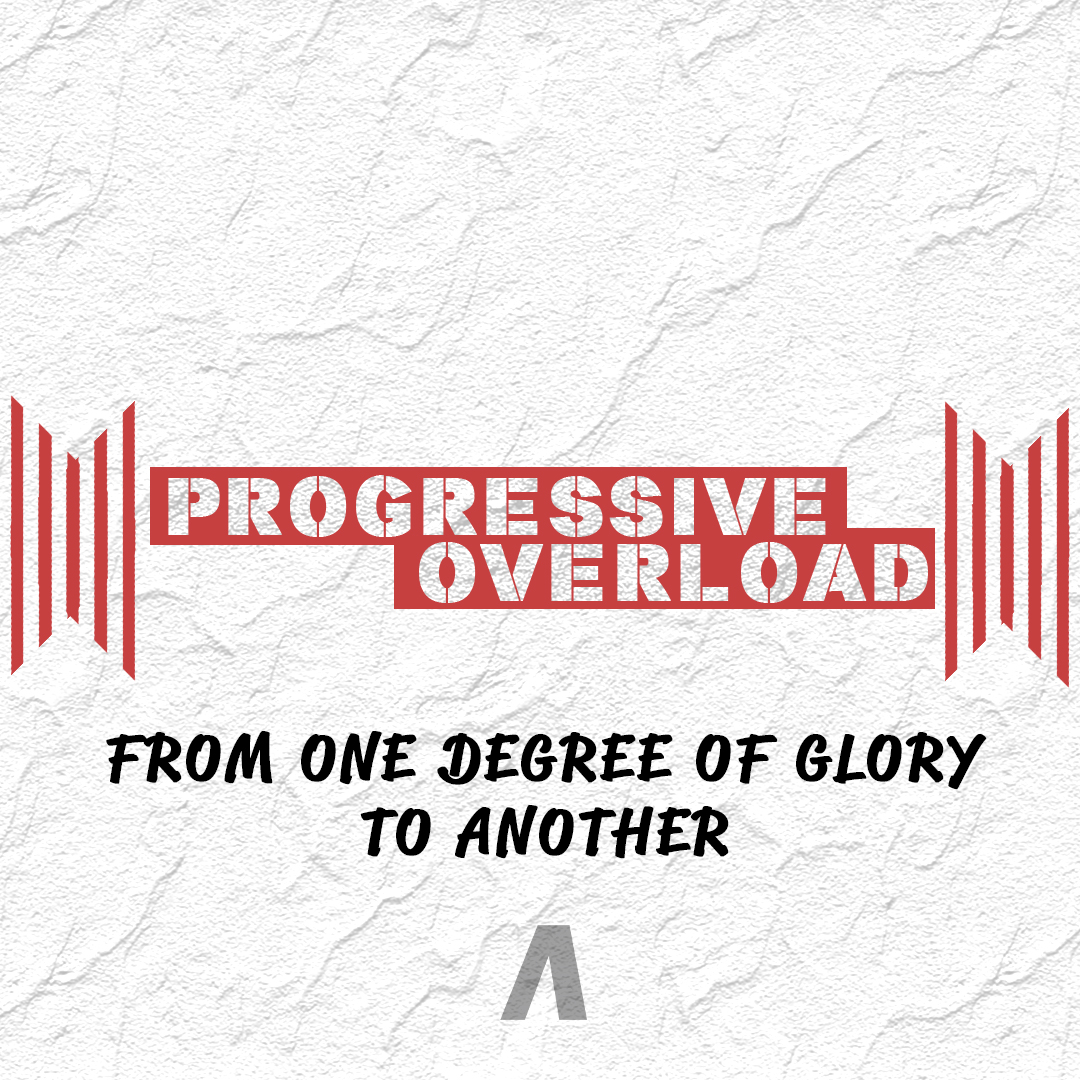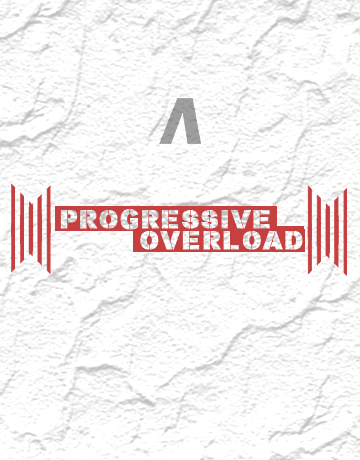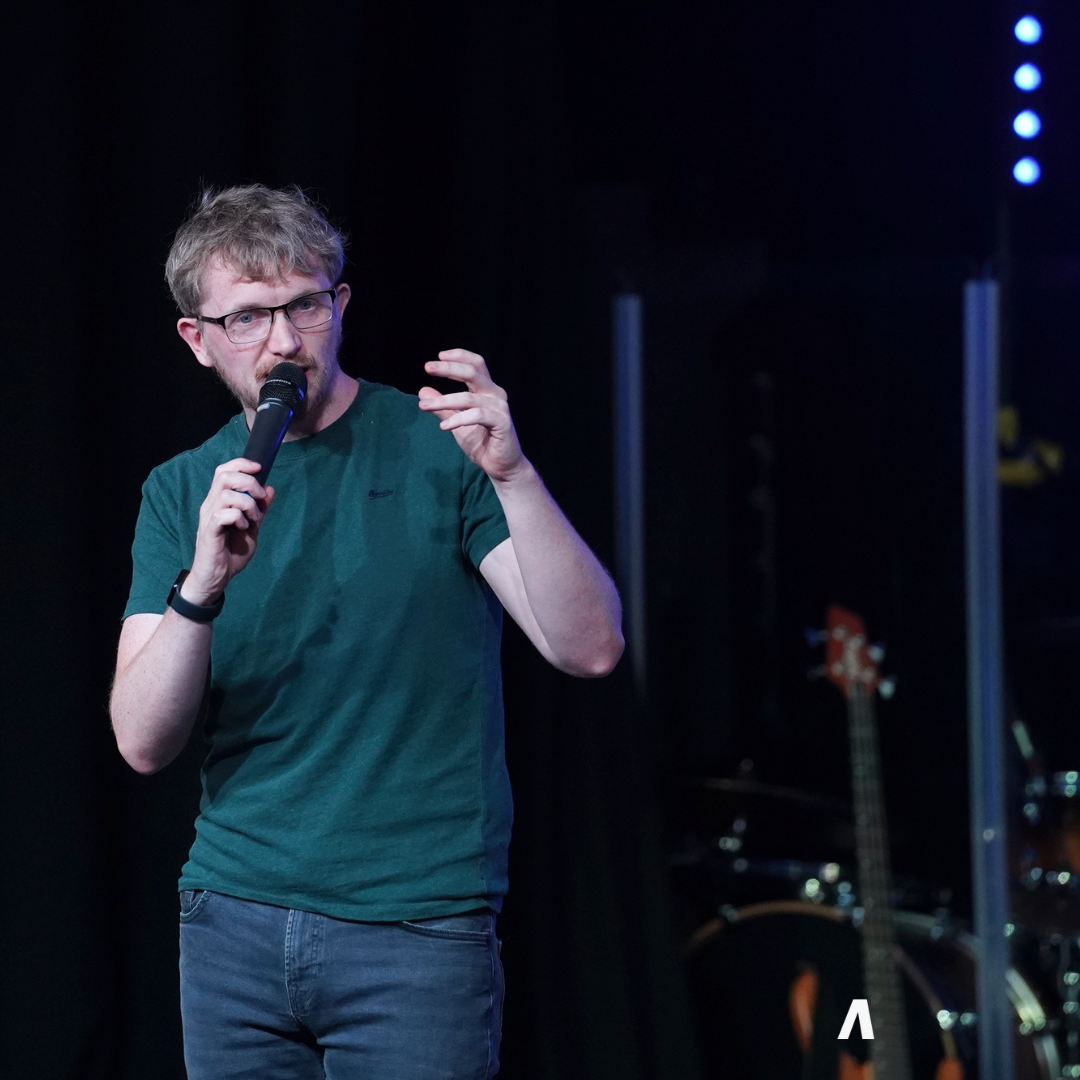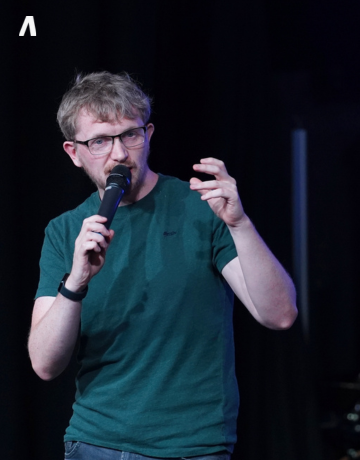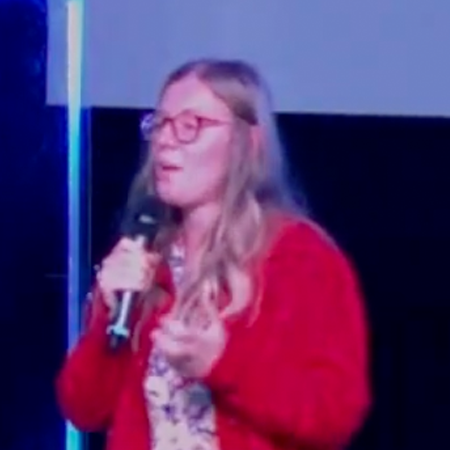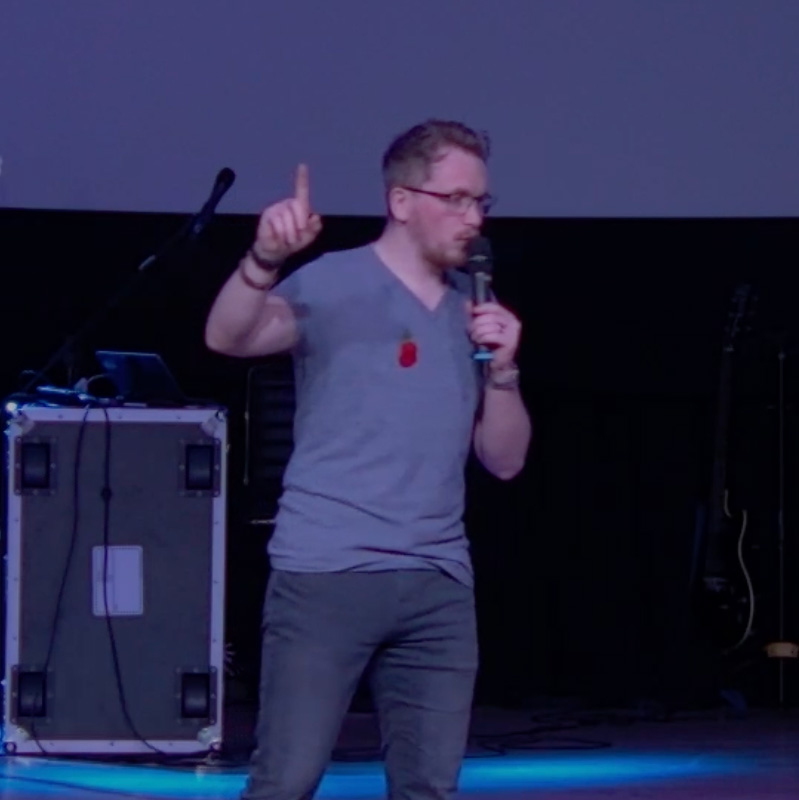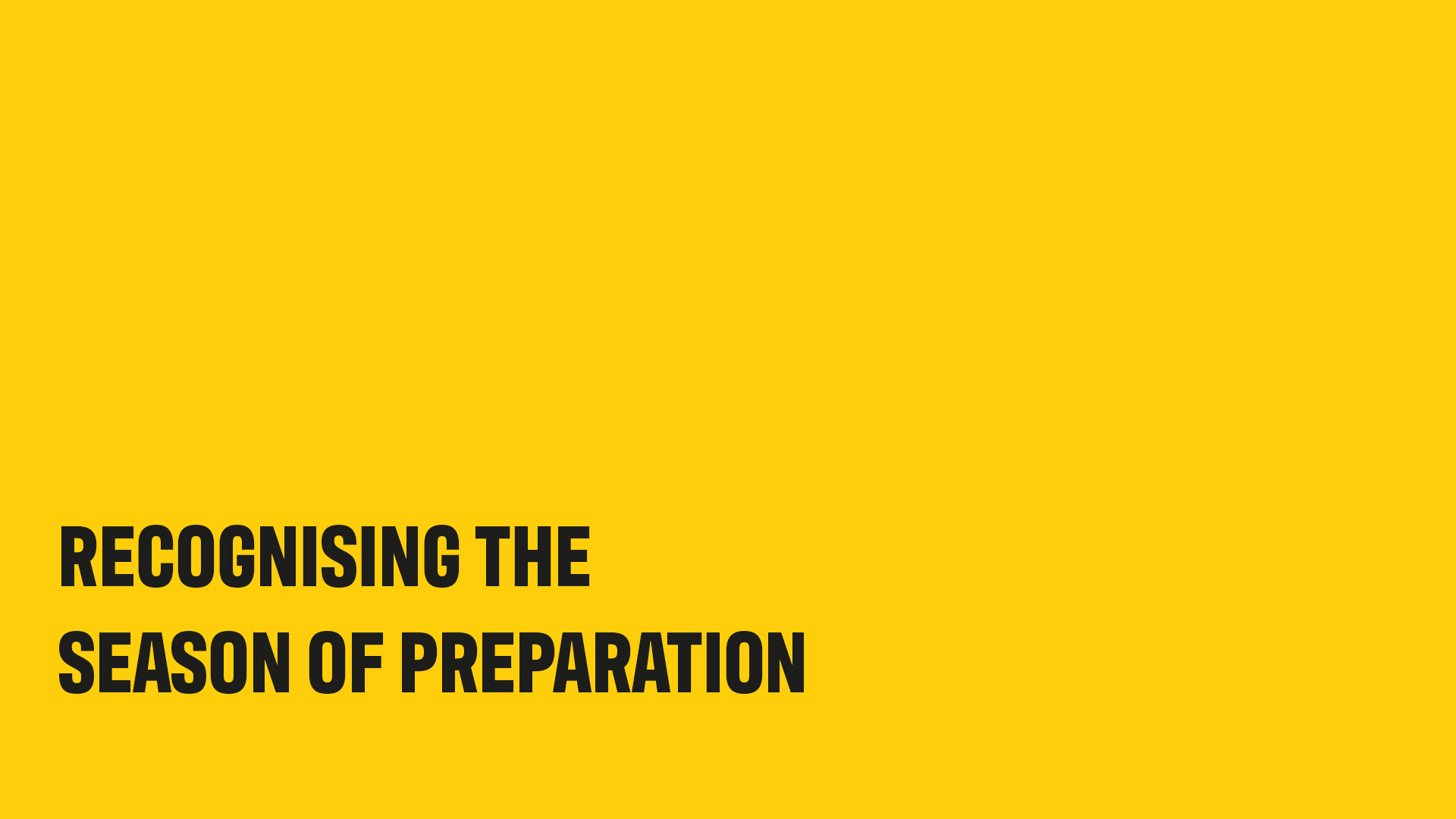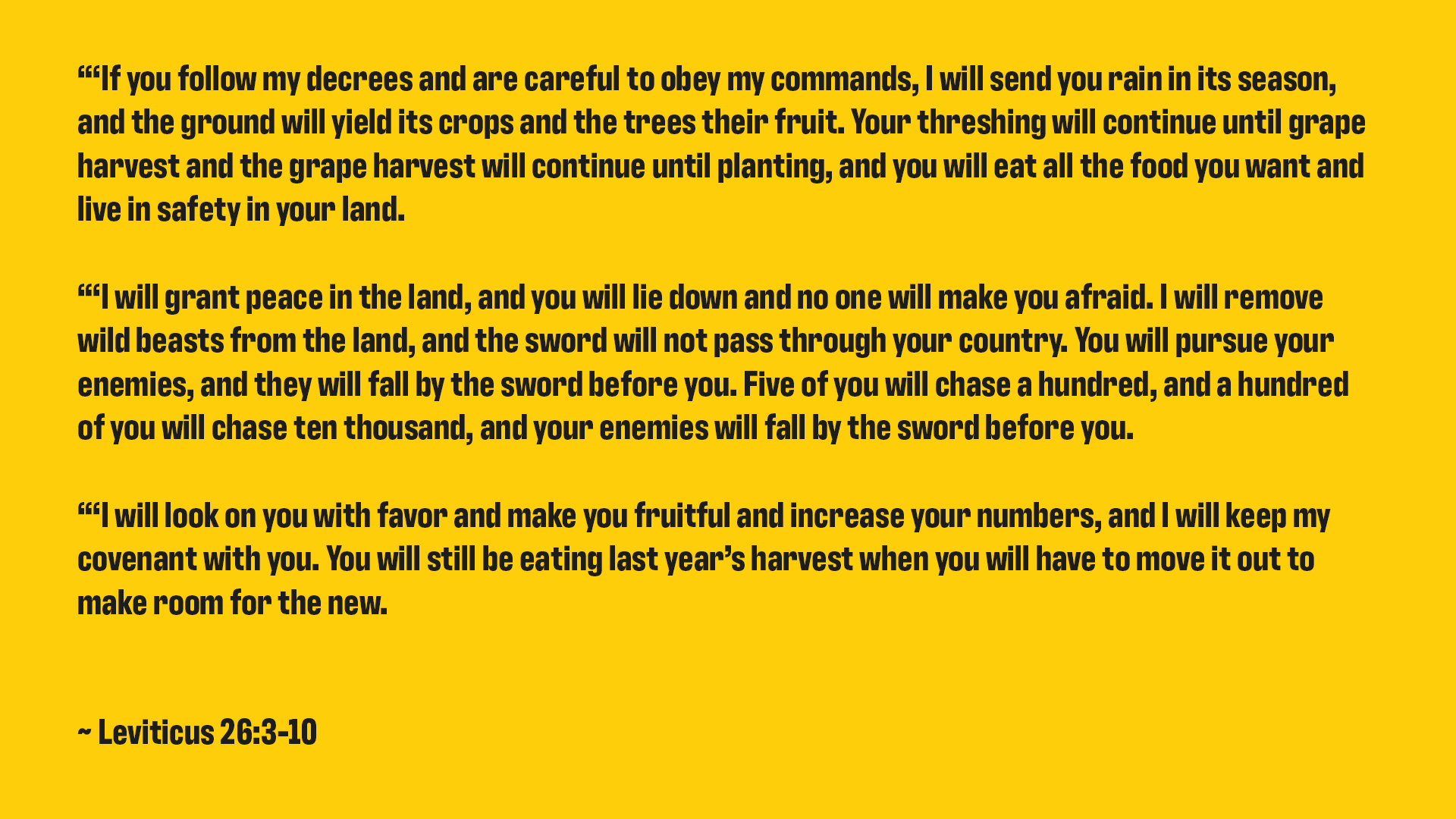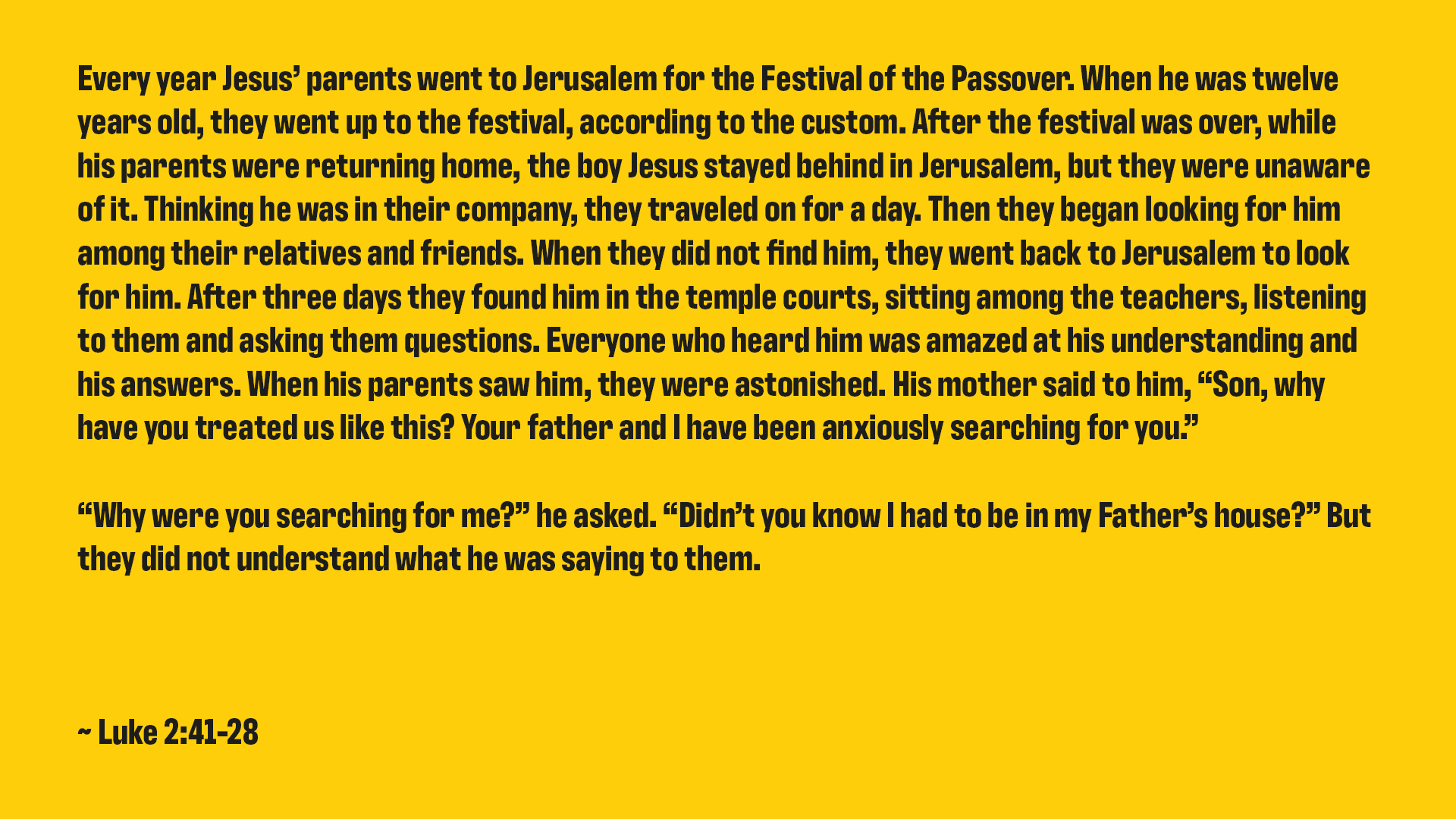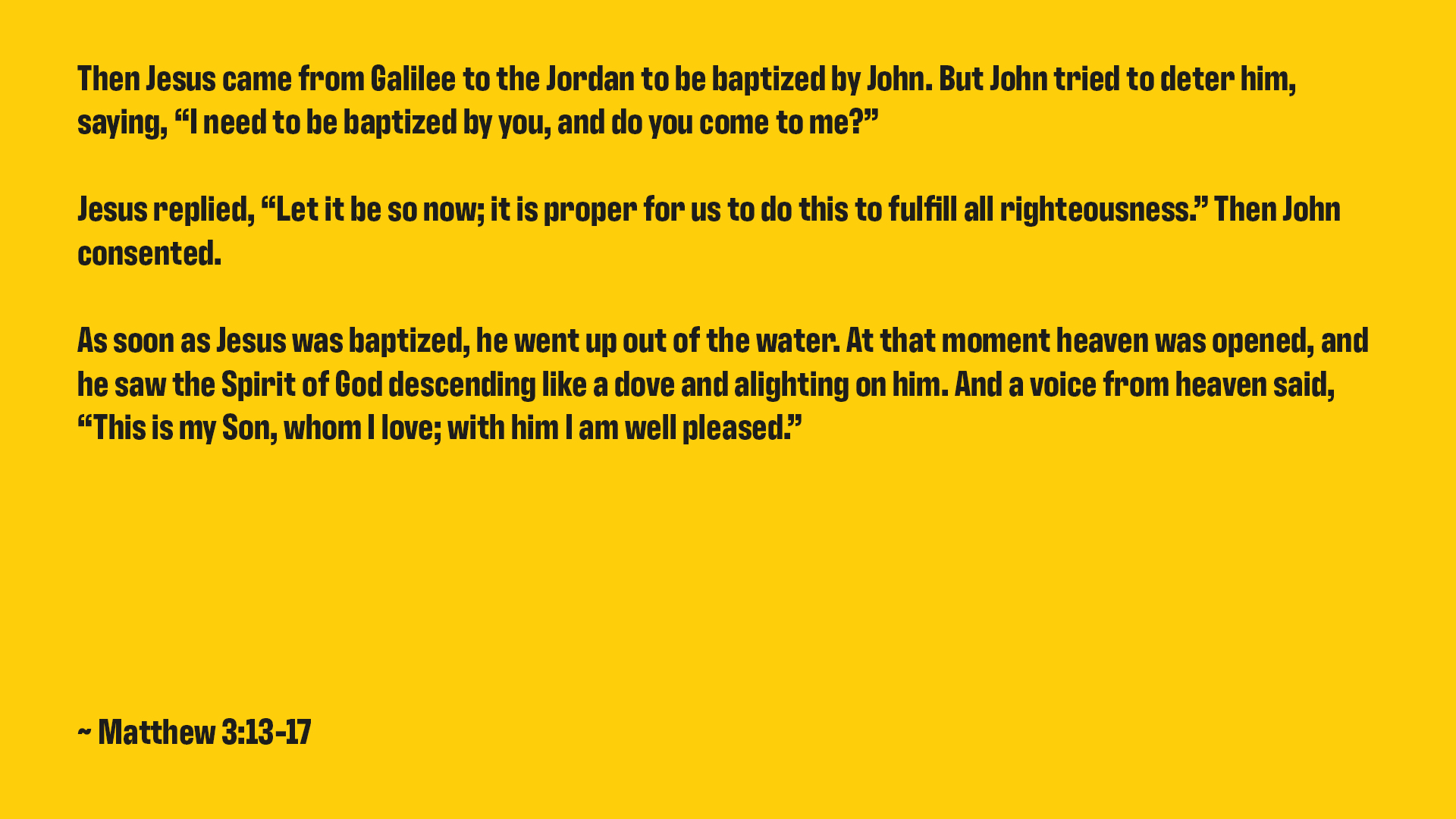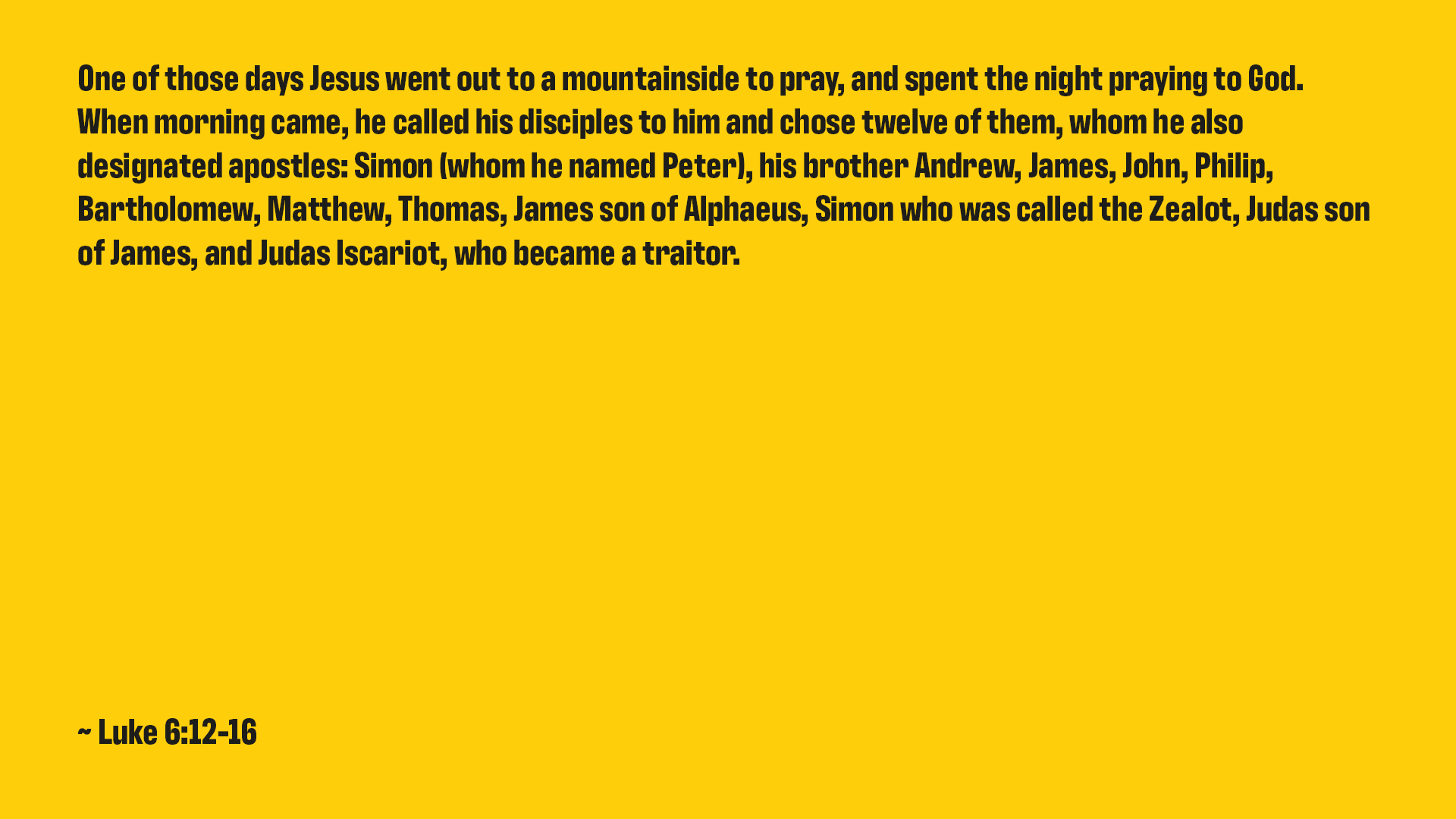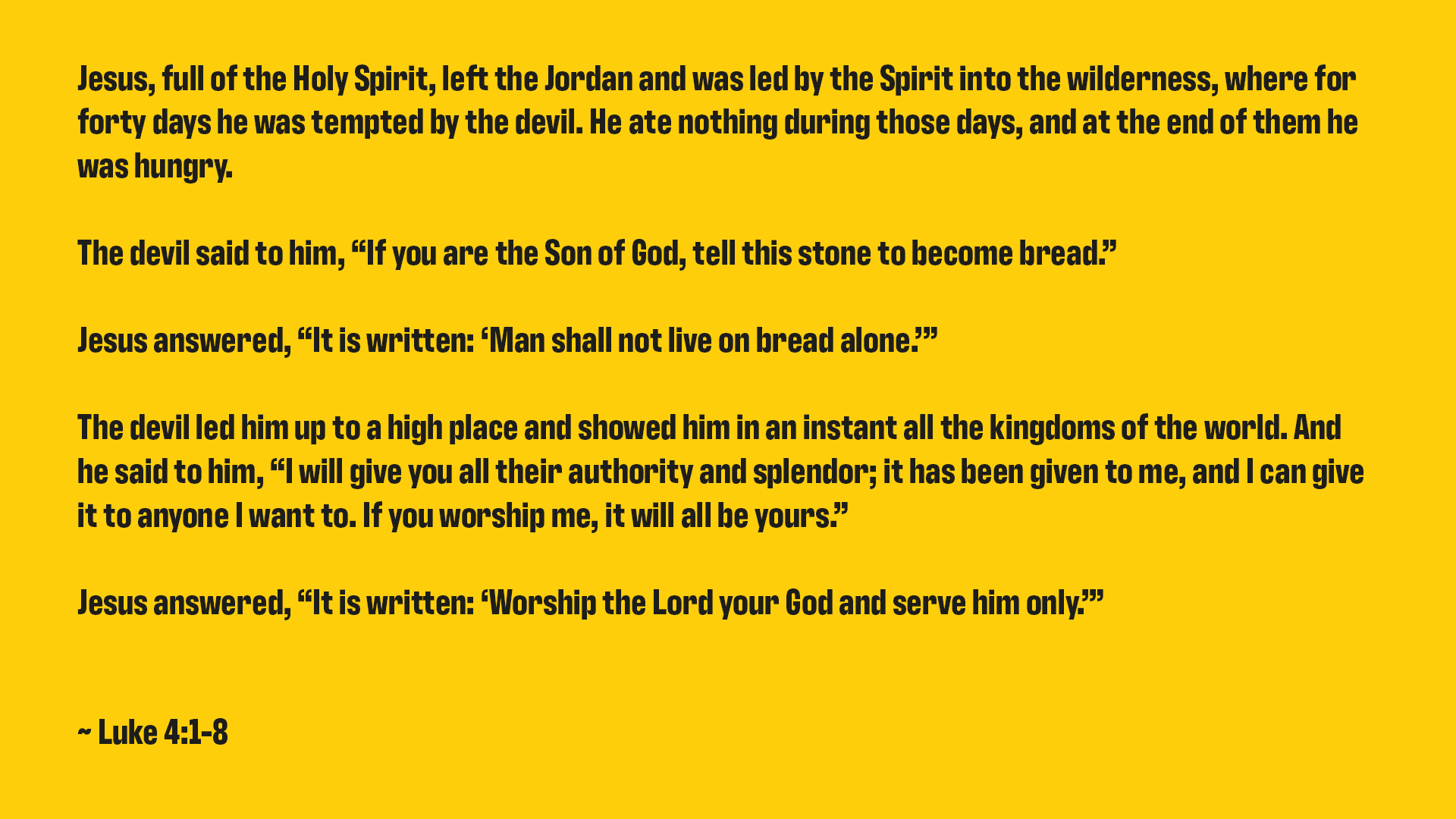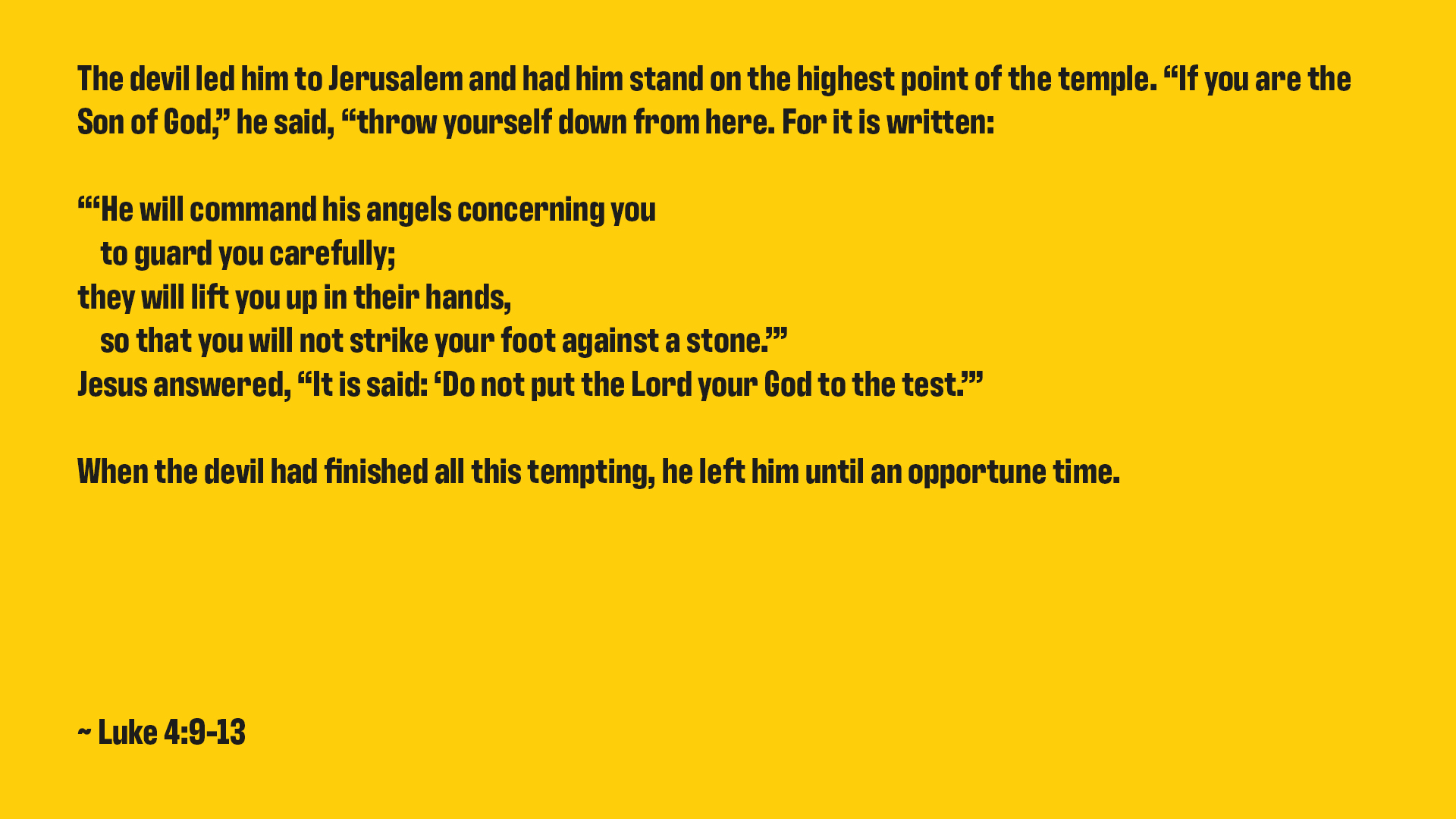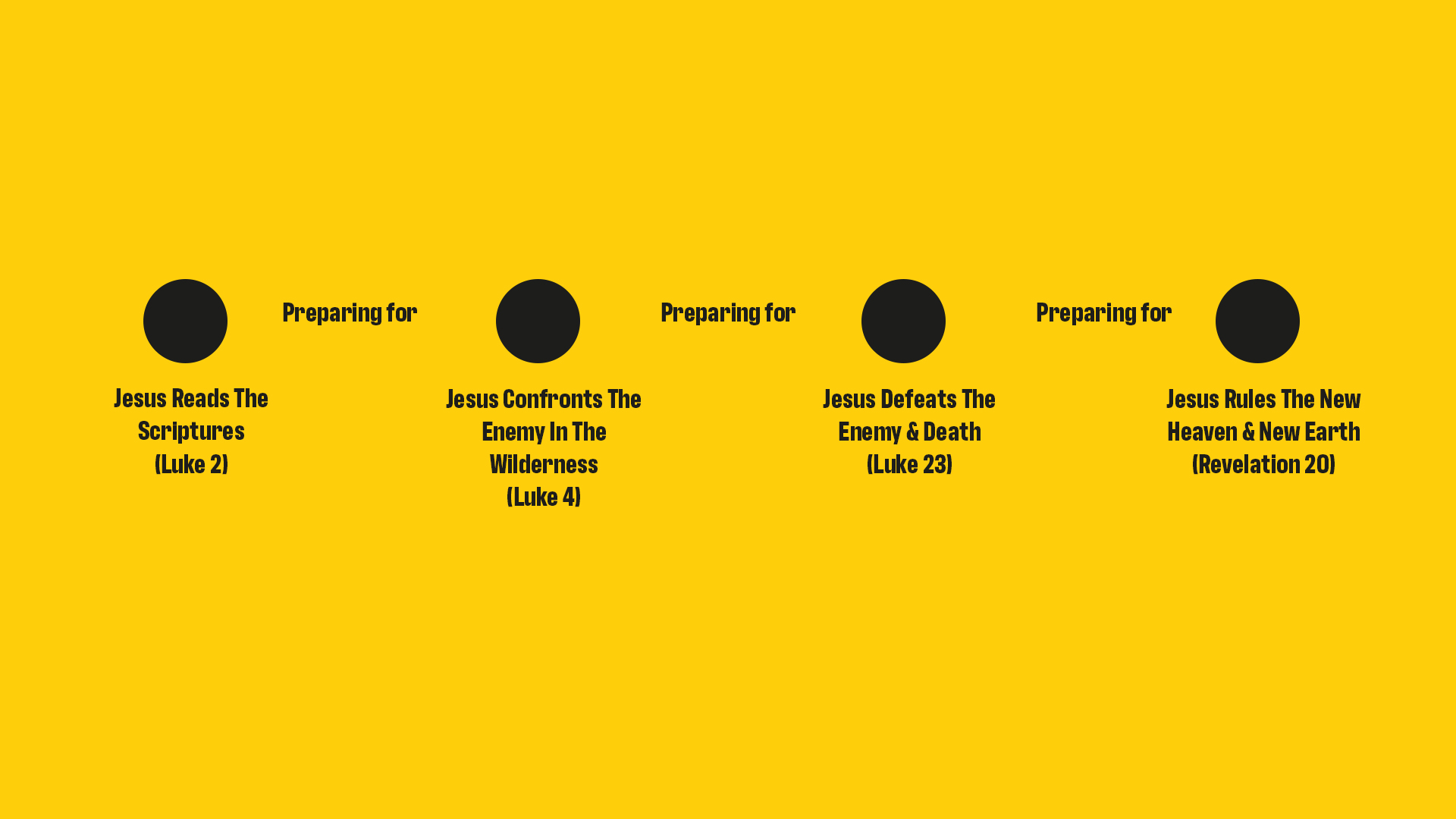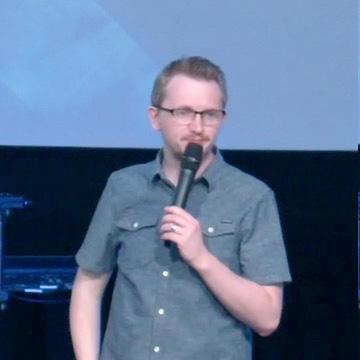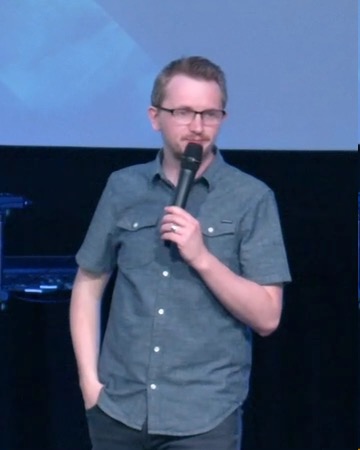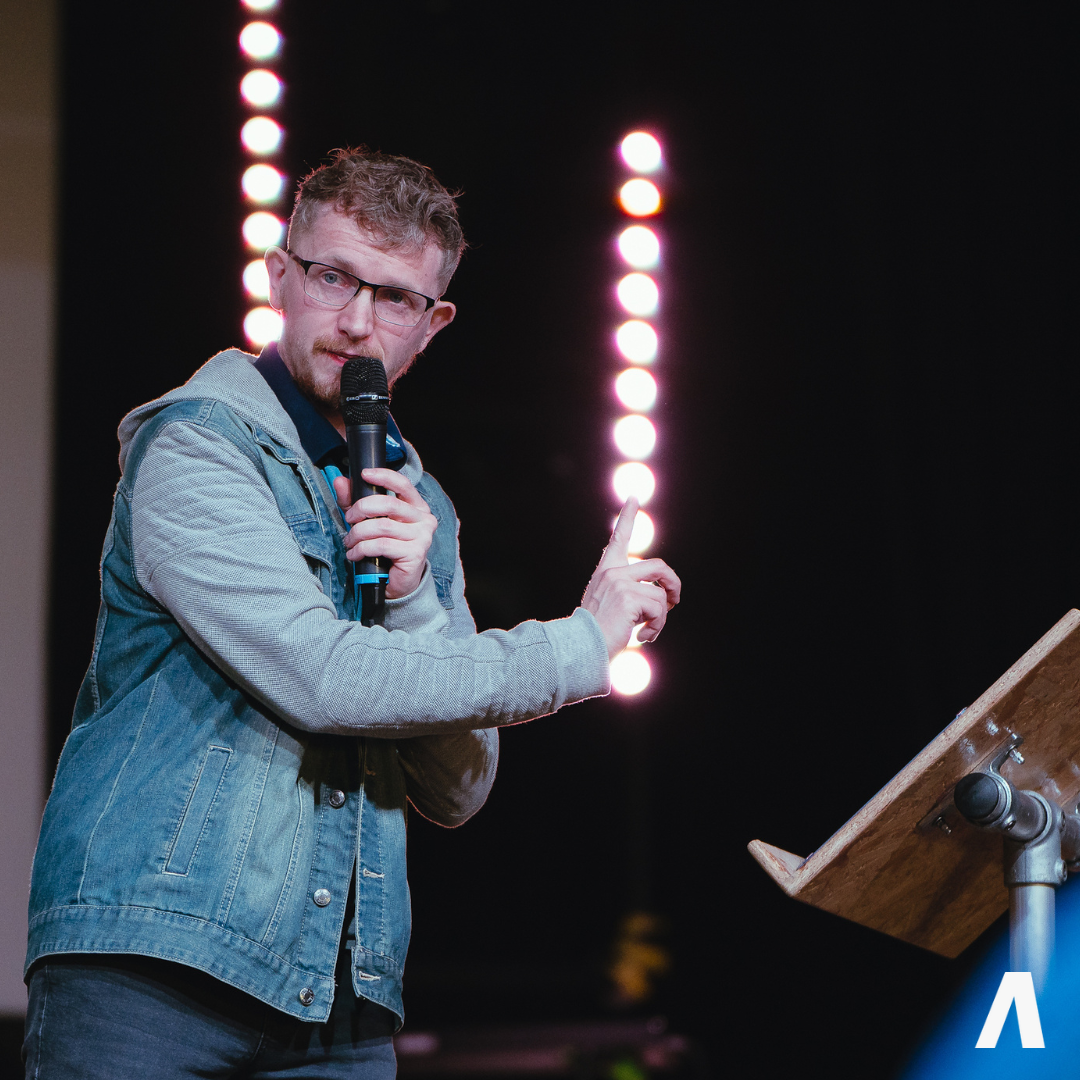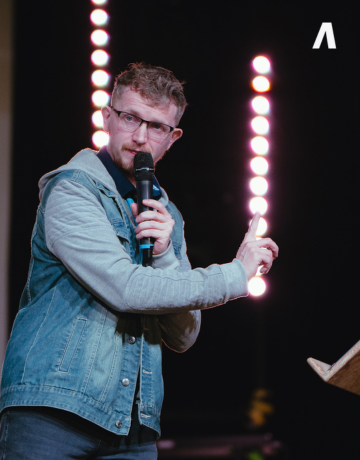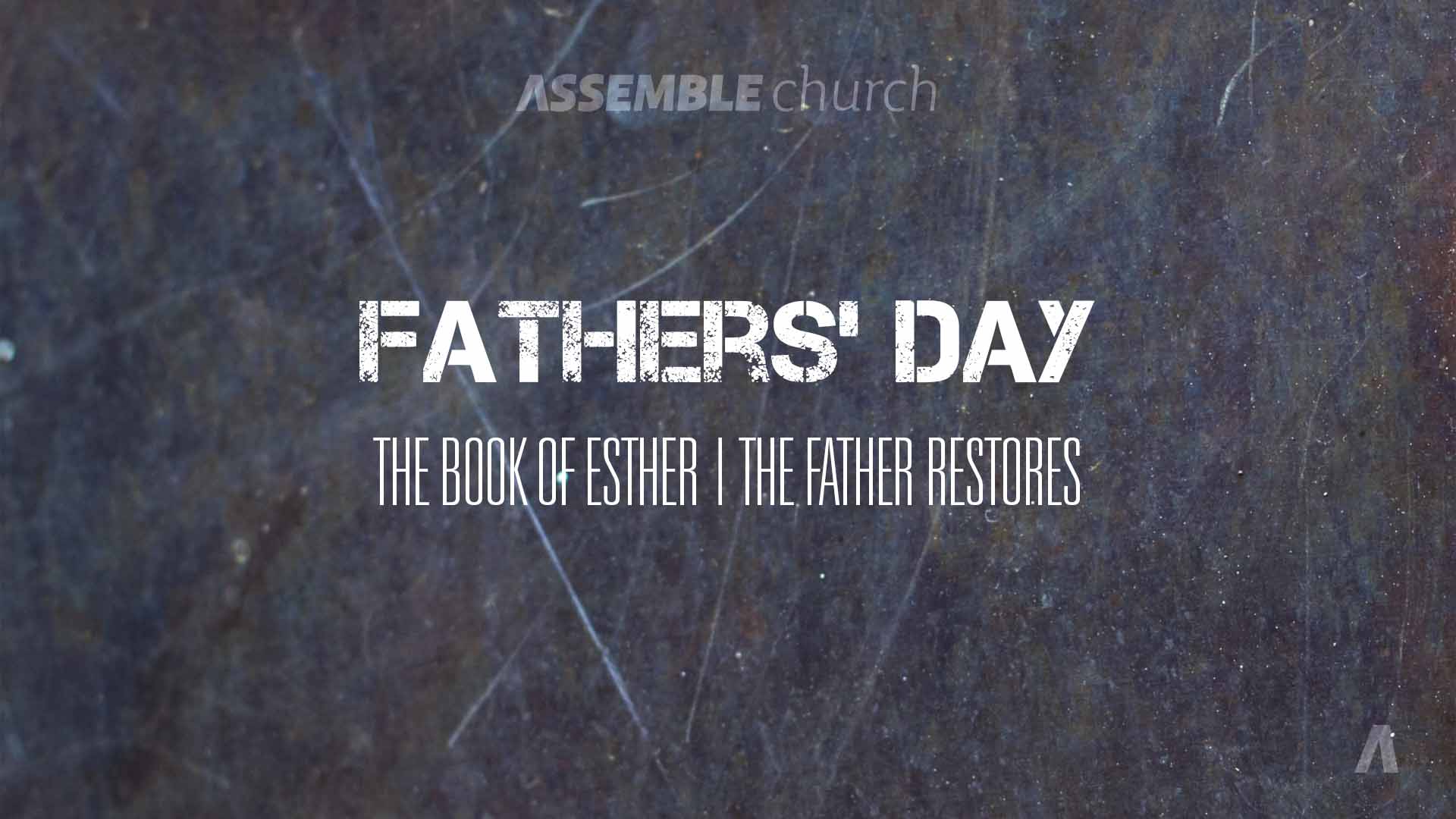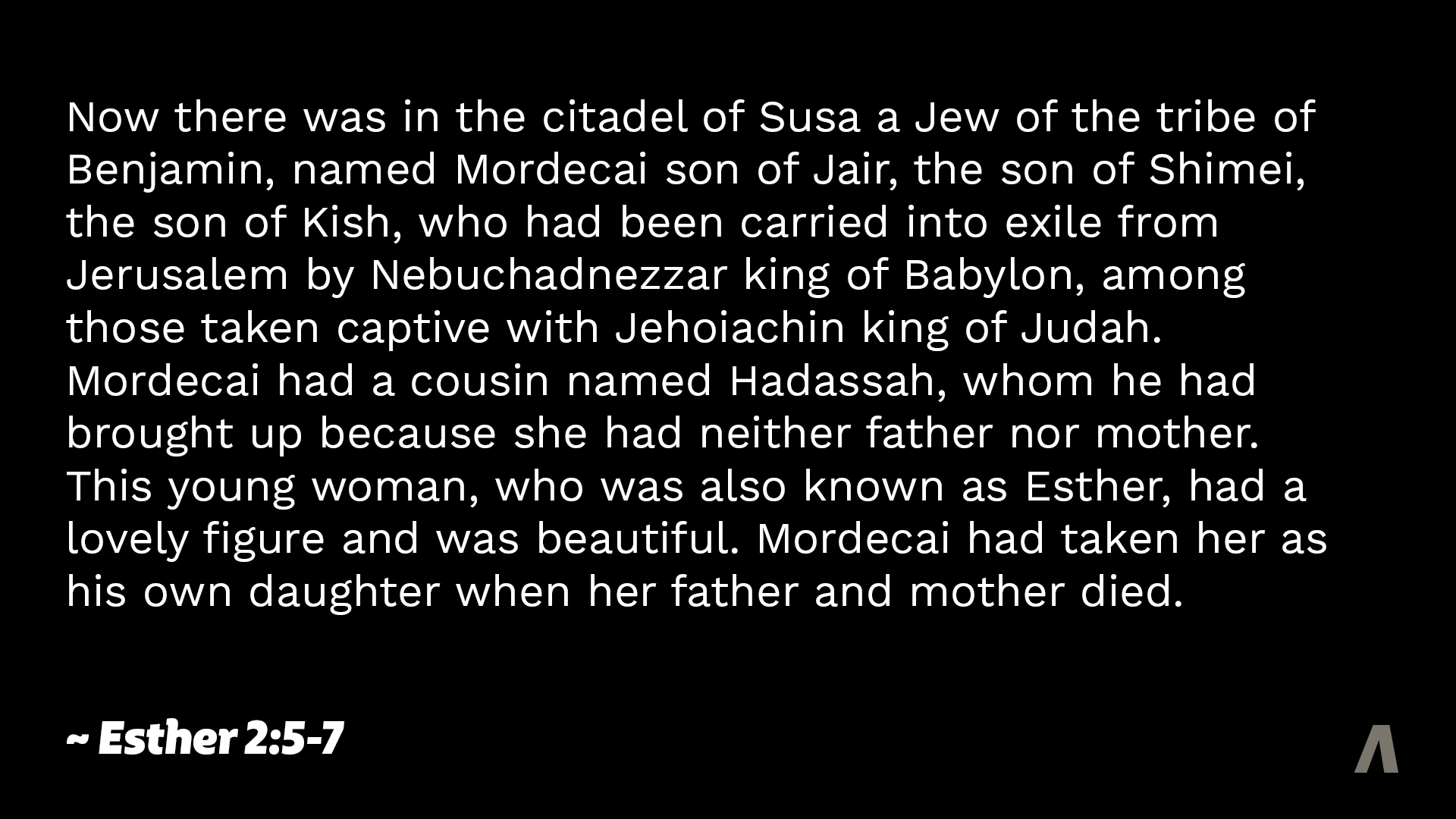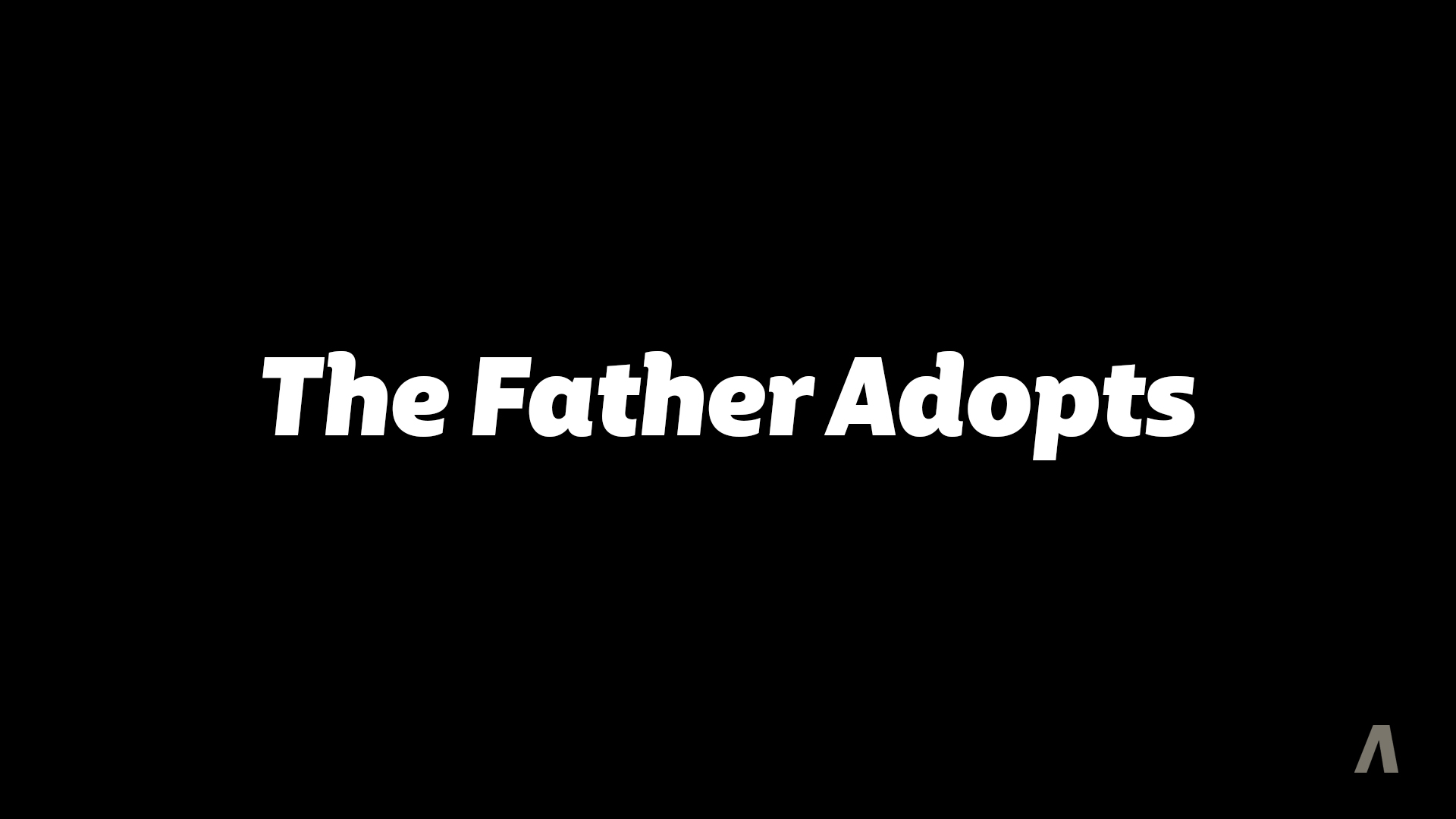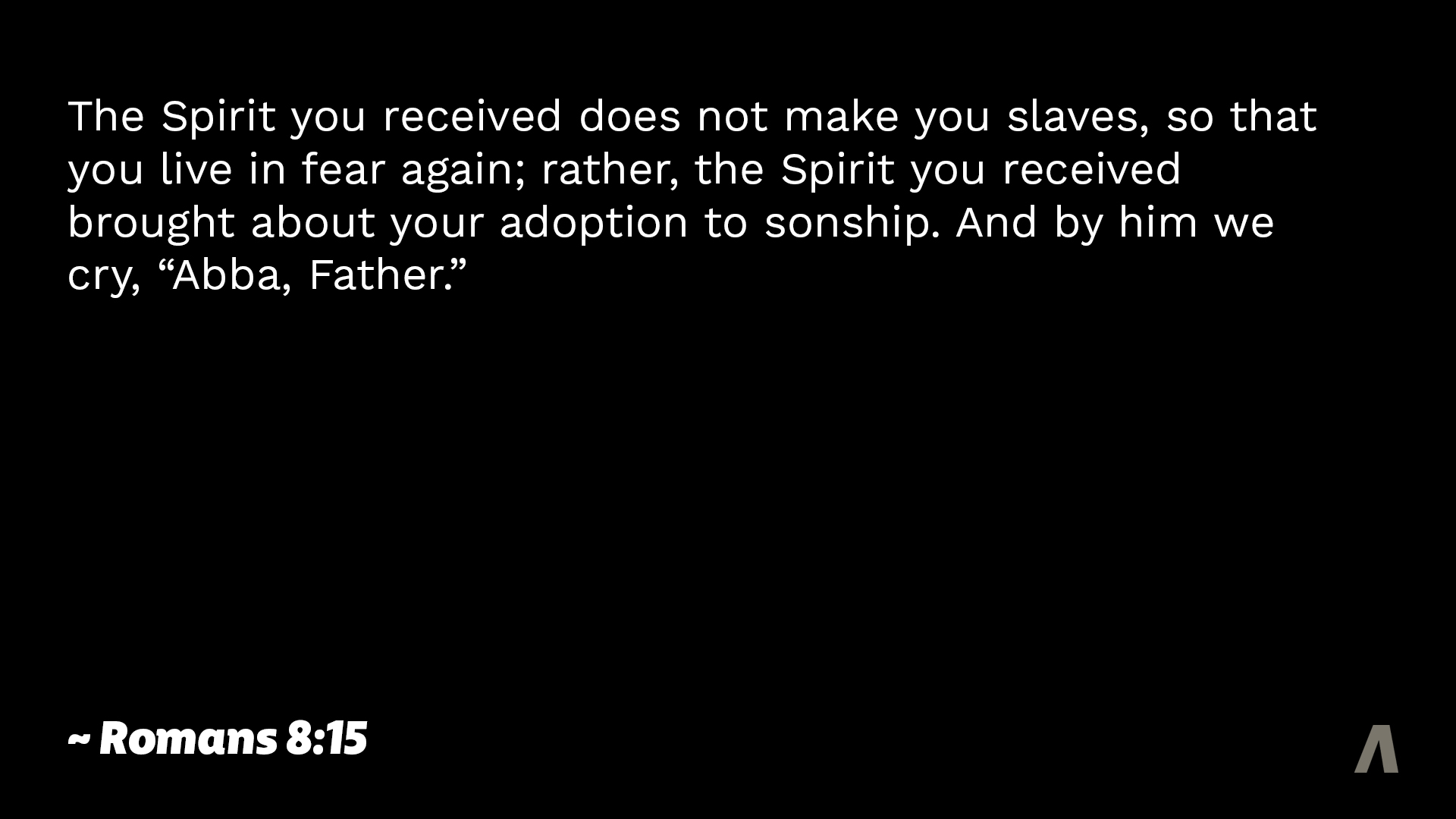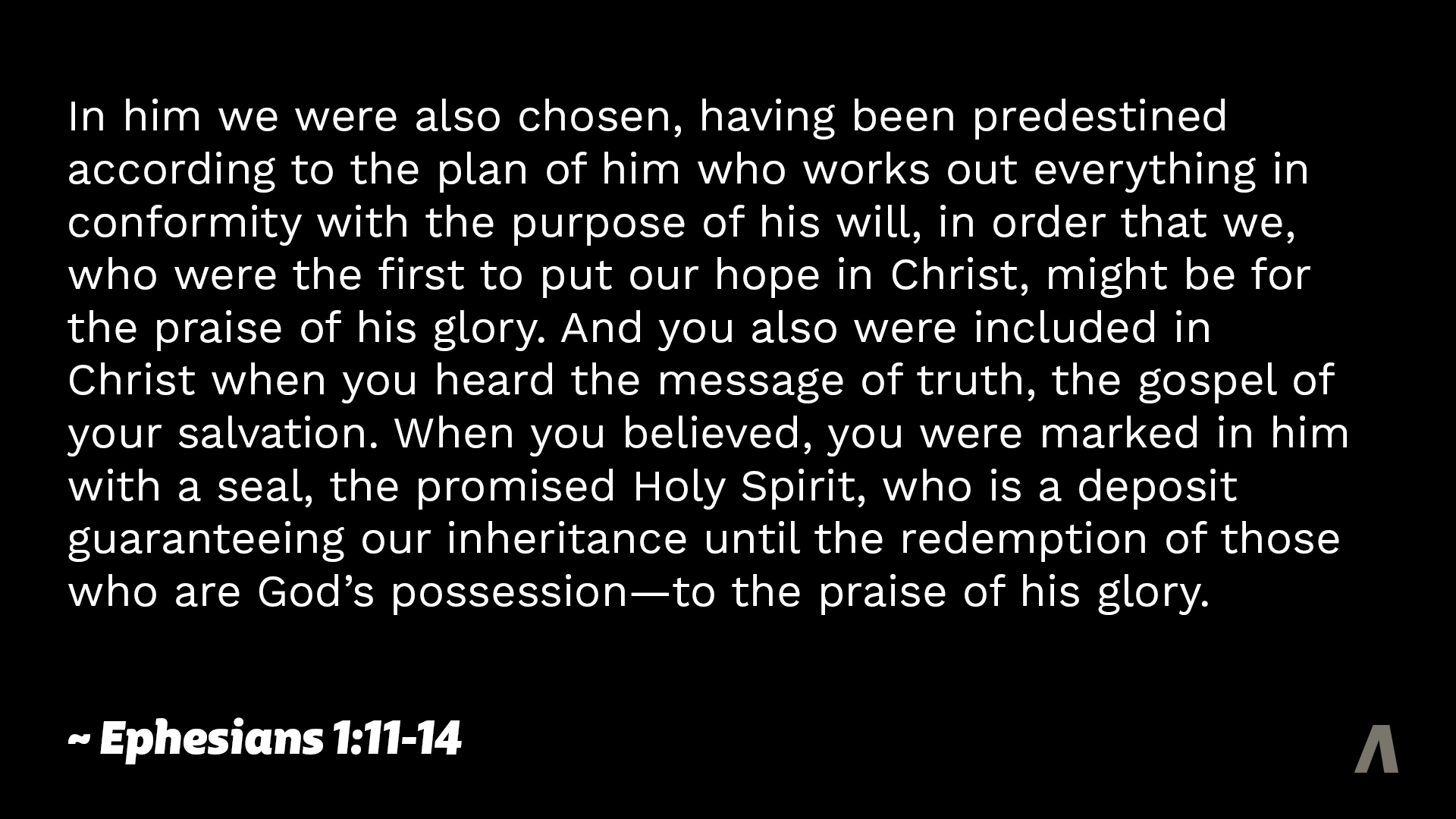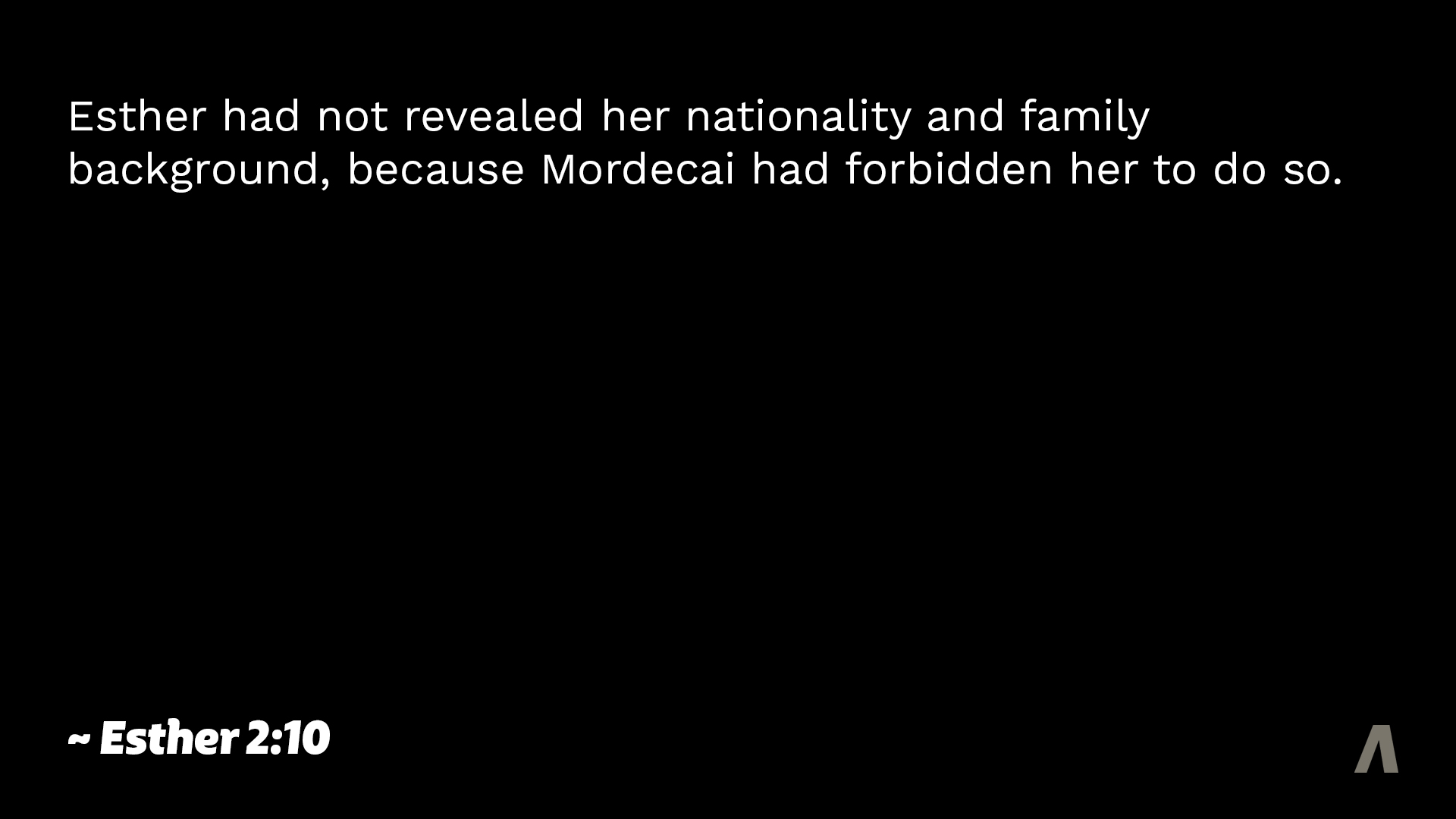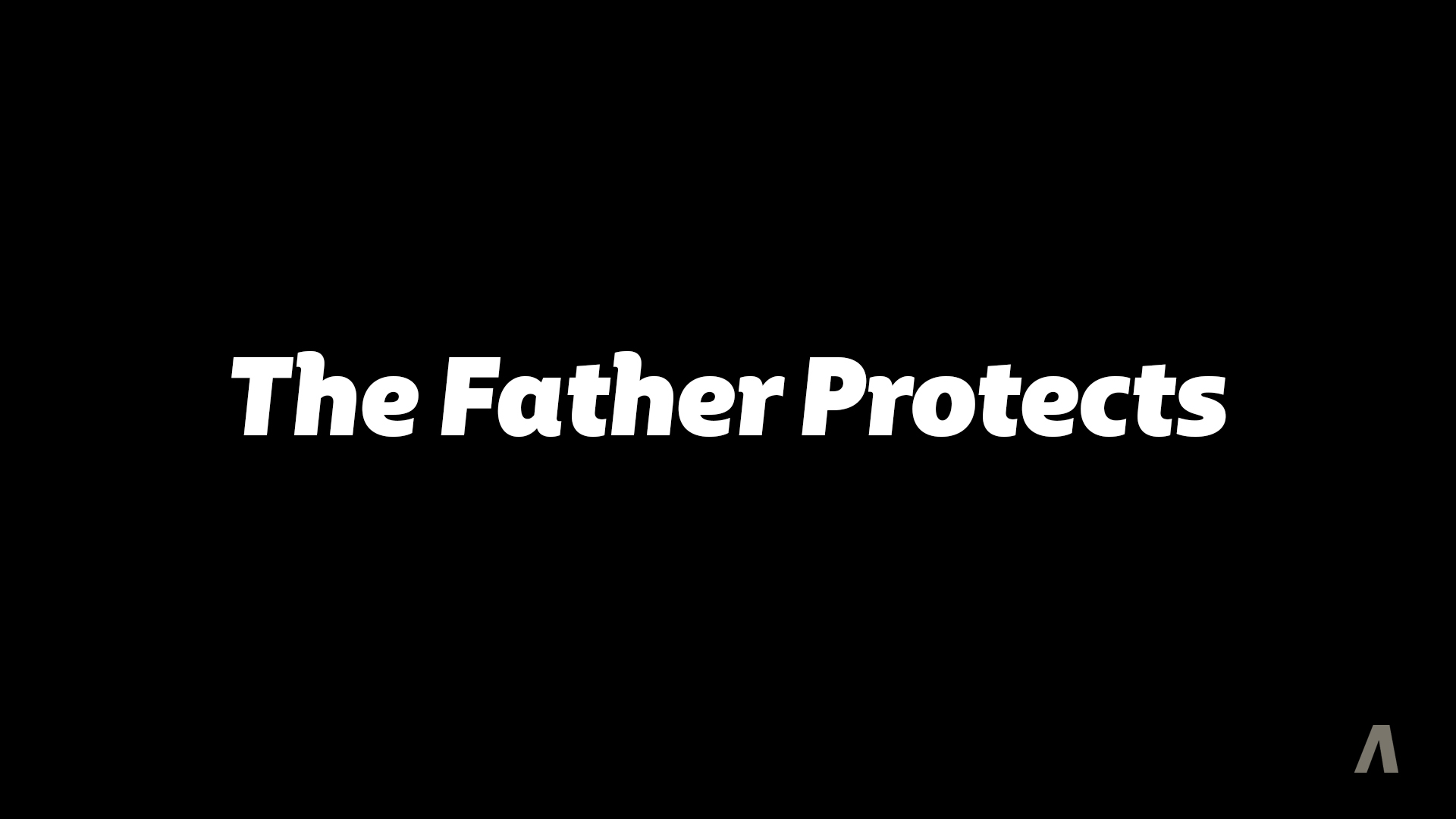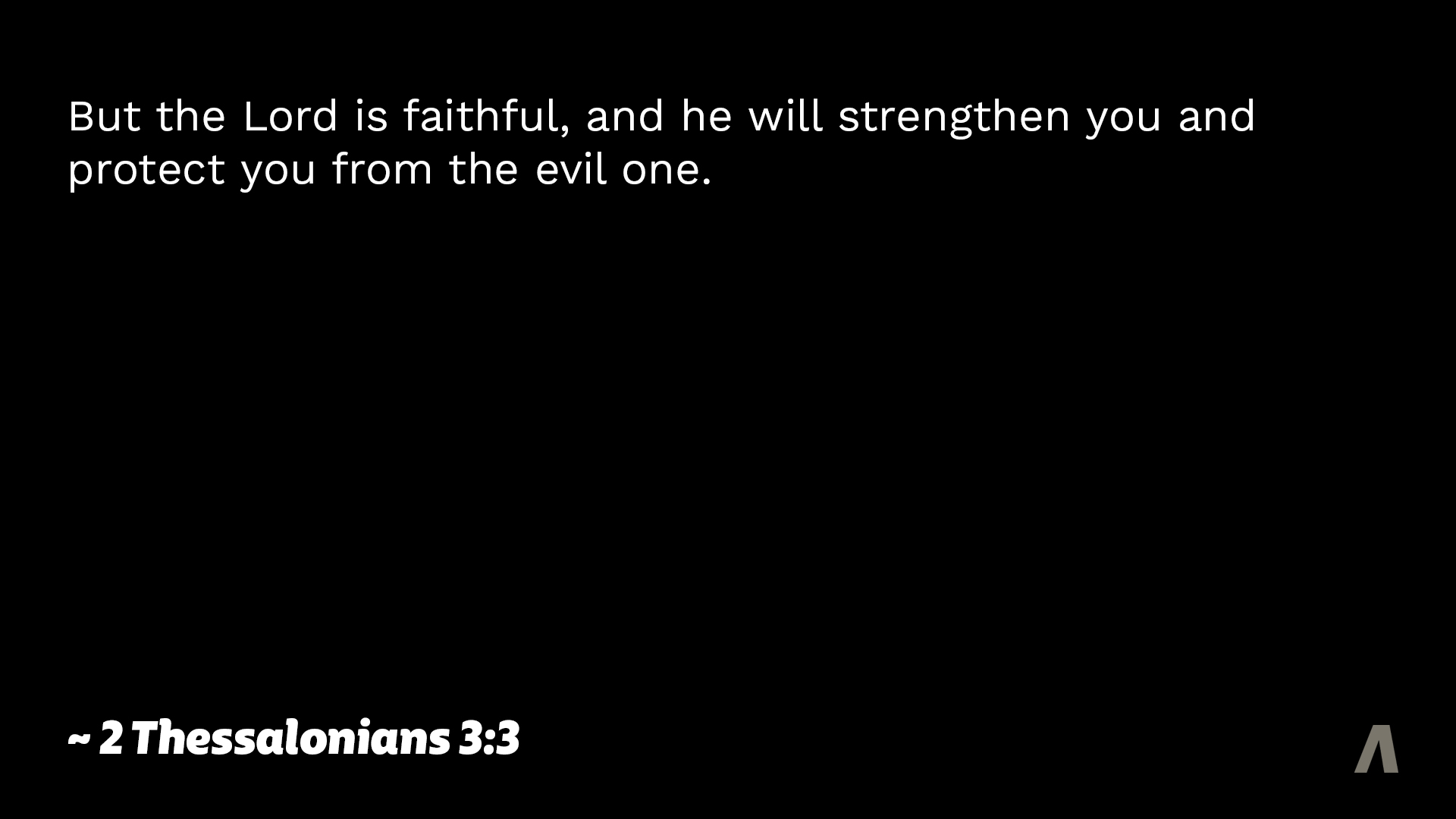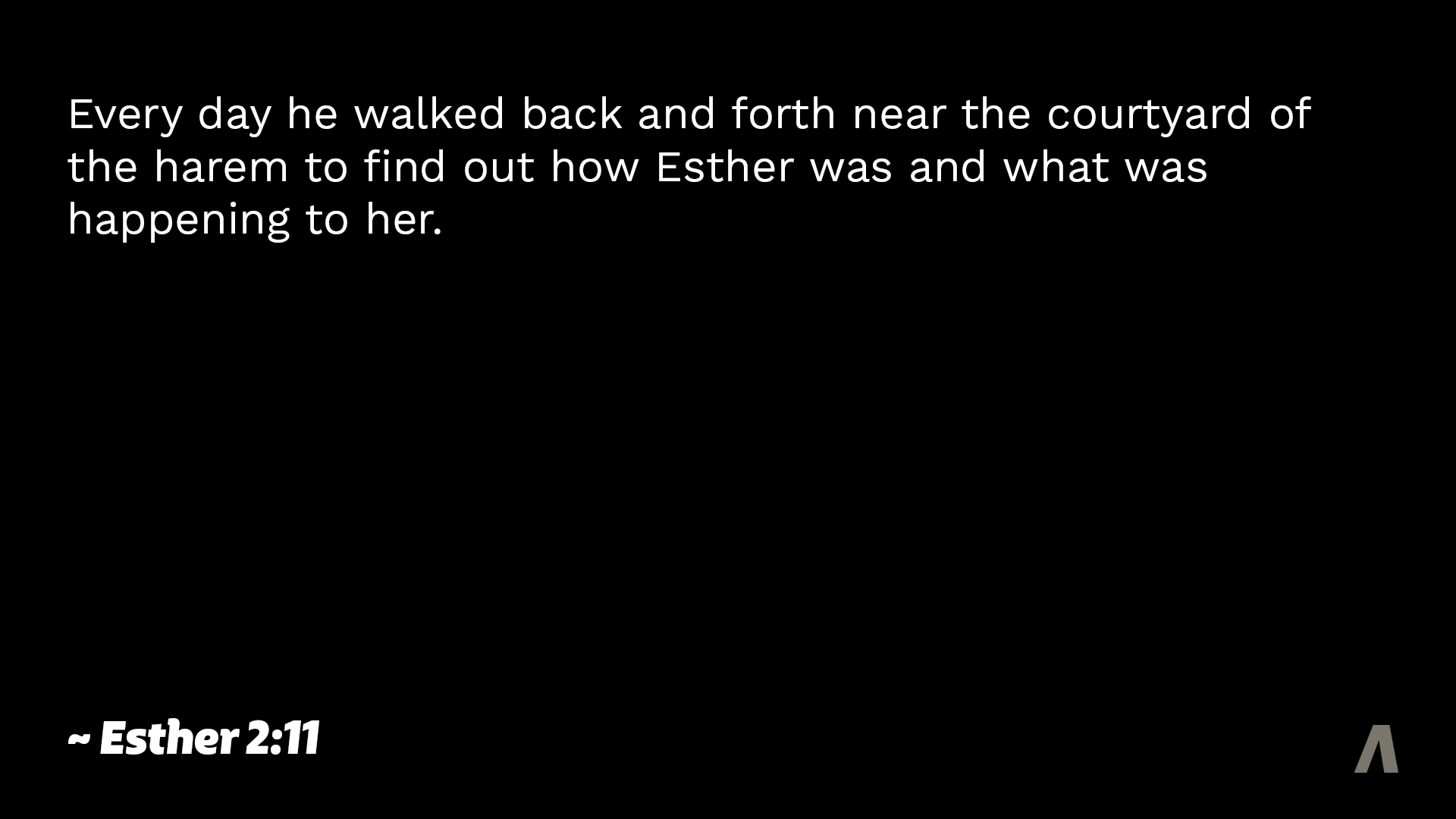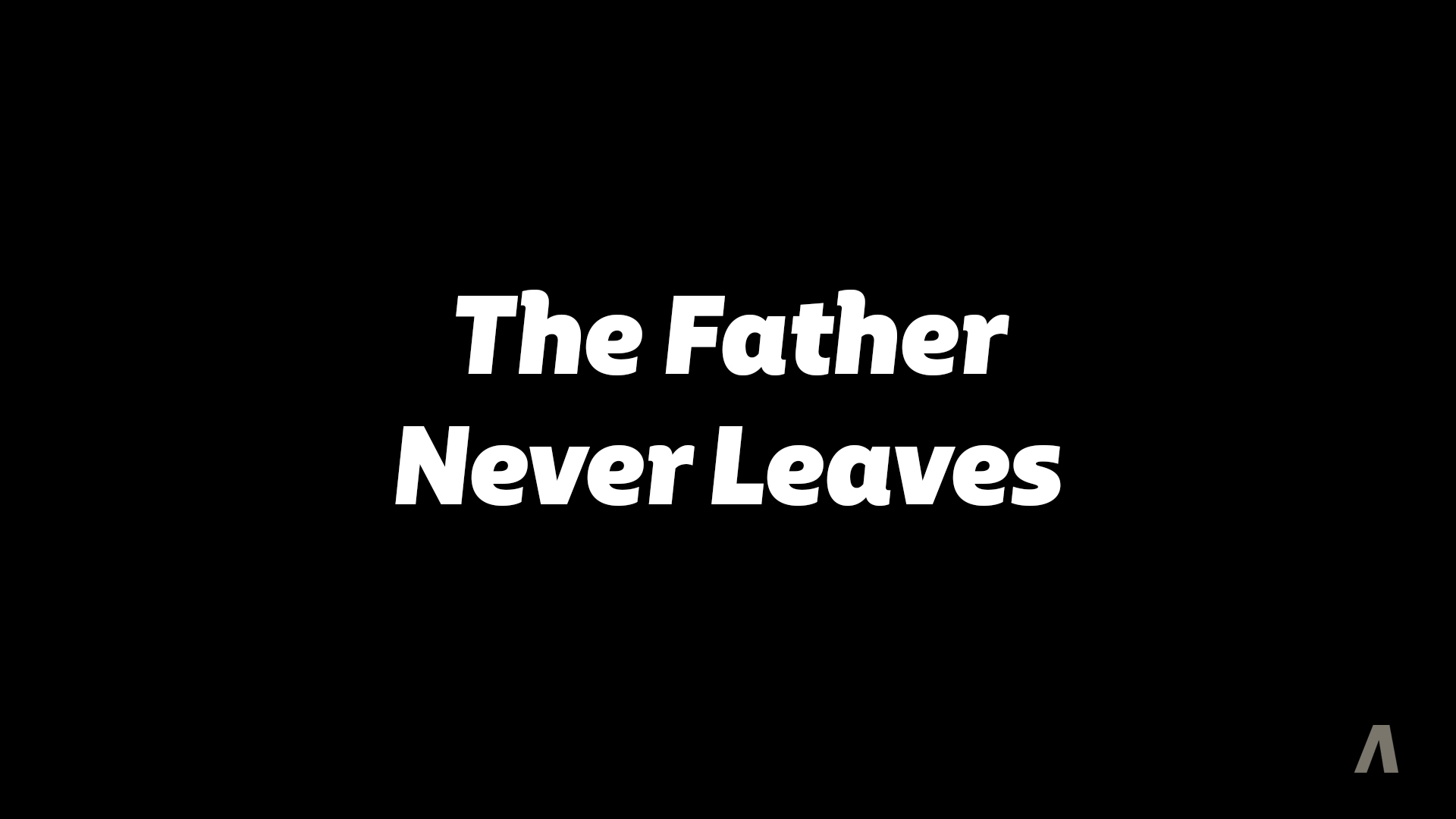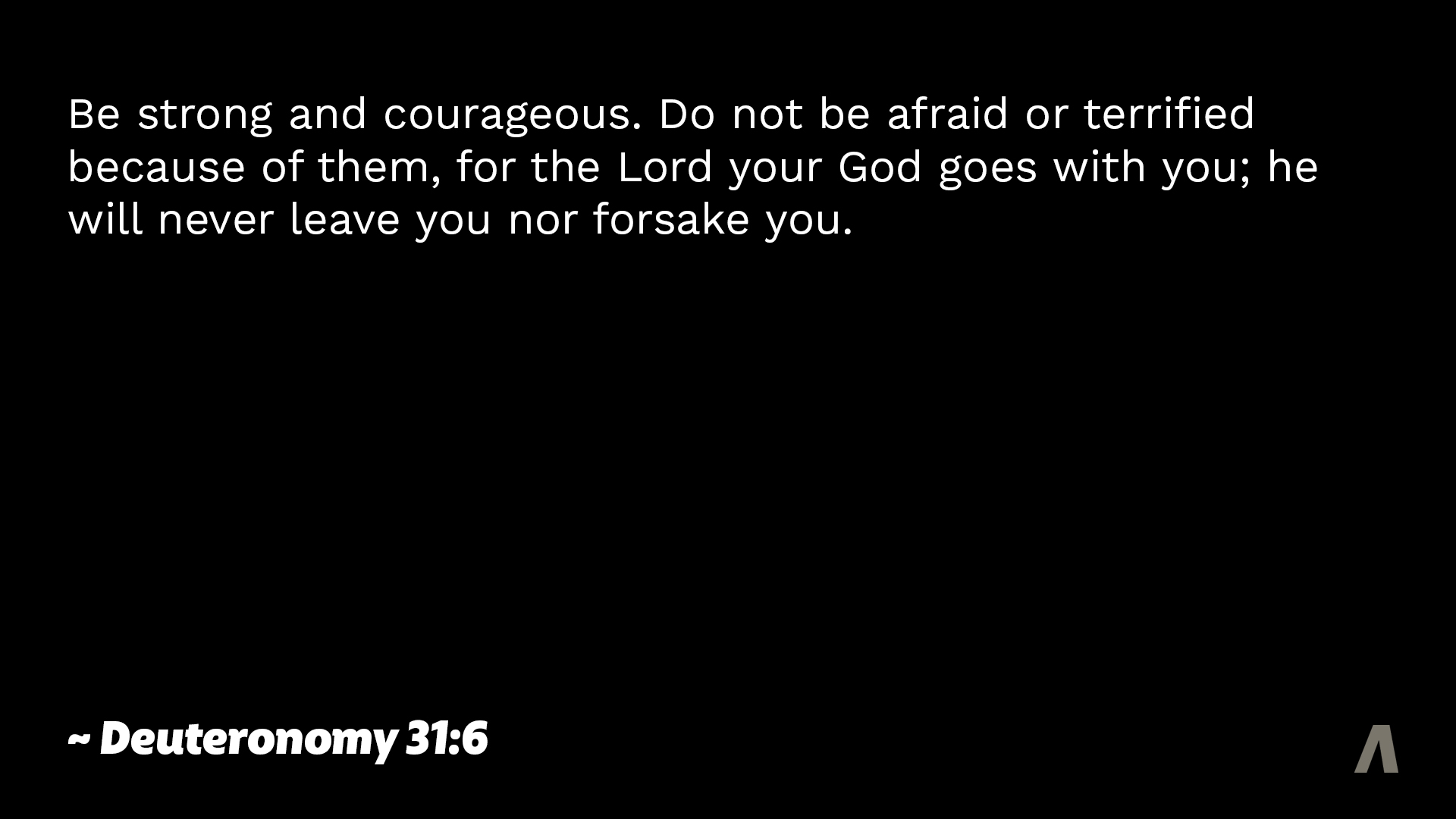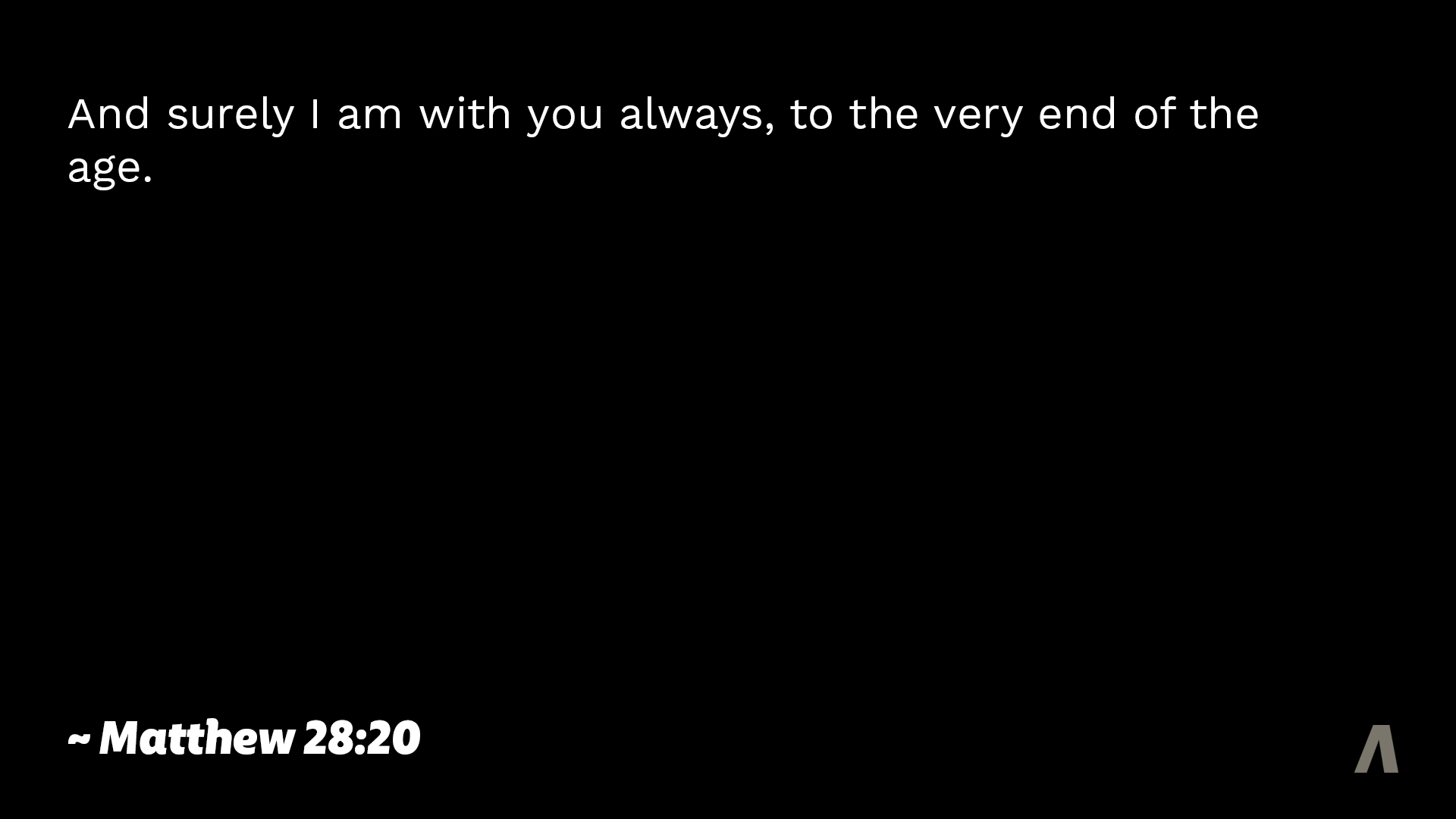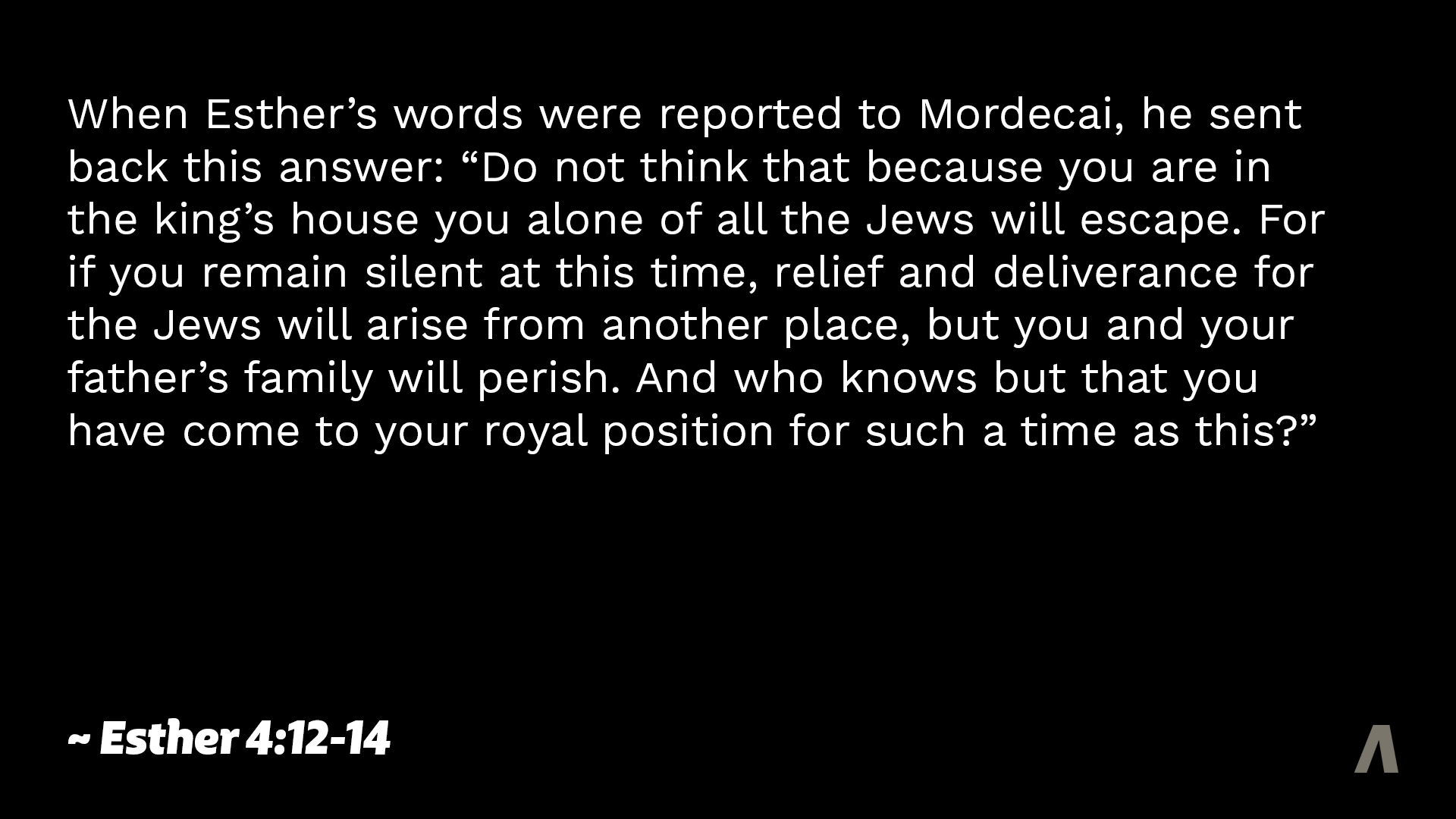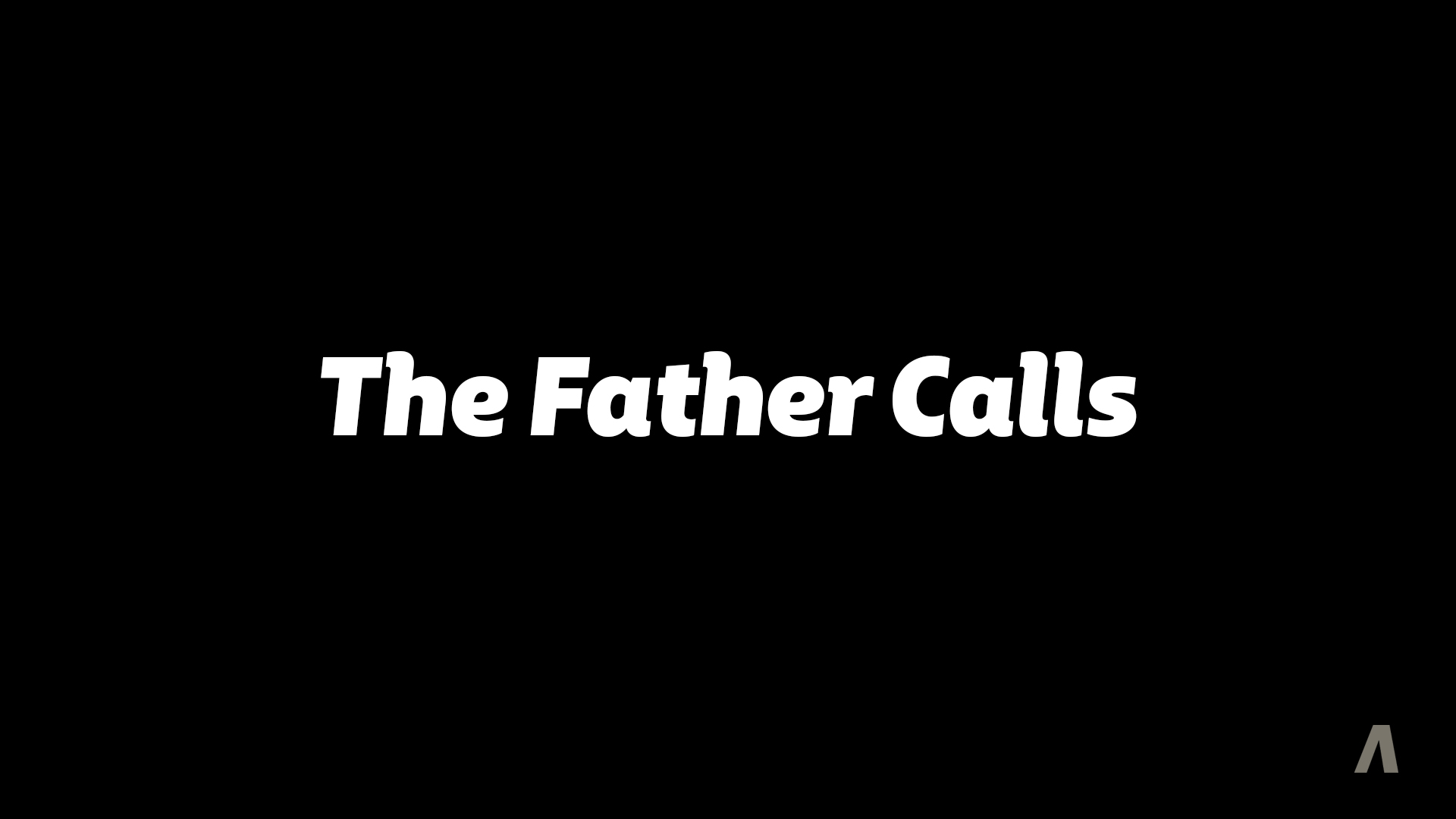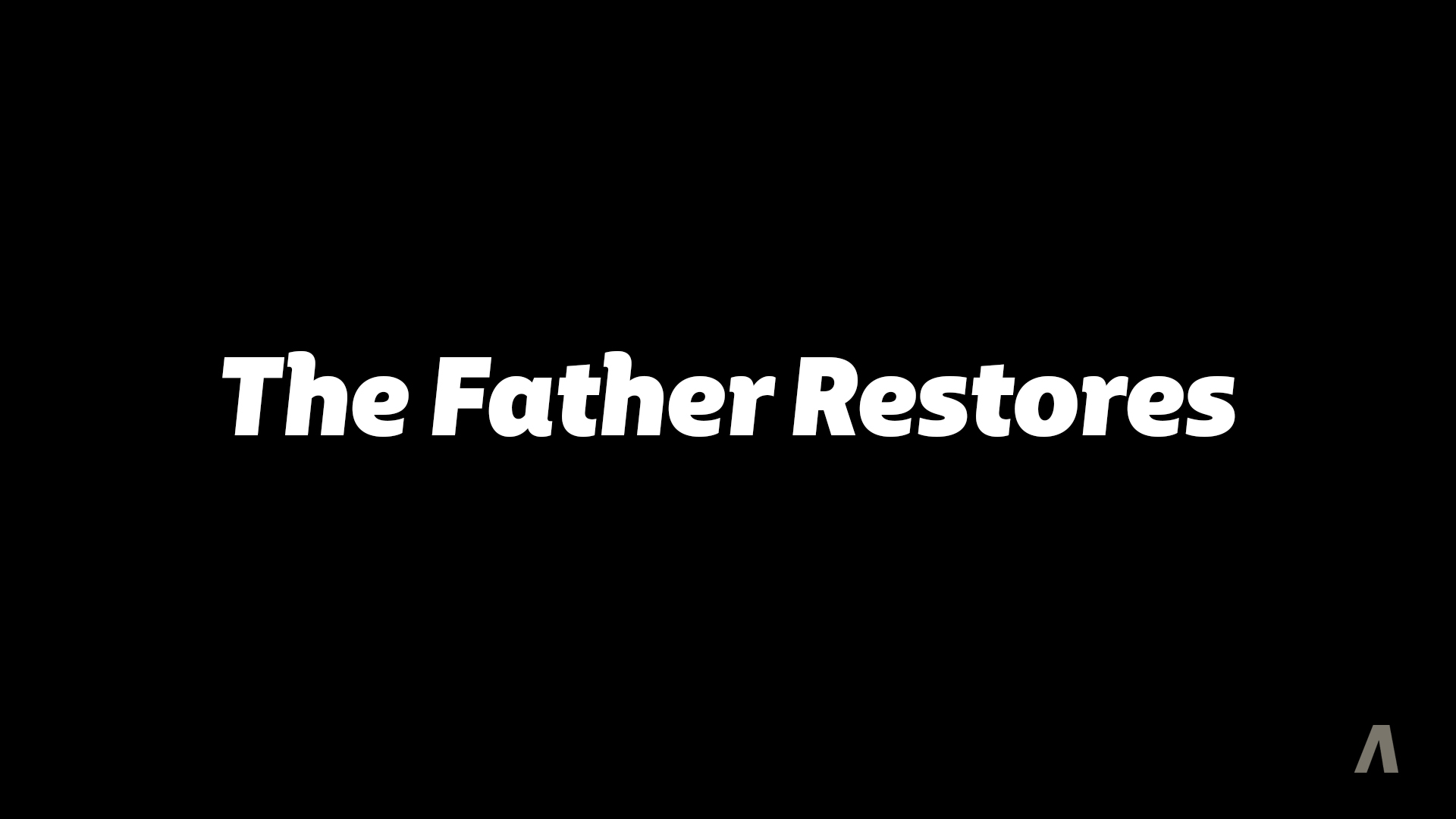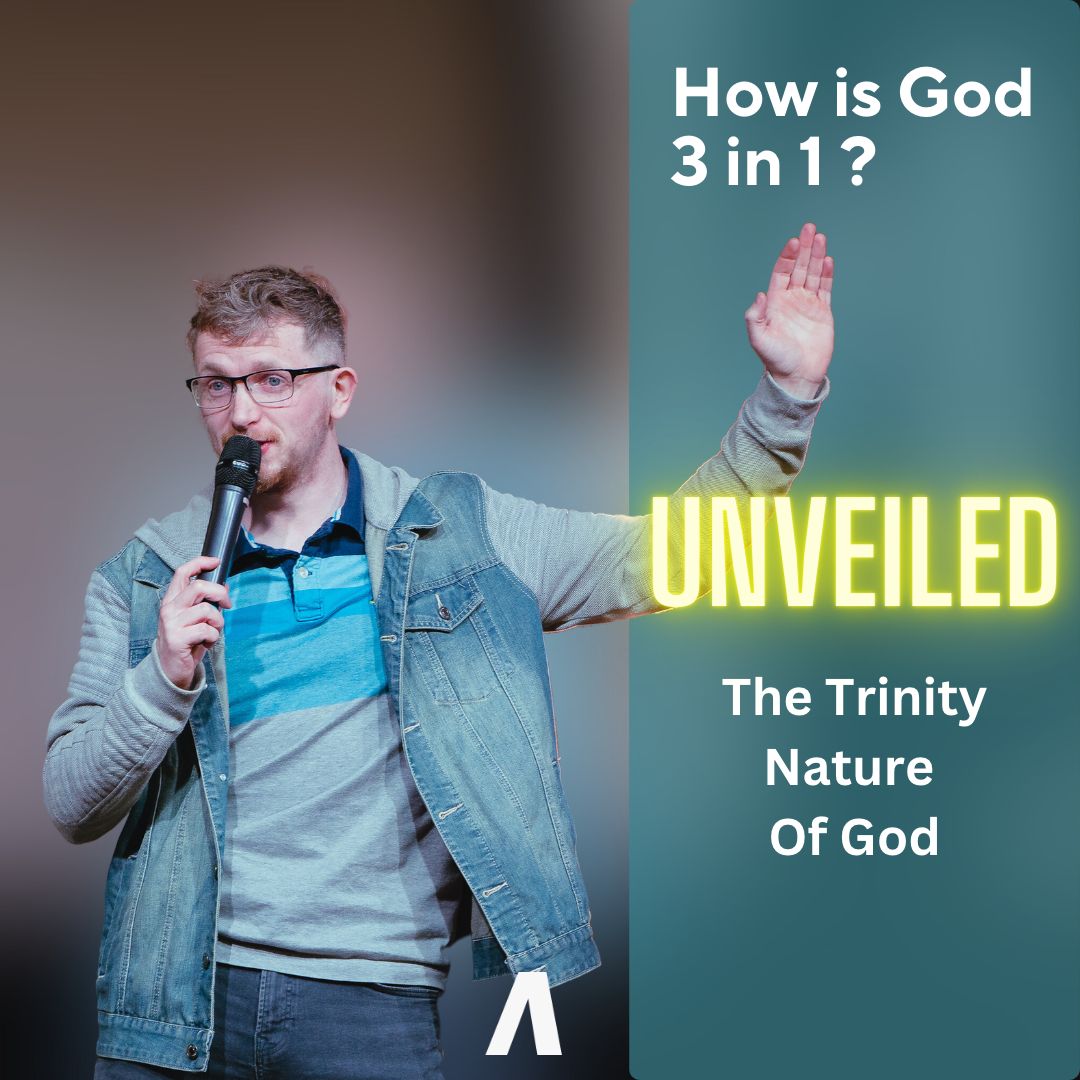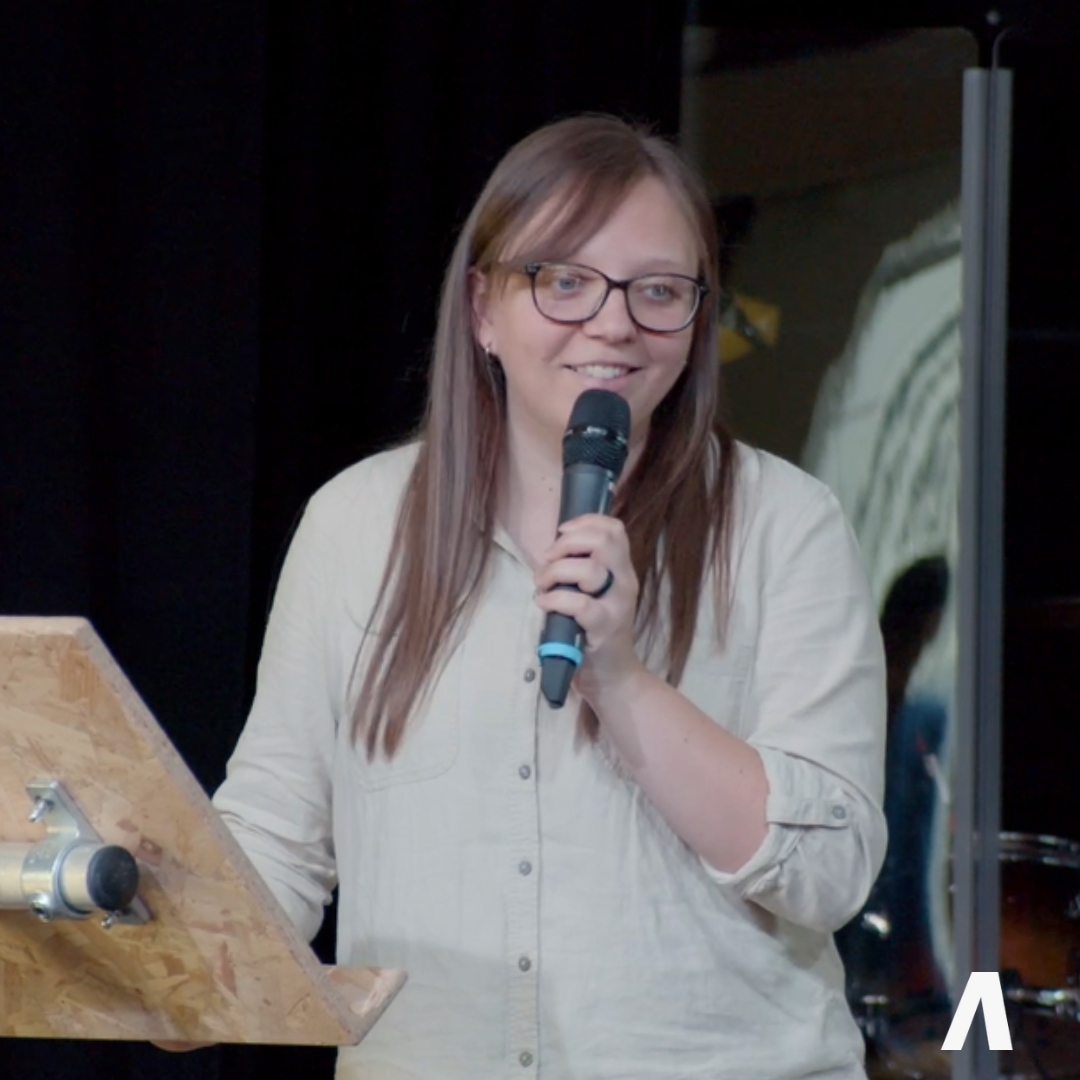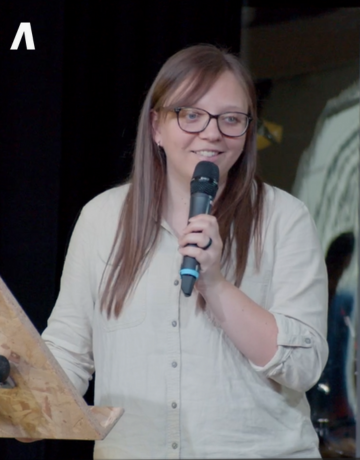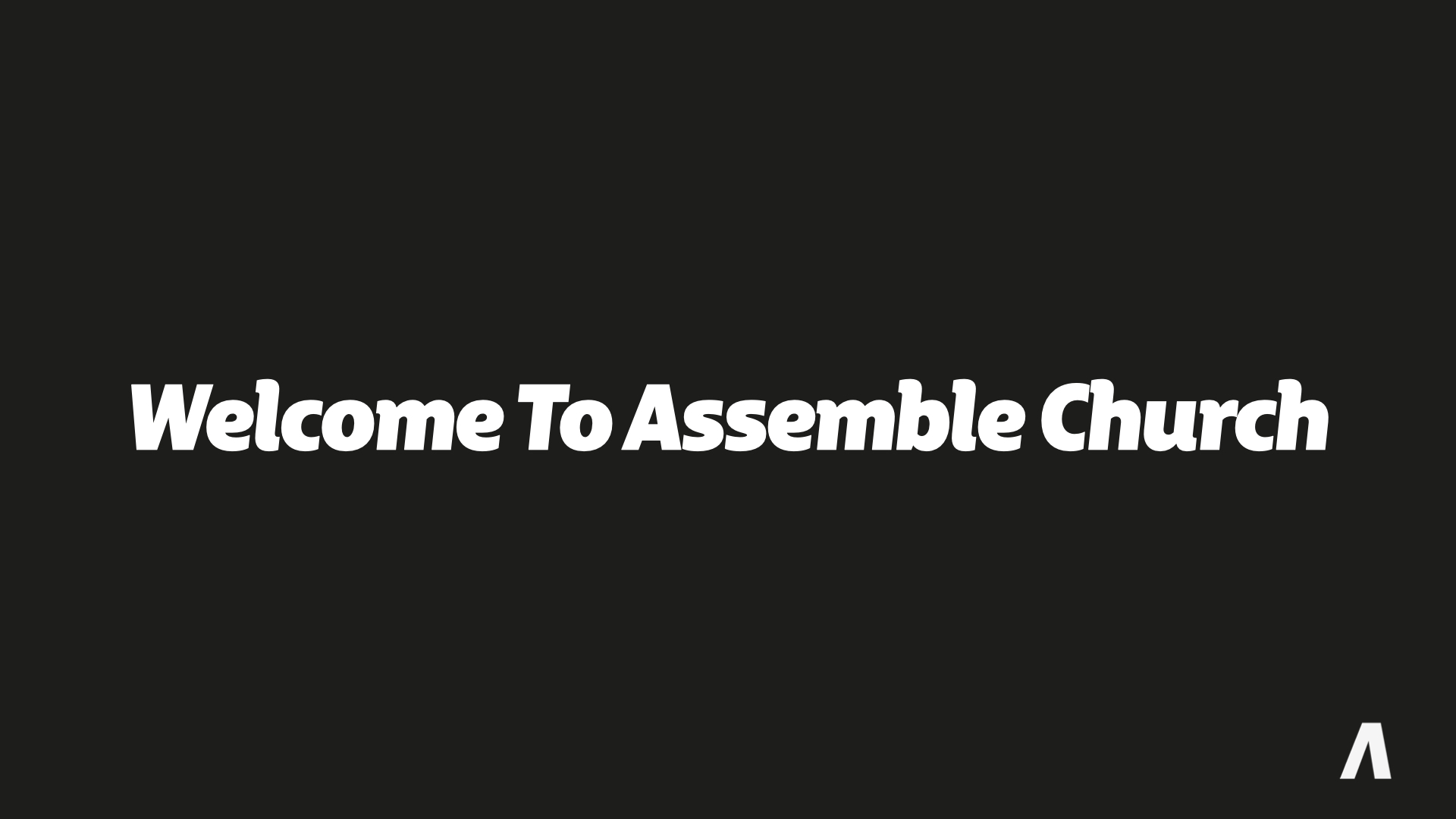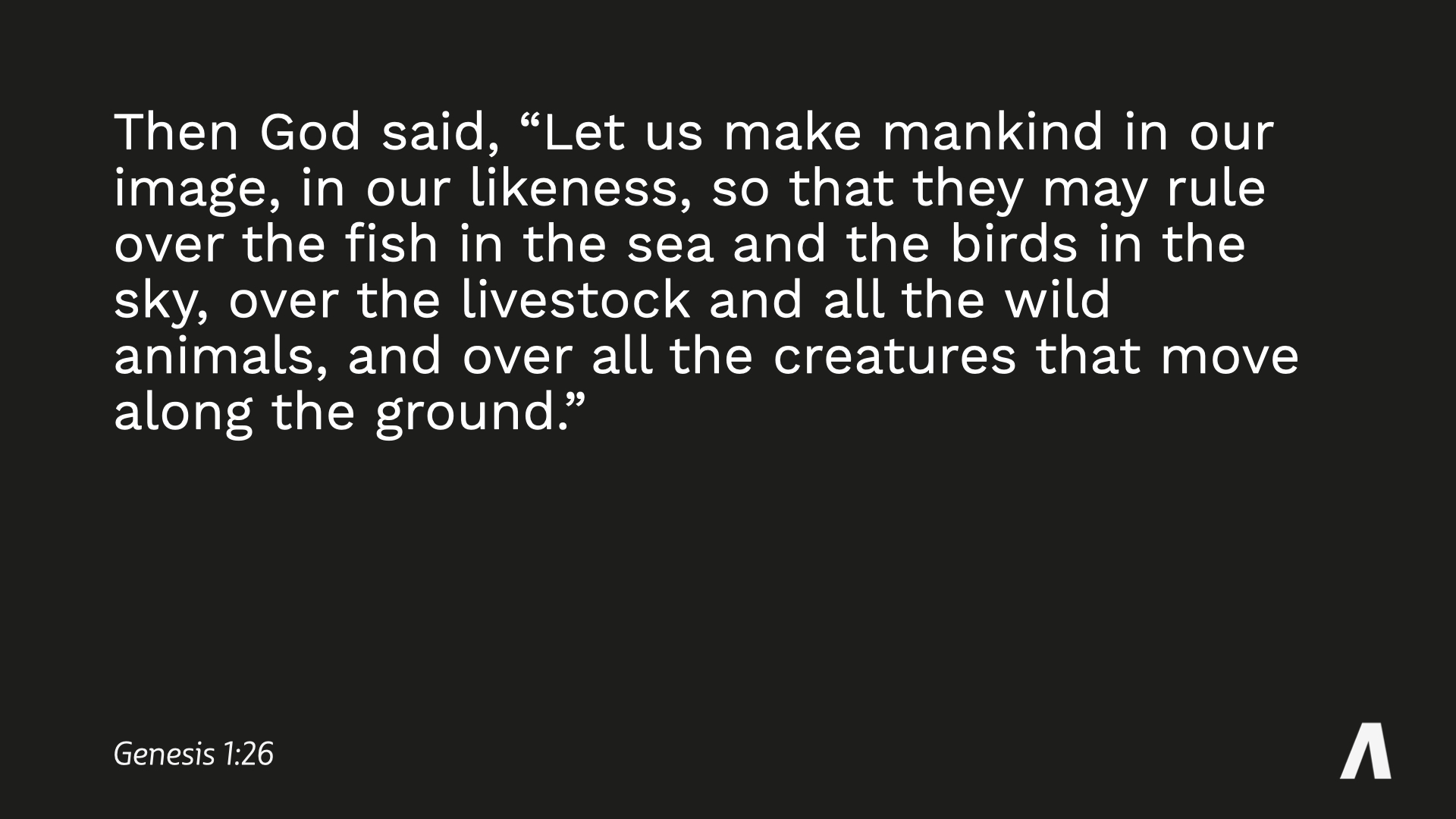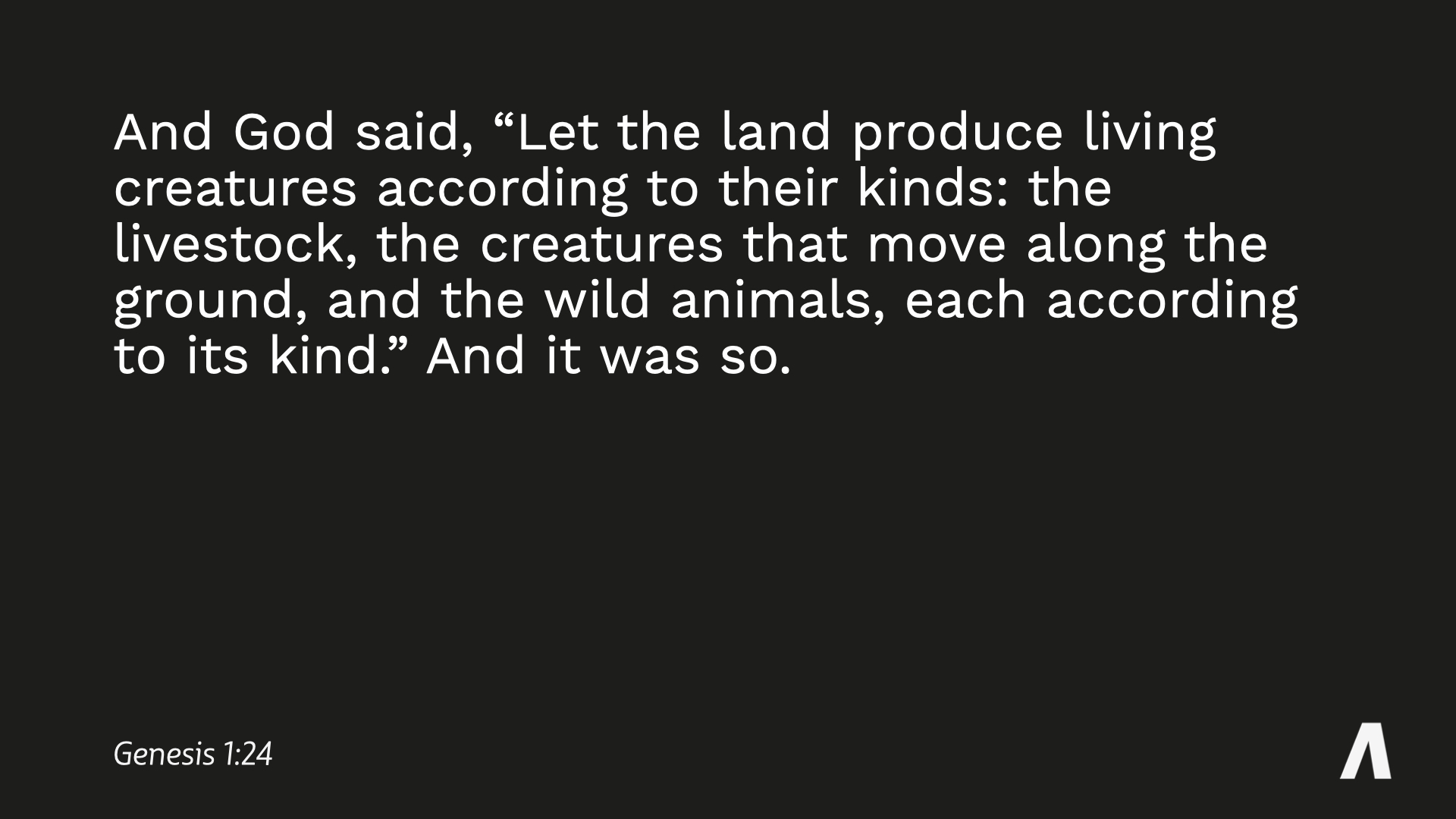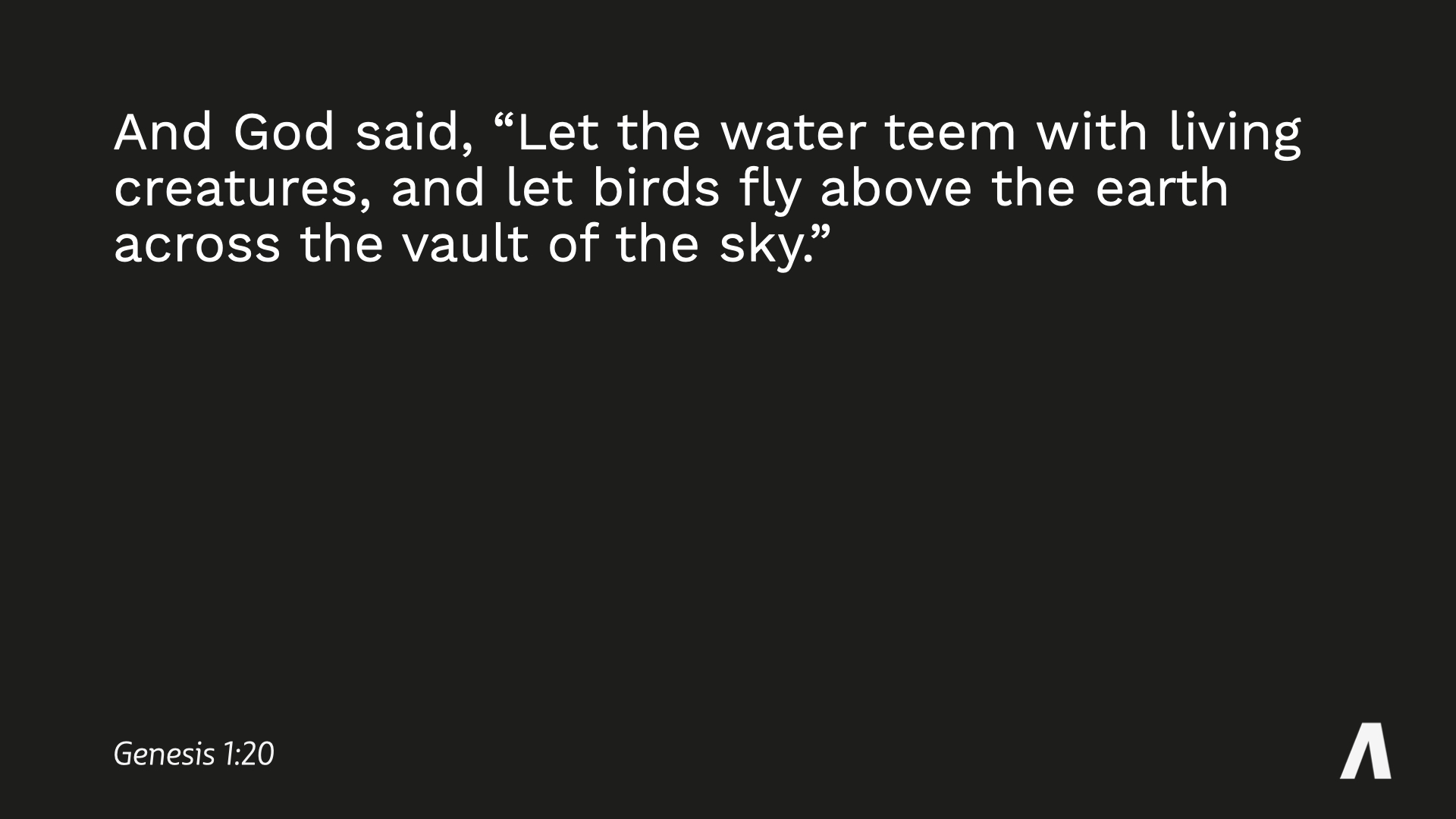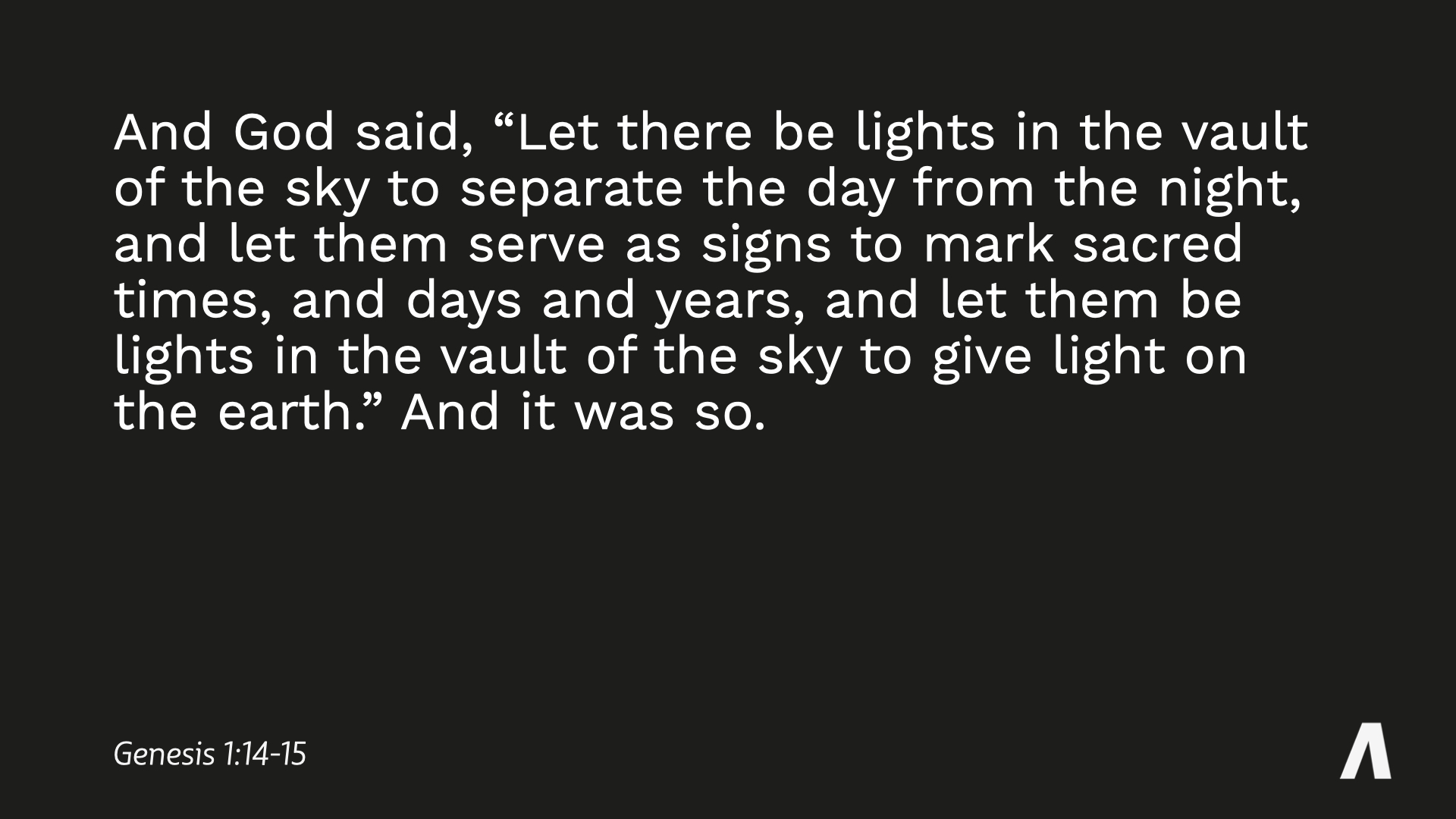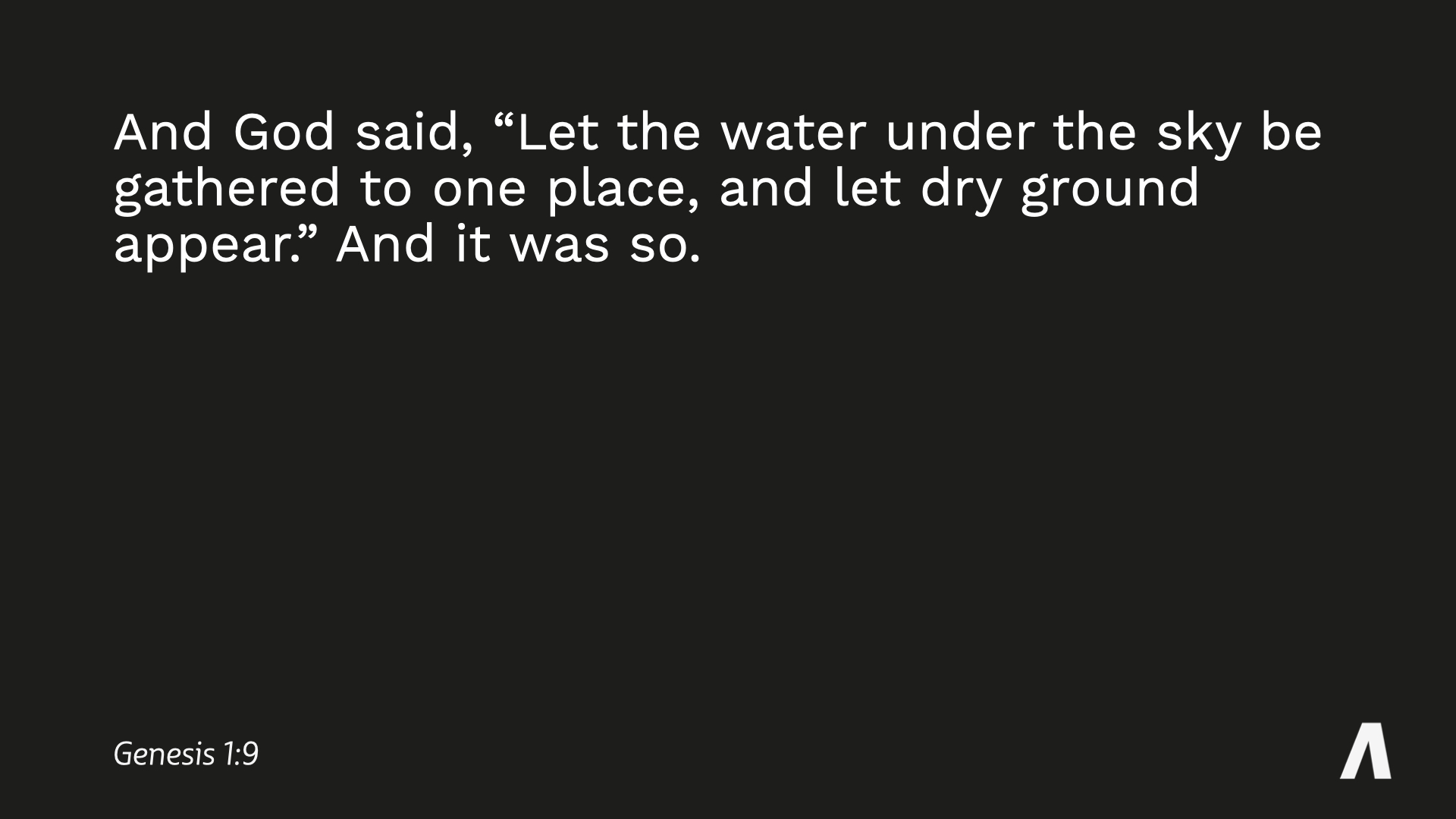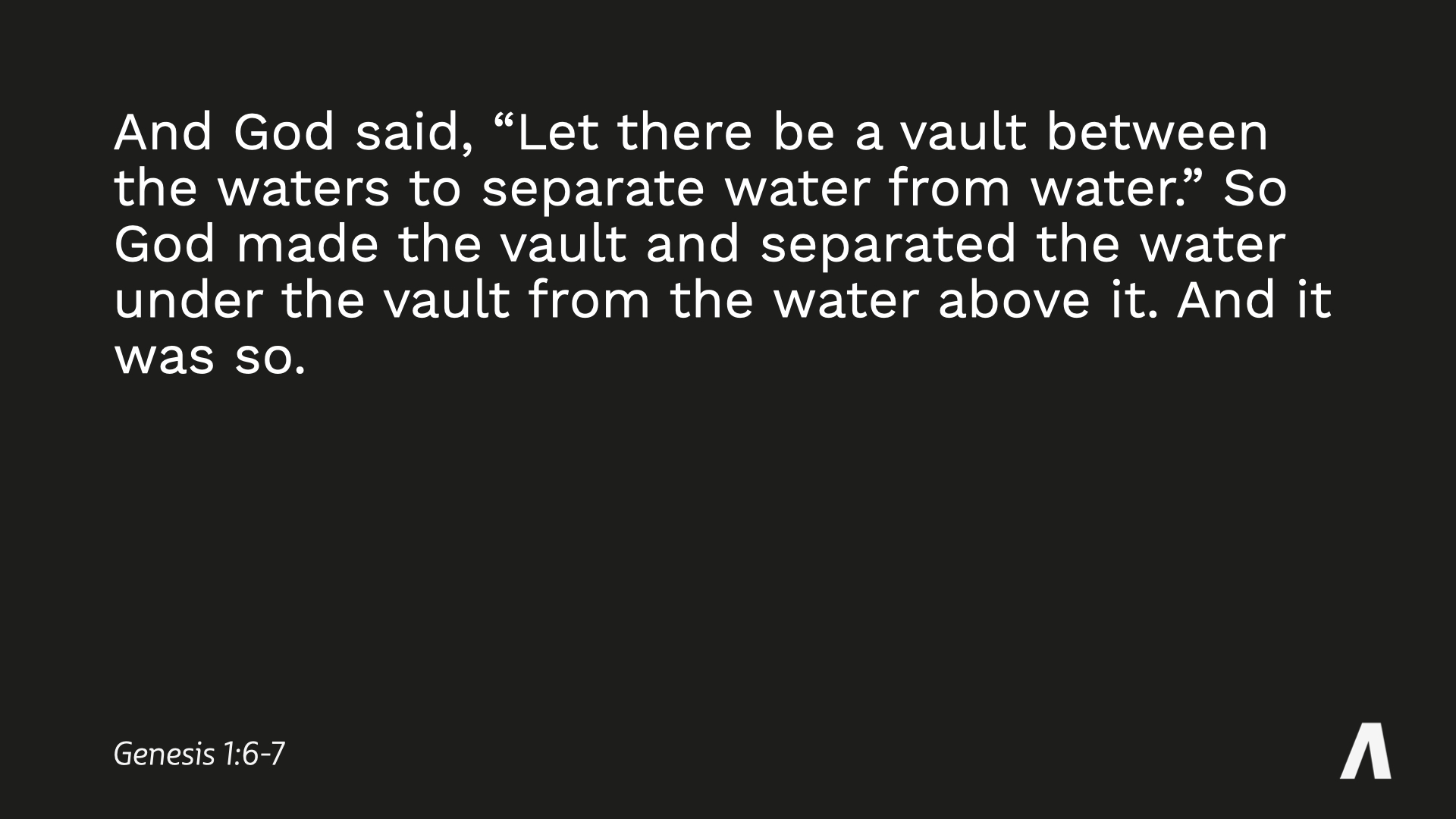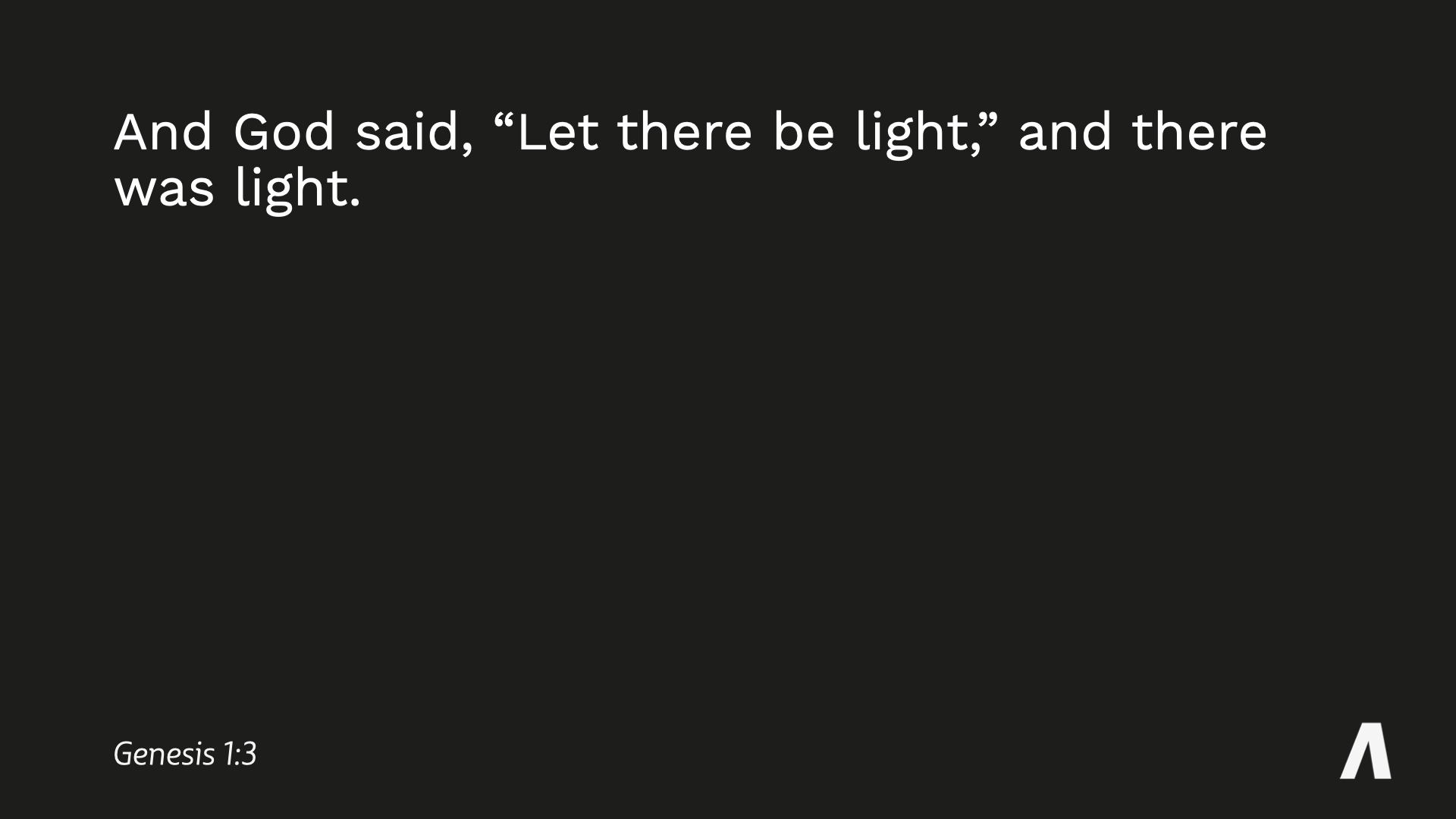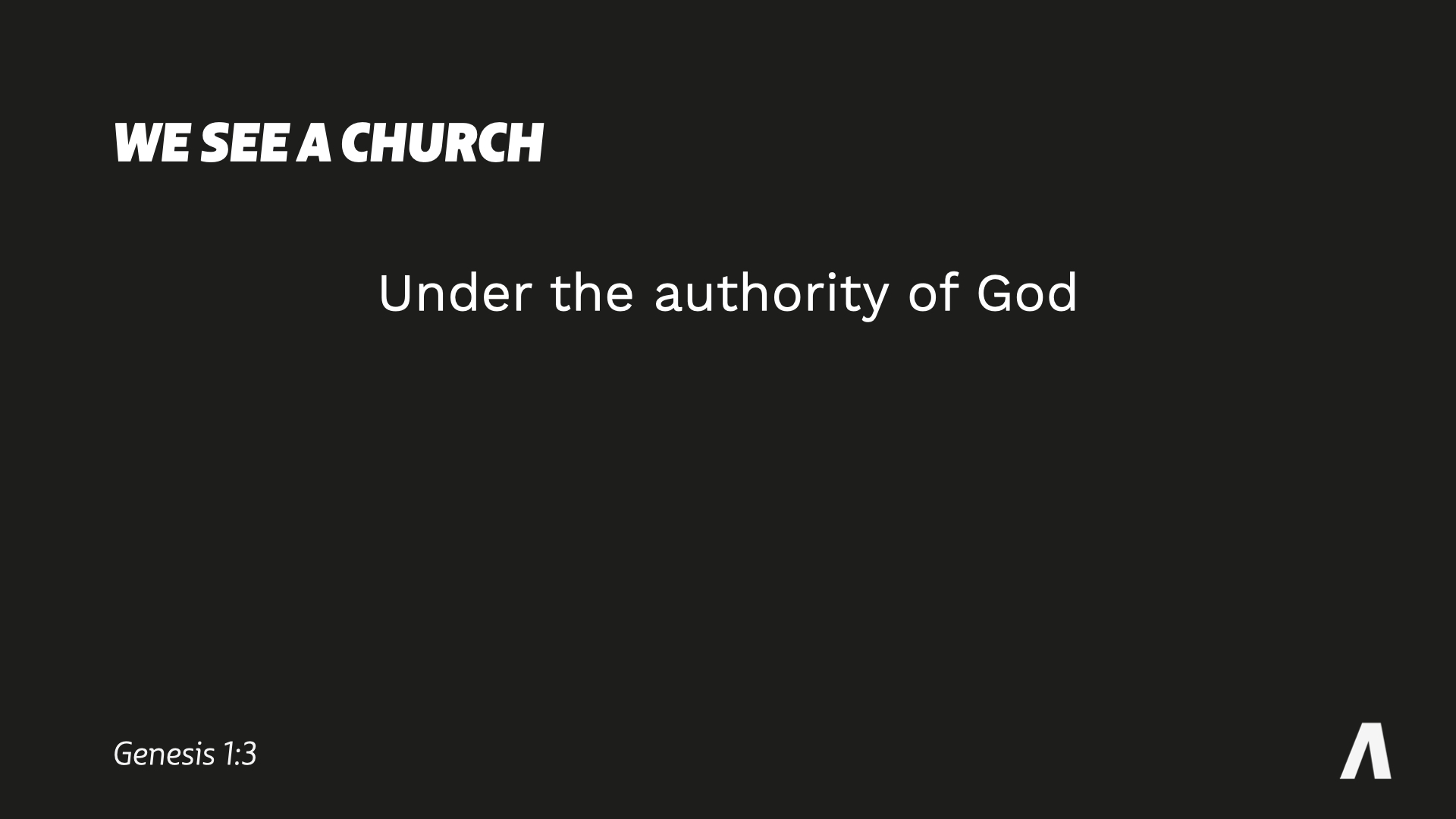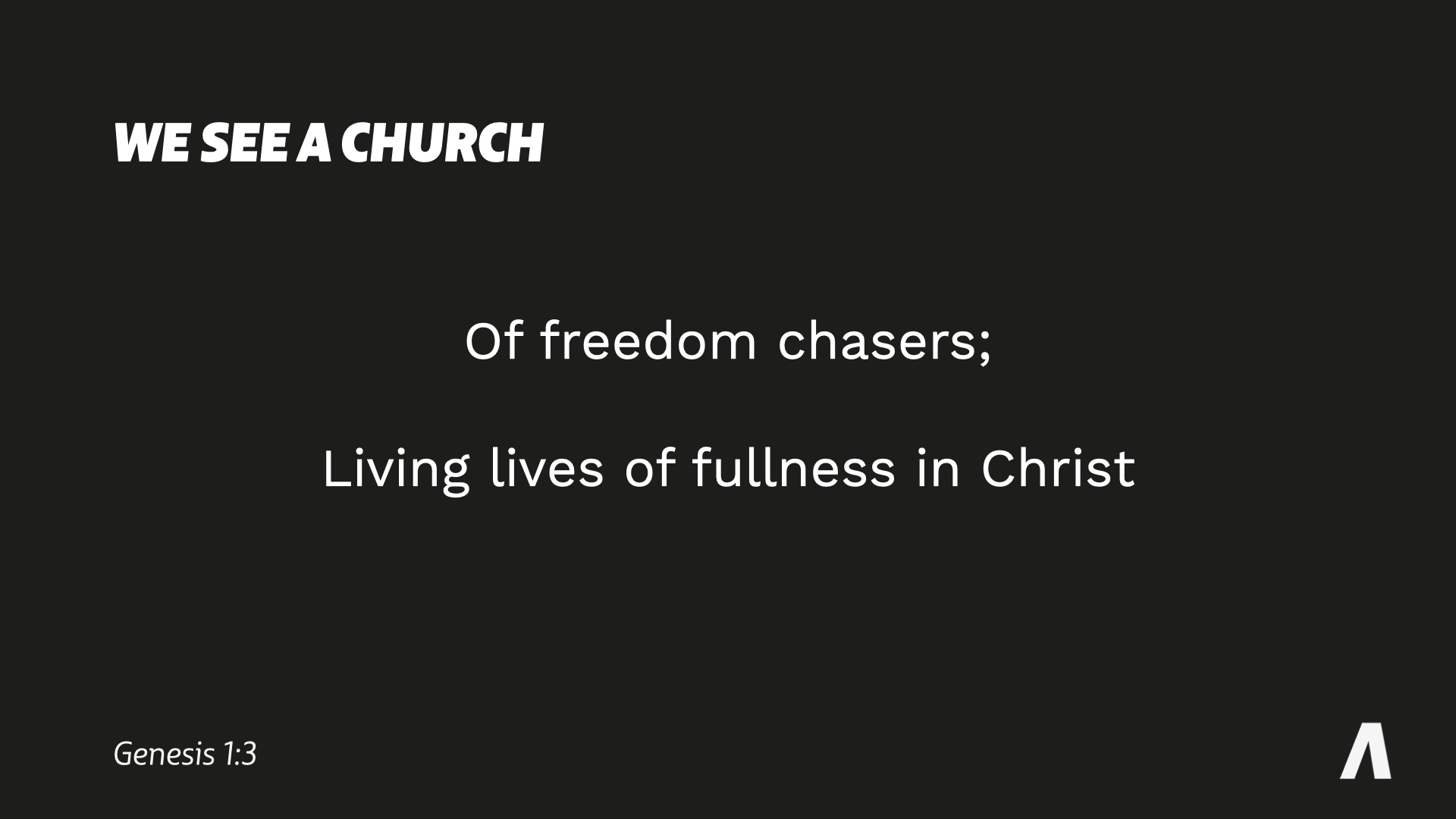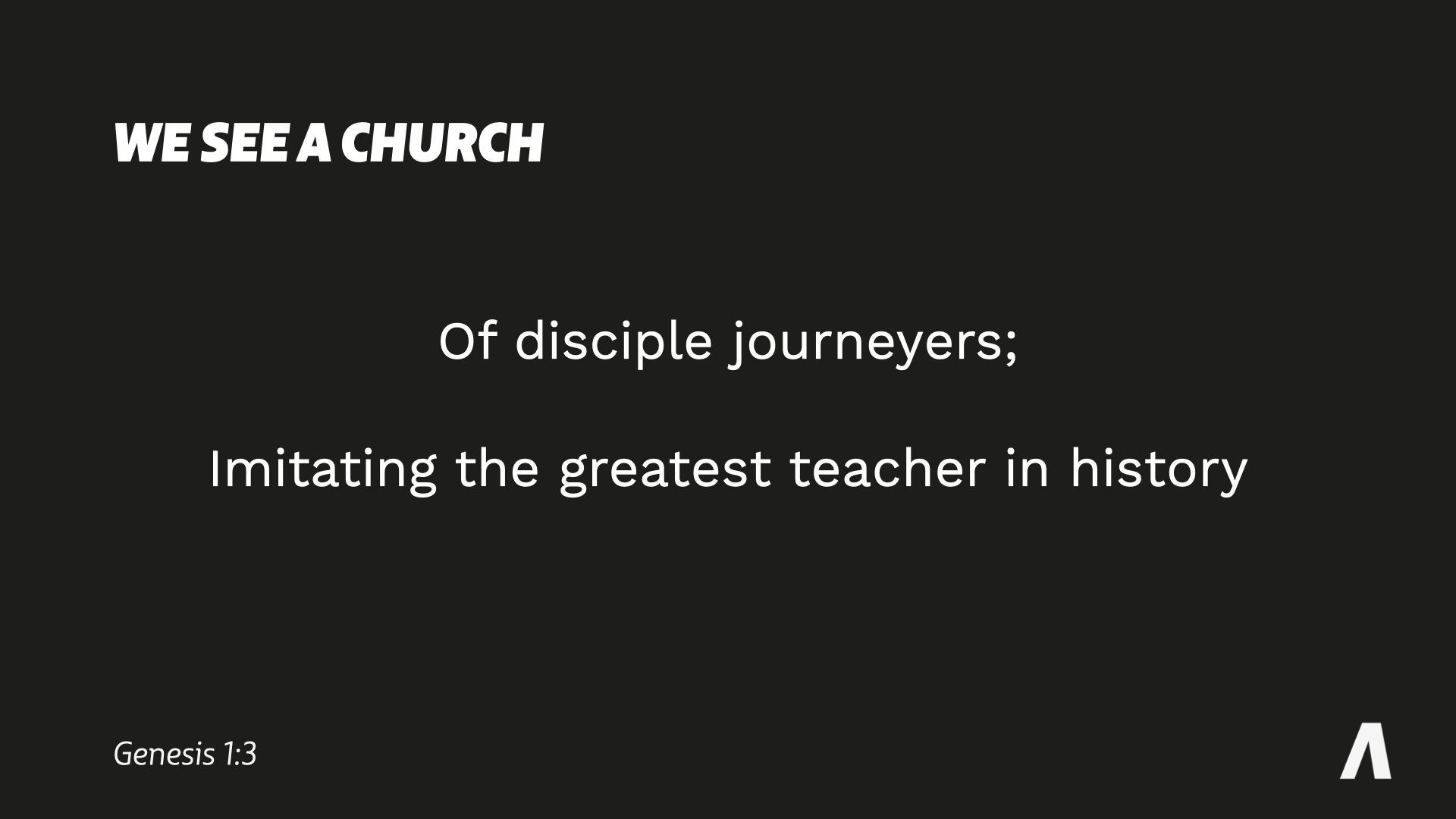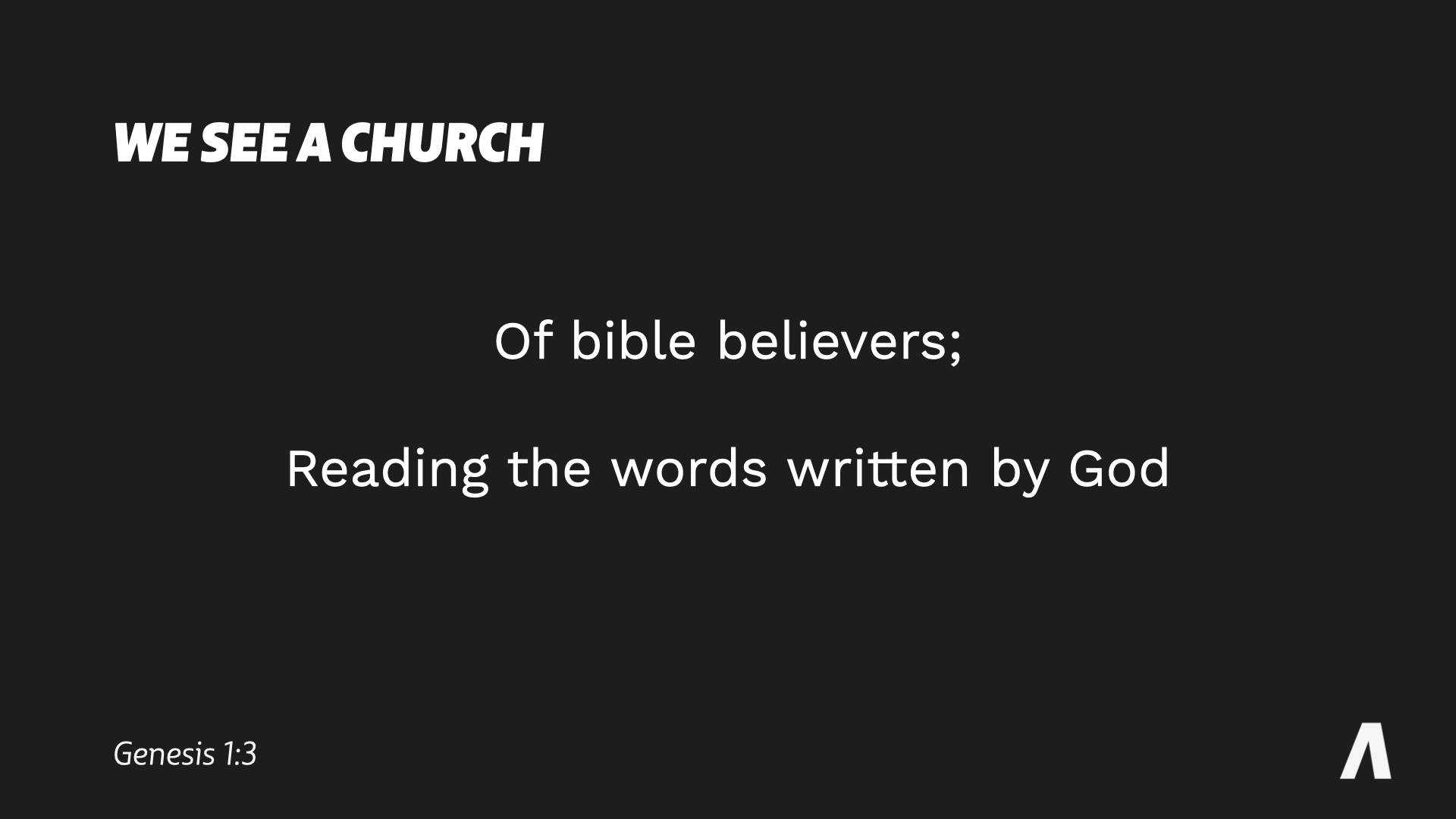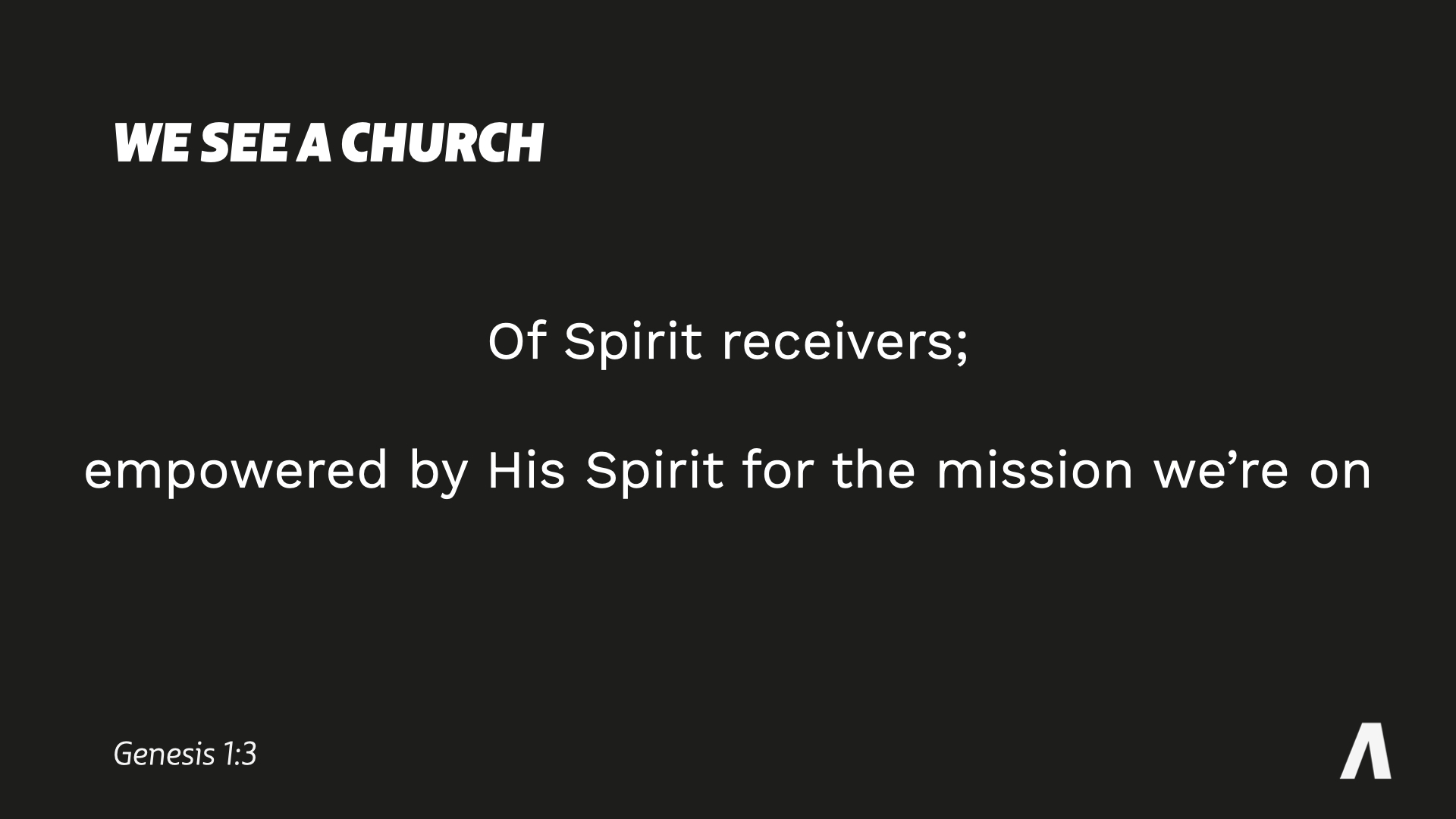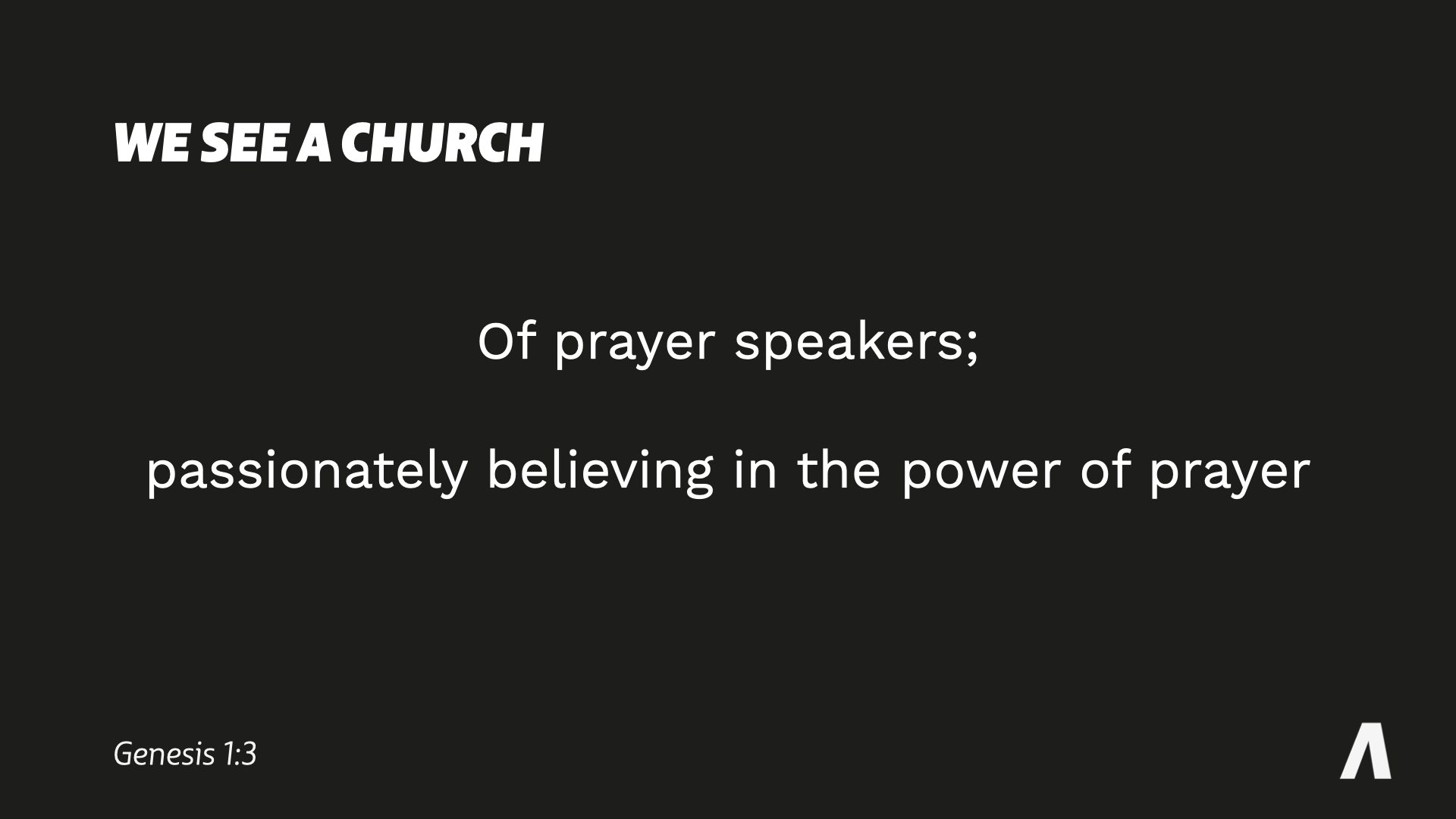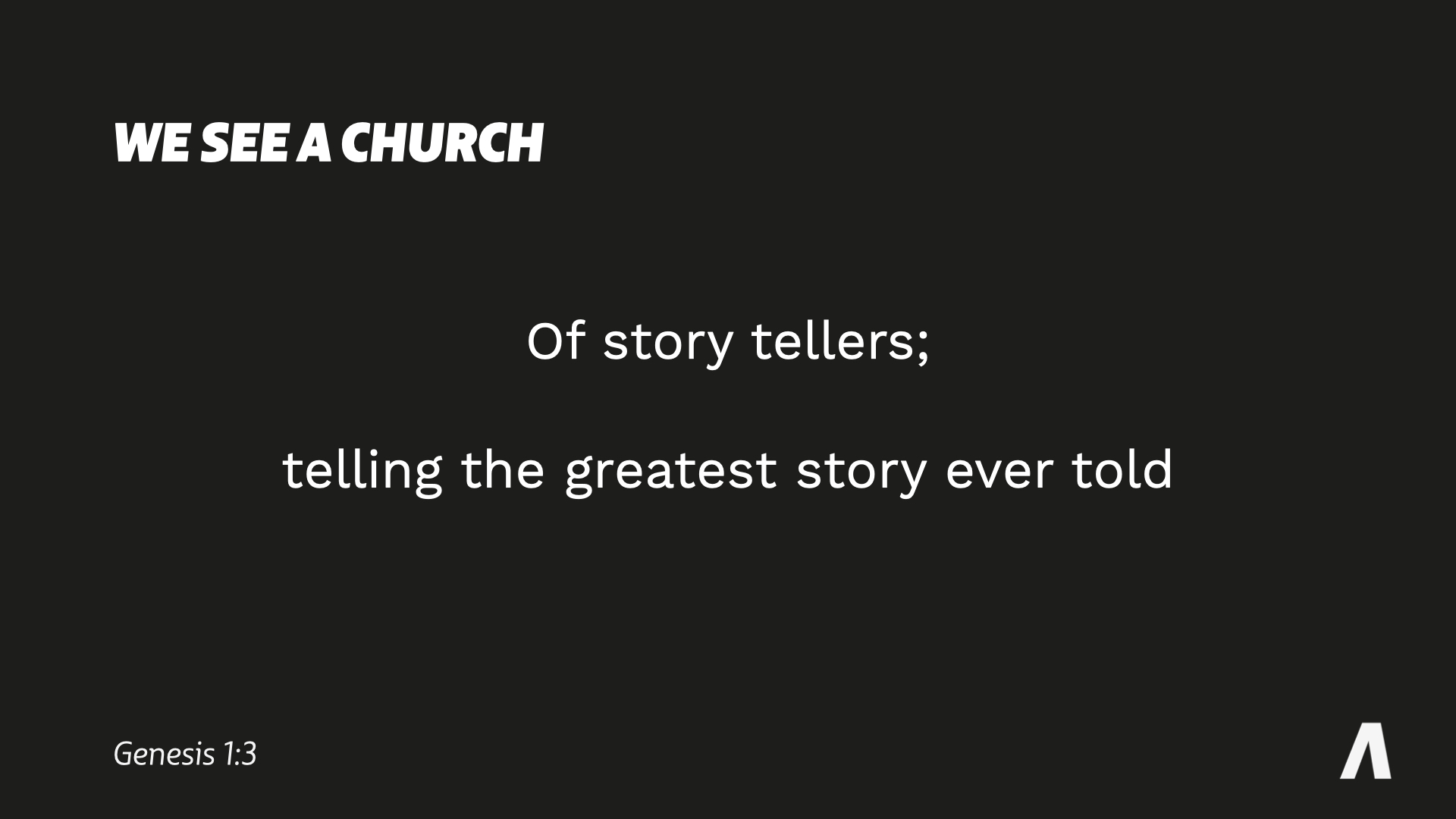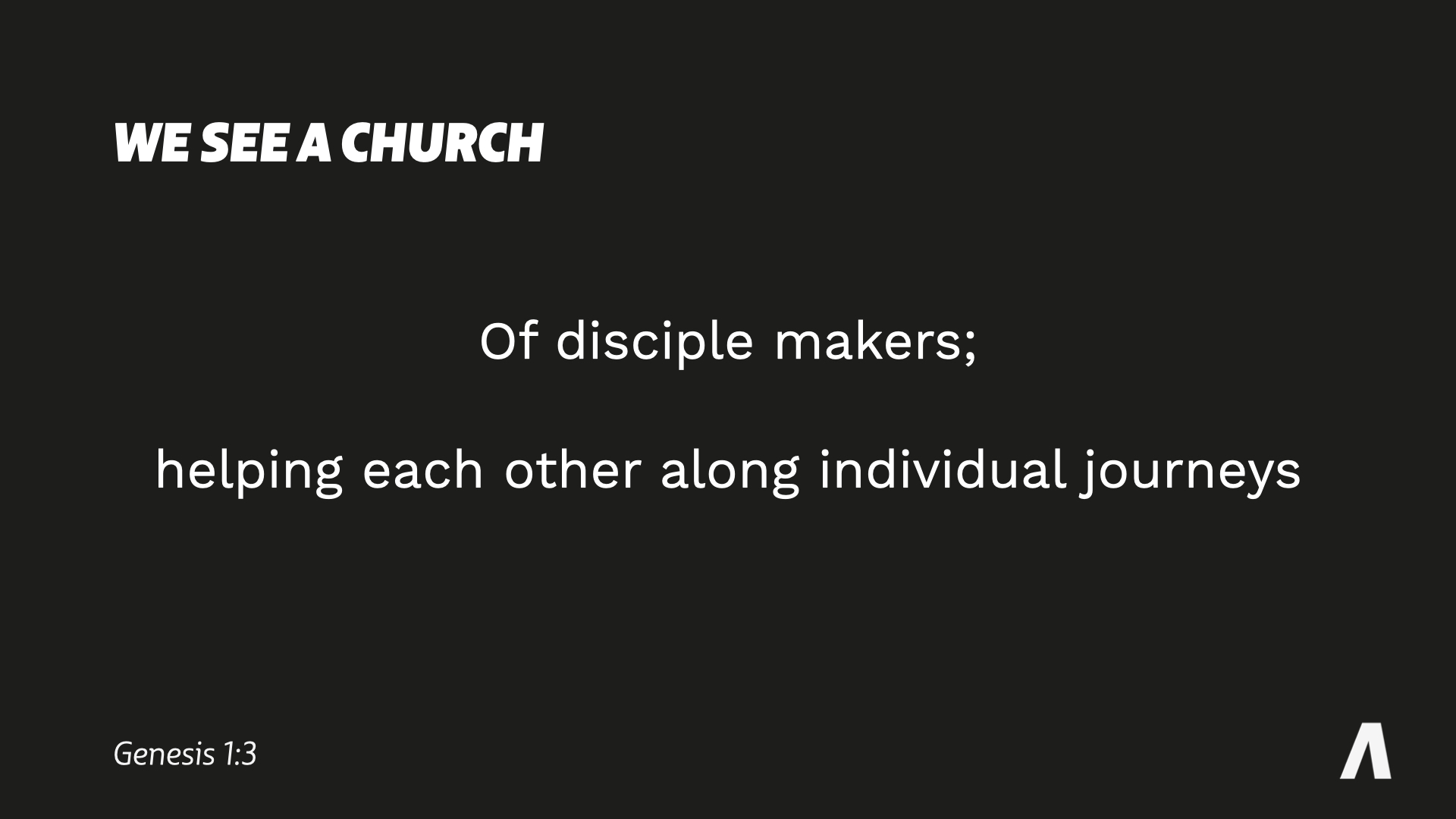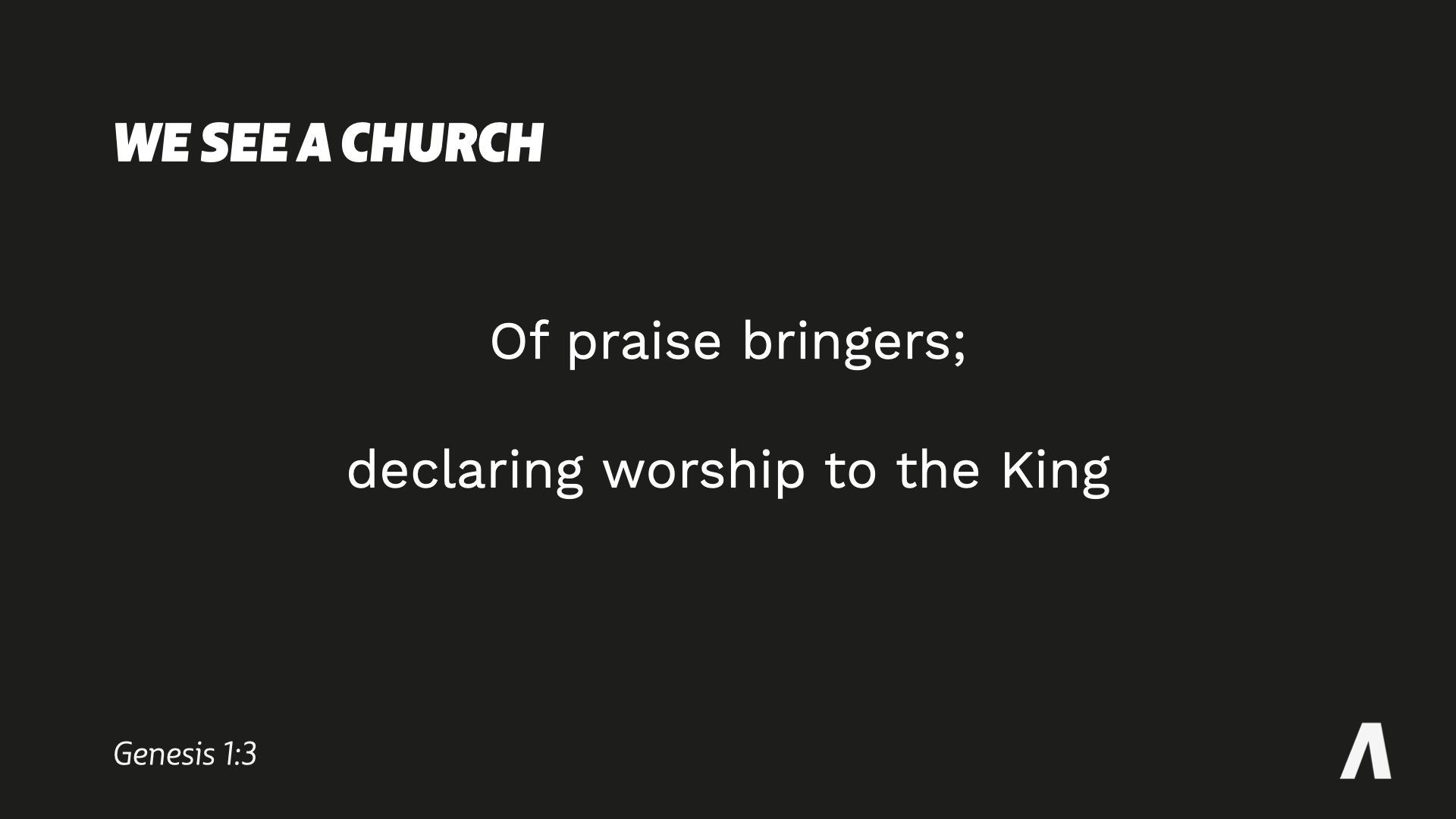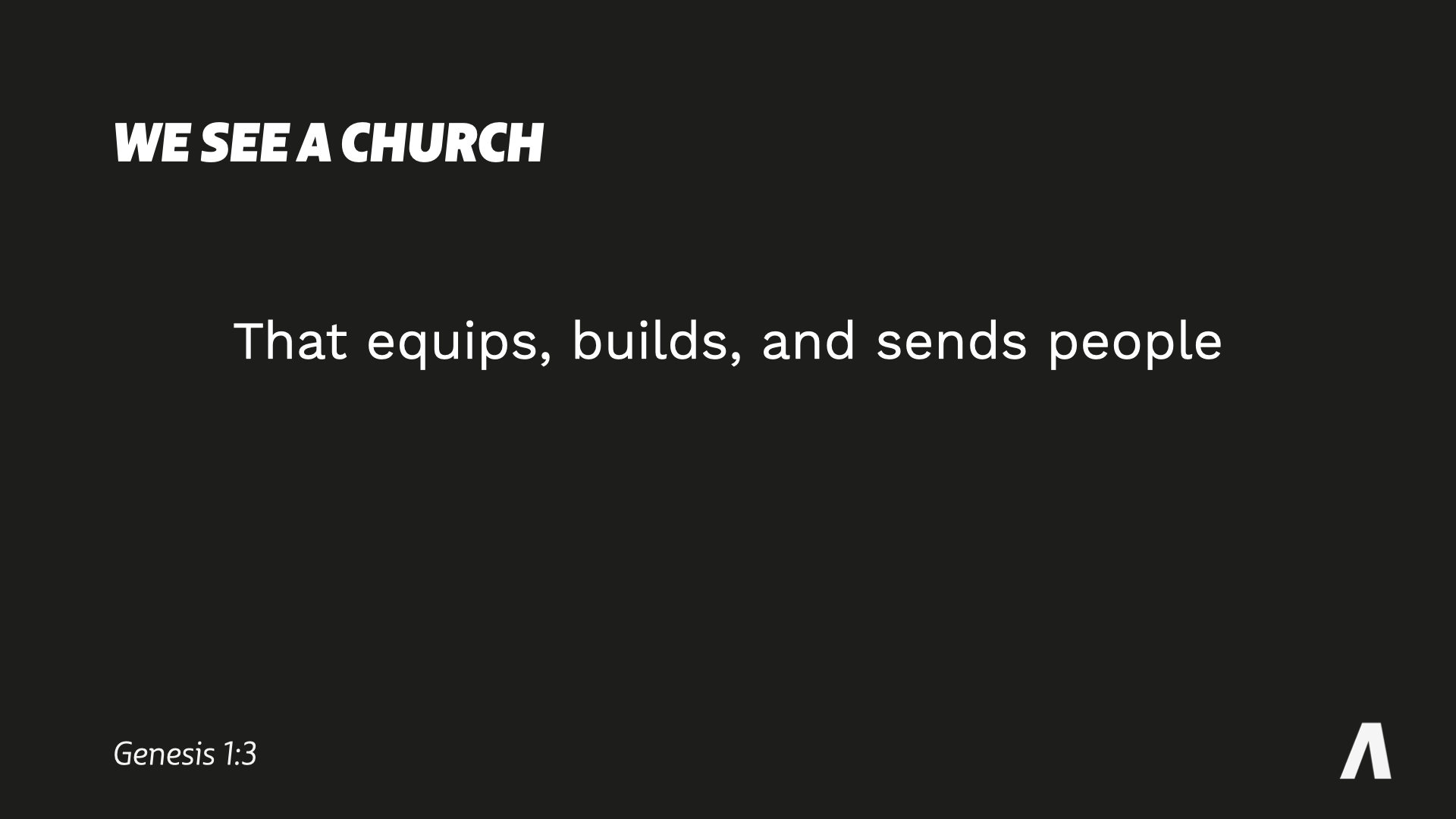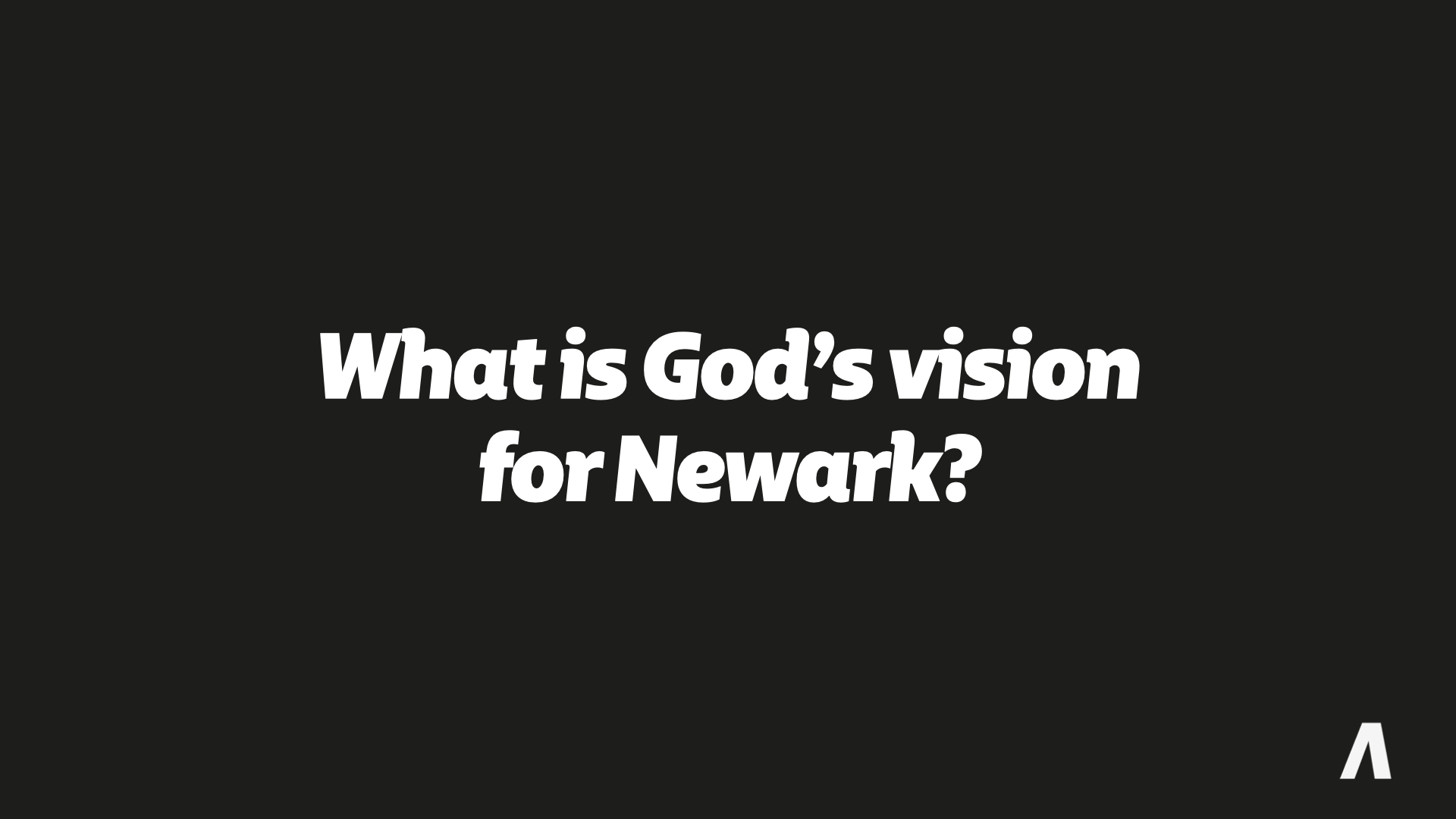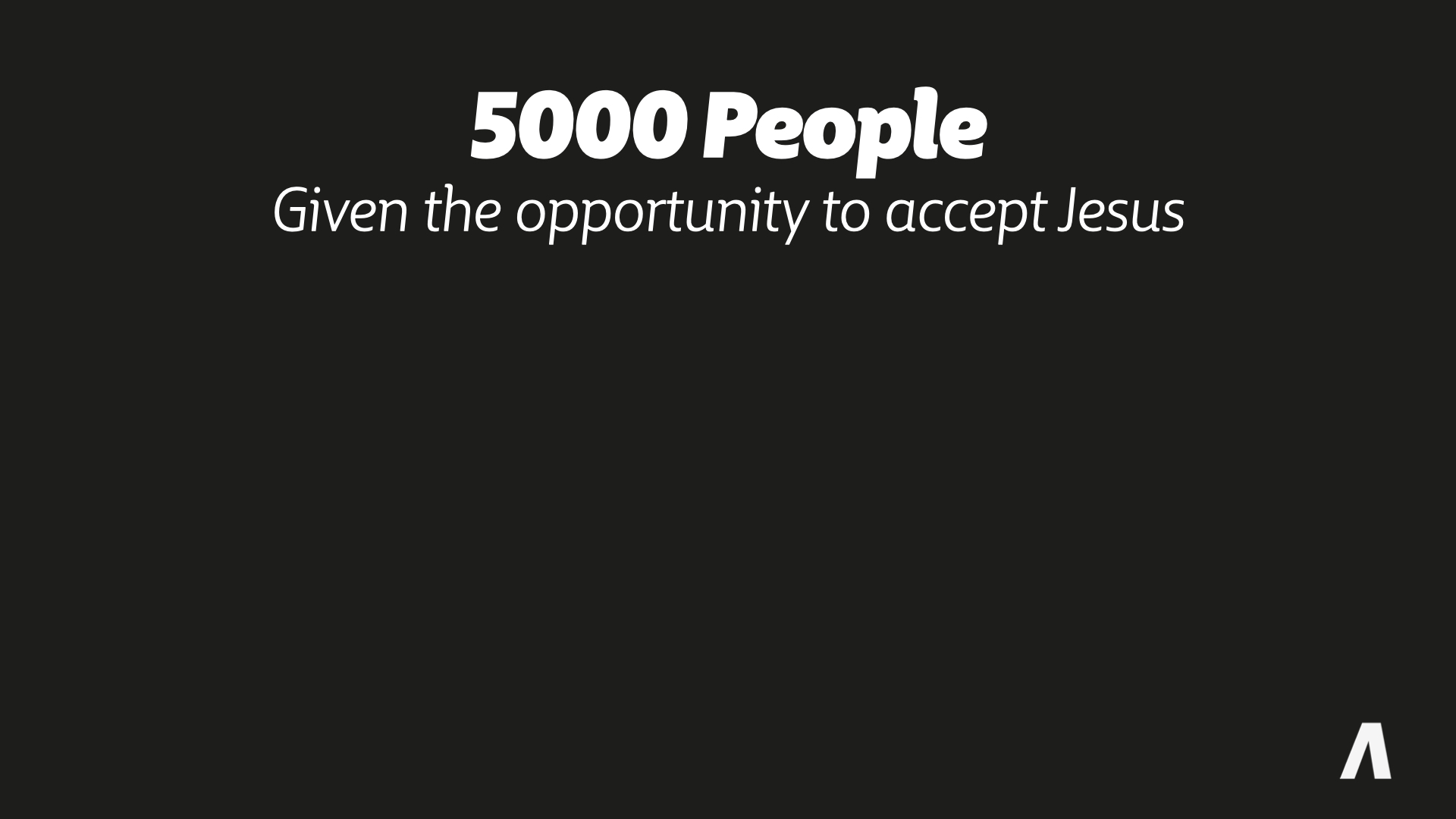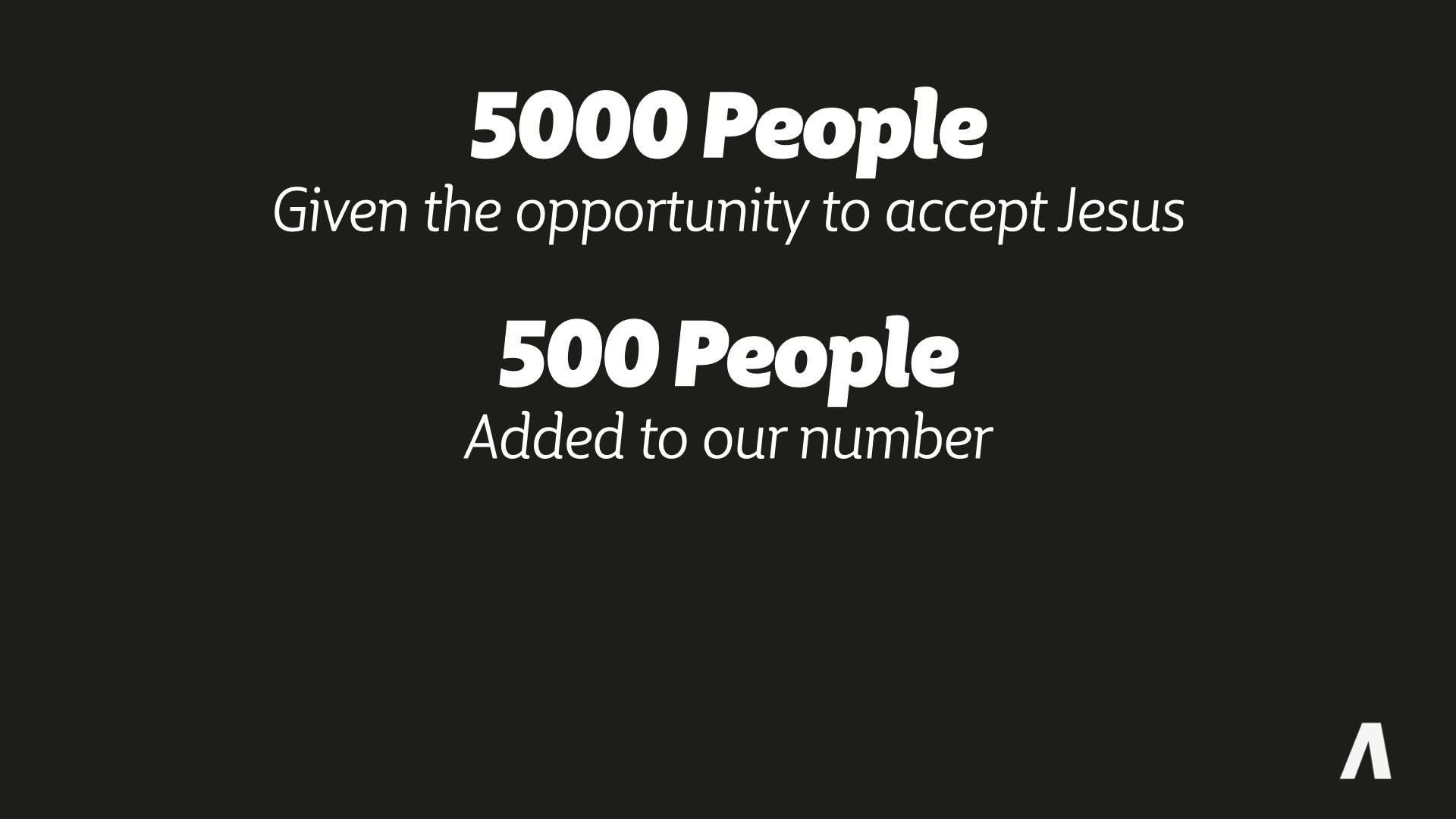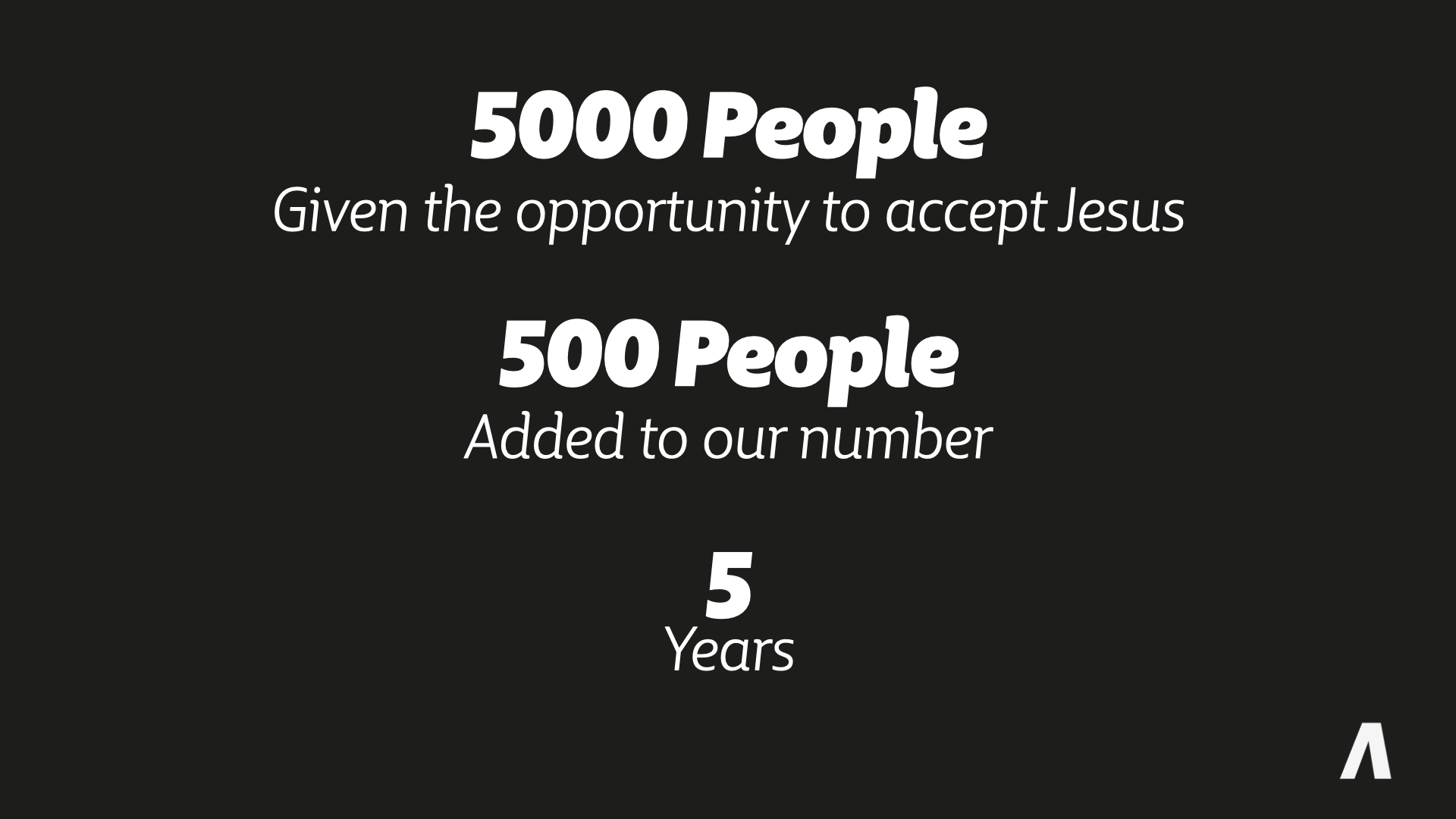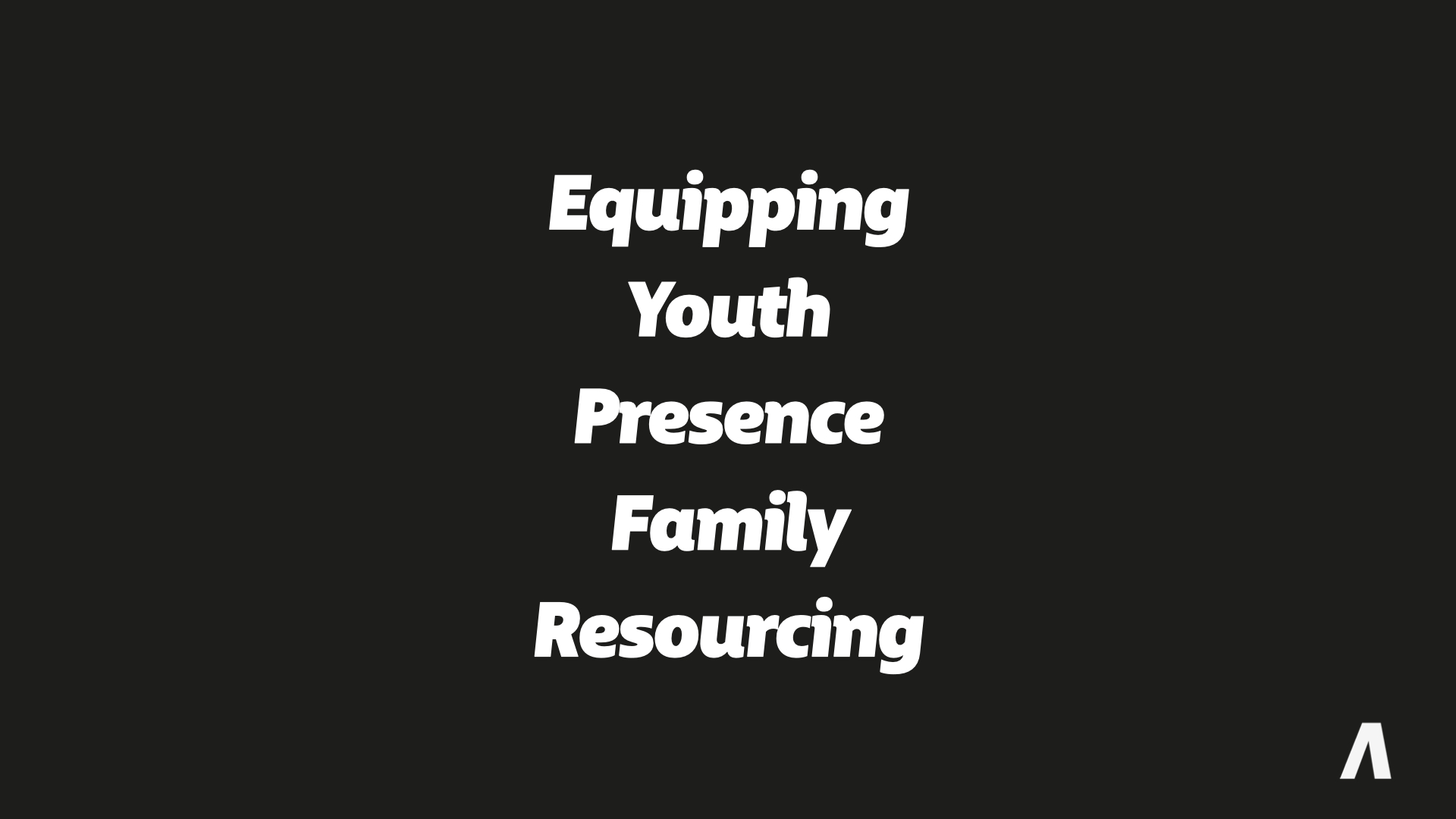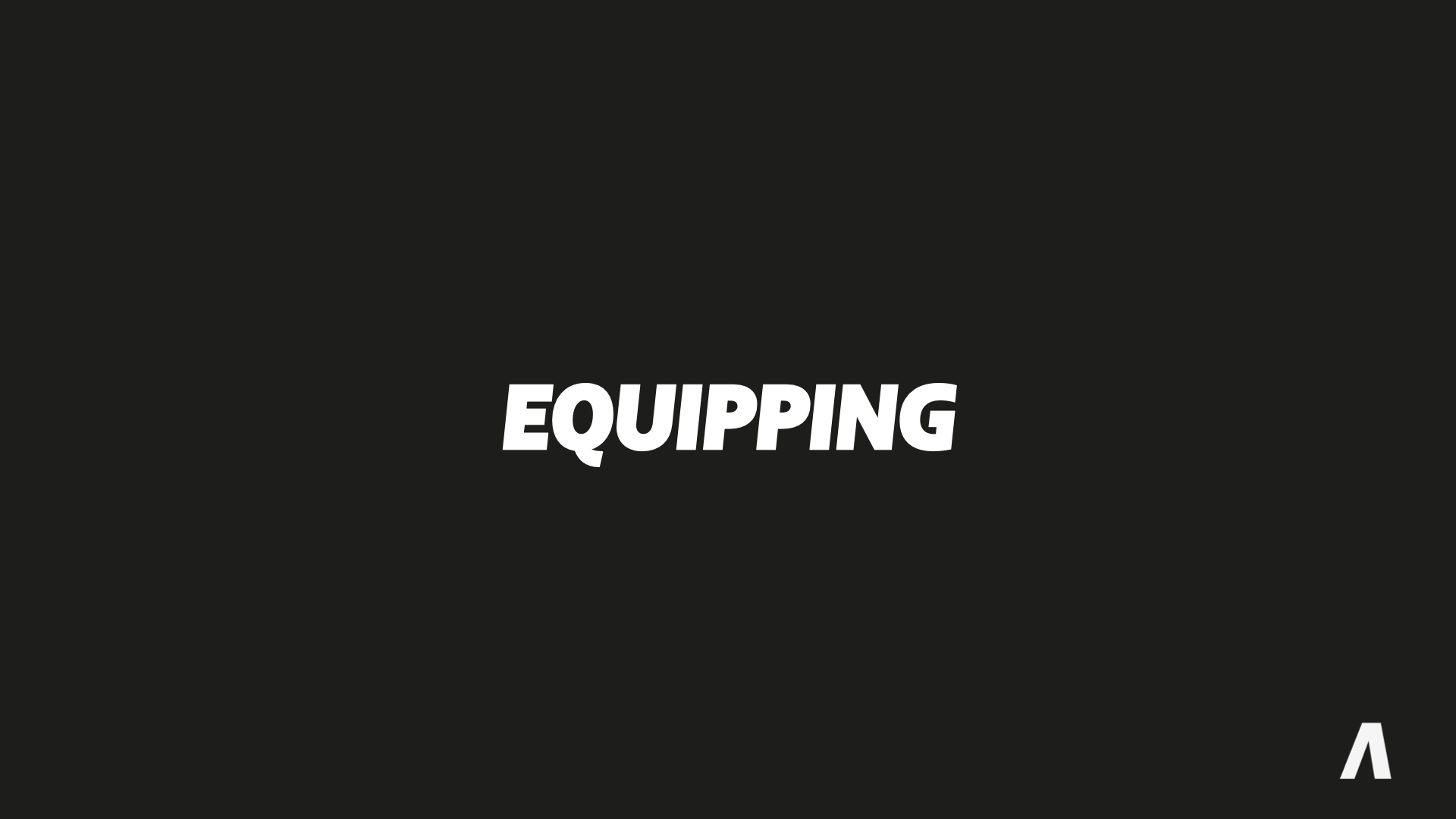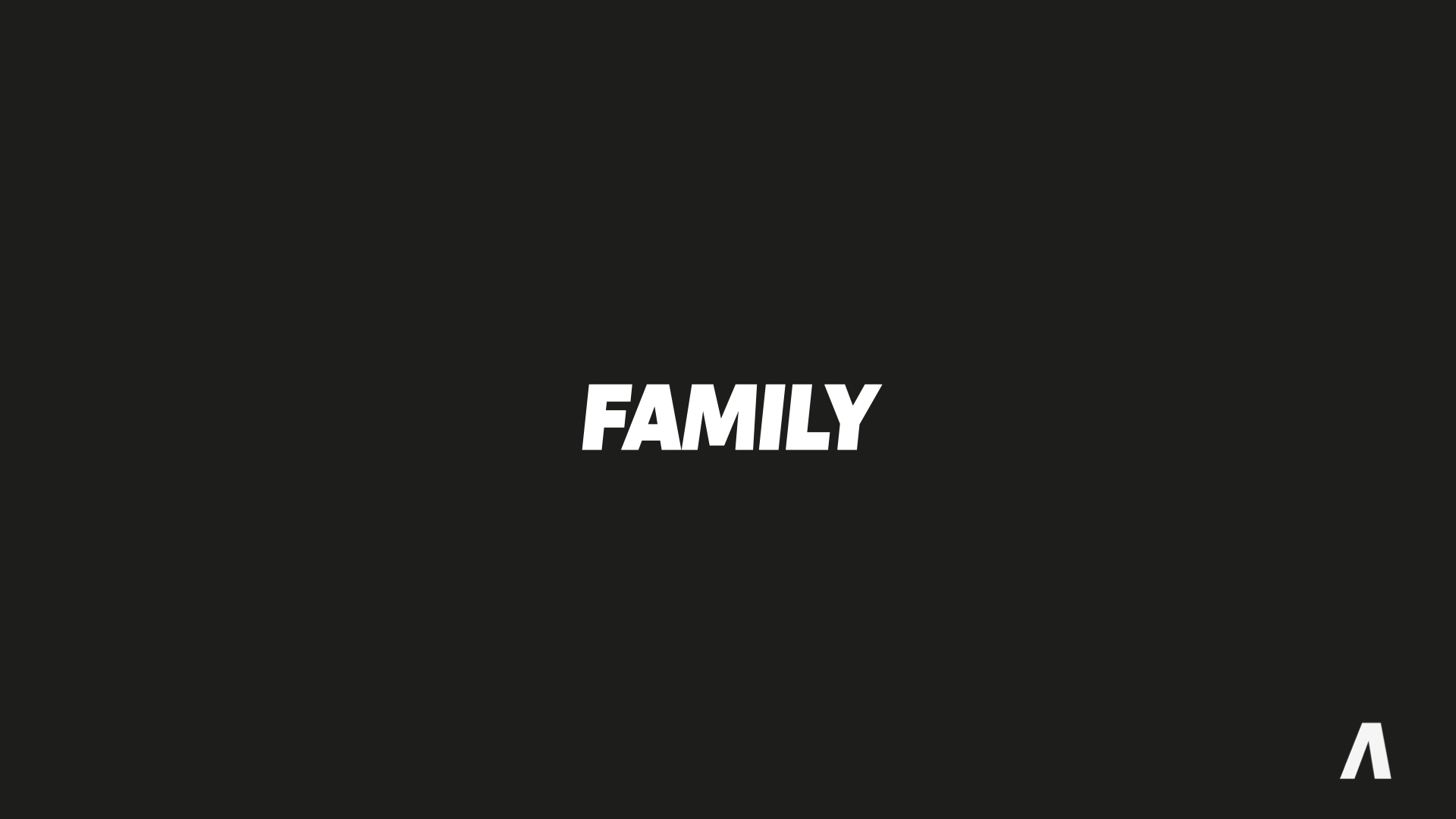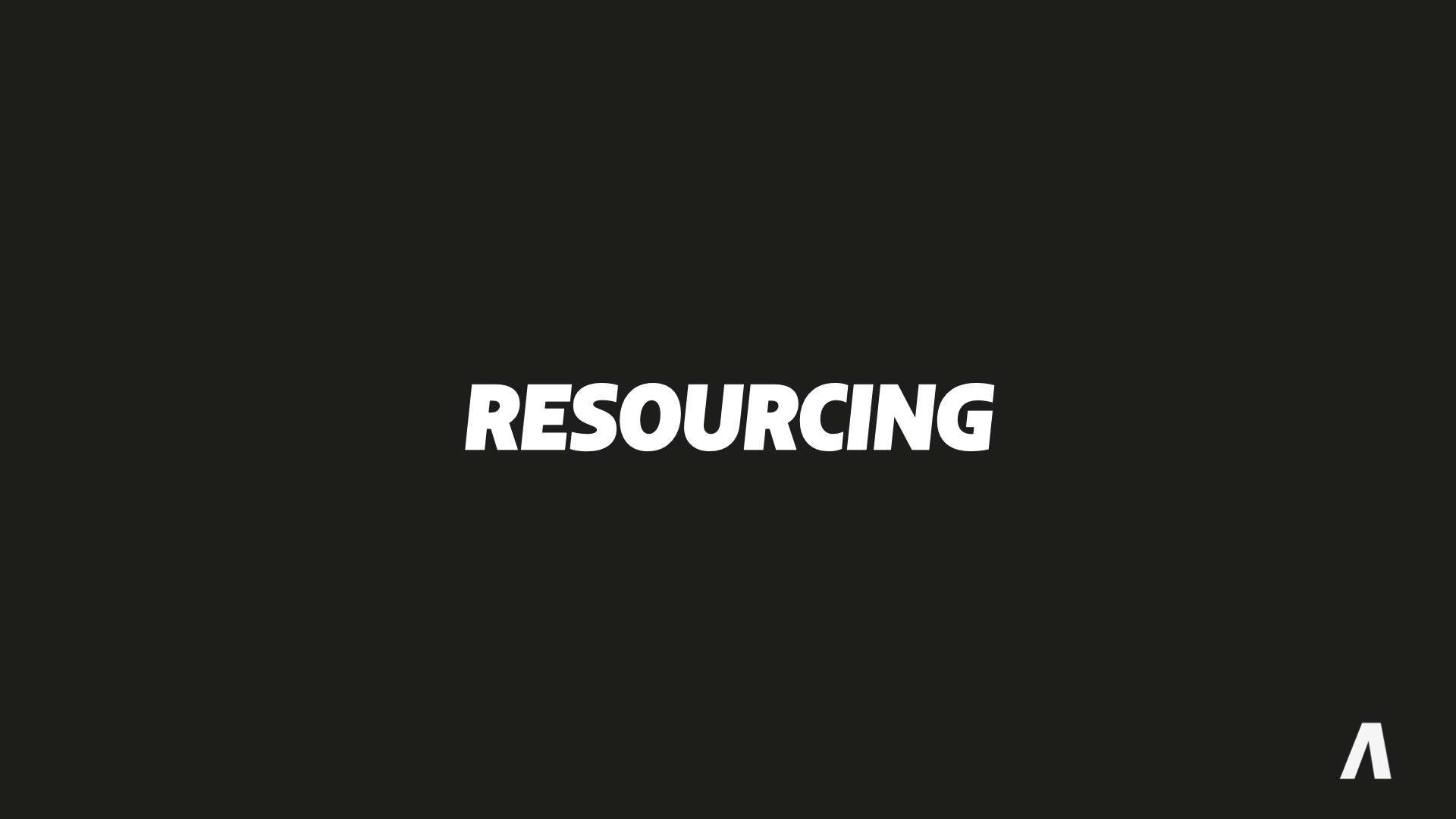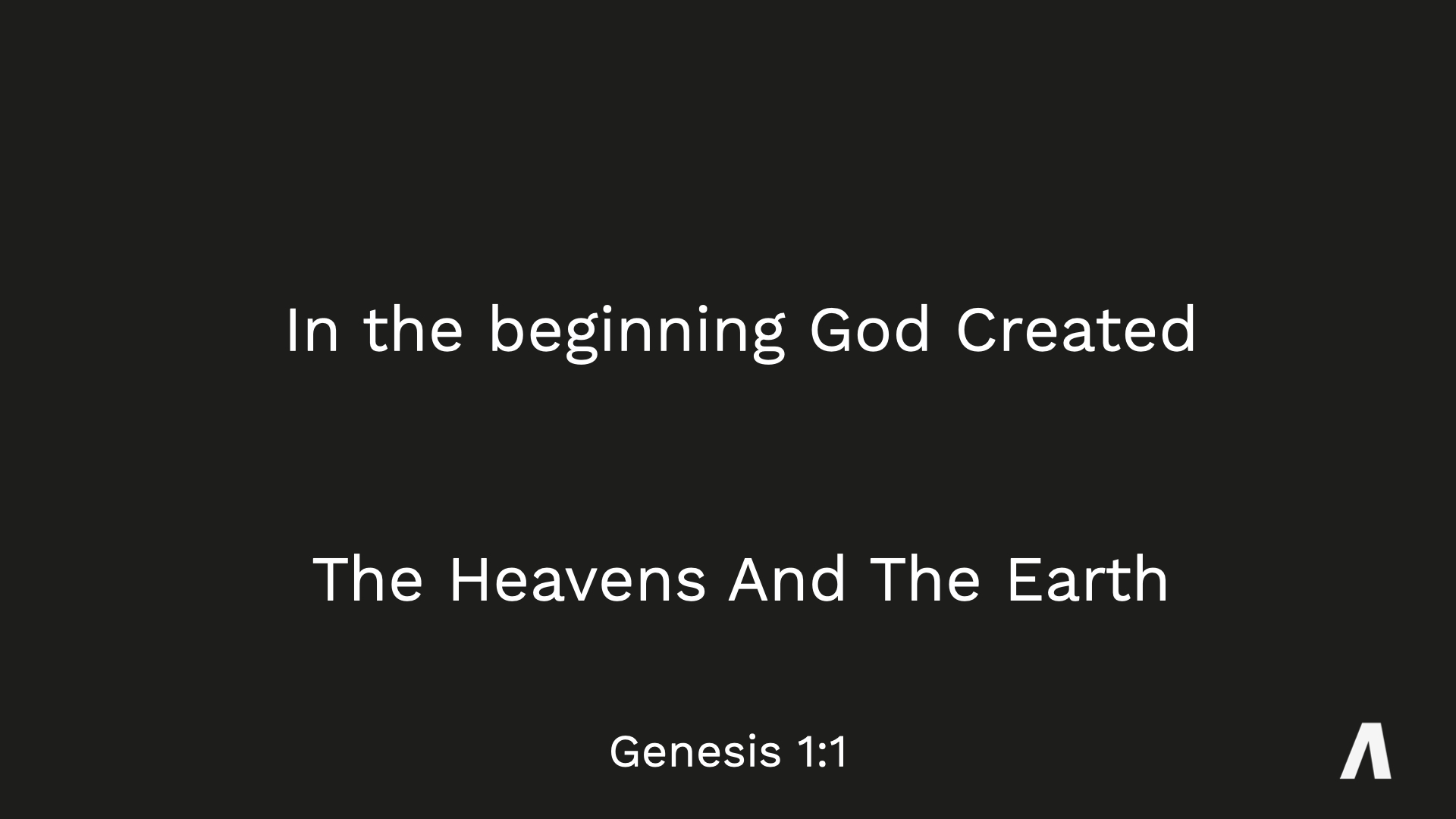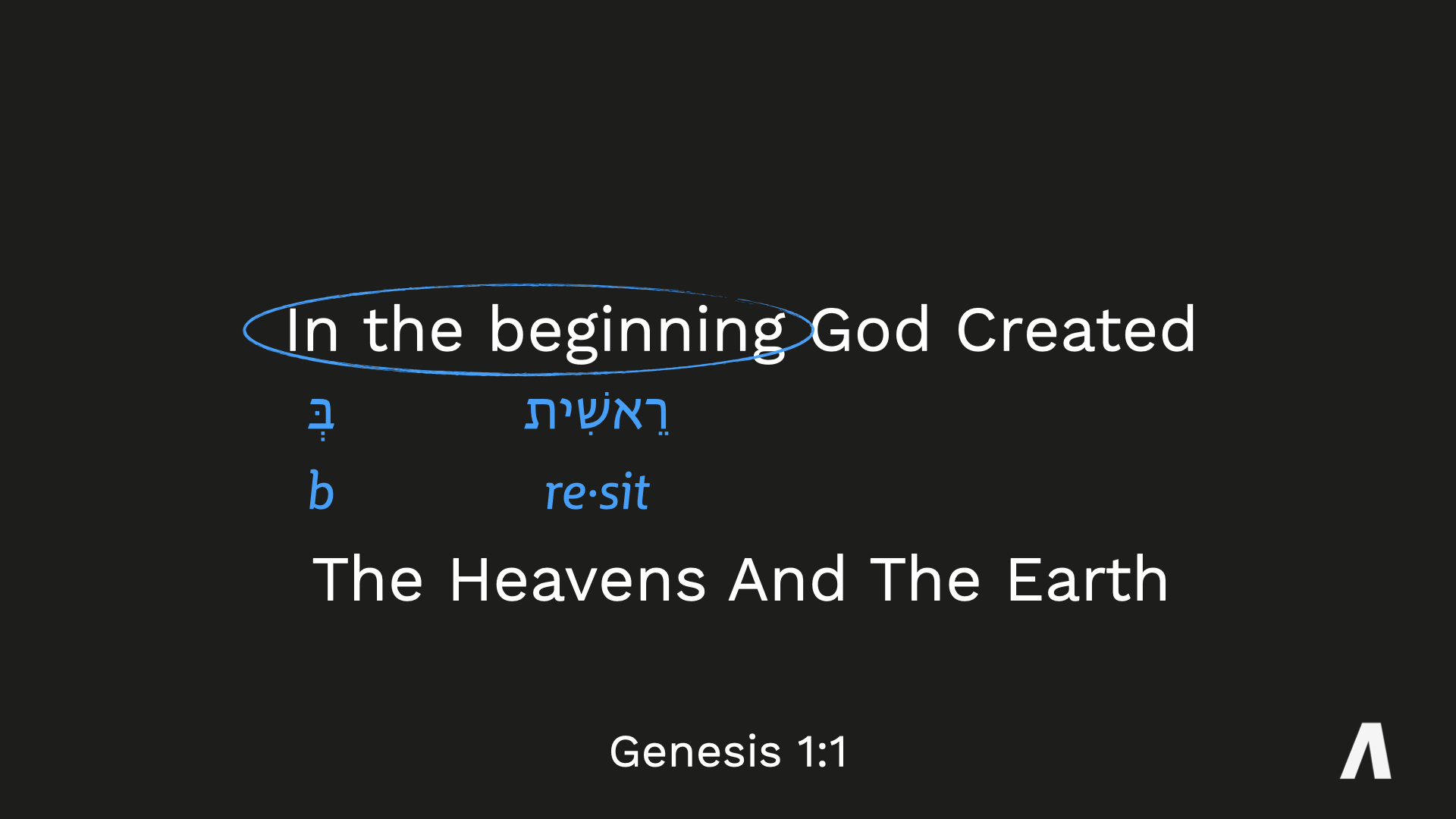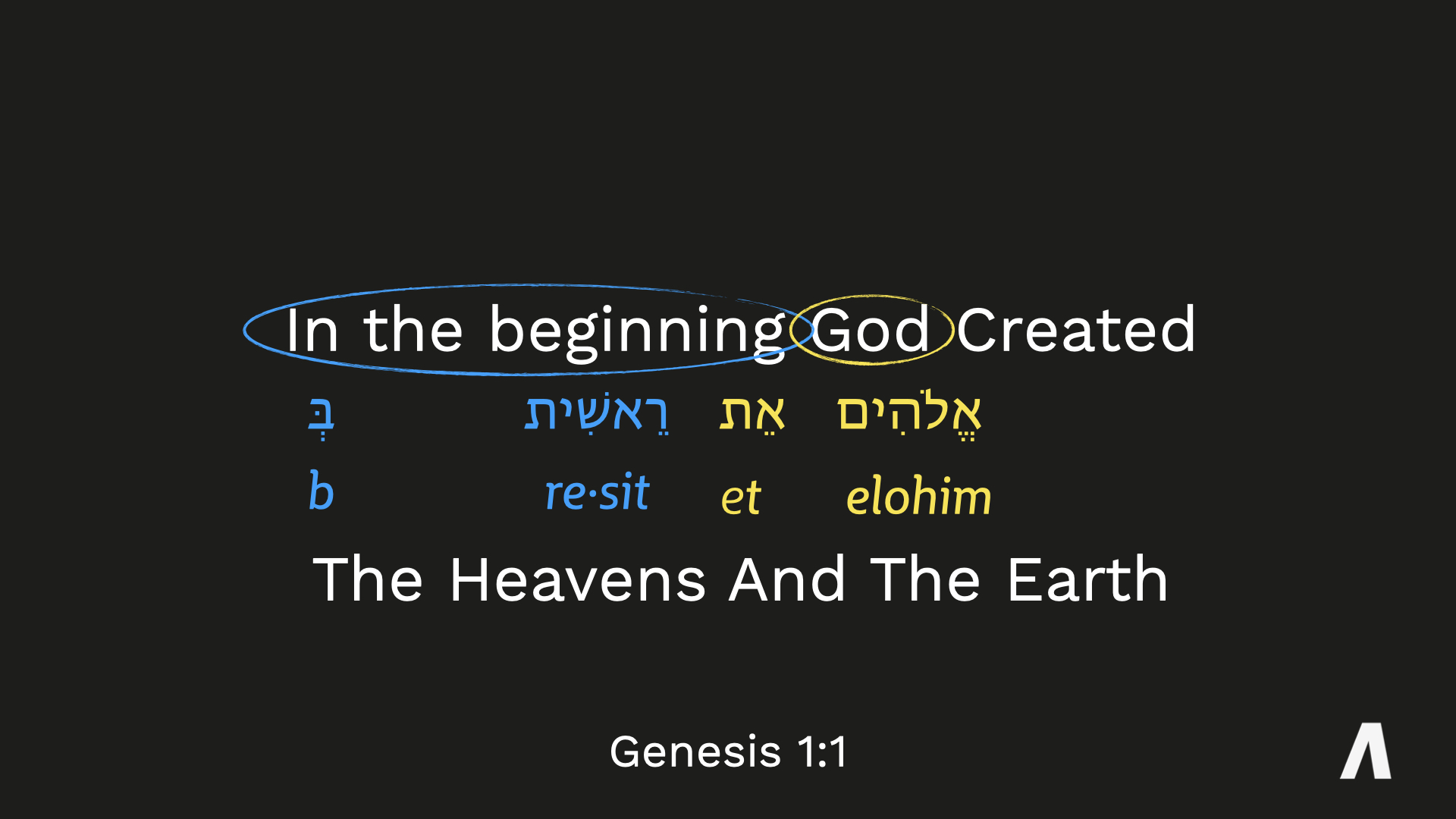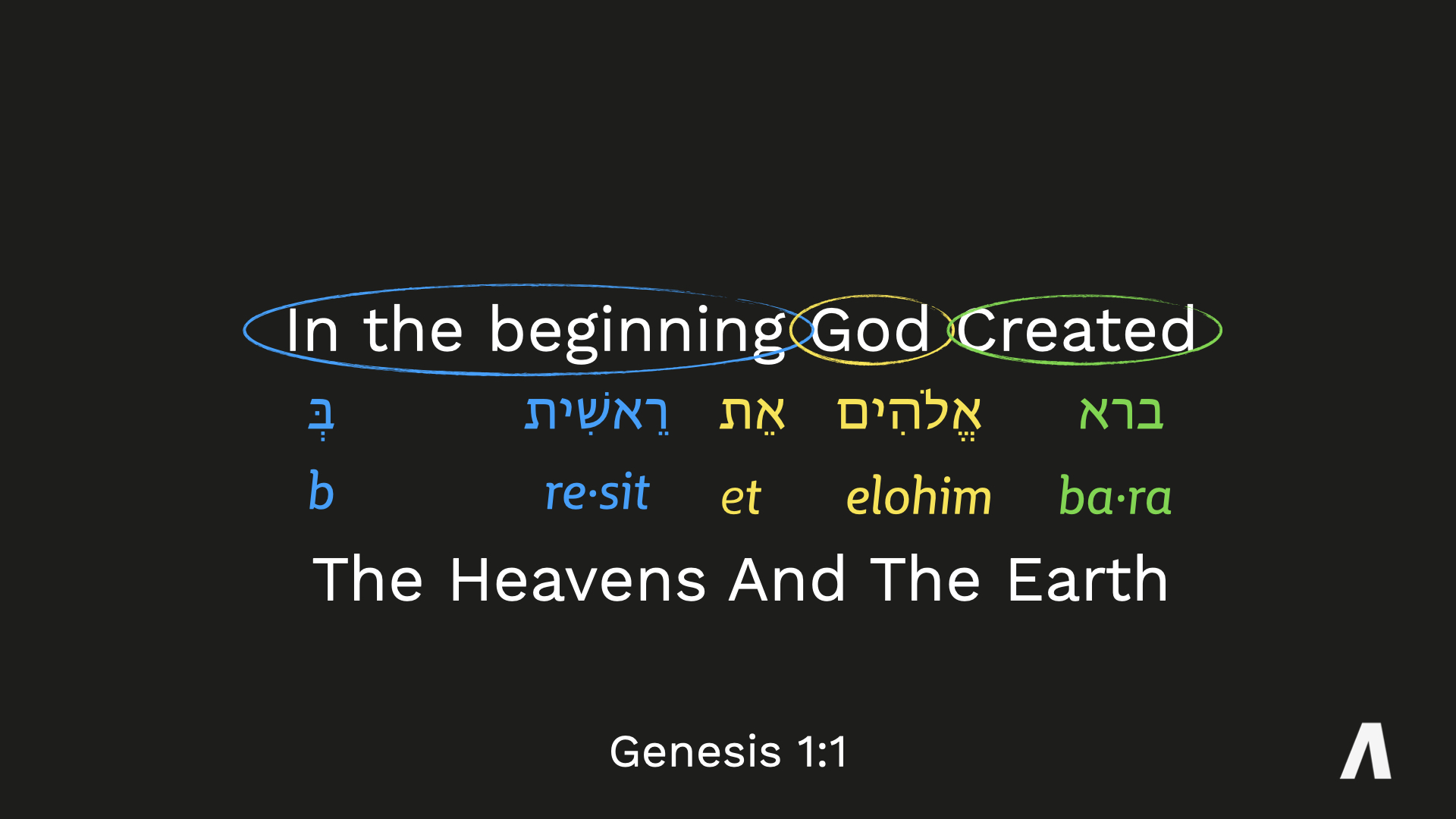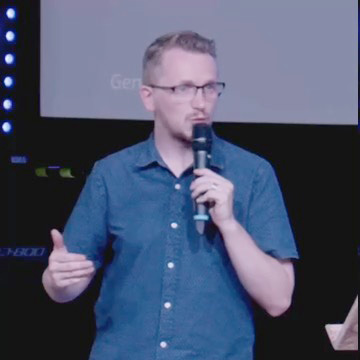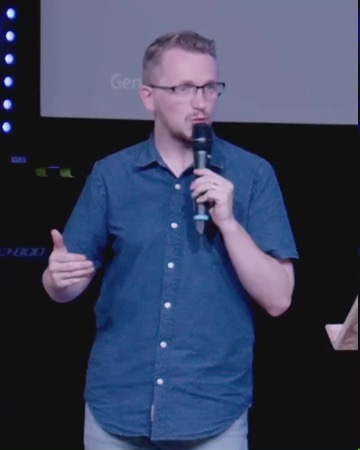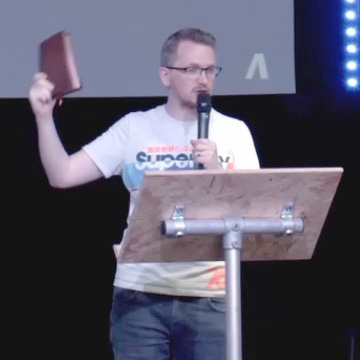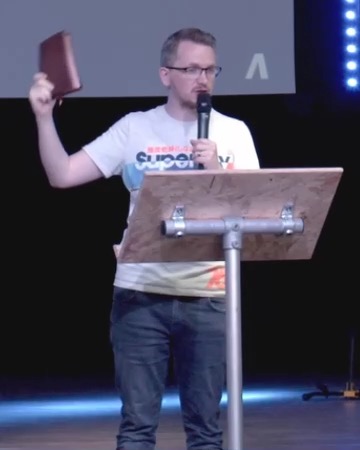What does the bible say about sin? What does the bible say sin is? As we continue in series Unveiled, Dom takes a closer look into where the bible says sin came from and how we can protect ourselves from the lies and deceit of the enemy.
- Bible References:
- Bible Reference:
Genesis 24, Bible Link:
https://www.biblegateway.com/passage/?search=Genesis%2024&version=NIV, Bible Passage:
Abraham was now very old, and the Lord had blessed him in every way. He said to the senior servant in his household, the one in charge of all that he had, “Put your hand under my thigh. I want you to swear by the Lord, the God of heaven and the God of earth, that you will not get a wife for my son from the daughters of the Canaanites, among whom I am living, but will go to my country and my own relatives and get a wife for my son Isaac.”
The servant asked him, “What if the woman is unwilling to come back with me to this land? Shall I then take your son back to the country you came from?”
“Make sure that you do not take my son back there,” Abraham said. “The Lord, the God of heaven, who brought me out of my father’s household and my native land and who spoke to me and promised me on oath, saying, ‘To your offspring I will give this land’—he will send his angel before you so that you can get a wife for my son from there. If the woman is unwilling to come back with you, then you will be released from this oath of mine. Only do not take my son back there.” So the servant put his hand under the thigh of his master Abraham and swore an oath to him concerning this matter.
Then the servant left, taking with him ten of his master’s camels loaded with all kinds of good things from his master. He set out for Aram Naharaim and made his way to the town of Nahor. He had the camels kneel down near the well outside the town; it was toward evening, the time the women go out to draw water.
Then he prayed, “Lord, God of my master Abraham, make me successful today, and show kindness to my master Abraham. See, I am standing beside this spring, and the daughters of the townspeople are coming out to draw water. May it be that when I say to a young woman, ‘Please let down your jar that I may have a drink,’ and she says, ‘Drink, and I’ll water your camels too’—let her be the one you have chosen for your servant Isaac. By this I will know that you have shown kindness to my master.”
Before he had finished praying, Rebekah came out with her jar on her shoulder. She was the daughter of Bethuel son of Milkah, who was the wife of Abraham’s brother Nahor. The woman was very beautiful, a virgin; no man had ever slept with her. She went down to the spring, filled her jar and came up again.
The servant hurried to meet her and said, “Please give me a little water from your jar.”
“Drink, my lord,” she said, and quickly lowered the jar to her hands and gave him a drink.
After she had given him a drink, she said, “I’ll draw water for your camels too, until they have had enough to drink.” So she quickly emptied her jar into the trough, ran back to the well to draw more water, and drew enough for all his camels. Without saying a word, the man watched her closely to learn whether or not the Lord had made his journey successful.
When the camels had finished drinking, the man took out a gold nose ring weighing a beka and two gold bracelets weighing ten shekels. Then he asked, “Whose daughter are you? Please tell me, is there room in your father’s house for us to spend the night?”
She answered him, “I am the daughter of Bethuel, the son that Milkah bore to Nahor.” And she added, “We have plenty of straw and fodder, as well as room for you to spend the night.”
Then the man bowed down and worshiped the Lord, saying, “Praise be to the Lord, the God of my master Abraham, who has not abandoned his kindness and faithfulness to my master. As for me, the Lord has led me on the journey to the house of my master’s relatives.”
The young woman ran and told her mother’s household about these things. Now Rebekah had a brother named Laban, and he hurried out to the man at the spring. As soon as he had seen the nose ring, and the bracelets on his sister’s arms, and had heard Rebekah tell what the man said to her, he went out to the man and found him standing by the camels near the spring. “Come, you who are blessed by the Lord,” he said. “Why are you standing out here? I have prepared the house and a place for the camels.”
So the man went to the house, and the camels were unloaded. Straw and fodder were brought for the camels, and water for him and his men to wash their feet. Then food was set before him, but he said, “I will not eat until I have told you what I have to say.”
“Then tell us,” Laban said.
So he said, “I am Abraham’s servant. The Lord has blessed my master abundantly, and he has become wealthy. He has given him sheep and cattle, silver and gold, male and female servants, and camels and donkeys. My master’s wife Sarah has borne him a son in her old age, and he has given him everything he owns. And my master made me swear an oath, and said, ‘You must not get a wife for my son from the daughters of the Canaanites, in whose land I live, but go to my father’s family and to my own clan, and get a wife for my son.’
“Then I asked my master, ‘What if the woman will not come back with me?’
“He replied, ‘The Lord, before whom I have walked faithfully, will send his angel with you and make your journey a success, so that you can get a wife for my son from my own clan and from my father’s family. You will be released from my oath if, when you go to my clan, they refuse to give her to you—then you will be released from my oath.’
“When I came to the spring today, I said, ‘Lord, God of my master Abraham, if you will, please grant success to the journey on which I have come. See, I am standing beside this spring. If a young woman comes out to draw water and I say to her, “Please let me drink a little water from your jar,” and if she says to me, “Drink, and I’ll draw water for your camels too,” let her be the one the Lord has chosen for my master’s son.’
“Before I finished praying in my heart, Rebekah came out, with her jar on her shoulder. She went down to the spring and drew water, and I said to her, ‘Please give me a drink.’
“She quickly lowered her jar from her shoulder and said, ‘Drink, and I’ll water your camels too.’ So I drank, and she watered the camels also.
“I asked her, ‘Whose daughter are you?’
“She said, ‘The daughter of Bethuel son of Nahor, whom Milkah bore to him.’
“Then I put the ring in her nose and the bracelets on her arms, and I bowed down and worshiped the Lord. I praised the Lord, the God of my master Abraham, who had led me on the right road to get the granddaughter of my master’s brother for his son. Now if you will show kindness and faithfulness to my master, tell me; and if not, tell me, so I may know which way to turn.”
Laban and Bethuel answered, “This is from the Lord; we can say nothing to you one way or the other. Here is Rebekah; take her and go, and let her become the wife of your master’s son, as the Lord has directed.”
When Abraham’s servant heard what they said, he bowed down to the ground before the Lord. Then the servant brought out gold and silver jewelry and articles of clothing and gave them to Rebekah; he also gave costly gifts to her brother and to her mother. Then he and the men who were with him ate and drank and spent the night there.
When they got up the next morning, he said, “Send me on my way to my master.”
But her brother and her mother replied, “Let the young woman remain with us ten days or so; then you may go.”
But he said to them, “Do not detain me, now that the Lord has granted success to my journey. Send me on my way so I may go to my master.”
Then they said, “Let’s call the young woman and ask her about it.” So they called Rebekah and asked her, “Will you go with this man?”
“I will go,” she said.
So they sent their sister Rebekah on her way, along with her nurse and Abraham’s servant and his men. And they blessed Rebekah and said to her,
“Our sister, may you increase
to thousands upon thousands;
may your offspring possess
the cities of their enemies.”
Then Rebekah and her attendants got ready and mounted the camels and went back with the man. So the servant took Rebekah and left.
Now Isaac had come from Beer Lahai Roi, for he was living in the Negev. He went out to the field one evening to meditate, and as he looked up, he saw camels approaching. Rebekah also looked up and saw Isaac. She got down from her camel and asked the servant, “Who is that man in the field coming to meet us?”
“He is my master,” the servant answered. So she took her veil and covered herself.
Then the servant told Isaac all he had done. Isaac brought her into the tent of his mother Sarah, and he married Rebekah. So she became his wife, and he loved her; and Isaac was comforted after his mother’s death.
- Bible Reference:
Genesis 29, Bible Link:
https://www.biblegateway.com/passage/?search=Genesis+29&version=NIV, Bible Passage:
Then Jacob continued on his journey and came to the land of the eastern peoples. There he saw a well in the open country, with three flocks of sheep lying near it because the flocks were watered from that well. The stone over the mouth of the well was large. When all the flocks were gathered there, the shepherds would roll the stone away from the well’s mouth and water the sheep. Then they would return the stone to its place over the mouth of the well.
Jacob asked the shepherds, “My brothers, where are you from?”
“We’re from Harran,” they replied.
He said to them, “Do you know Laban, Nahor’s grandson?”
“Yes, we know him,” they answered.
Then Jacob asked them, “Is he well?”
“Yes, he is,” they said, “and here comes his daughter Rachel with the sheep.”
“Look,” he said, “the sun is still high; it is not time for the flocks to be gathered. Water the sheep and take them back to pasture.”
“We can’t,” they replied, “until all the flocks are gathered and the stone has been rolled away from the mouth of the well. Then we will water the sheep.”
While he was still talking with them, Rachel came with her father’s sheep, for she was a shepherd. When Jacob saw Rachel daughter of his uncle Laban, and Laban’s sheep, he went over and rolled the stone away from the mouth of the well and watered his uncle’s sheep. Then Jacob kissed Rachel and began to weep aloud. He had told Rachel that he was a relative of her father and a son of Rebekah. So she ran and told her father.
As soon as Laban heard the news about Jacob, his sister’s son, he hurried to meet him. He embraced him and kissed him and brought him to his home, and there Jacob told him all these things. Then Laban said to him, “You are my own flesh and blood.”
After Jacob had stayed with him for a whole month, Laban said to him, “Just because you are a relative of mine, should you work for me for nothing? Tell me what your wages should be.”
Now Laban had two daughters; the name of the older was Leah, and the name of the younger was Rachel. Leah had weak eyes, but Rachel had a lovely figure and was beautiful. Jacob was in love with Rachel and said, “I’ll work for you seven years in return for your younger daughter Rachel.”
Laban said, “It’s better that I give her to you than to some other man. Stay here with me.” So Jacob served seven years to get Rachel, but they seemed like only a few days to him because of his love for her.
Then Jacob said to Laban, “Give me my wife. My time is completed, and I want to make love to her.”
So Laban brought together all the people of the place and gave a feast. But when evening came, he took his daughter Leah and brought her to Jacob, and Jacob made love to her. And Laban gave his servant Zilpah to his daughter as her attendant.
When morning came, there was Leah! So Jacob said to Laban, “What is this you have done to me? I served you for Rachel, didn’t I? Why have you deceived me?”
Laban replied, “It is not our custom here to give the younger daughter in marriage before the older one. Finish this daughter’s bridal week; then we will give you the younger one also, in return for another seven years of work.”
And Jacob did so. He finished the week with Leah, and then Laban gave him his daughter Rachel to be his wife. Laban gave his servant Bilhah to his daughter Rachel as her attendant. Jacob made love to Rachel also, and his love for Rachel was greater than his love for Leah. And he worked for Laban another seven years.
When the Lord saw that Leah was not loved, he enabled her to conceive, but Rachel remained childless. Leah became pregnant and gave birth to a son. She named him Reuben, for she said, “It is because the Lord has seen my misery. Surely my husband will love me now.”
She conceived again, and when she gave birth to a son she said, “Because the Lord heard that I am not loved, he gave me this one too.” So she named him Simeon.
Again she conceived, and when she gave birth to a son she said, “Now at last my husband will become attached to me, because I have borne him three sons.” So he was named Levi.
She conceived again, and when she gave birth to a son she said, “This time I will praise the Lord.” So she named him Judah. Then she stopped having children.
- Bible Reference:
John 4:1-42, Bible Link:
https://www.biblegateway.com/passage/?search=John+4%3A1-42&version=NIV, Bible Passage:
Now Jesus learned that the Pharisees had heard that he was gaining and baptizing more disciples than John— although in fact it was not Jesus who baptized, but his disciples. So he left Judea and went back once more to Galilee.
Now he had to go through Samaria. So he came to a town in Samaria called Sychar, near the plot of ground Jacob had given to his son Joseph. Jacob’s well was there, and Jesus, tired as he was from the journey, sat down by the well. It was about noon.
When a Samaritan woman came to draw water, Jesus said to her, “Will you give me a drink?” (His disciples had gone into the town to buy food.)
The Samaritan woman said to him, “You are a Jew and I am a Samaritan woman. How can you ask me for a drink?” (For Jews do not associate with Samaritans.)
Jesus answered her, “If you knew the gift of God and who it is that asks you for a drink, you would have asked him and he would have given you living water.”
“Sir,” the woman said, “you have nothing to draw with and the well is deep. Where can you get this living water? Are you greater than our father Jacob, who gave us the well and drank from it himself, as did also his sons and his livestock?”
Jesus answered, “Everyone who drinks this water will be thirsty again, but whoever drinks the water I give them will never thirst. Indeed, the water I give them will become in them a spring of water welling up to eternal life.”
The woman said to him, “Sir, give me this water so that I won’t get thirsty and have to keep coming here to draw water.”
He told her, “Go, call your husband and come back.”
“I have no husband,” she replied.
Jesus said to her, “You are right when you say you have no husband. The fact is, you have had five husbands, and the man you now have is not your husband. What you have just said is quite true.”
“Sir,” the woman said, “I can see that you are a prophet. Our ancestors worshiped on this mountain, but you Jews claim that the place where we must worship is in Jerusalem.”
“Woman,” Jesus replied, “believe me, a time is coming when you will worship the Father neither on this mountain nor in Jerusalem. You Samaritans worship what you do not know; we worship what we do know, for salvation is from the Jews. Yet a time is coming and has now come when the true worshipers will worship the Father in the Spirit and in truth, for they are the kind of worshipers the Father seeks. God is spirit, and his worshipers must worship in the Spirit and in truth.”
The woman said, “I know that Messiah” (called Christ) “is coming. When he comes, he will explain everything to us.”
Then Jesus declared, “I, the one speaking to you—I am he.”
Just then his disciples returned and were surprised to find him talking with a woman. But no one asked, “What do you want?” or “Why are you talking with her?”
Then, leaving her water jar, the woman went back to the town and said to the people, “Come, see a man who told me everything I ever did. Could this be the Messiah?” They came out of the town and made their way toward him.
Meanwhile his disciples urged him, “Rabbi, eat something.”
But he said to them, “I have food to eat that you know nothing about.”
Then his disciples said to each other, “Could someone have brought him food?”
“My food,” said Jesus, “is to do the will of him who sent me and to finish his work. Don’t you have a saying, ‘It’s still four months until harvest’? I tell you, open your eyes and look at the fields! They are ripe for harvest. Even now the one who reaps draws a wage and harvests a crop for eternal life, so that the sower and the reaper may be glad together. Thus the saying ‘One sows and another reaps’ is true. I sent you to reap what you have not worked for. Others have done the hard work, and you have reaped the benefits of their labor.”
Many of the Samaritans from that town believed in him because of the woman’s testimony, “He told me everything I ever did.” So when the Samaritans came to him, they urged him to stay with them, and he stayed two days. And because of his words many more became believers.
They said to the woman, “We no longer believe just because of what you said; now we have heard for ourselves, and we know that this man really is the Savior of the world.”
- Episode Slides:
- Slide:

- Slide:
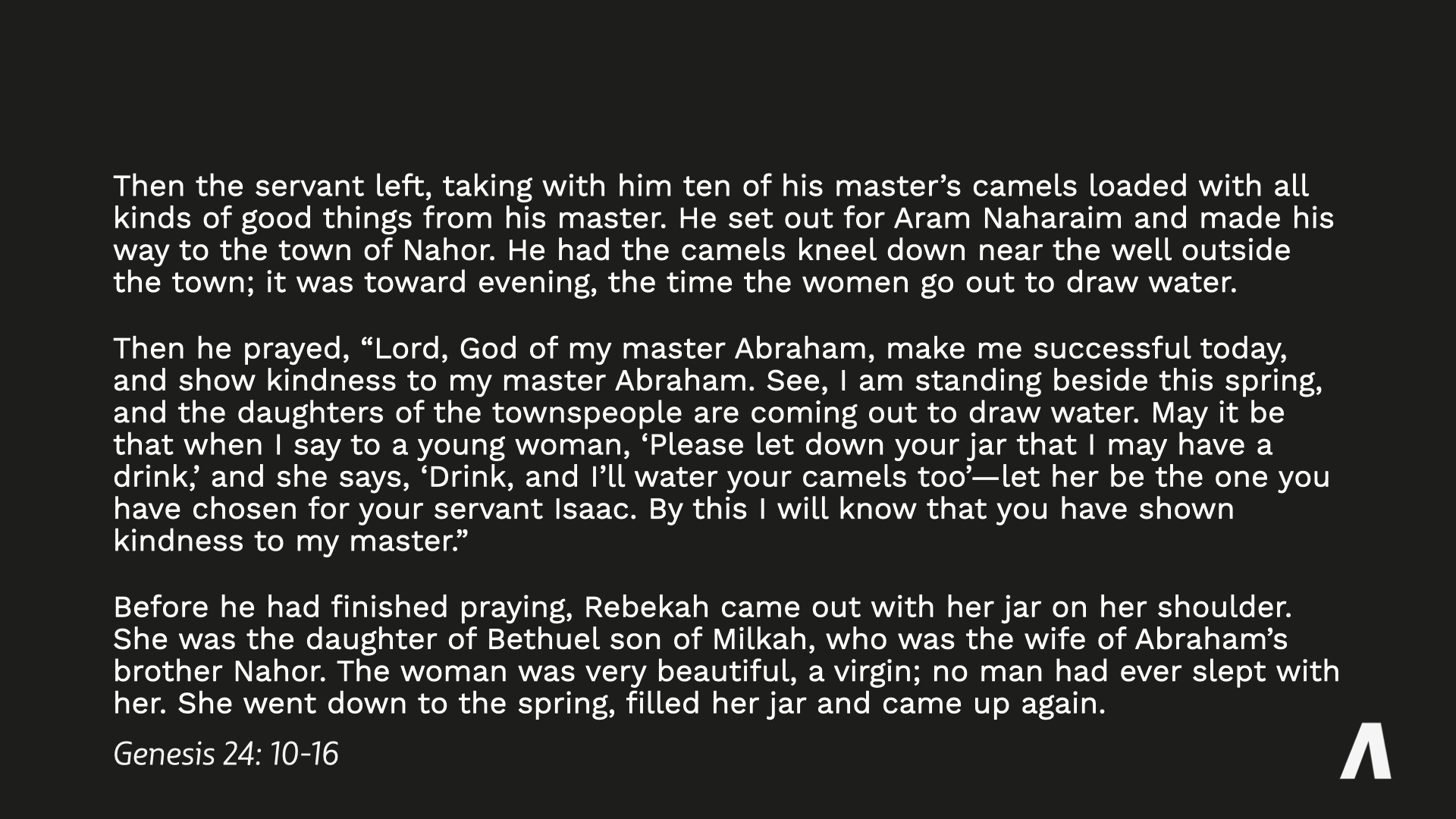
- Slide:
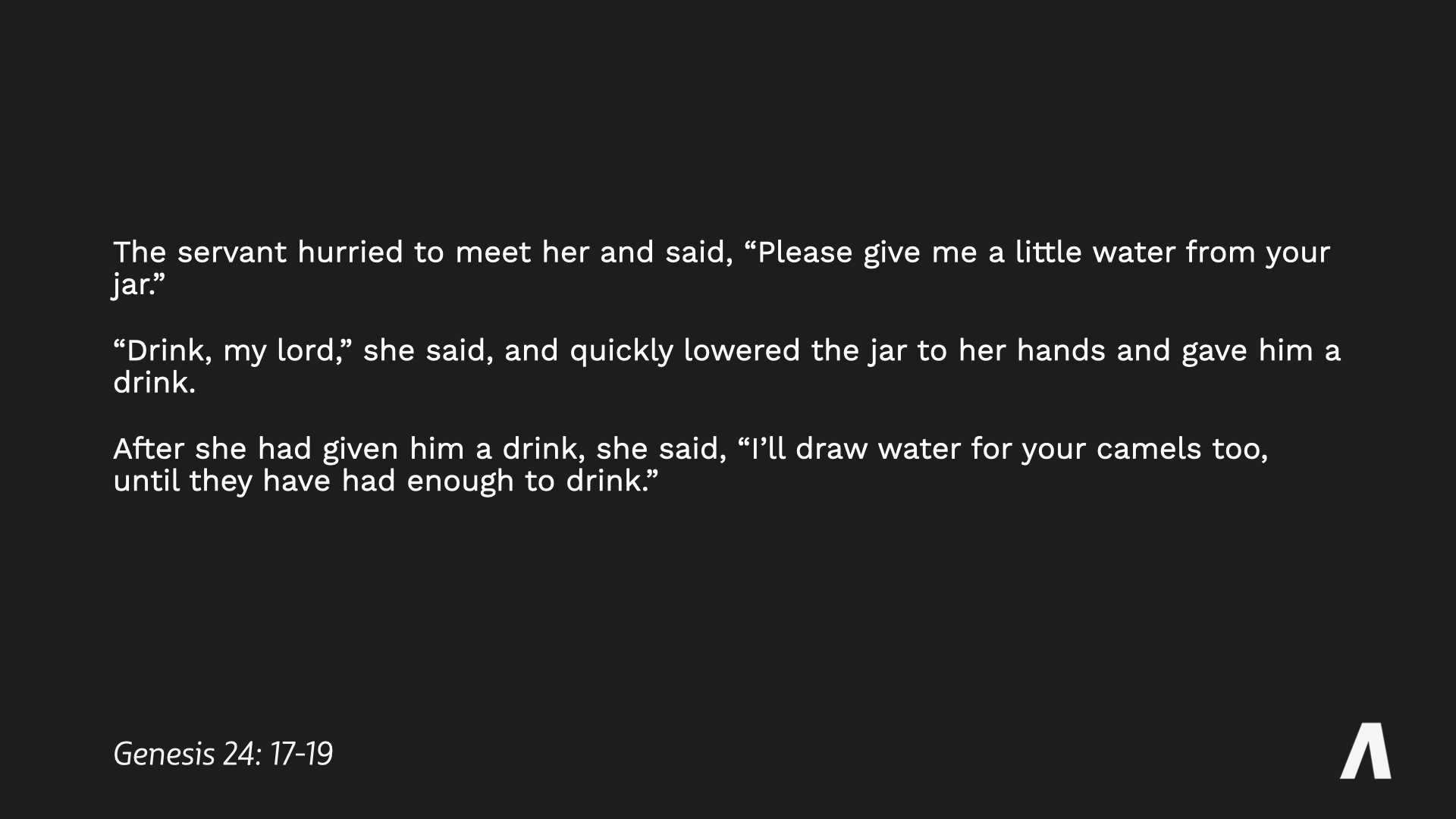
- Slide:
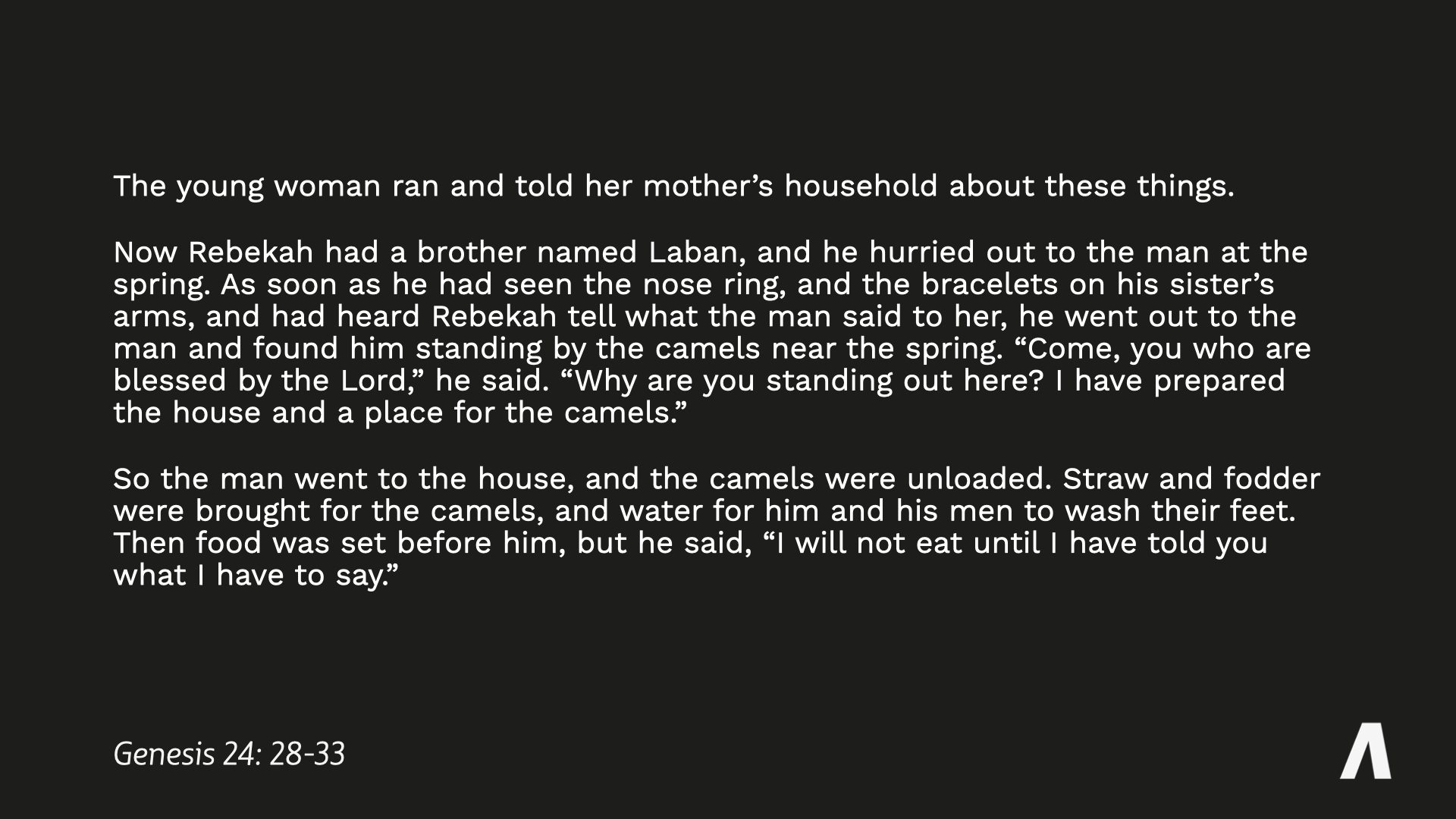
- Slide:
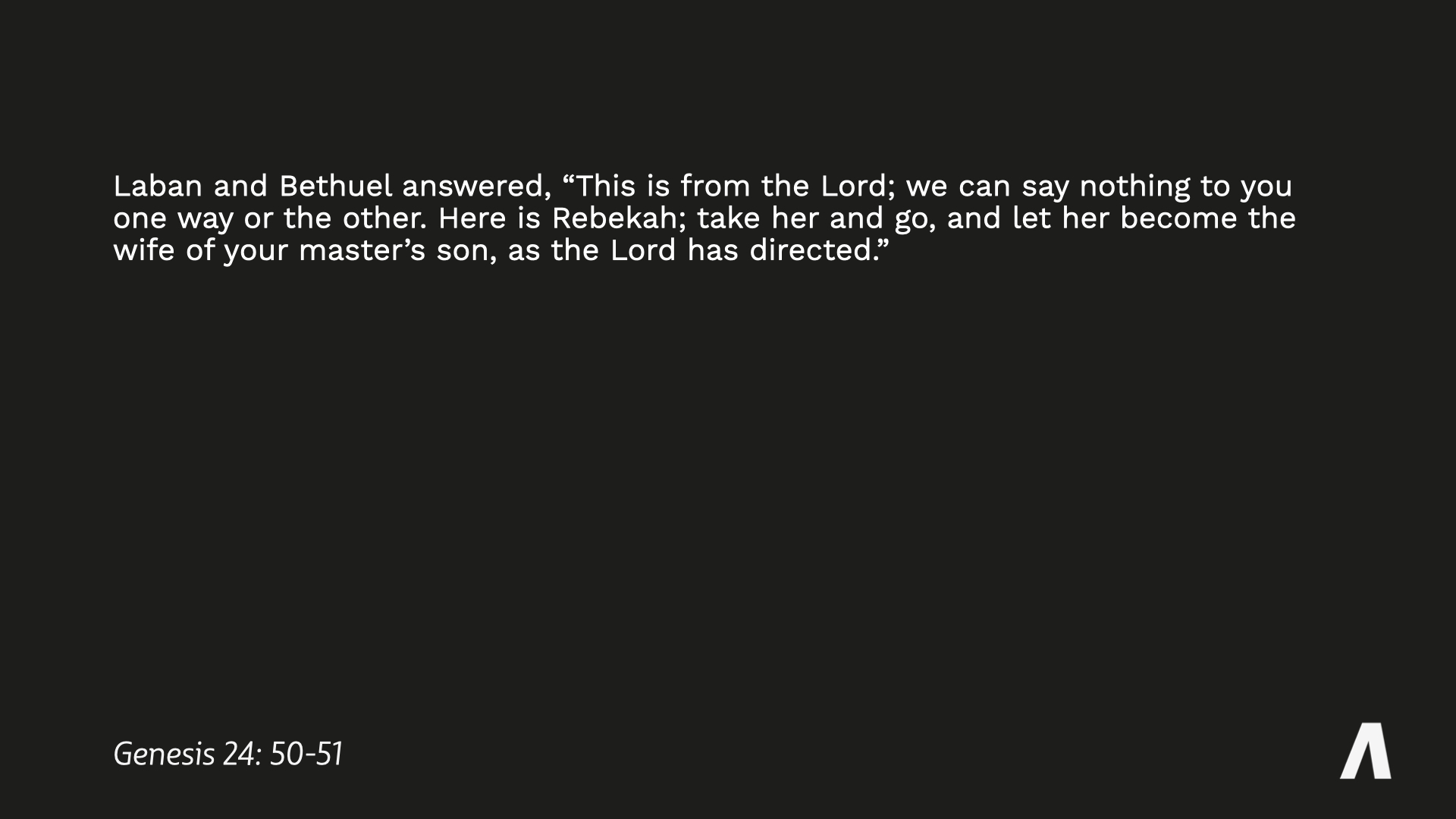
- Slide:
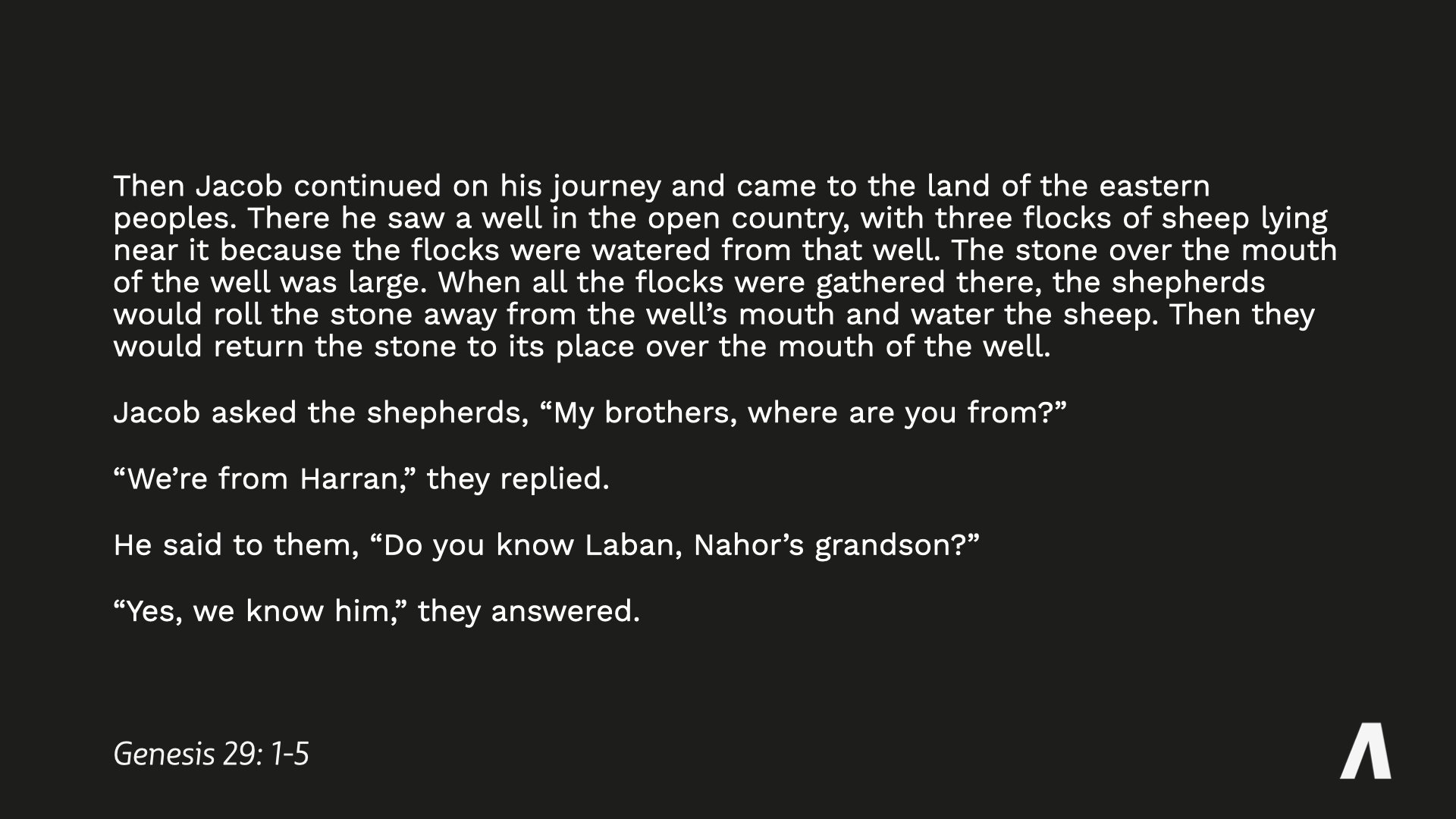
- Slide:
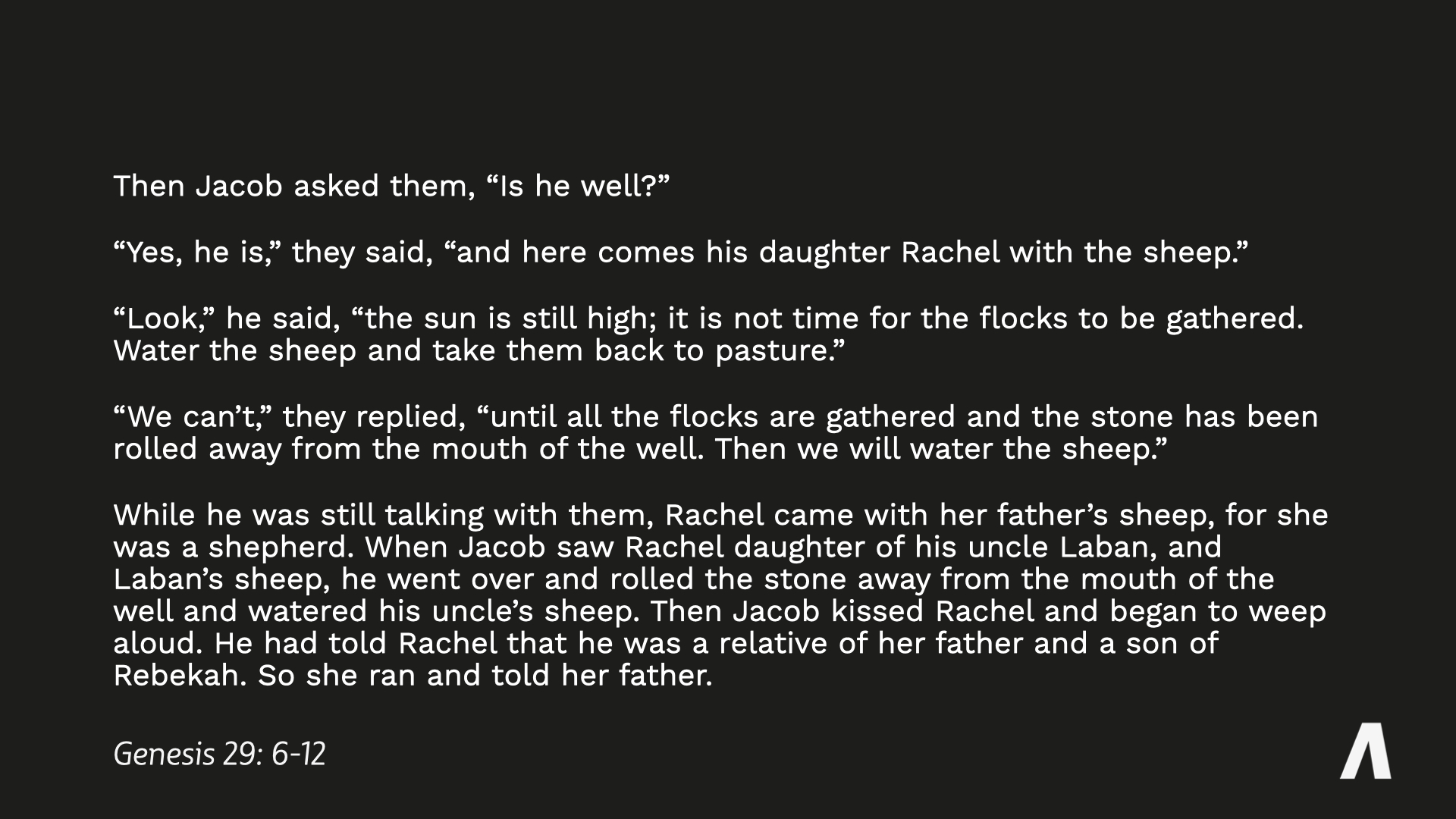
- Slide:
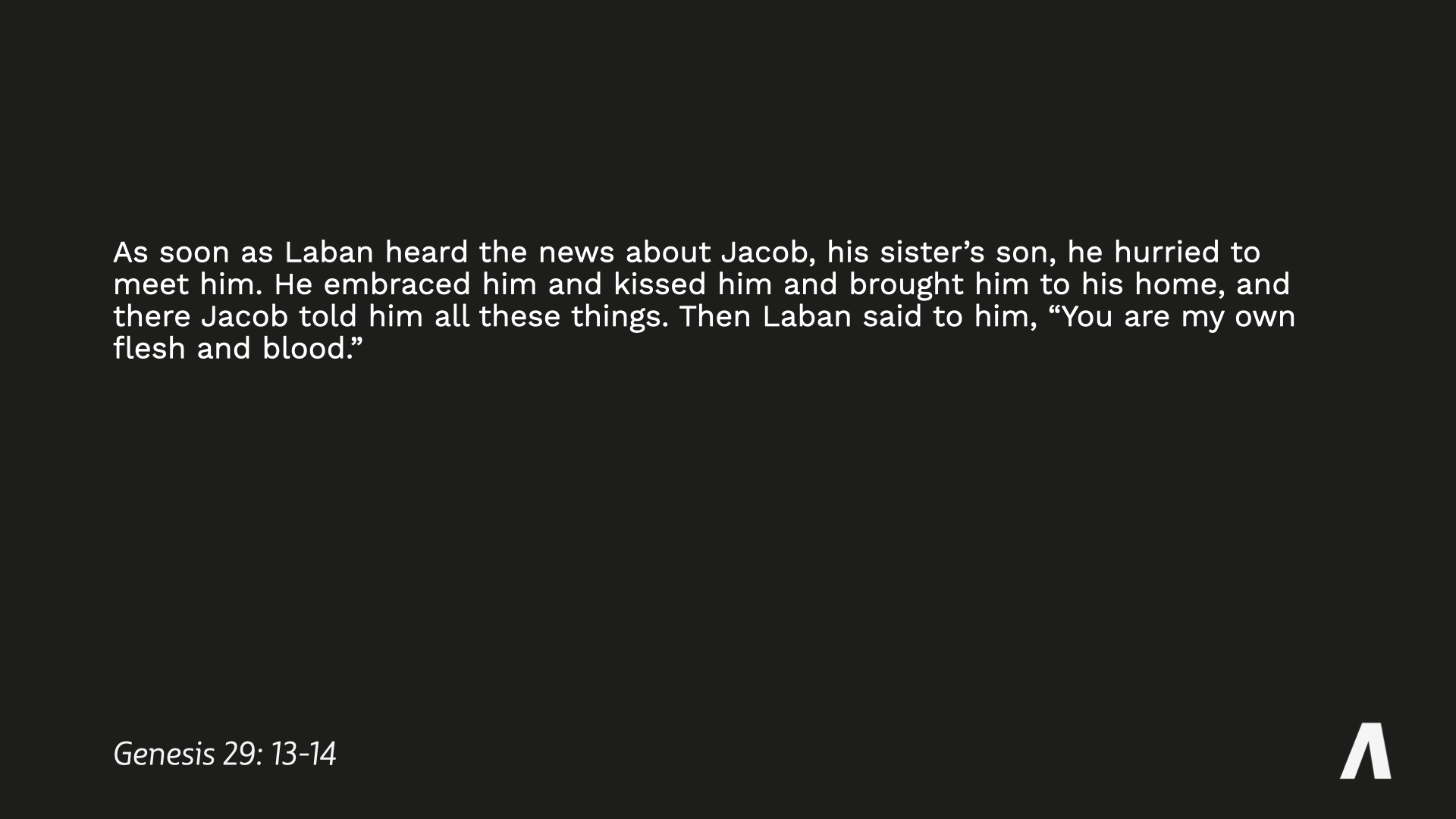
- Slide:

- Slide:
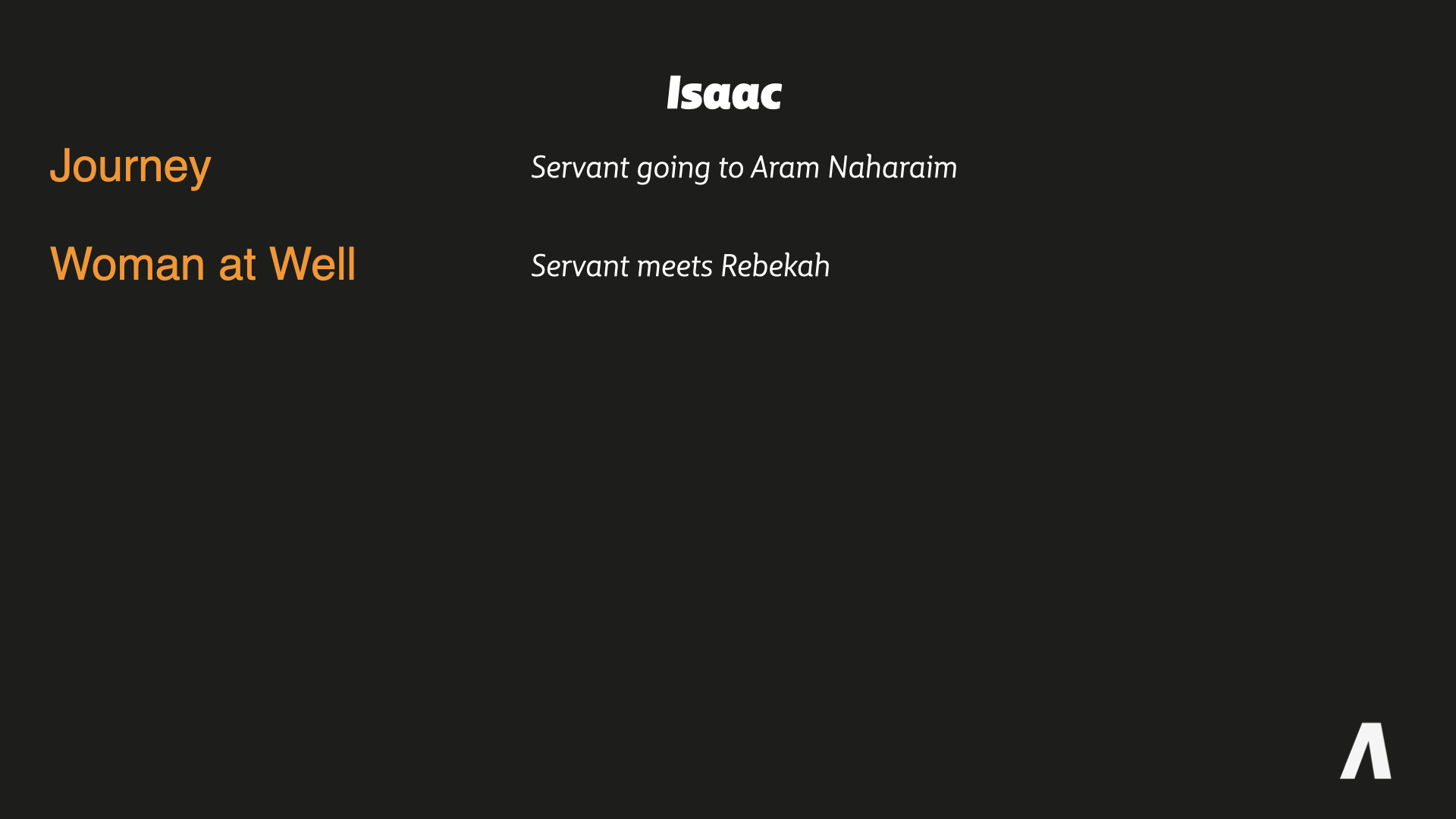
- Slide:
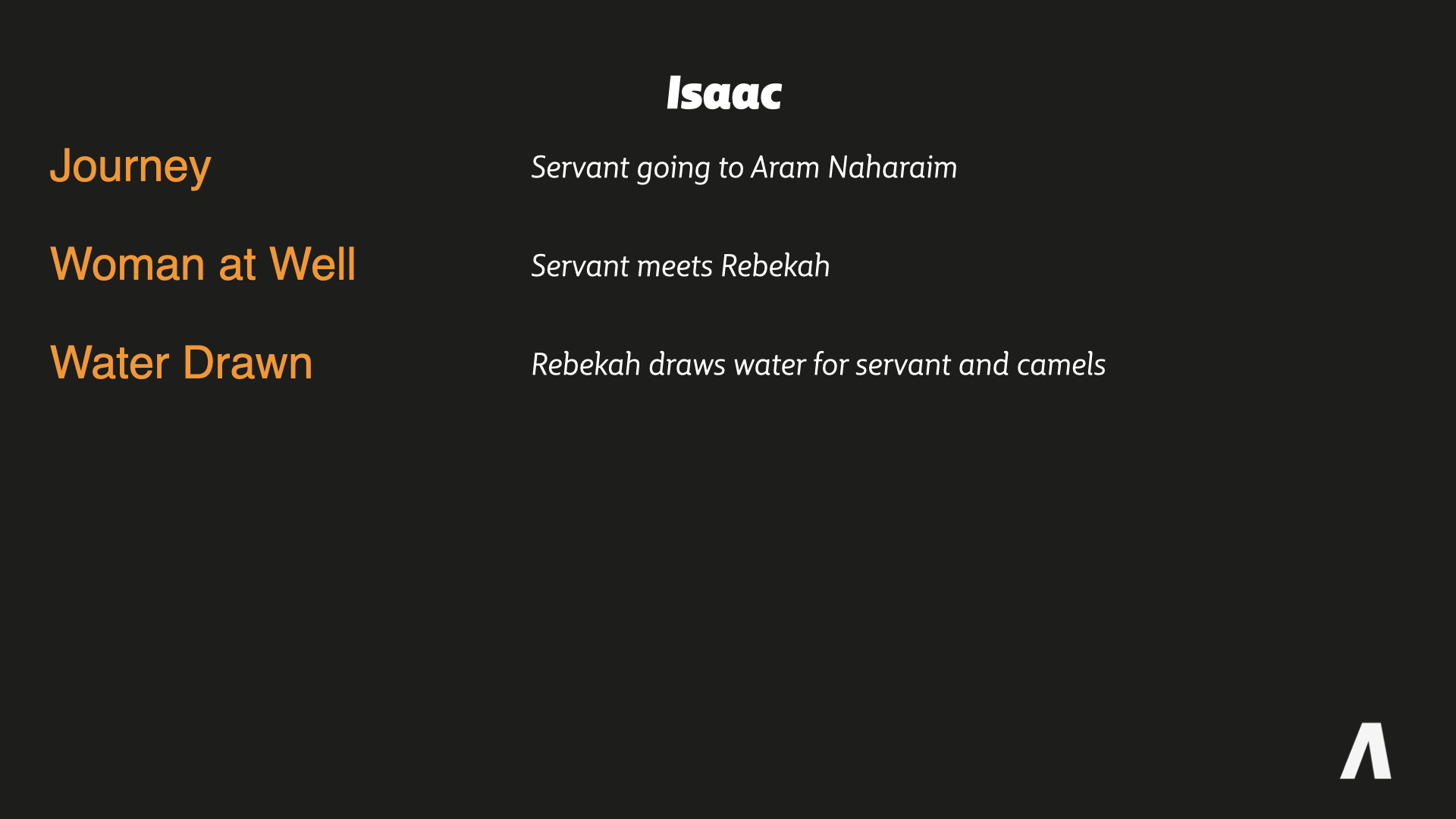
- Slide:
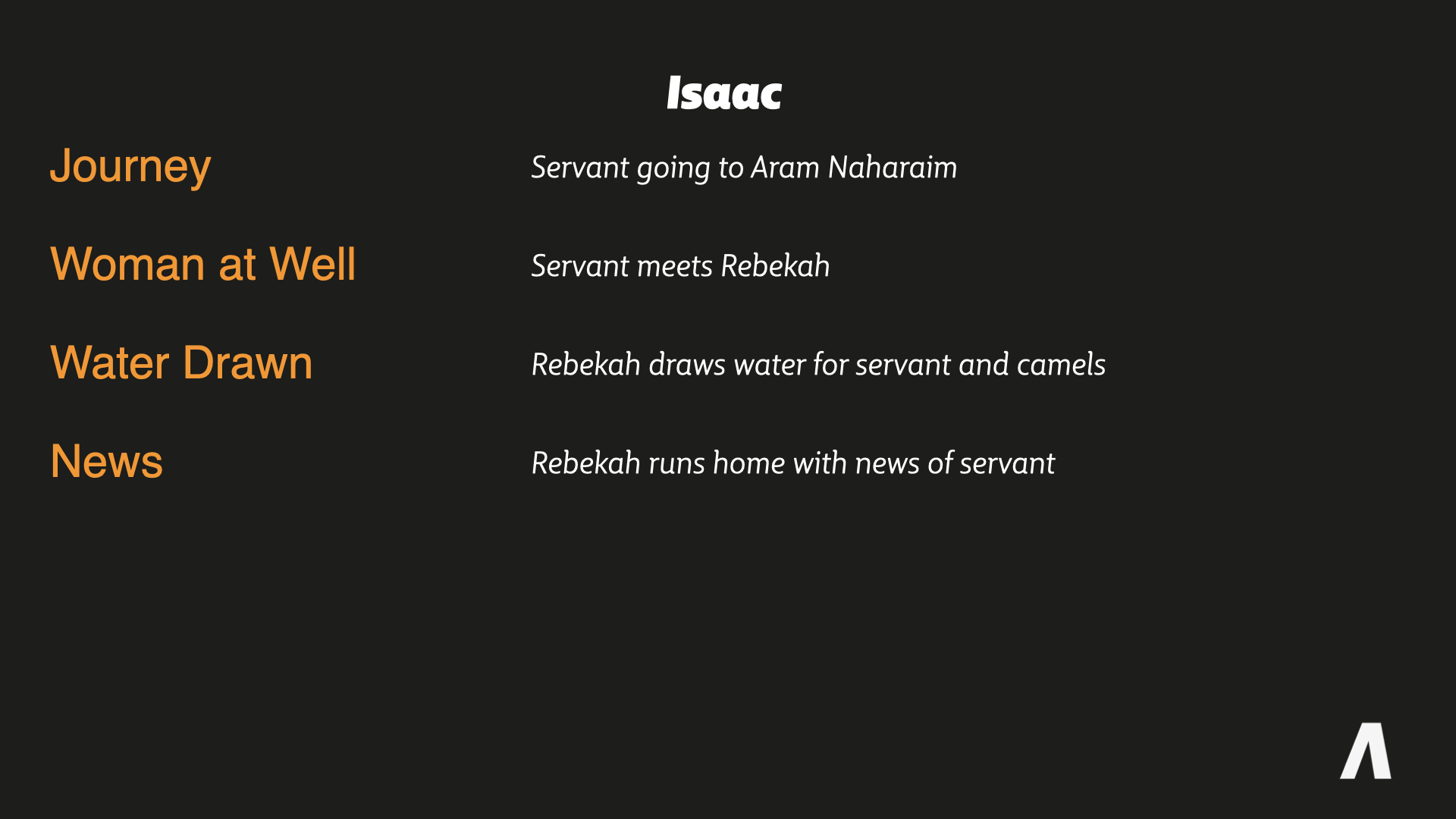
- Slide:
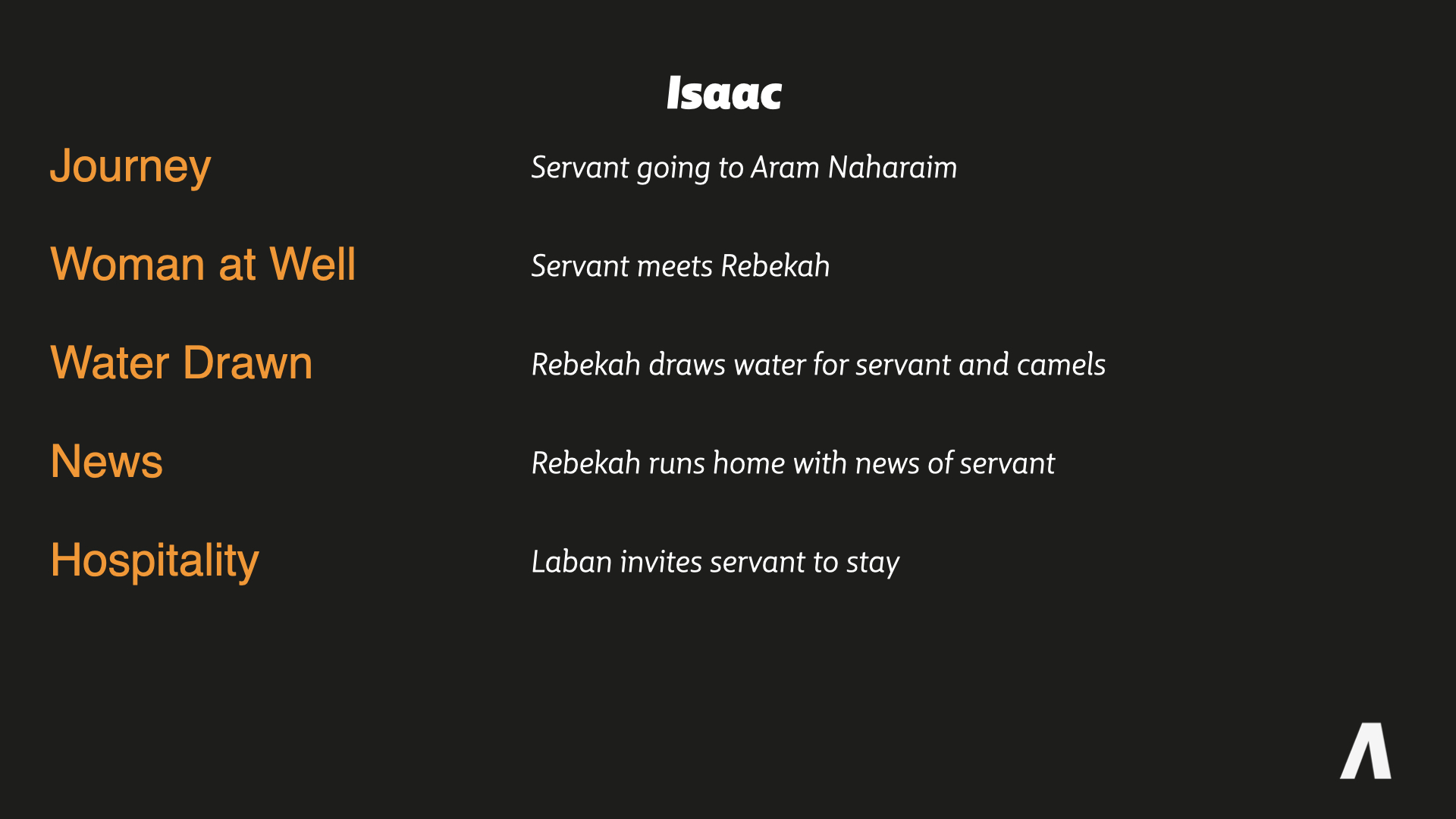
- Slide:
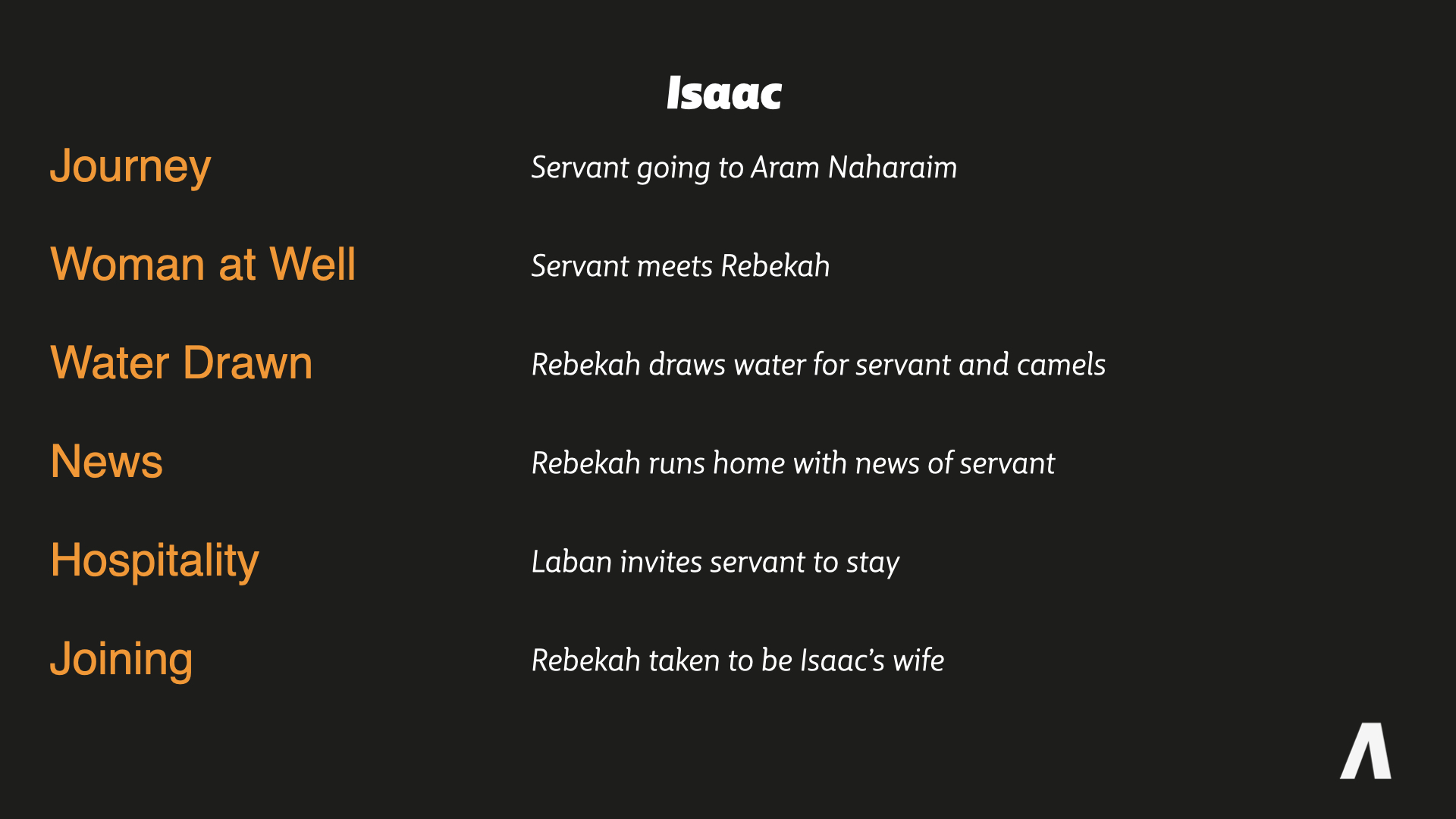
- Slide:
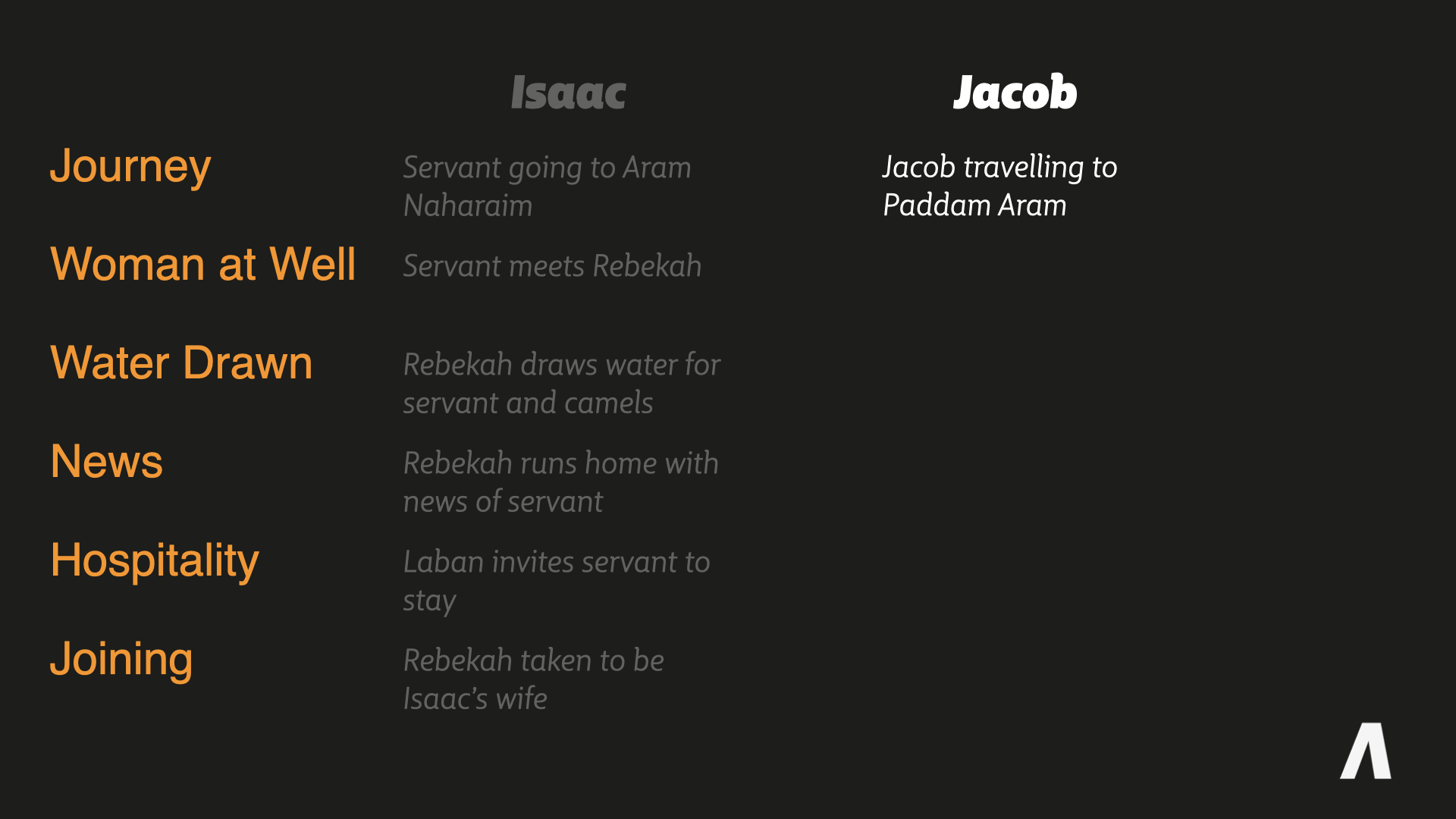
- Slide:
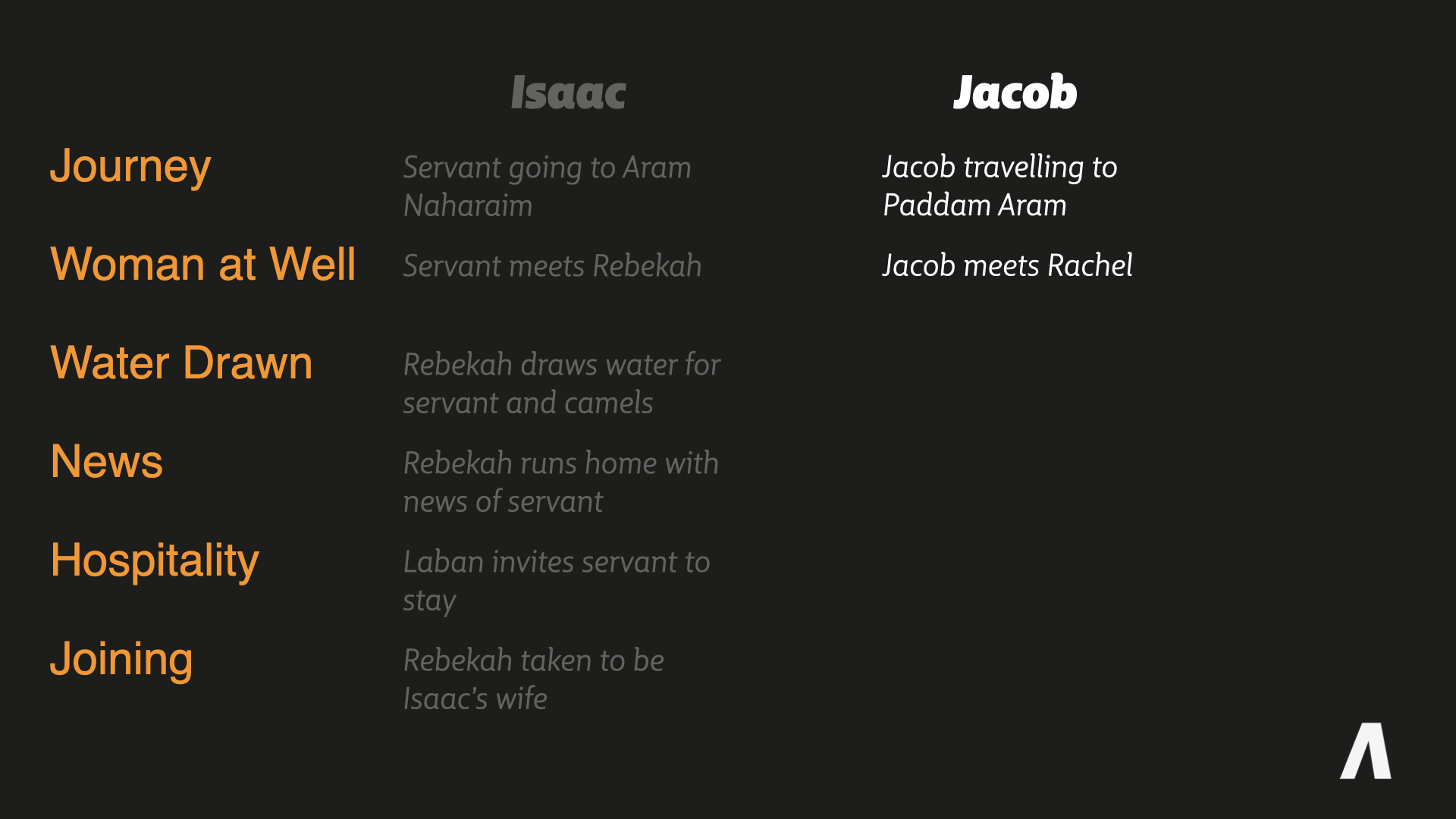
- Slide:
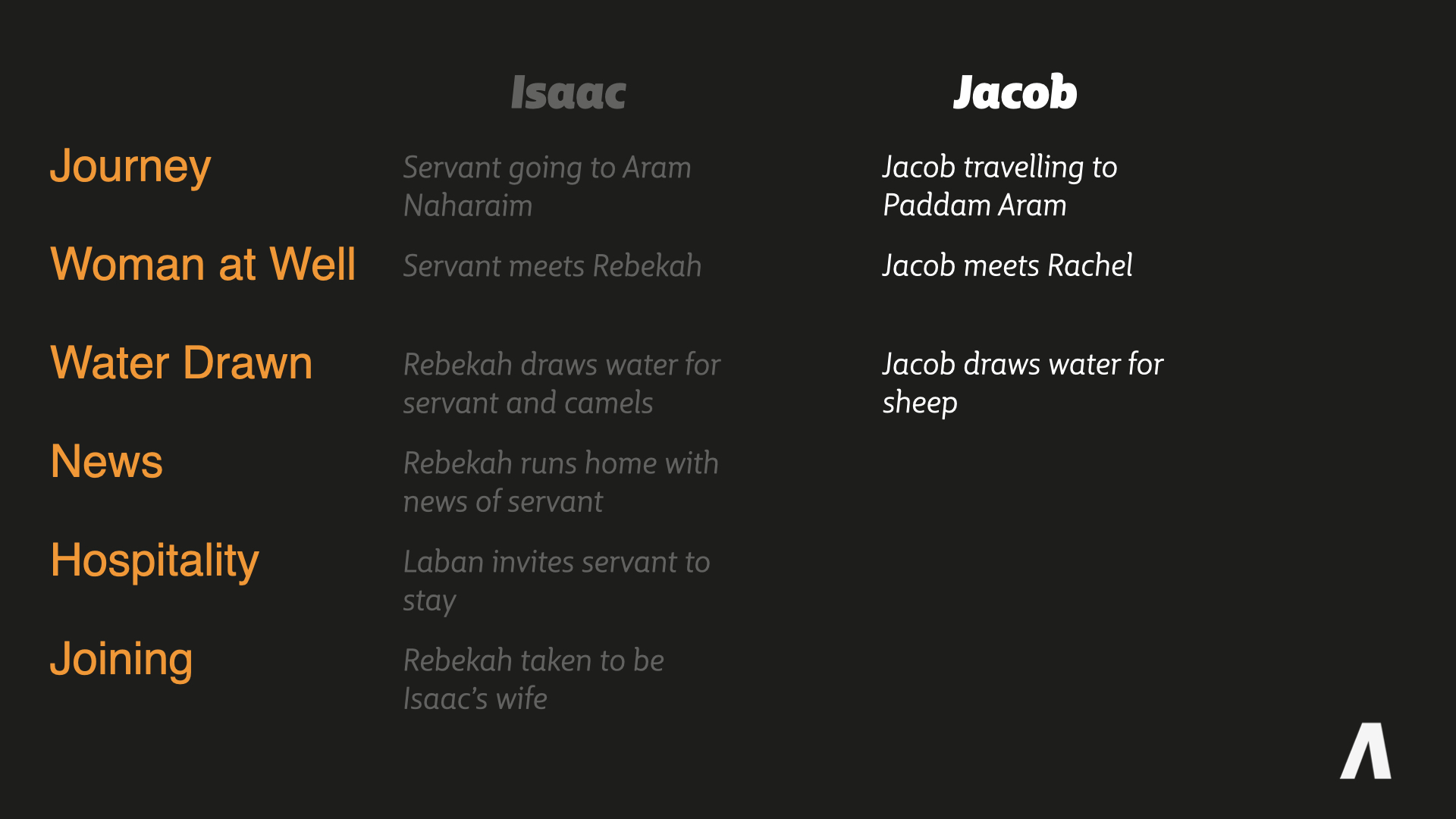
- Slide:
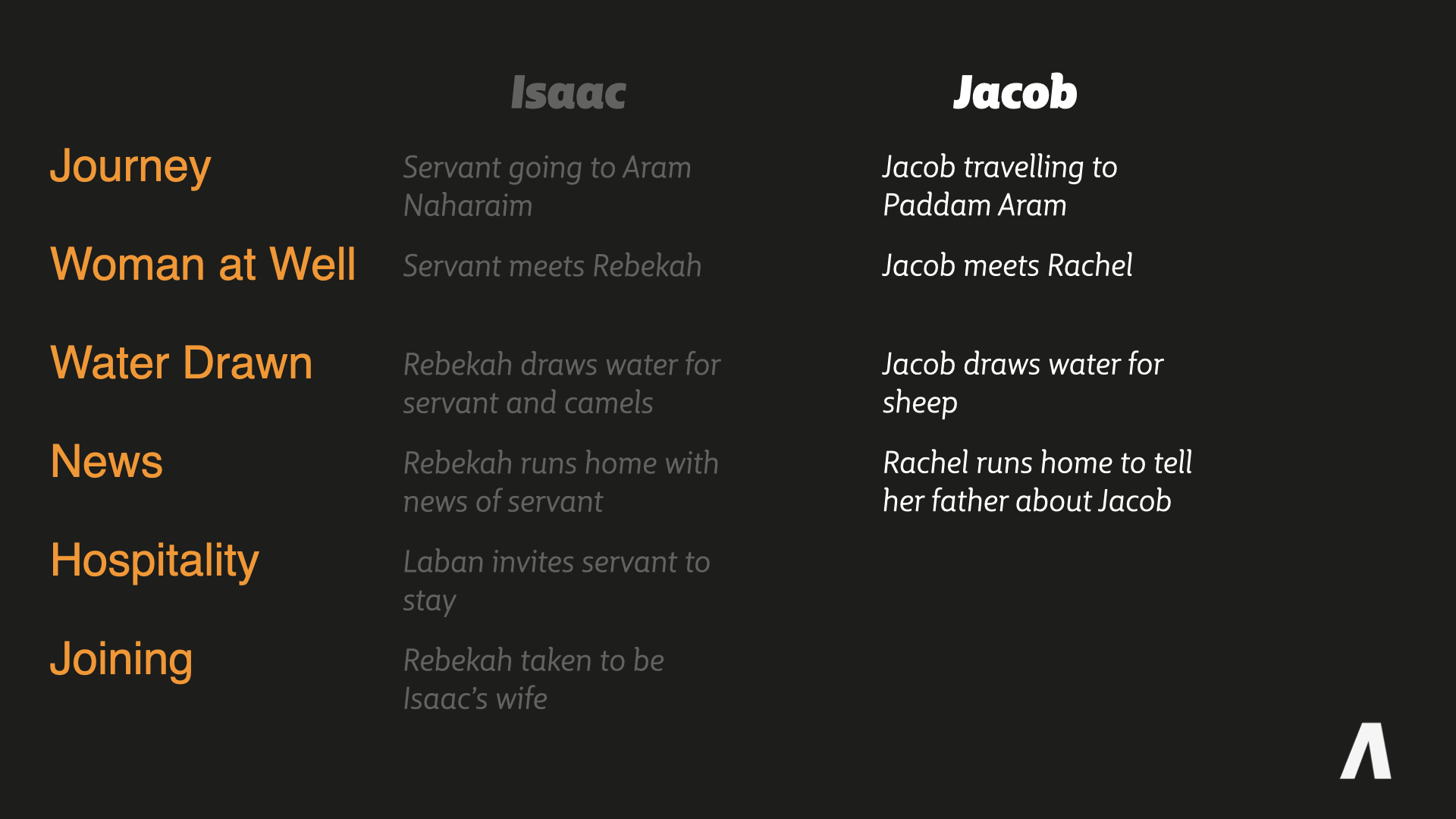
- Slide:
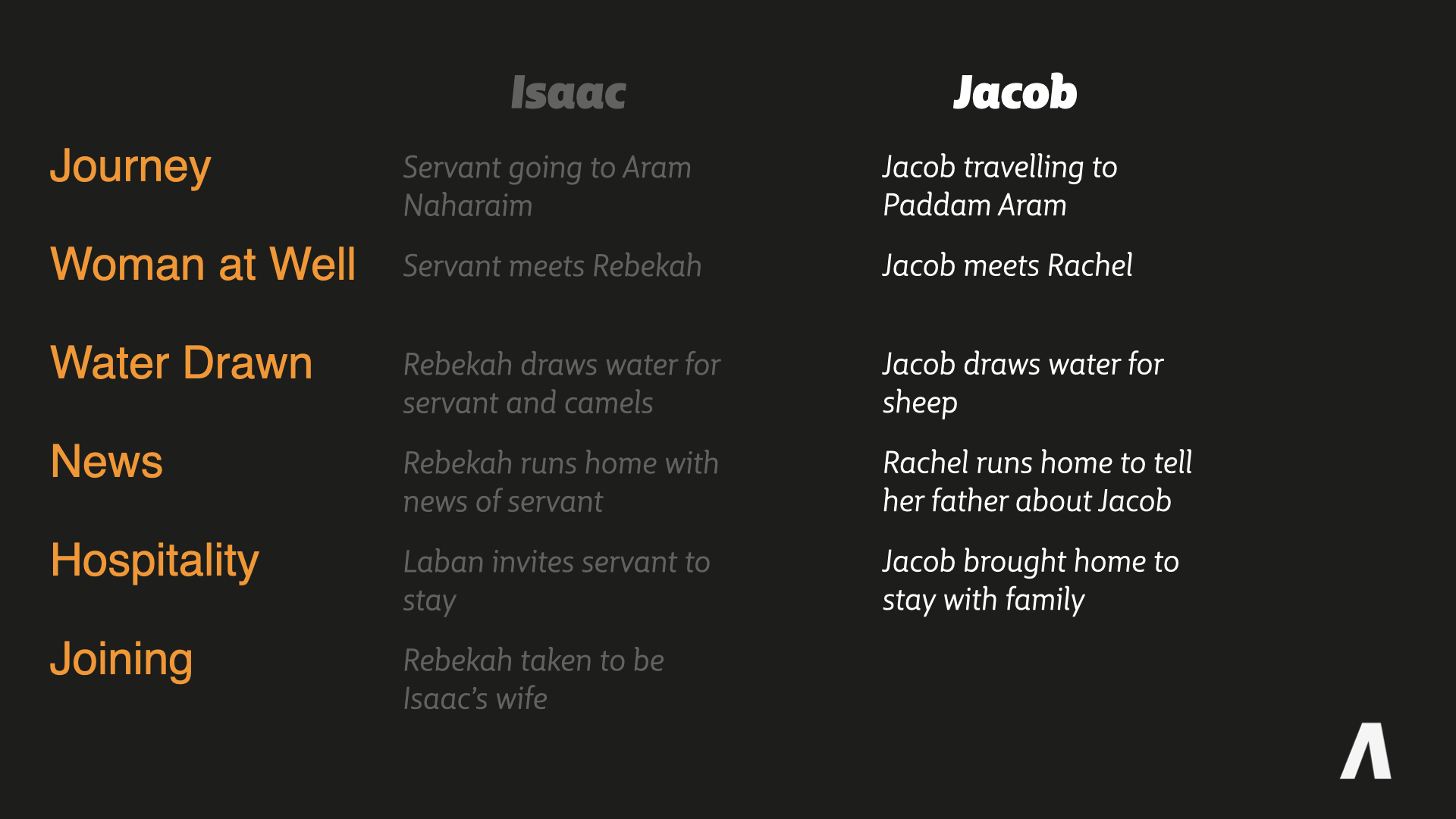
- Slide:
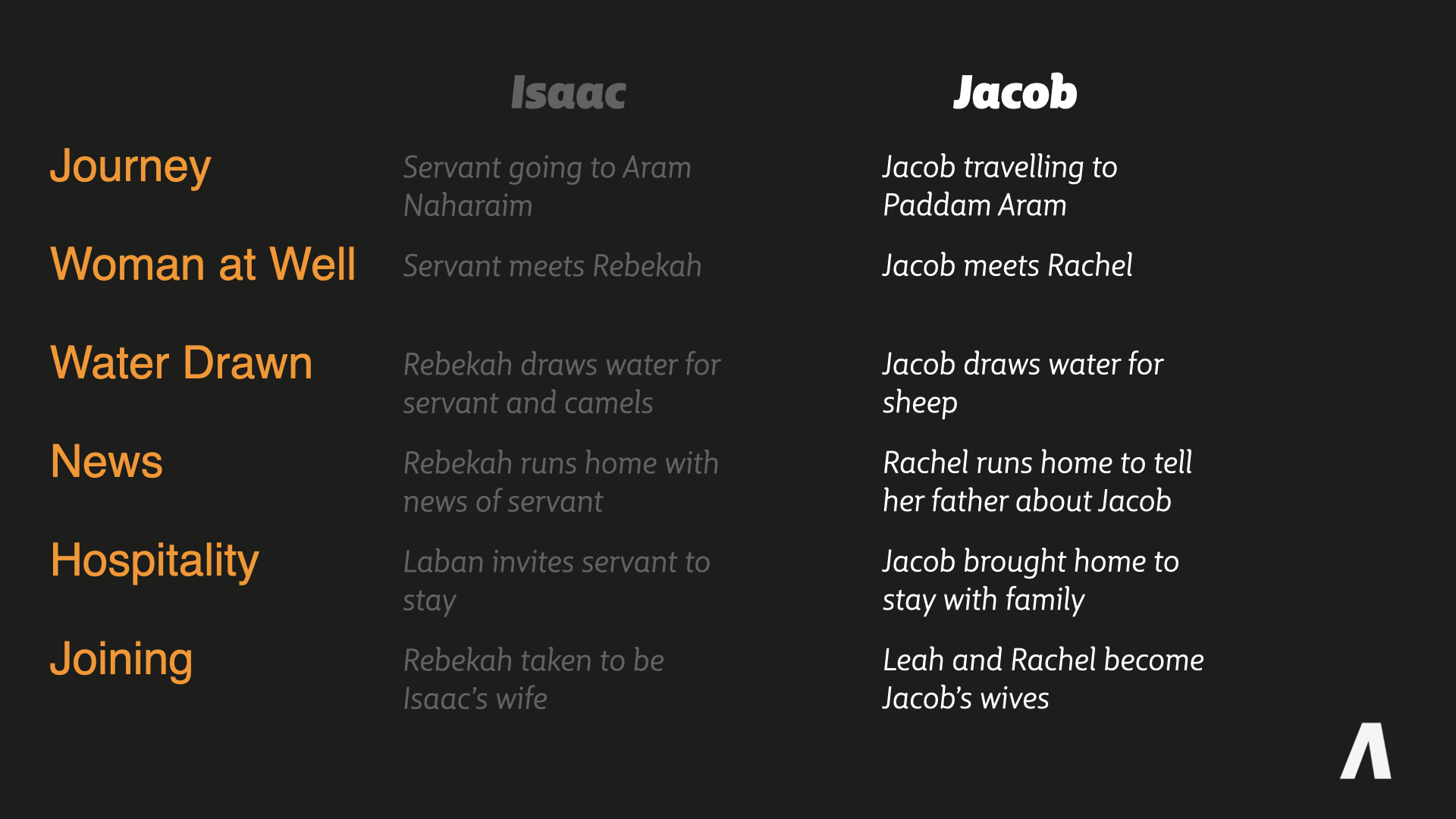
- Slide:
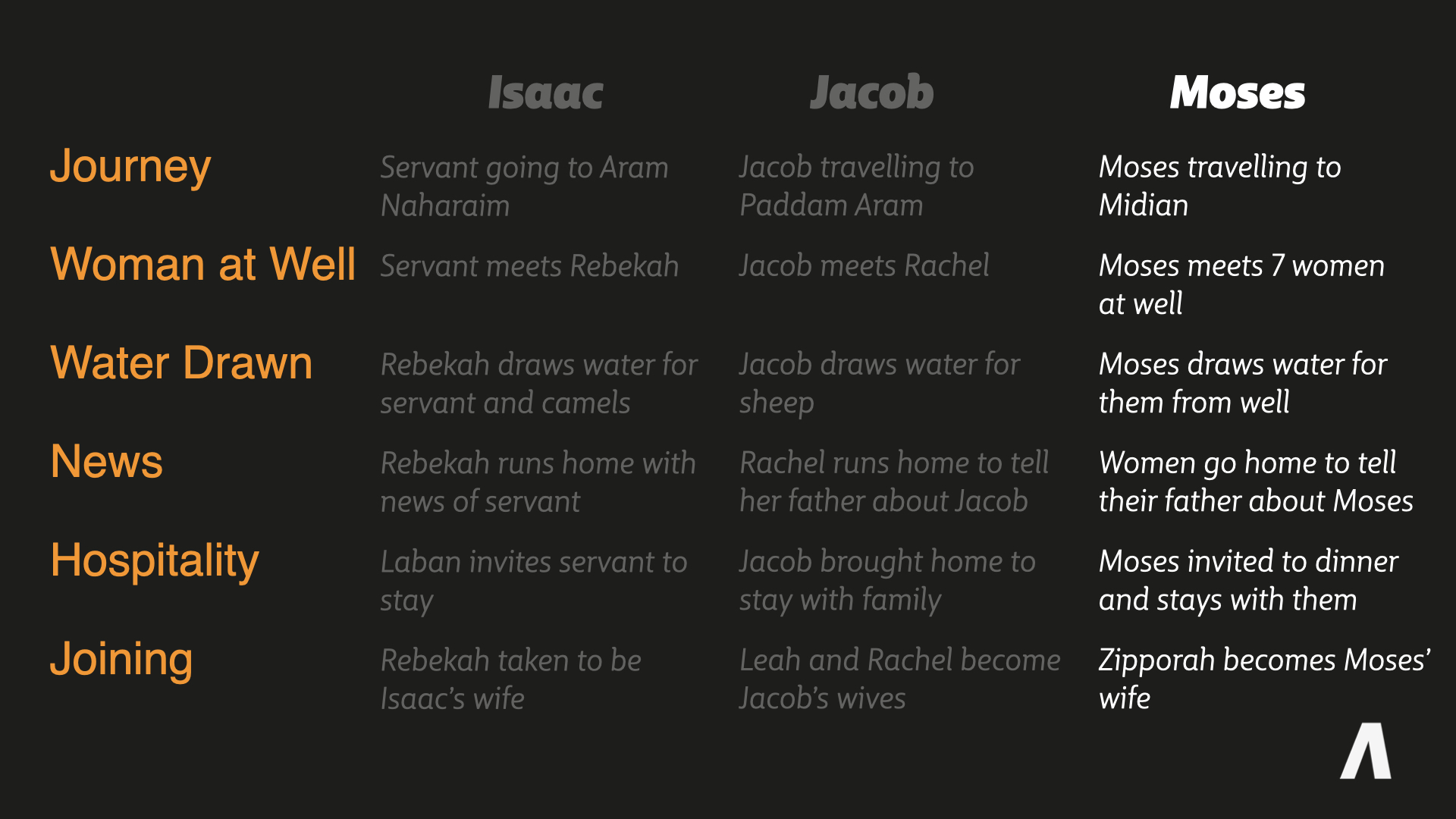
- Slide:
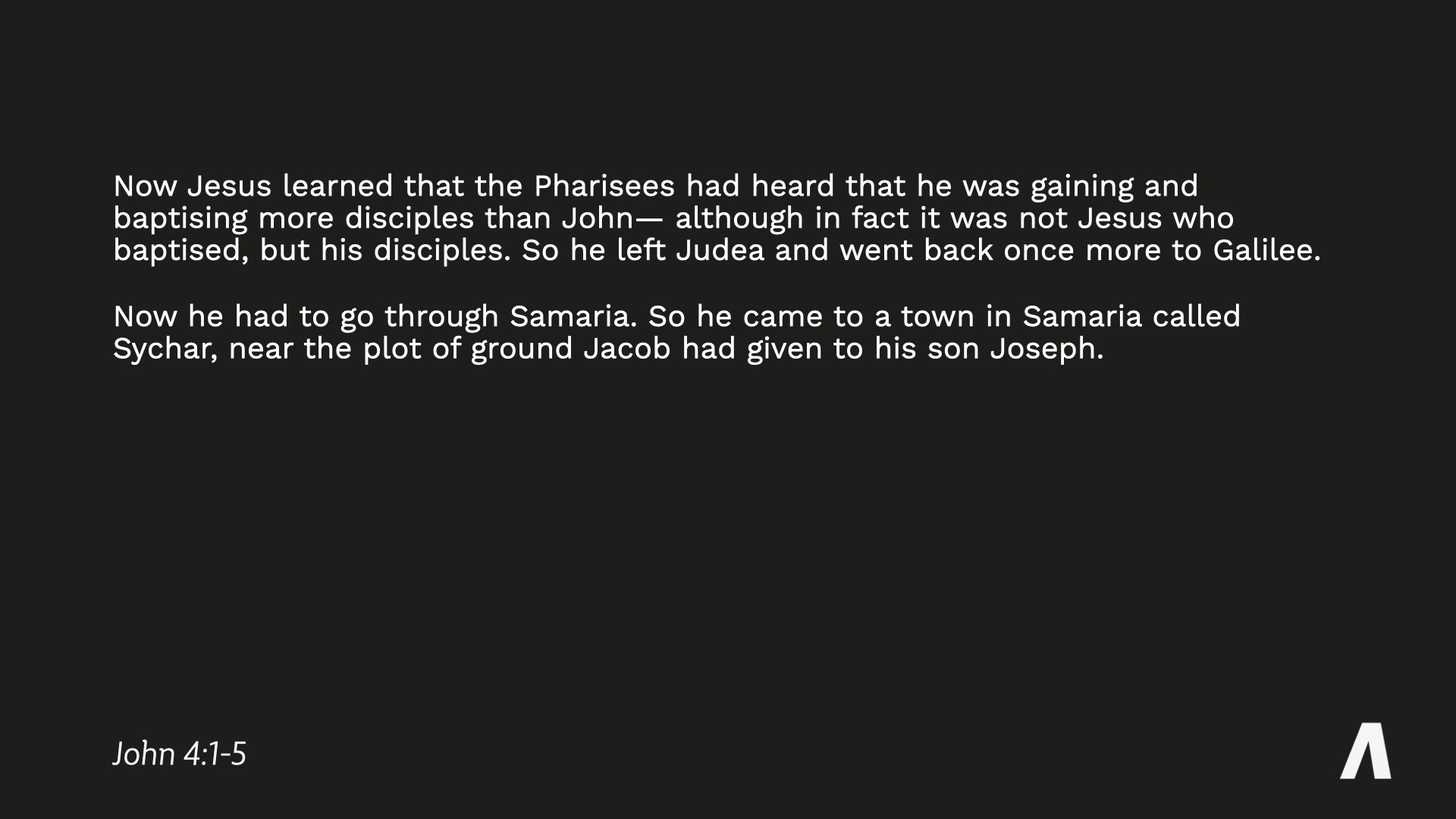
- Slide:
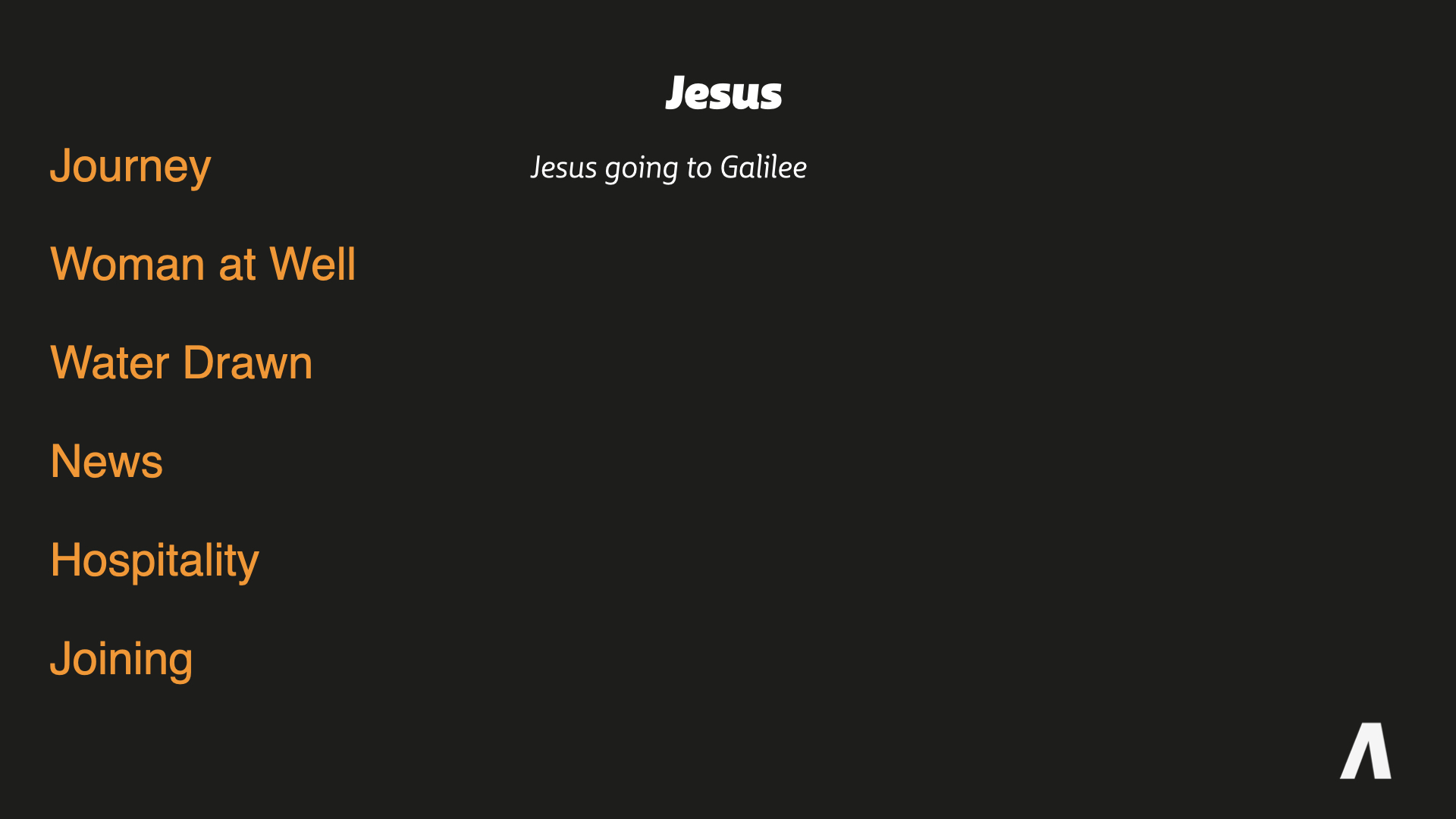
- Slide:
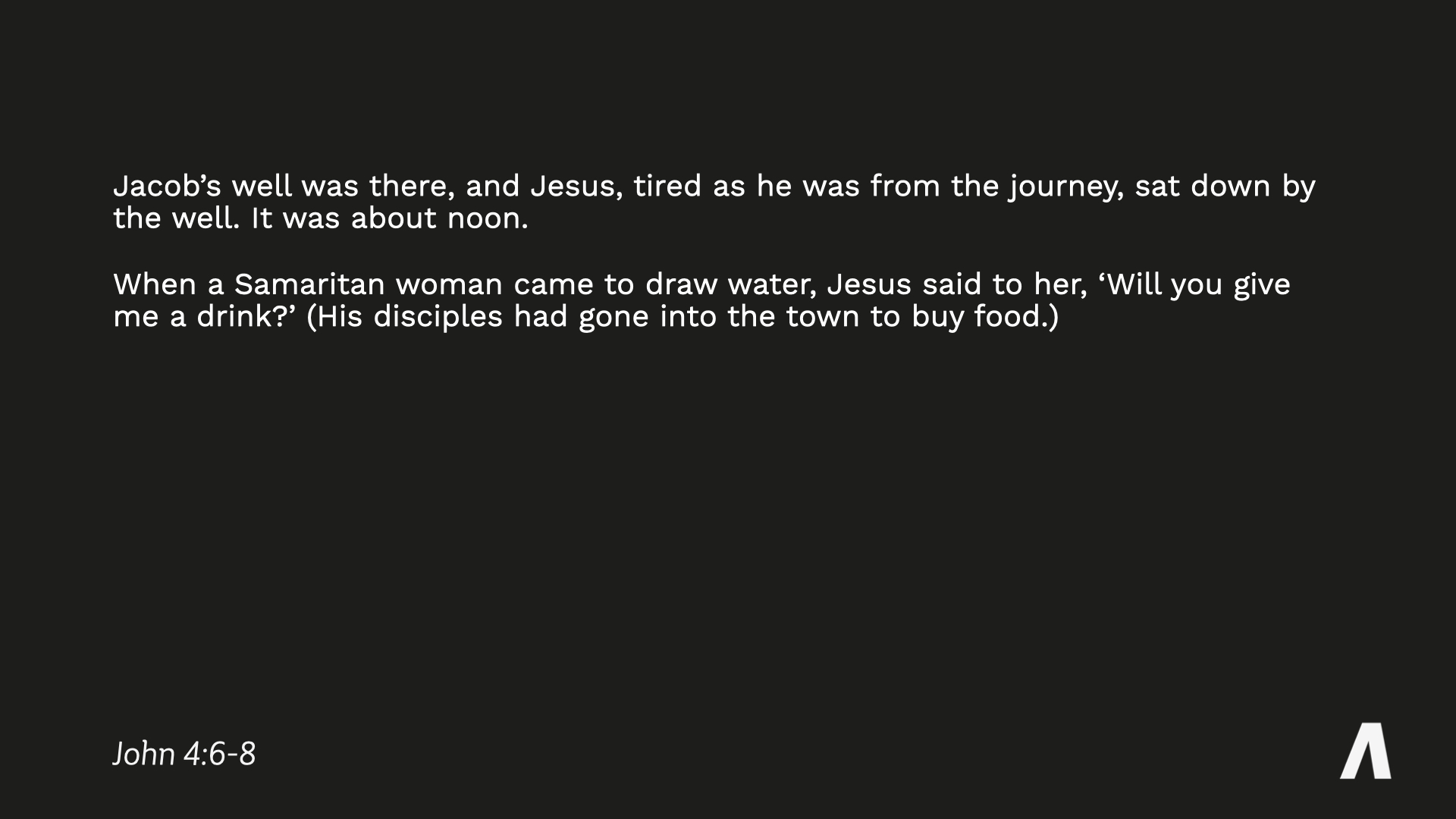
- Slide:
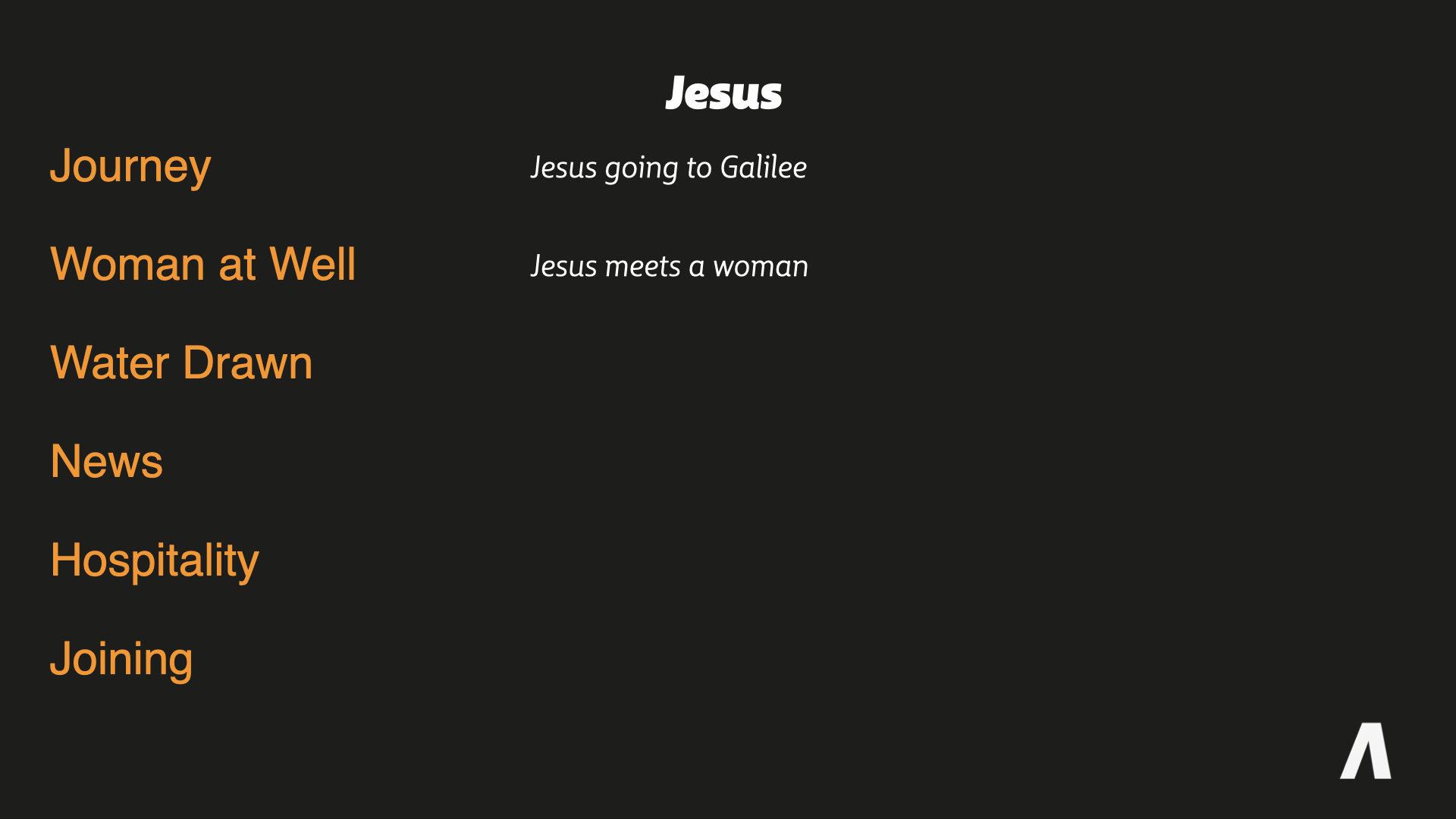
- Slide:
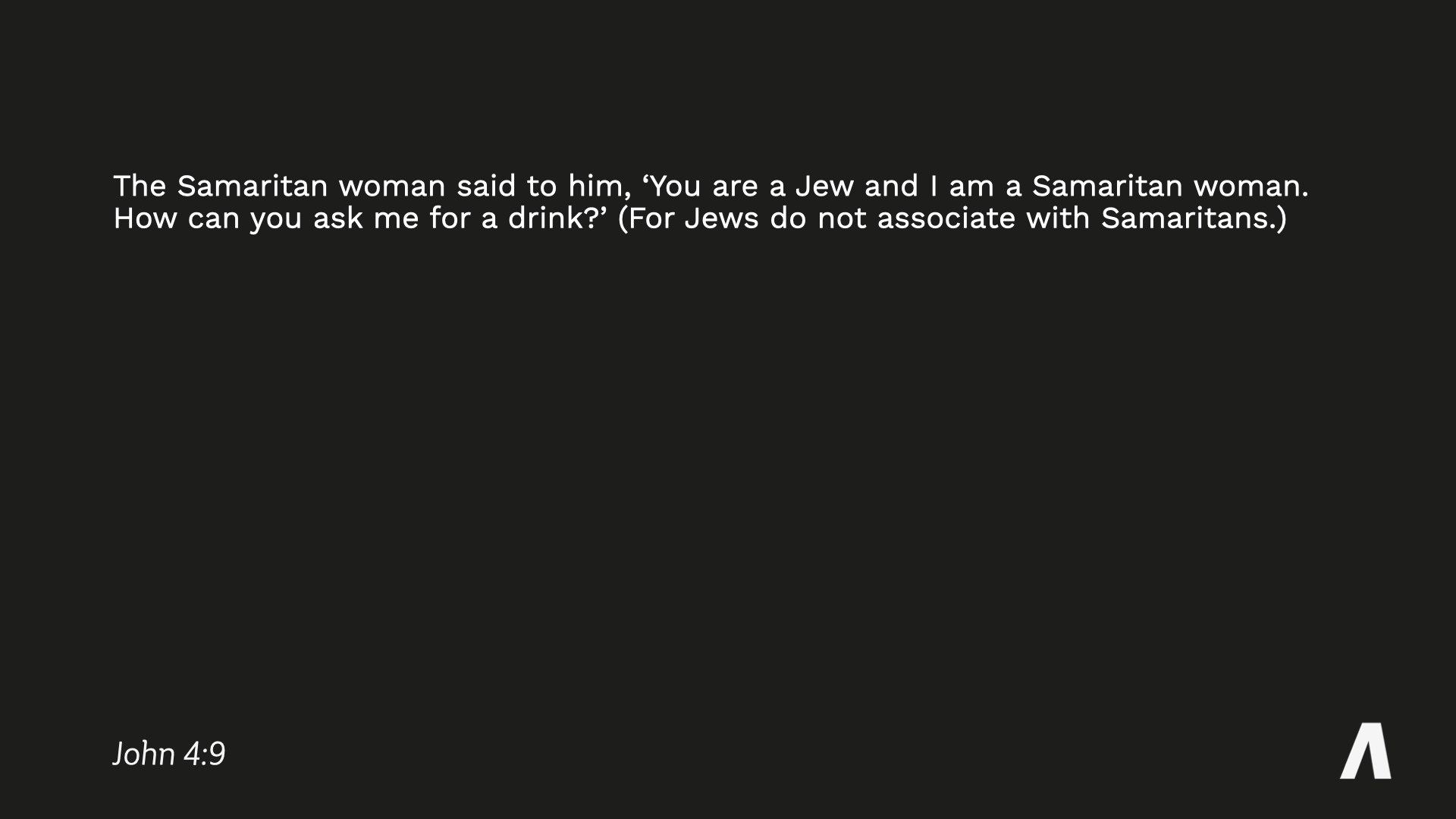
- Slide:
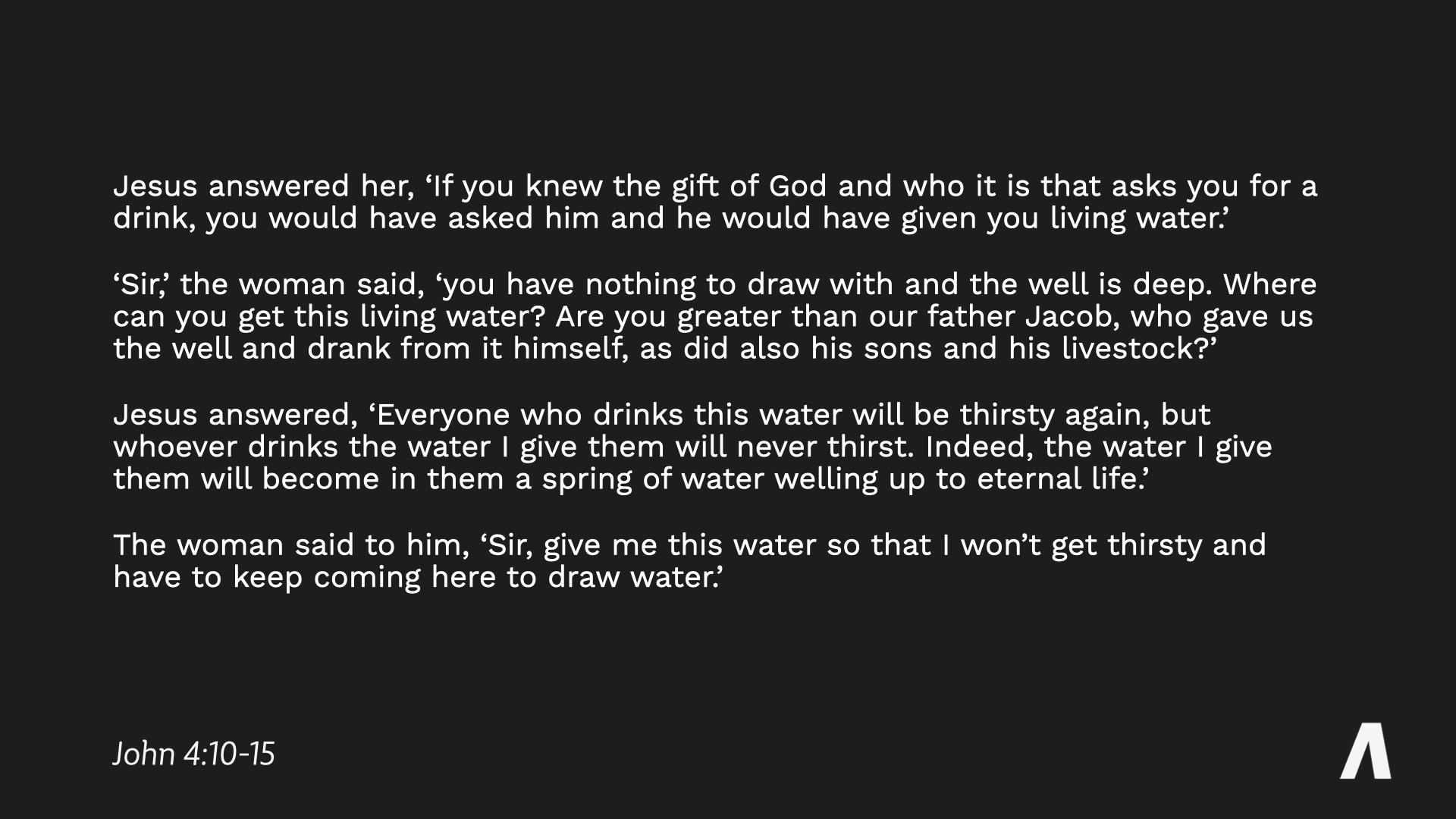
- Slide:
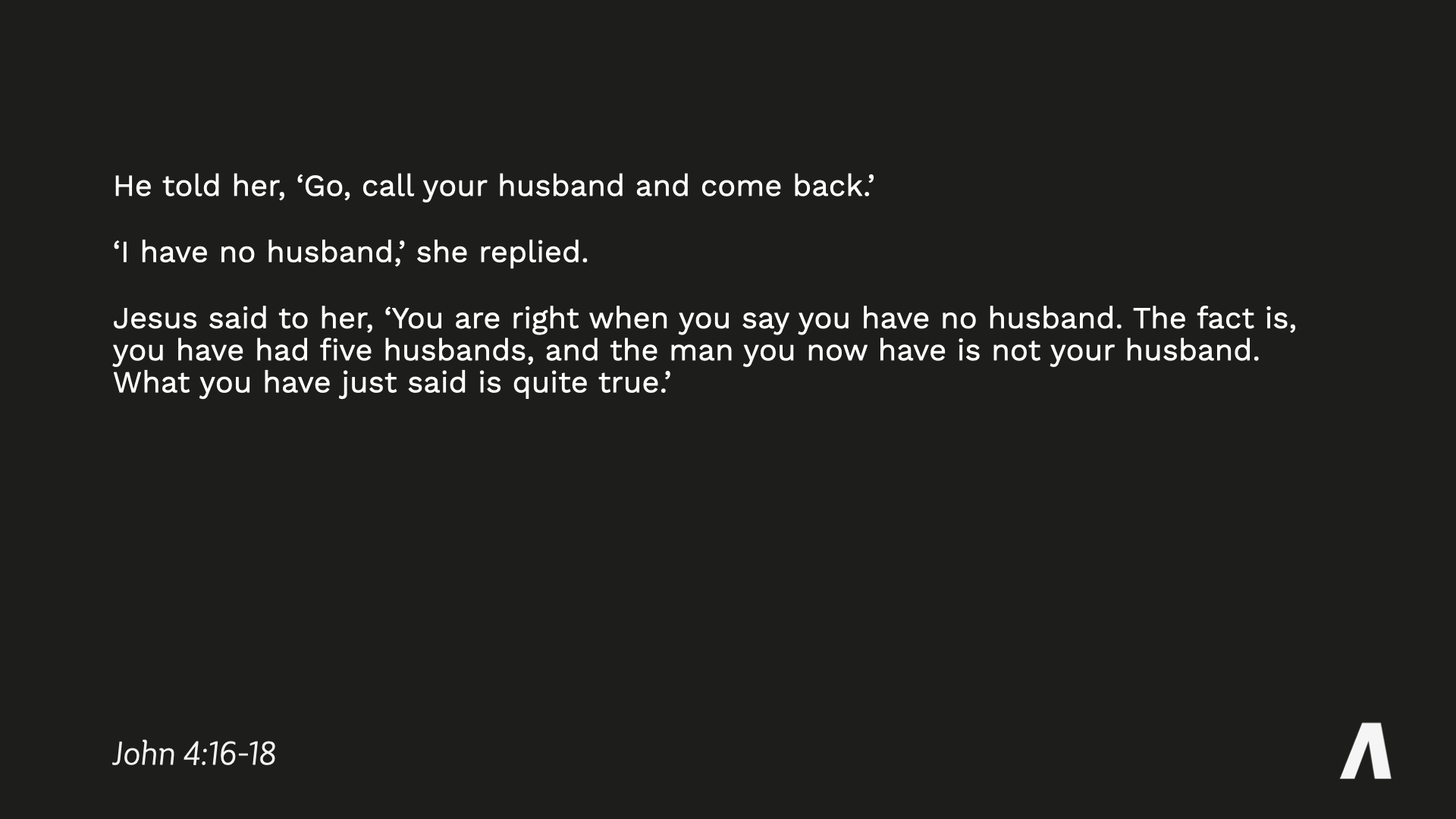
- Slide:
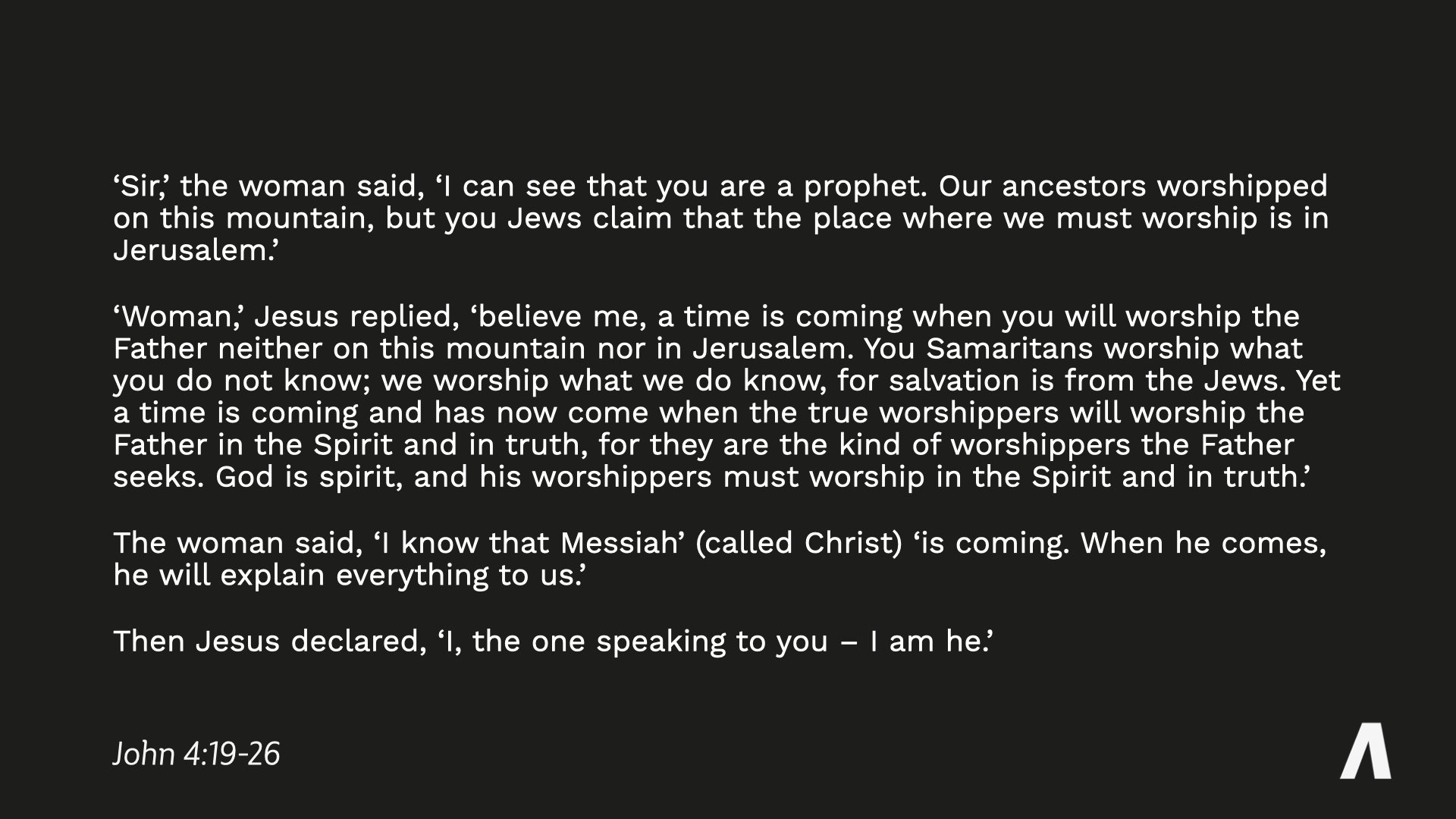
- Slide:
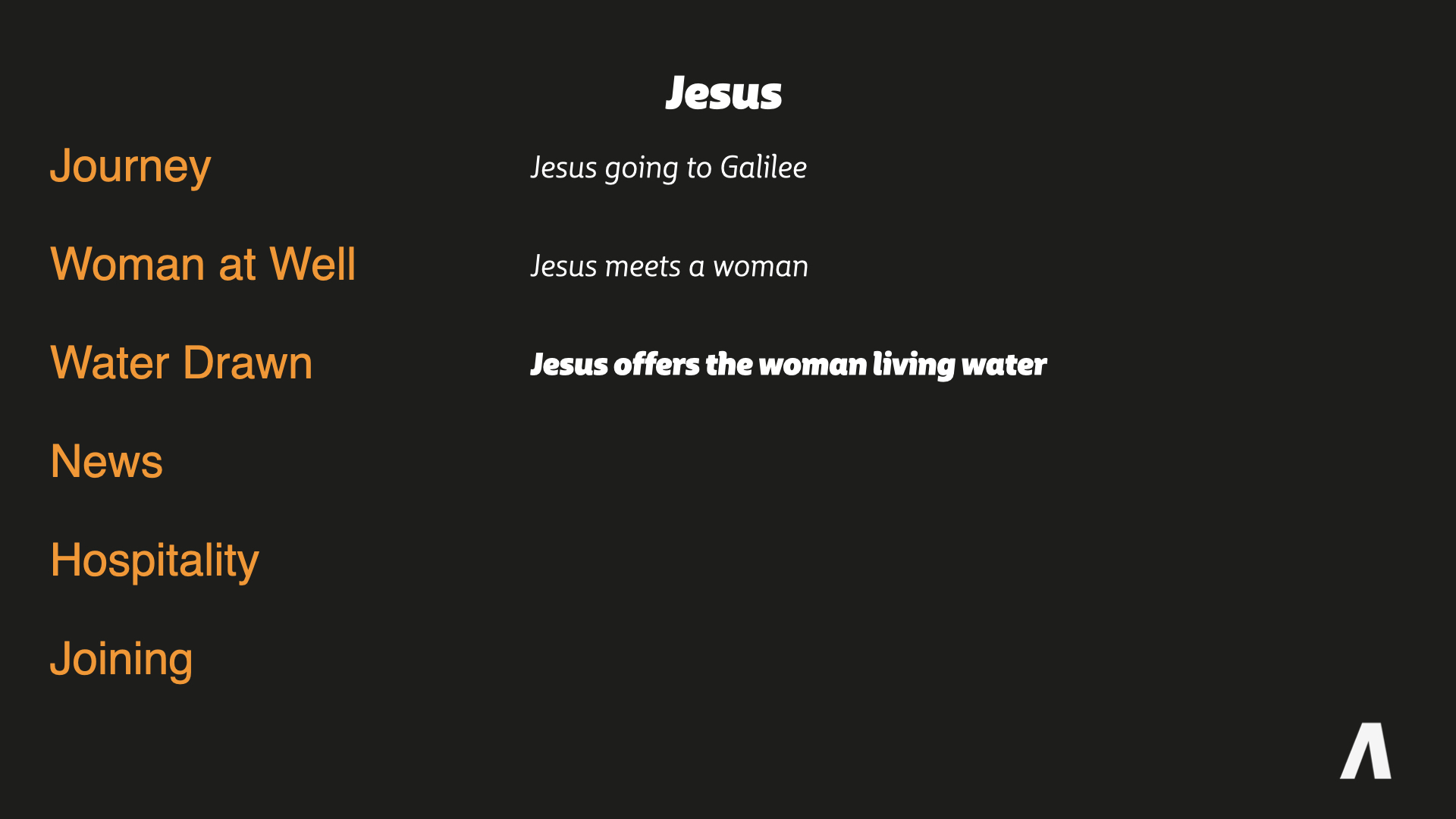
- Slide:
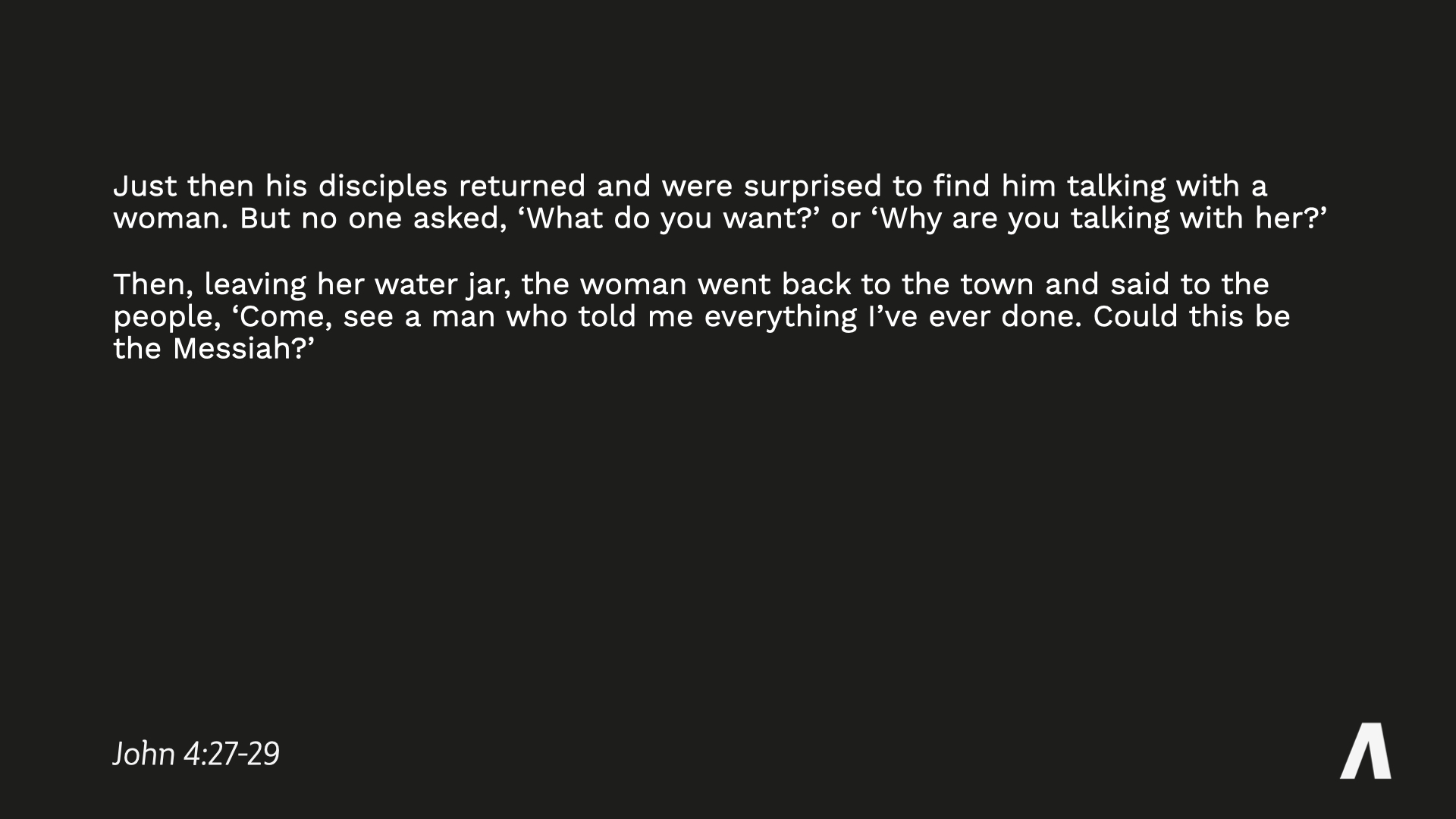
- Slide:
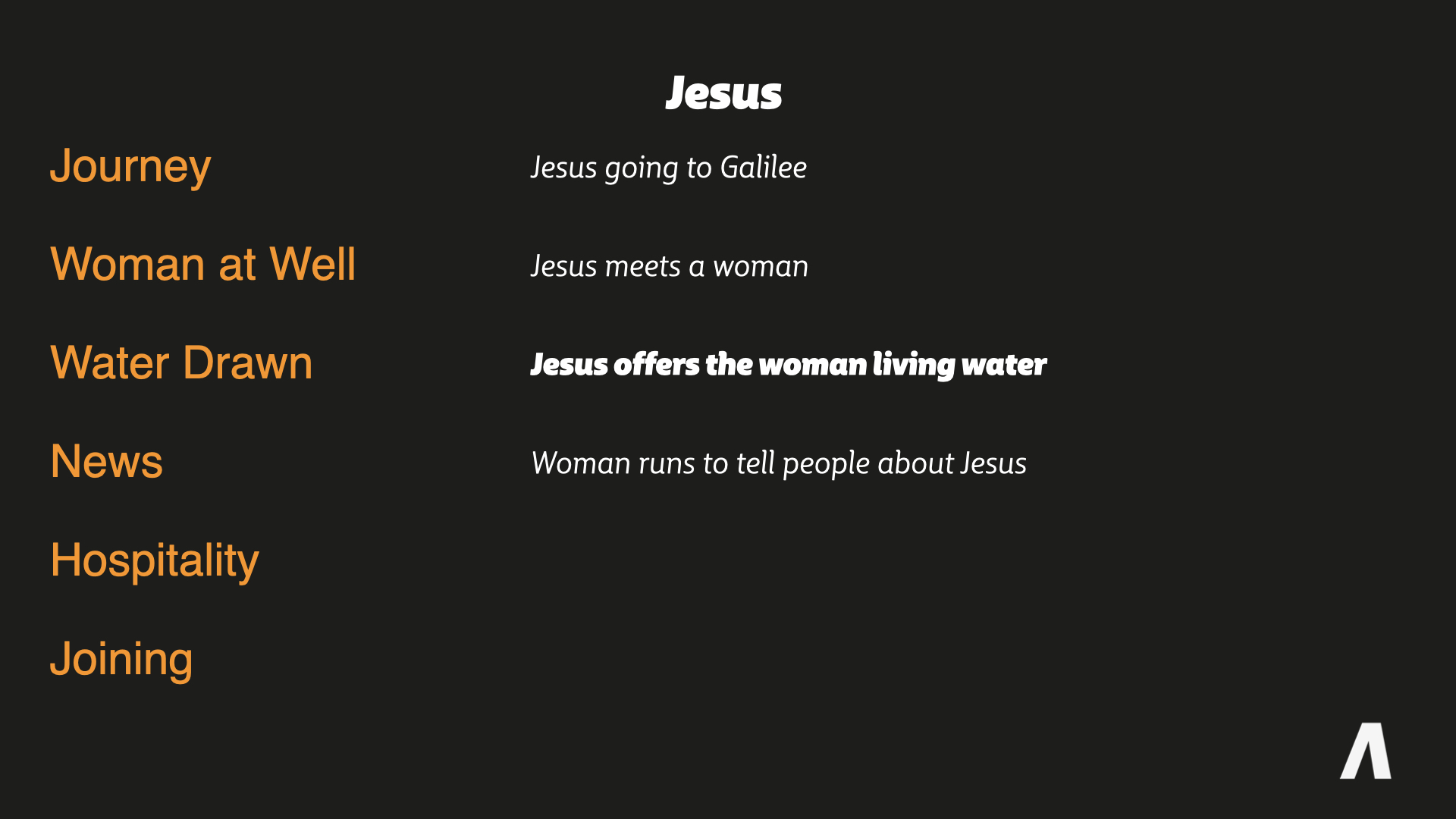
- Slide:
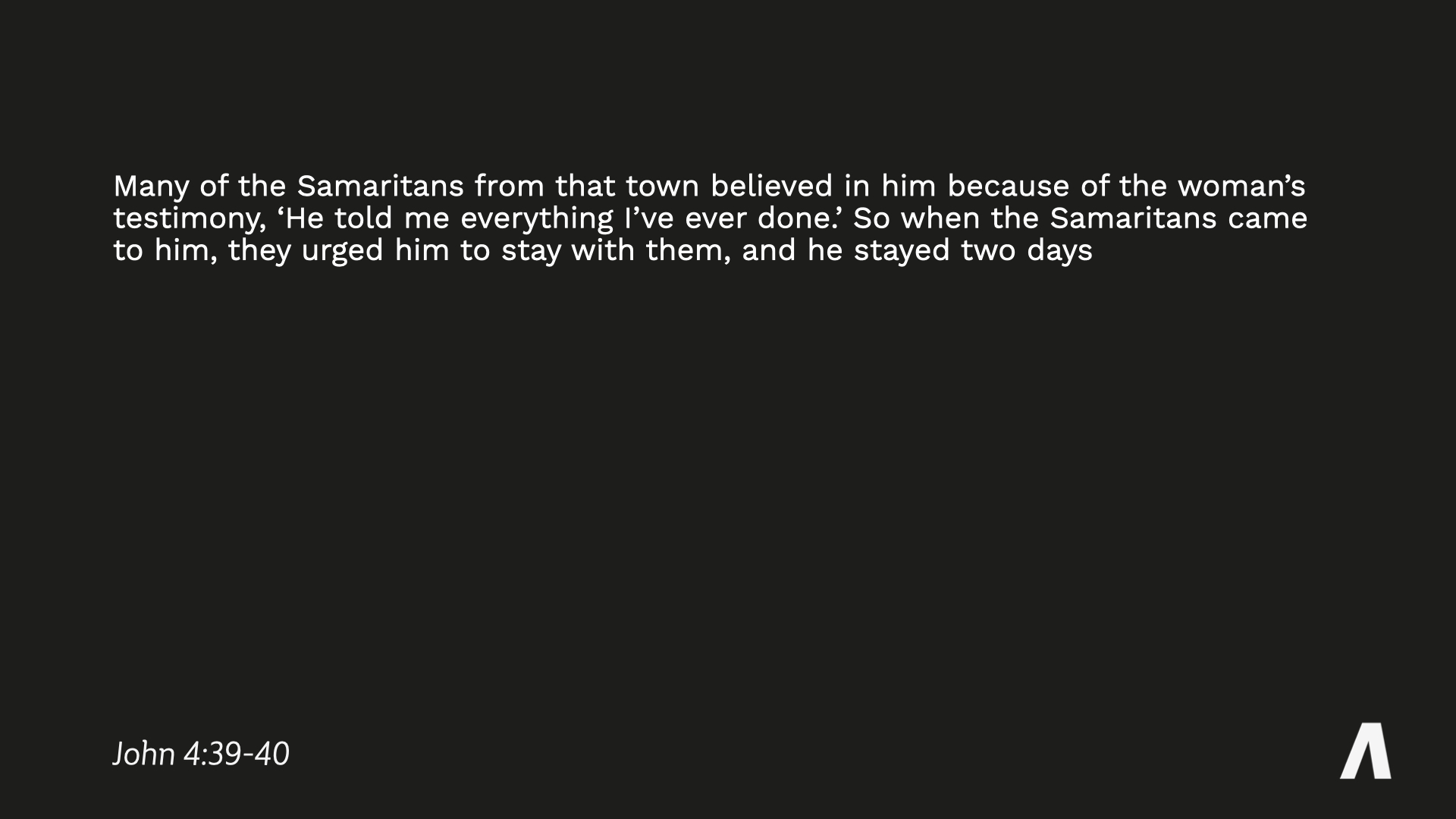
- Slide:
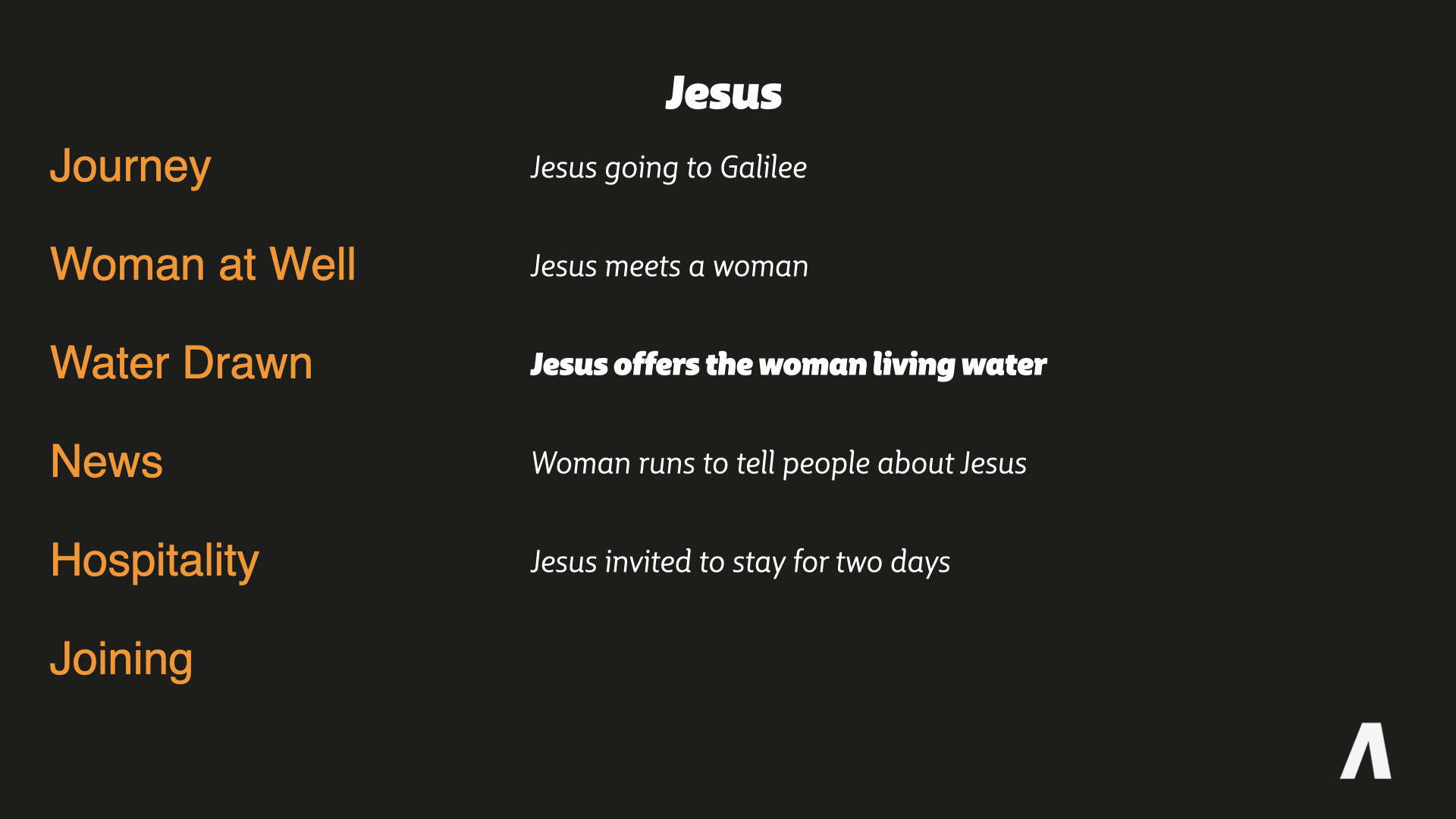
- Slide:
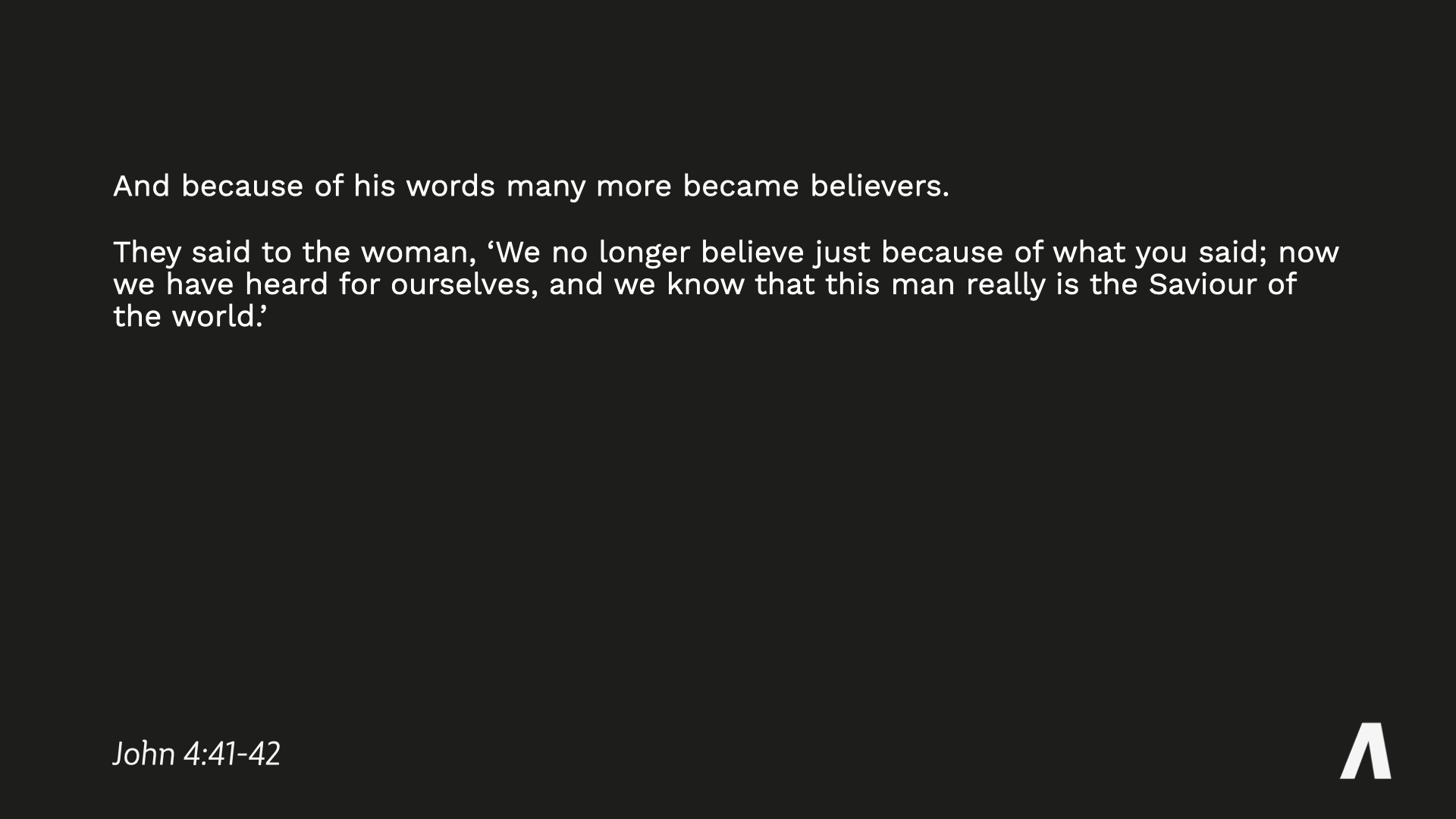
- Slide:
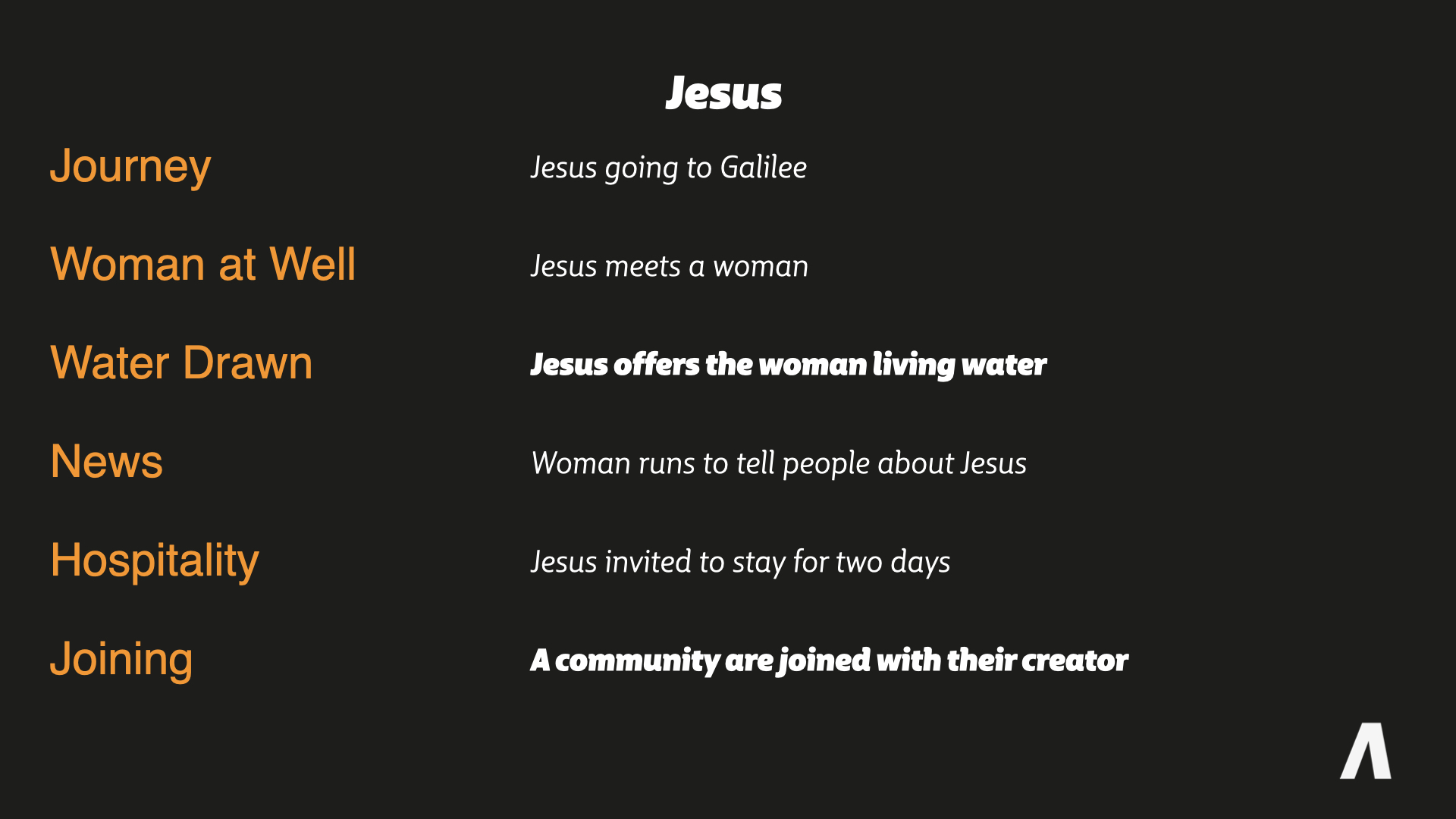
- Episode Audio Embed:
- Episode Preview MP4:
Visit Website
- YouTube Link:
Visit Website
- Anchor.fm Link:
Visit Website
- Spotify Link:
Visit Website
- Square Image:
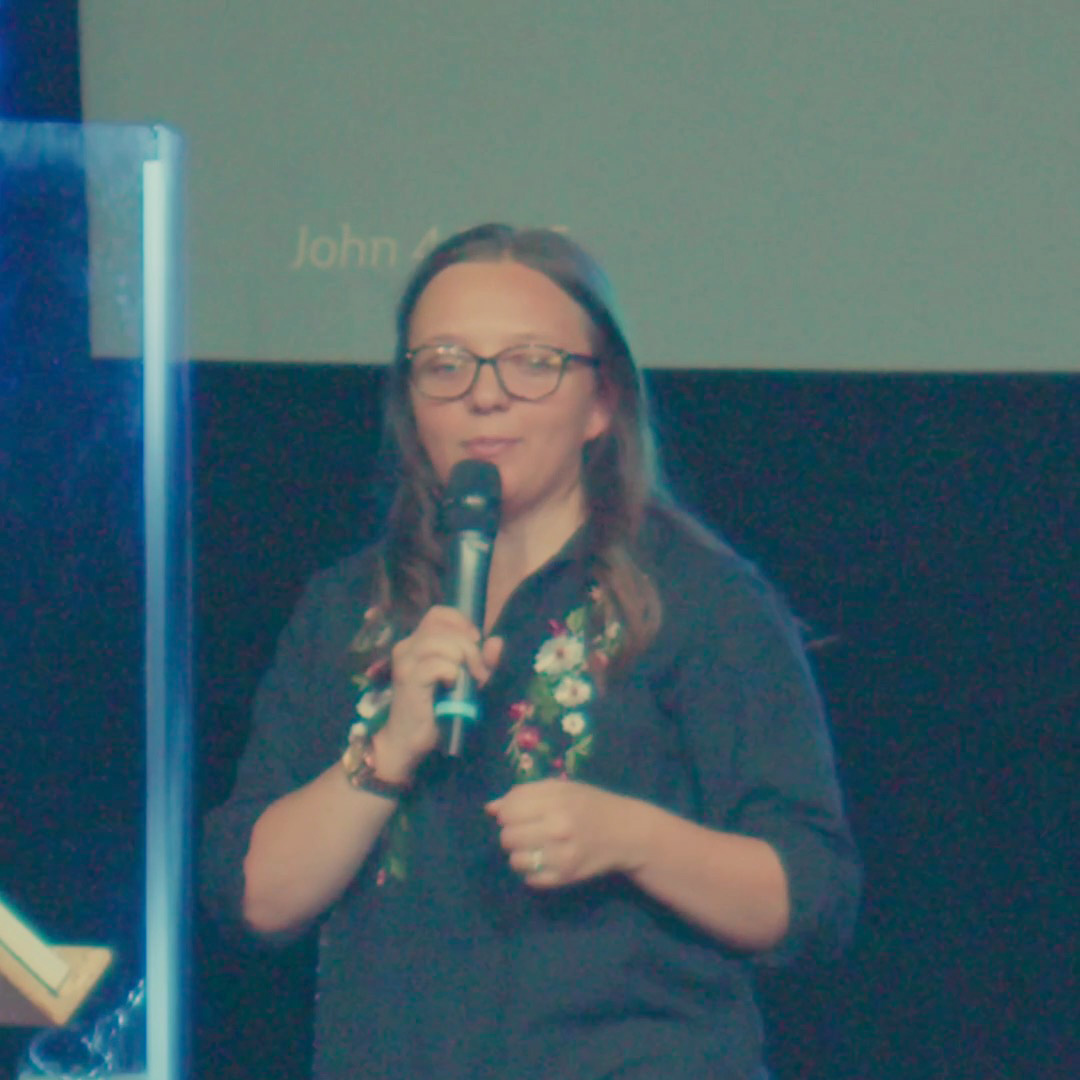
- Portrait Image:
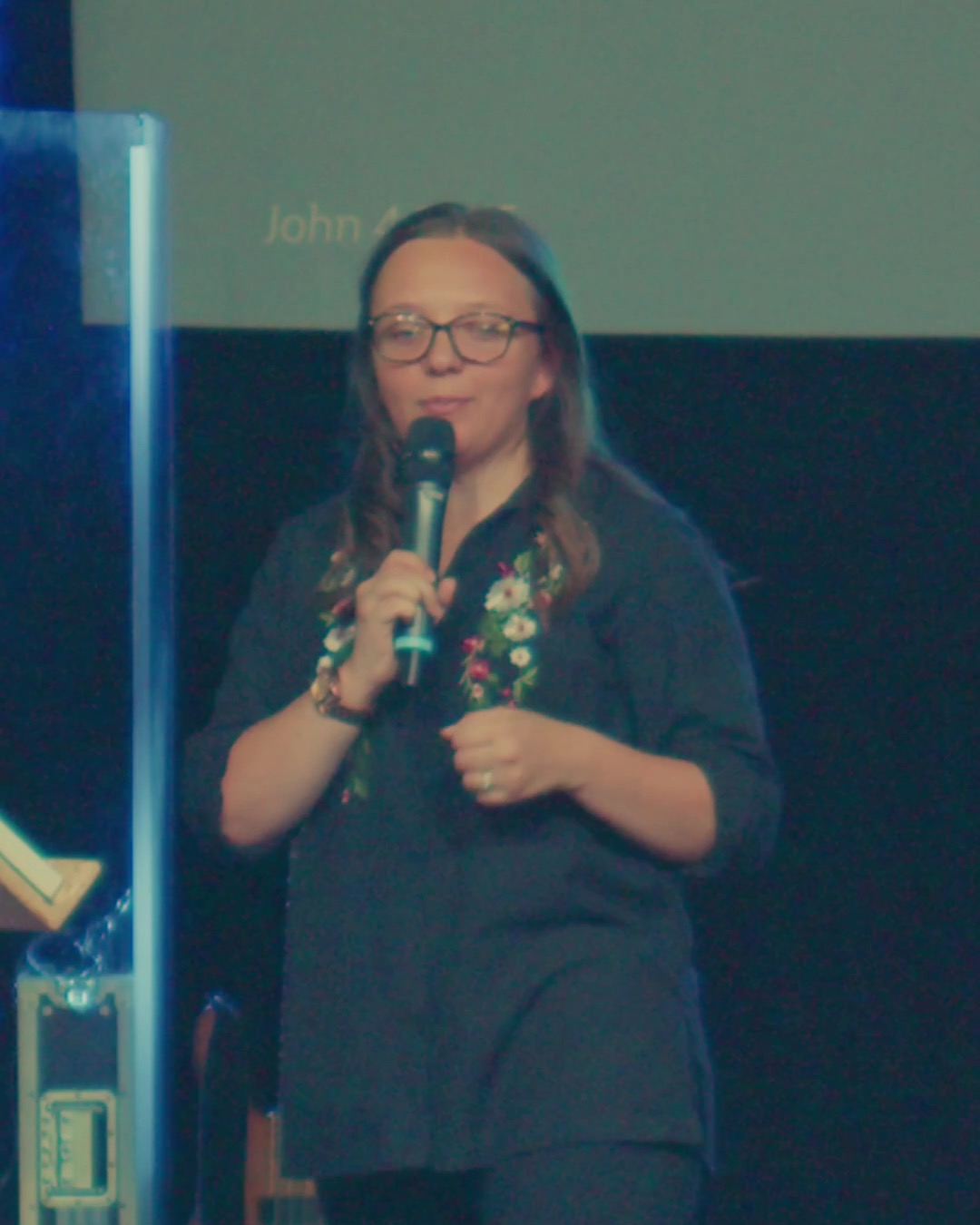
- Rec Date:
21st Aug 2022
Scripture is full of patterns that add depth and richness to what we're reading. A simple story can reveal so much more when we recognise the patterns contained within. In John 4 Jesus meets a Samaritan woman at a well, a simple enough story speaking about the living water of God. But there is so much more to the story if we explore similar encounters in the Old Testament scriptures.
- Bible References:
- Bible Reference:
Luke 2: 25-38, Bible Link:
https://www.biblegateway.com/passage/?search=Luke%202%3A25-38&version=NIV, Bible Passage:
Now there was a man in Jerusalem called Simeon, who was righteous and devout. He was waiting for the consolation of Israel, and the Holy Spirit was on him. It had been revealed to him by the Holy Spirit that he would not die before he had seen the Lord’s Messiah. Moved by the Spirit, he went into the temple courts. When the parents brought in the child Jesus to do for him what the custom of the Law required, Simeon took him in his arms and praised God, saying:
“Sovereign Lord, as you have promised,
you may now dismiss your servant in peace.
For my eyes have seen your salvation,
which you have prepared in the sight of all nations:
a light for revelation to the Gentiles,
and the glory of your people Israel.”
The child’s father and mother marveled at what was said about him. Then Simeon blessed them and said to Mary, his mother: “This child is destined to cause the falling and rising of many in Israel, and to be a sign that will be spoken against, so that the thoughts of many hearts will be revealed. And a sword will pierce your own soul too.”
There was also a prophet, Anna, the daughter of Penuel, of the tribe of Asher. She was very old; she had lived with her husband seven years after her marriage, and then was a widow until she was eighty-four. She never left the temple but worshiped night and day, fasting and praying. Coming up to them at that very moment, she gave thanks to God and spoke about the child to all who were looking forward to the redemption of Jerusalem.
- Episode Audio Embed:
- YouTube Link:
Visit Website
- Anchor.fm Link:
Visit Website
- Spotify Link:
Visit Website
- Square Image:

- Portrait Image:
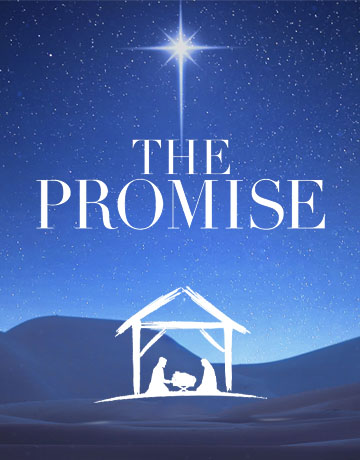
- Rec Date:
27th November 2022
This weeks episode, Olivia opens the first week of advent. We talk about waiting in anticipation for the messiah. And the importance of hope, and its differences to waiting.
- Bible References:
- Bible Reference:
isaiah 9 2-3, Bible Link:
https://www.biblegateway.com/passage/?search=Isaiah%209%3A2-3&version=NIV, Bible Passage:
The people walking in darkness
have seen a great light;
on those living in the land of deep darkness
a light has dawned.
You have enlarged the nation
and increased their joy;
they rejoice before you
as people rejoice at the harvest,
as warriors rejoice
when dividing the plunder.
- Episode Audio Embed:
- YouTube Link:
Visit Website
- Anchor.fm Link:
Visit Website
- Spotify Link:
Visit Website
- Square Image:
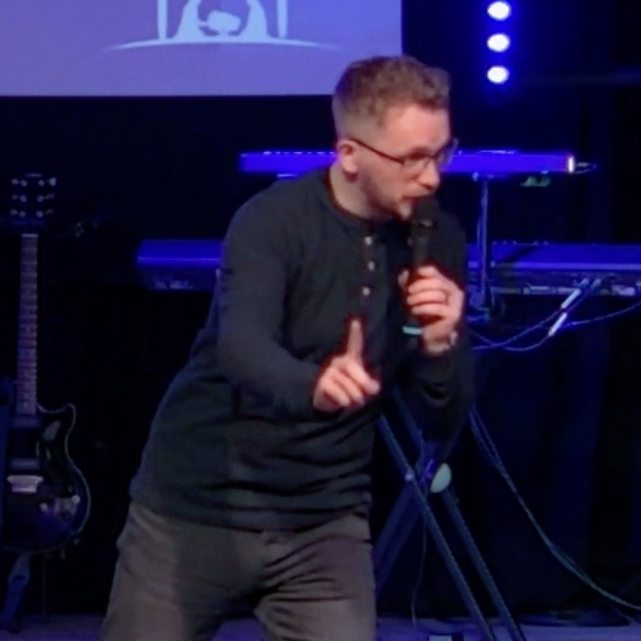
- Portrait Image:

- Rec Date:
11th December 2022
In this weeks episode, Dom continues with the third week of our advent series, by discussing Joy. The joy in Christmas, the joy through the the victory of Jesus, and fascinating look though the timeline of modern Christmas.
- Bible References:
- Bible Reference:
isaiah 9 6-7, Bible Link:
https://www.biblegateway.com/passage/?search=Isaiah%209%3A6-7&version=NIV, Bible Passage:
For to us a child is born,
to us a son is given,
and the government will be on his shoulders.
And he will be called
Wonderful Counselor, Mighty God,
Everlasting Father, Prince of Peace.
Of the greatness of his government and peace
there will be no end.
He will reign on David’s throne
and over his kingdom,
establishing and upholding it
with justice and righteousness
from that time on and forever.
The zeal of the Lord Almighty
will accomplish this.
- Episode Audio Embed:
- YouTube Link:
Visit Website
- Anchor.fm Link:
Visit Website
- Spotify Link:
Visit Website
- Square Image:
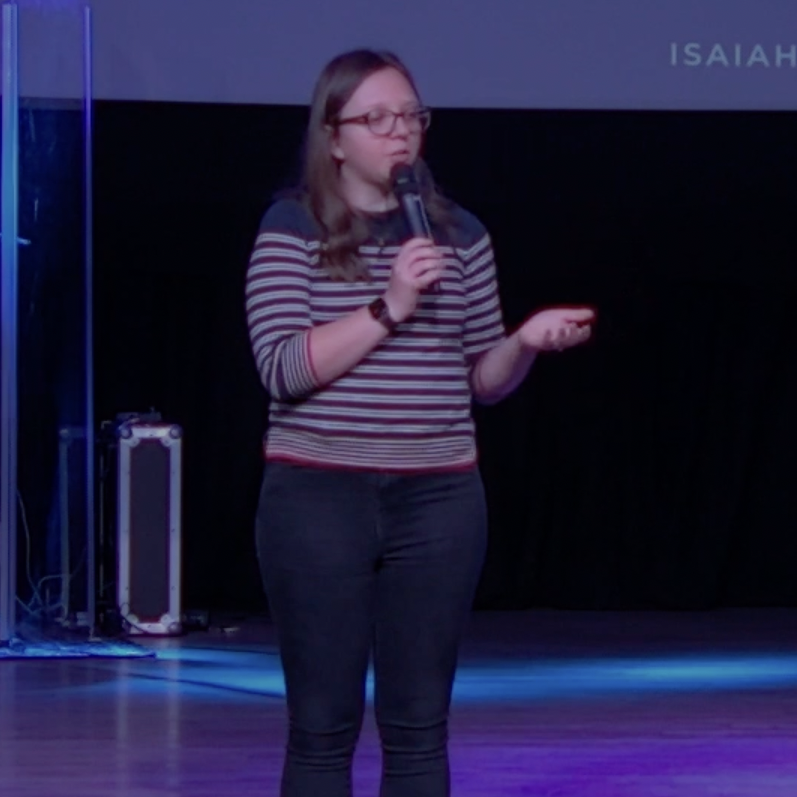
- Portrait Image:

- Rec Date:
04th December 2022
This weeks episode, we continue with the second week of our advent series by discussing the promise of peace through Jesus. And digs into why peace and absence of conflict aren't the same thing.
As we continue in our series Unveiled, Dom takes a closer look at creation and what the Bible says about the origins of the world, God's purpose and intention for creation.
As we continue in our series the Gospel of John; Sam talks about the 3 people in John 20 who had an encounter with the Risen Jesus. We look at their reaction and transformation to him.
Last week we looked at the encounters people had with Jesus after the resurrection. As we continue in the book of John, this week Alex shares with us his own personal encounter with Jesus.
- Bible References:
- Bible Reference:
John 1:4-5, Bible Link:
https://www.biblegateway.com/passage/?search=John%201%3A4-5&version=NIV, Bible Passage:
In him was life, and that life was the light of all mankind. The light shines in the darkness, and the darkness has not overcome it.
- Episode Audio Embed:
- YouTube Link:
Visit Website
- Anchor.fm Link:
Visit Website
- Spotify Link:
Visit Website
- Square Image:
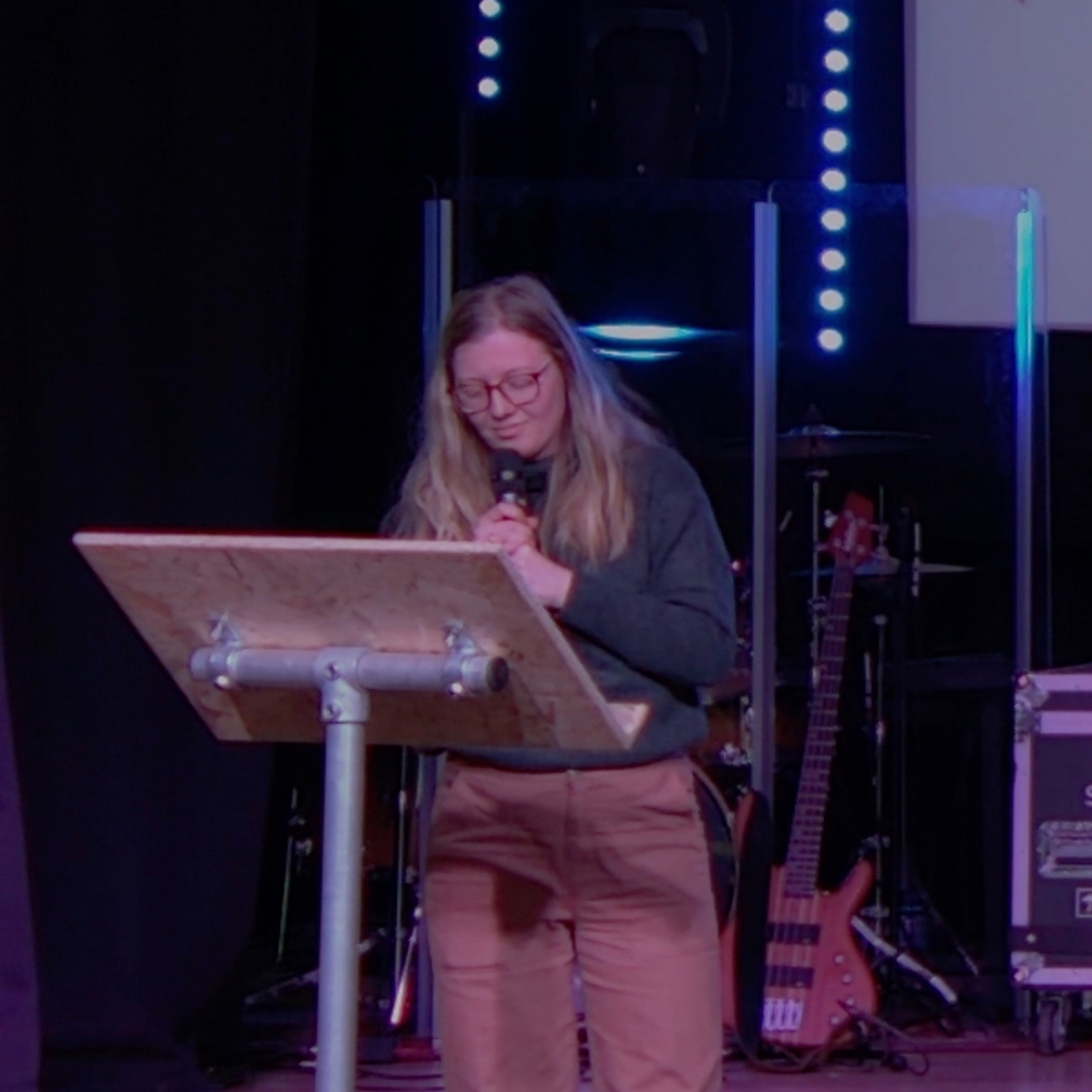
- Portrait Image:
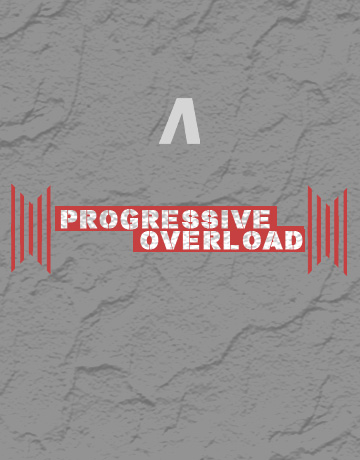
- Rec Date:
22nd January 2023
In this weeks episode, we continue the series on the progressive overload, Olivia walked us through what it means to be light in darkness, and how being called to follow Jesus, means we are called to be light
In this penultimate episode of our current series Sam talks to us about the difference between praising and worshiping God. She walks us through practically how we can do this in our lives everyday, and how we can live a life that is holy and pleasing to God.
- Bible References:
- Bible Reference:
Romans 8, Bible Link:
https://www.biblegateway.com/passage/?search=Romans%208&version=NIV, Bible Passage:
Therefore, there is now no condemnation for those who are in Christ Jesus, because through Christ Jesus the law of the Spirit who gives life has set you free from the law of sin and death. For what the law was powerless to do because it was weakened by the flesh, God did by sending his own Son in the likeness of sinful flesh to be a sin offering. And so he condemned sin in the flesh, in order that the righteous requirement of the law might be fully met in us, who do not live according to the flesh but according to the Spirit.
Those who live according to the flesh have their minds set on what the flesh desires; but those who live in accordance with the Spirit have their minds set on what the Spirit desires. The mind governed by the flesh is death, but the mind governed by the Spirit is life and peace. The mind governed by the flesh is hostile to God; it does not submit to God’s law, nor can it do so. Those who are in the realm of the flesh cannot please God.
You, however, are not in the realm of the flesh but are in the realm of the Spirit, if indeed the Spirit of God lives in you. And if anyone does not have the Spirit of Christ, they do not belong to Christ. But if Christ is in you, then even though your body is subject to death because of sin, the Spirit gives life because of righteousness. And if the Spirit of him who raised Jesus from the dead is living in you, he who raised Christ from the dead will also give life to your mortal bodies because of his Spirit who lives in you.
Therefore, brothers and sisters, we have an obligation—but it is not to the flesh, to live according to it. For if you live according to the flesh, you will die; but if by the Spirit you put to death the misdeeds of the body, you will live.
For those who are led by the Spirit of God are the children of God. The Spirit you received does not make you slaves, so that you live in fear again; rather, the Spirit you received brought about your adoption to sonship. And by him we cry, “Abba, Father.” The Spirit himself testifies with our spirit that we are God’s children. Now if we are children, then we are heirs—heirs of God and co-heirs with Christ, if indeed we share in his sufferings in order that we may also share in his glory.
I consider that our present sufferings are not worth comparing with the glory that will be revealed in us. For the creation waits in eager expectation for the children of God to be revealed. For the creation was subjected to frustration, not by its own choice, but by the will of the one who subjected it, in hope that the creation itself will be liberated from its bondage to decay and brought into the freedom and glory of the children of God.
We know that the whole creation has been groaning as in the pains of childbirth right up to the present time. Not only so, but we ourselves, who have the firstfruits of the Spirit, groan inwardly as we wait eagerly for our adoption to sonship, the redemption of our bodies. For in this hope we were saved. But hope that is seen is no hope at all. Who hopes for what they already have? But if we hope for what we do not yet have, we wait for it patiently.
In the same way, the Spirit helps us in our weakness. We do not know what we ought to pray for, but the Spirit himself intercedes for us through wordless groans. And he who searches our hearts knows the mind of the Spirit, because the Spirit intercedes for God’s people in accordance with the will of God.
And we know that in all things God works for the good of those who love him, who have been called according to his purpose. For those God foreknew he also predestined to be conformed to the image of his Son, that he might be the firstborn among many brothers and sisters. And those he predestined, he also called; those he called, he also justified; those he justified, he also glorified.
What, then, shall we say in response to these things? If God is for us, who can be against us? He who did not spare his own Son, but gave him up for us all—how will he not also, along with him, graciously give us all things? Who will bring any charge against those whom God has chosen? It is God who justifies. Who then is the one who condemns? No one. Christ Jesus who died—more than that, who was raised to life—is at the right hand of God and is also interceding for us. Who shall separate us from the love of Christ? Shall trouble or hardship or persecution or famine or nakedness or danger or sword? As it is written:
“For your sake we face death all day long;
we are considered as sheep to be slaughtered.”
No, in all these things we are more than conquerors through him who loved us. For I am convinced that neither death nor life, neither angels nor demons, neither the present nor the future, nor any powers, neither height nor depth, nor anything else in all creation, will be able to separate us from the love of God that is in Christ Jesus our Lord.
- Episode Audio Embed:
- YouTube Link:
Visit Website
- Anchor.fm Link:
Visit Website
- Spotify Link:
Visit Website
- Square Image:
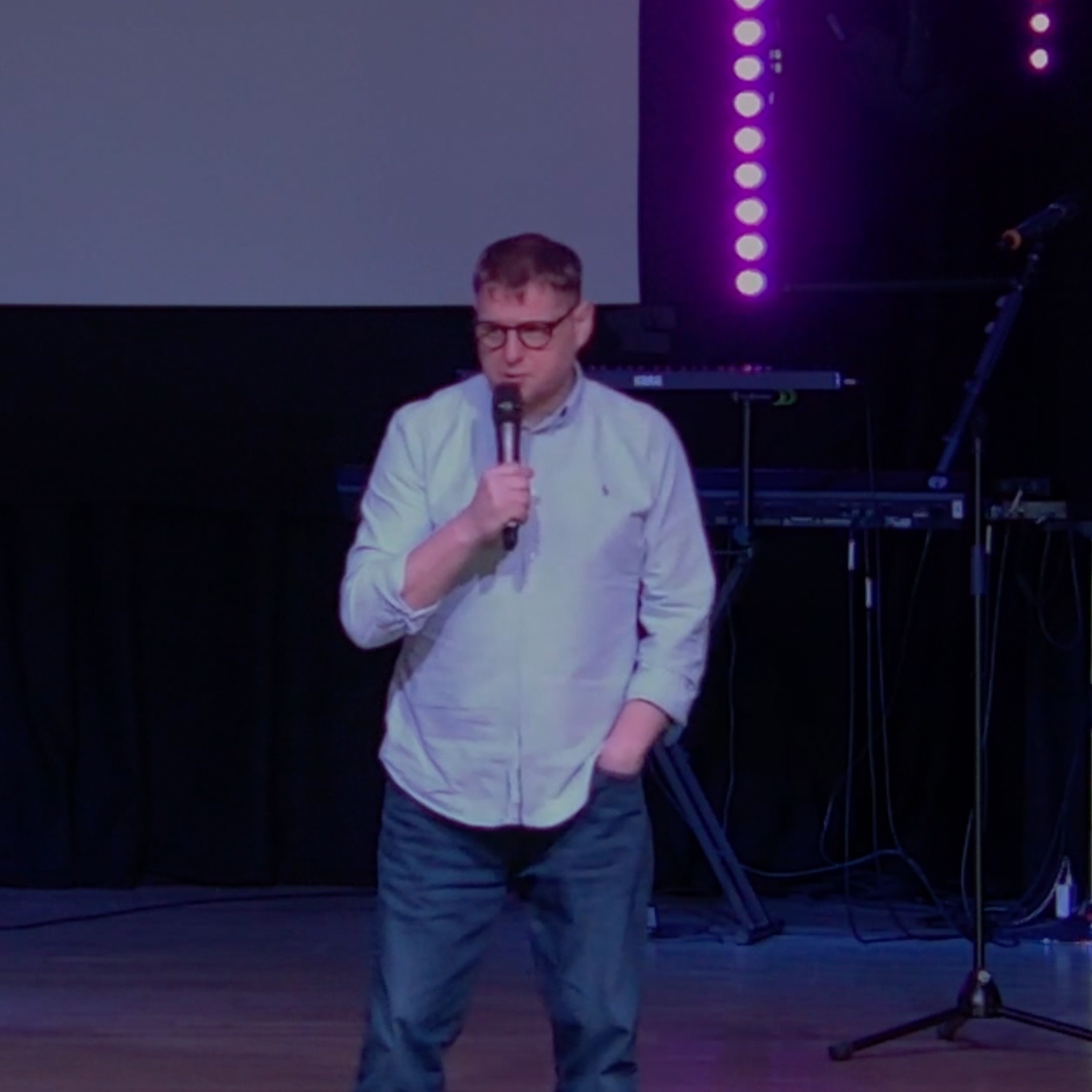
- Portrait Image:

- Rec Date:
5th February 2023
In this weeks episode, we explore how we can be more productive. We listen to the Holy Spirit and invite Him into our daily life. The Holy Spirit is gifted to us, will help us grow, and empower us to go. Creating space to hear God is a key component in building a relationship with Him. God can speak in many ways but sometimes we just need to make a quiet space. Doing more is about obeying what God tells us to do.
In this final episode of our series Progressive Overload Dom talks to us about a 3 'D' ministry.
Discovering who we are in God | Developing our purpose | Deploying our purpose out in to the world
- Bible References:
- Bible Reference:
John 17, Bible Link:
https://www.biblegateway.com/passage/?search=John%2017&version=NIV, Bible Passage:
After Jesus said this, he looked toward heaven and prayed:
“Father, the hour has come. Glorify your Son, that your Son may glorify you. For you granted him authority over all people that he might give eternal life to all those you have given him. Now this is eternal life: that they know you, the only true God, and Jesus Christ, whom you have sent. I have brought you glory on earth by finishing the work you gave me to do. And now, Father, glorify me in your presence with the glory I had with you before the world began.
“I have revealed you to those whom you gave me out of the world. They were yours; you gave them to me and they have obeyed your word. Now they know that everything you have given me comes from you. For I gave them the words you gave me and they accepted them. They knew with certainty that I came from you, and they believed that you sent me. I pray for them. I am not praying for the world, but for those you have given me, for they are yours. All I have is yours, and all you have is mine. And glory has come to me through them. I will remain in the world no longer, but they are still in the world, and I am coming to you. Holy Father, protect them by the power of your name, the name you gave me, so that they may be one as we are one. While I was with them, I protected them and kept them safe by that name you gave me. None has been lost except the one doomed to destruction so that Scripture would be fulfilled.
“I am coming to you now, but I say these things while I am still in the world, so that they may have the full measure of my joy within them. I have given them your word and the world has hated them, for they are not of the world any more than I am of the world. My prayer is not that you take them out of the world but that you protect them from the evil one. They are not of the world, even as I am not of it. Sanctify them by the truth; your word is truth. As you sent me into the world, I have sent them into the world. For them I sanctify myself, that they too may be truly sanctified.
“My prayer is not for them alone. I pray also for those who will believe in me through their message, that all of them may be one, Father, just as you are in me and I am in you. May they also be in us so that the world may believe that you have sent me. I have given them the glory that you gave me, that they may be one as we are one— I in them and you in me—so that they may be brought to complete unity. Then the world will know that you sent me and have loved them even as you have loved me.
“Father, I want those you have given me to be with me where I am, and to see my glory, the glory you have given me because you loved me before the creation of the world.
“Righteous Father, though the world does not know you, I know you, and they know that you have sent me. I have made you known to them, and will continue to make you known in order that the love you have for me may be in them and that I myself may be in them.”
- Episode Audio Embed:
- YouTube Link:
Visit Website
- Anchor.fm Link:
Visit Website
- Spotify Link:
Visit Website
- Square Image:

- Portrait Image:

- Rec Date:
12th February 2023
In this weeks episode, we continue the series on the progressive overload, David walked us through how we can help people. We go through the importance of spending time alone to pray, the lords prayer and how to pray for ourselves and other people.
- Bible References:
- Bible Reference:
Romans 5, Bible Link:
https://www.biblegateway.com/passage/?search=Romans%205&version=NIV, Bible Passage:
Therefore, since we have been justified through faith, we have peace with God through our Lord Jesus Christ, through whom we have gained access by faith into this grace in which we now stand. And we boast in the hope of the glory of God. Not only so, but we also glory in our sufferings, because we know that suffering produces perseverance; perseverance, character; and character, hope. And hope does not put us to shame, because God’s love has been poured out into our hearts through the Holy Spirit, who has been given to us.
You see, at just the right time, when we were still powerless, Christ died for the ungodly. Very rarely will anyone die for a righteous person, though for a good person someone might possibly dare to die. But God demonstrates his own love for us in this: While we were still sinners, Christ died for us.
Since we have now been justified by his blood, how much more shall we be saved from God’s wrath through him! For if, while we were God’s enemies, we were reconciled to him through the death of his Son, how much more, having been reconciled, shall we be saved through his life! Not only is this so, but we also boast in God through our Lord Jesus Christ, through whom we have now received reconciliation.
Therefore, just as sin entered the world through one man, and death through sin, and in this way death came to all people, because all sinned—
To be sure, sin was in the world before the law was given, but sin is not charged against anyone’s account where there is no law. Nevertheless, death reigned from the time of Adam to the time of Moses, even over those who did not sin by breaking a command, as did Adam, who is a pattern of the one to come.
But the gift is not like the trespass. For if the many died by the trespass of the one man, how much more did God’s grace and the gift that came by the grace of the one man, Jesus Christ, overflow to the many! Nor can the gift of God be compared with the result of one man’s sin: The judgment followed one sin and brought condemnation, but the gift followed many trespasses and brought justification. For if, by the trespass of the one man, death reigned through that one man, how much more will those who receive God’s abundant provision of grace and of the gift of righteousness reign in life through the one man, Jesus Christ!
Consequently, just as one trespass resulted in condemnation for all people, so also one righteous act resulted in justification and life for all people. For just as through the disobedience of the one man the many were made sinners, so also through the obedience of the one man the many will be made righteous.
The law was brought in so that the trespass might increase. But where sin increased, grace increased all the more, so that, just as sin reigned in death, so also grace might reign through righteousness to bring eternal life through Jesus Christ our Lord.
- Episode Audio Embed:
- YouTube Link:
Visit Website
- Anchor.fm Link:
Visit Website
- Spotify Link:
Visit Website
- Square Image:

- Portrait Image:

- Rec Date:
19th February 2023
In this weeks episode, we continue the series on the progressive overload, Dom walked us through how we can make a difference. We go through Romans 5, discussing riotousness through faith, the law of God and Moses, and the ultimate sacrifice of Jesus for us.
- Bible References:
- Bible Reference:
Exodus 3:4-15, Bible Link:
https://www.biblegateway.com/passage/?search=Exodus%203%3A4-15&version=NIV, Bible Passage:
When the Lord saw that he had gone over to look, God called to him from within the bush, “Moses! Moses!”
And Moses said, “Here I am.”
“Do not come any closer,” God said. “Take off your sandals, for the place where you are standing is holy ground.” Then he said, “I am the God of your father, the God of Abraham, the God of Isaac and the God of Jacob.” At this, Moses hid his face, because he was afraid to look at God.
The Lord said, “I have indeed seen the misery of my people in Egypt. I have heard them crying out because of their slave drivers, and I am concerned about their suffering. So I have come down to rescue them from the hand of the Egyptians and to bring them up out of that land into a good and spacious land, a land flowing with milk and honey—the home of the Canaanites, Hittites, Amorites, Perizzites, Hivites and Jebusites. And now the cry of the Israelites has reached me, and I have seen the way the Egyptians are oppressing them. So now, go. I am sending you to Pharaoh to bring my people the Israelites out of Egypt.”
But Moses said to God, “Who am I that I should go to Pharaoh and bring the Israelites out of Egypt?”
And God said, “I will be with you. And this will be the sign to you that it is I who have sent you: When you have brought the people out of Egypt, you will worship God on this mountain.”
Moses said to God, “Suppose I go to the Israelites and say to them, ‘The God of your fathers has sent me to you,’ and they ask me, ‘What is his name?’ Then what shall I tell them?”
God said to Moses, “I am who I am. This is what you are to say to the Israelites: ‘I am has sent me to you.’”
God also said to Moses, “Say to the Israelites, ‘The Lord, the God of your fathers—the God of Abraham, the God of Isaac and the God of Jacob—has sent me to you.’
“This is my name forever,
the name you shall call me
from generation to generation.
- Bible Reference:
Matthew 1:20-23, Bible Link:
https://www.biblegateway.com/passage/?search=Matthew+1%3A20-23&version=NIV, Bible Passage:
But after he had considered this, an angel of the Lord appeared to him in a dream and said, “Joseph son of David, do not be afraid to take Mary home as your wife, because what is conceived in her is from the Holy Spirit. She will give birth to a son, and you are to give him the name Jesus, because he will save his people from their sins.”
All this took place to fulfill what the Lord had said through the prophet: “The virgin will conceive and give birth to a son, and they will call him Immanuel” (which means “God with us”).
- Bible Reference:
John 8:48-53, Bible Link:
https://www.biblegateway.com/passage/?search=John+8%3A48-53&version=NIV, Bible Passage:
The Jews answered him, “Aren’t we right in saying that you are a Samaritan and demon-possessed?”
“I am not possessed by a demon,” said Jesus, “but I honor my Father and you dishonor me. I am not seeking glory for myself; but there is one who seeks it, and he is the judge. Very truly I tell you, whoever obeys my word will never see death.”
At this they exclaimed, “Now we know that you are demon-possessed! Abraham died and so did the prophets, yet you say that whoever obeys your word will never taste death. Are you greater than our father Abraham? He died, and so did the prophets. Who do you think you are?”
Jesus replied, “If I glorify myself, my glory means nothing. My Father, whom you claim as your God, is the one who glorifies me. Though you do not know him, I know him. If I said I did not, I would be a liar like you, but I do know him and obey his word. Your father Abraham rejoiced at the thought of seeing my day; he saw it and was glad.”
“You are not yet fifty years old,” they said to him, “and you have seen Abraham!”
“Very truly I tell you,” Jesus answered, “before Abraham was born, I am!”
- Episode Slides:
- Slide:

- Slide:

- Slide:

- Slide:

- Slide:

- Slide:

- Slide:

- Slide:

- Slide:

- Episode Audio Embed:
- Episode Preview MP4:
Visit Website
- Anchor.fm Link:
Visit Website
- Spotify Link:
Visit Website
- Square Image:
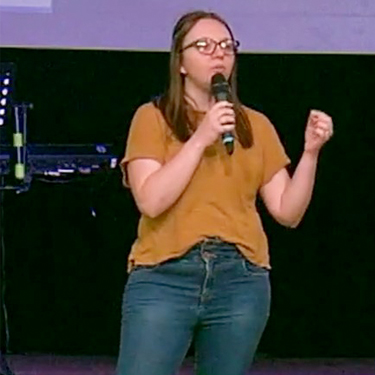
- Portrait Image:
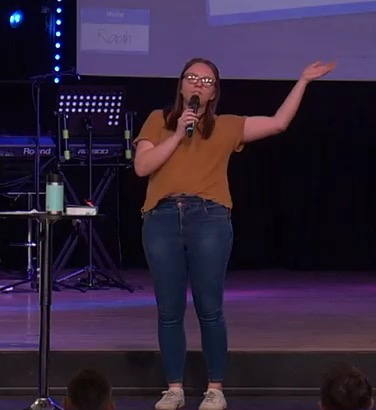
- Rec Date:
24th April 2022
Samantha begins a new series discovering some of the character and nature of God, extracted from the names and story of God found in the Old Testament.
This week we're looking at the name that God gives himself in Exodus 3, when speaking to Moses at the burning bush.
- Bible References:
- Bible Reference:
John 15, Bible Link:
https://www.biblegateway.com/passage/?search=John%2015&version=NIV, Bible Passage:
“I am the true vine, and my Father is the gardener. He cuts off every branch in me that bears no fruit, while every branch that does bear fruit he prunes so that it will be even more fruitful. You are already clean because of the word I have spoken to you. Remain in me, as I also remain in you. No branch can bear fruit by itself; it must remain in the vine. Neither can you bear fruit unless you remain in me.
“I am the vine; you are the branches. If you remain in me and I in you, you will bear much fruit; apart from me you can do nothing. If you do not remain in me, you are like a branch that is thrown away and withers; such branches are picked up, thrown into the fire and burned. If you remain in me and my words remain in you, ask whatever you wish, and it will be done for you. This is to my Father’s glory, that you bear much fruit, showing yourselves to be my disciples.
“As the Father has loved me, so have I loved you. Now remain in my love. If you keep my commands, you will remain in my love, just as I have kept my Father’s commands and remain in his love. I have told you this so that my joy may be in you and that your joy may be complete. My command is this: Love each other as I have loved you. Greater love has no one than this: to lay down one’s life for one’s friends. You are my friends if you do what I command. I no longer call you servants, because a servant does not know his master’s business. Instead, I have called you friends, for everything that I learned from my Father I have made known to you. You did not choose me, but I chose you and appointed you so that you might go and bear fruit—fruit that will last—and so that whatever you ask in my name the Father will give you. This is my command: Love each other.
“If the world hates you, keep in mind that it hated me first. If you belonged to the world, it would love you as its own. As it is, you do not belong to the world, but I have chosen you out of the world. That is why the world hates you. Remember what I told you: ‘A servant is not greater than his master.’ If they persecuted me, they will persecute you also. If they obeyed my teaching, they will obey yours also. They will treat you this way because of my name, for they do not know the one who sent me. If I had not come and spoken to them, they would not be guilty of sin; but now they have no excuse for their sin. Whoever hates me hates my Father as well. If I had not done among them the works no one else did, they would not be guilty of sin. As it is, they have seen, and yet they have hated both me and my Father. But this is to fulfill what is written in their Law: ‘They hated me without reason.’
“When the Advocate comes, whom I will send to you from the Father—the Spirit of truth who goes out from the Father—he will testify about me. And you also must testify, for you have been with me from the beginning.
- Episode Audio Embed:
- YouTube Link:
Visit Website
- Anchor.fm Link:
Visit Website
- Spotify Link:
Visit Website
- Square Image:
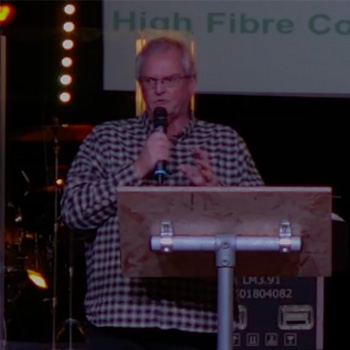
- Portrait Image:

- Rec Date:
6th November 2022
In this message we look at the last of the 7 "I am's". I am the vine. We discuss the three points; The lost connection, the reconnection, and the high fibre connection.
Our identities are the very essence of who we are! This week Dom takes a look at what the Bible says about our identities and what happens when we reject the identity that God has given us?
- Bible References:
- Bible Reference:
Genesis 22:1-14, Bible Link:
https://www.biblegateway.com/passage/?search=Genesis+22%3A1-14&version=NIV, Bible Passage:
Some time later God tested Abraham. He said to him, “Abraham!”
“Here I am,” he replied.
Then God said, “Take your son, your only son, whom you love—Isaac—and go to the region of Moriah. Sacrifice him there as a burnt offering on a mountain I will show you.”
Early the next morning Abraham got up and loaded his donkey. He took with him two of his servants and his son Isaac. When he had cut enough wood for the burnt offering, he set out for the place God had told him about. On the third day Abraham looked up and saw the place in the distance. He said to his servants, “Stay here with the donkey while I and the boy go over there. We will worship and then we will come back to you.”
Abraham took the wood for the burnt offering and placed it on his son Isaac, and he himself carried the fire and the knife. As the two of them went on together, Isaac spoke up and said to his father Abraham, “Father?”
“Yes, my son?” Abraham replied.
“The fire and wood are here,” Isaac said, “but where is the lamb for the burnt offering?”
Abraham answered, “God himself will provide the lamb for the burnt offering, my son.” And the two of them went on together.
When they reached the place God had told him about, Abraham built an altar there and arranged the wood on it. He bound his son Isaac and laid him on the altar, on top of the wood. Then he reached out his hand and took the knife to slay his son. But the angel of the Lord called out to him from heaven, “Abraham! Abraham!”
“Here I am,” he replied.
“Do not lay a hand on the boy,” he said. “Do not do anything to him. Now I know that you fear God, because you have not withheld from me your son, your only son.”
Abraham looked up and there in a thicket he saw a ram caught by its horns. He went over and took the ram and sacrificed it as a burnt offering instead of his son. So Abraham called that place The Lord Will Provide. And to this day it is said, “On the mountain of the Lord it will be provided.”
- Bible Reference:
Matthew 6:24-34, Bible Link:
https://www.biblegateway.com/passage/?search=Matthew+6%3A25-34&version=NIV, Bible Passage:
“Therefore I tell you, do not worry about your life, what you will eat or drink; or about your body, what you will wear. Is not life more than food, and the body more than clothes? Look at the birds of the air; they do not sow or reap or store away in barns, and yet your heavenly Father feeds them. Are you not much more valuable than they? Can any one of you by worrying add a single hour to your life?
“And why do you worry about clothes? See how the flowers of the field grow. They do not labor or spin. Yet I tell you that not even Solomon in all his splendor was dressed like one of these. If that is how God clothes the grass of the field, which is here today and tomorrow is thrown into the fire, will he not much more clothe you—you of little faith? So do not worry, saying, ‘What shall we eat?’ or ‘What shall we drink?’ or ‘What shall we wear?’ For the pagans run after all these things, and your heavenly Father knows that you need them. But seek first his kingdom and his righteousness, and all these things will be given to you as well. Therefore do not worry about tomorrow, for tomorrow will worry about itself. Each day has enough trouble of its own.
- Episode Slides:
- Slide:

- Slide:

- Slide:

- Slide:

- Slide:

- Episode Audio Embed:
- Episode Preview MP4:
Visit Website
- YouTube Link:
Visit Website
- Anchor.fm Link:
Visit Website
- Spotify Link:
Visit Website
- Square Image:
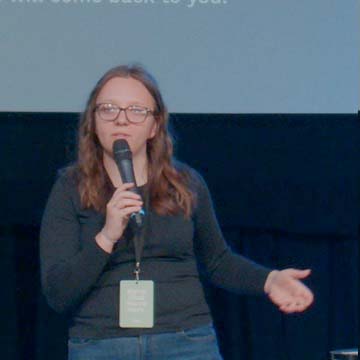
- Portrait Image:
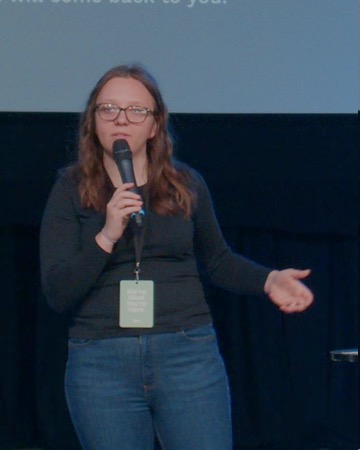
- Rec Date:
12th Jun 2022
In Genesis 22 God asks Abraham to take his son up a mountain to sacrifice him as a burnt offering. Through this story of Abraham's incredible obedience and faith, we saw a miraculous provision of God. God spares Abraham from sacrificing his son, and instead provides an offering for him to use.
In response, Abraham declares that Jehovah Jireh - the Lord provides. In our final week in this teaching series, Samantha unpacks some of what it means that the Lord is our provider. In order to see the true provision of God, we must put ourselves in a position where the faith is required that God will provide.
- Bible References:
- Bible Reference:
Exodus 17:5-15, Bible Link:
https://www.biblegateway.com/passage/?search=Exodus%2017%3A5-15&version=NKJV, Bible Passage:
And the Lord said to Moses, “Go on before the people, and take with you some of the elders of Israel. Also take in your hand your rod with which you struck the river, and go. Behold, I will stand before you there on the rock in Horeb; and you shall strike the rock, and water will come out of it, that the people may drink.”
And Moses did so in the sight of the elders of Israel. So he called the name of the place Massah and Meribah, because of the contention of the children of Israel, and because they tempted the Lord, saying, “Is the Lord among us or not?”
Now Amalek came and fought with Israel in Rephidim. And Moses said to Joshua, “Choose us some men and go out, fight with Amalek. Tomorrow I will stand on the top of the hill with the rod of God in my hand.” So Joshua did as Moses said to him, and fought with Amalek. And Moses, Aaron, and Hur went up to the top of the hill. And so it was, when Moses held up his hand, that Israel prevailed; and when he let down his hand, Amalek prevailed. But Moses’ hands became heavy; so they took a stone and put it under him, and he sat on it. And Aaron and Hur supported his hands, one on one side, and the other on the other side; and his hands were steady until the going down of the sun. So Joshua defeated Amalek and his people with the edge of the sword.
Then the Lord said to Moses, “Write this for a memorial in the book and recount it in the hearing of Joshua, that I will utterly blot out the remembrance of Amalek from under heaven.” And Moses built an altar and called its name, The-Lord-Is-My-Banner;
- Episode Slides:
- Slide:

- Slide:

- Slide:

- Slide:

- Slide:

- Slide:

- Episode Audio Embed:
- Episode Preview MP4:
Visit Website
- YouTube Link:
Visit Website
- Anchor.fm Link:
Visit Website
- Spotify Link:
Visit Website
- Square Image:
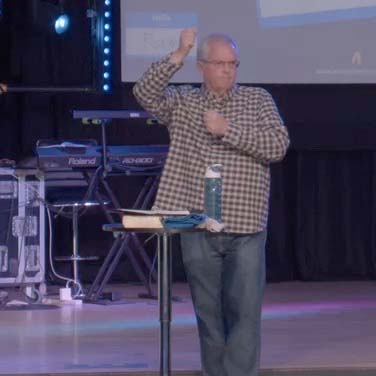
- Portrait Image:
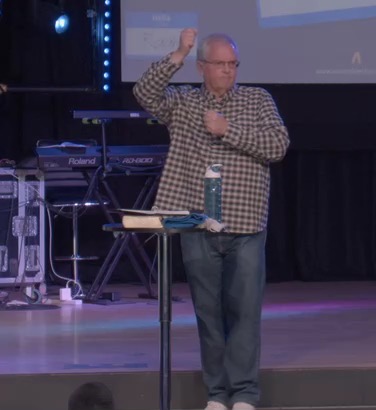
- Rec Date:
29th May 2022
In Exodus 17 Moses build an alter to God and calls it The LORD is my Banner. What does it mean to have the LORD as our banner. This week David explores some of the meaning of Yahweh as the one we raise high, and under whom we conduct our lives.
What does it look like to live lives under the banner that is God?
- Bible References:
- Bible Reference:
Psalm 23:1-4, Bible Link:
https://www.biblegateway.com/passage/?search=psalm+23%3A1-4&version=NIV, Bible Passage:
The Lord is my shepherd, I lack nothing.
He makes me lie down in green pastures,
he leads me beside quiet waters,
he refreshes my soul.
He guides me along the right paths
for his name’s sake.
Even though I walk
through the darkest valley,
I will fear no evil,
for you are with me;
your rod and your staff,
they comfort me.
- Bible Reference:
John 10:11-14, Bible Link:
https://www.biblegateway.com/passage/?search=John+10%3A11-14&version=NIV, Bible Passage:
“I am the good shepherd. The good shepherd lays down his life for the sheep. The hired hand is not the shepherd and does not own the sheep. So when he sees the wolf coming, he abandons the sheep and runs away. Then the wolf attacks the flock and scatters it. The man runs away because he is a hired hand and cares nothing for the sheep.
“I am the good shepherd; I know my sheep and my sheep know me—
- Episode Slides:
- Slide:
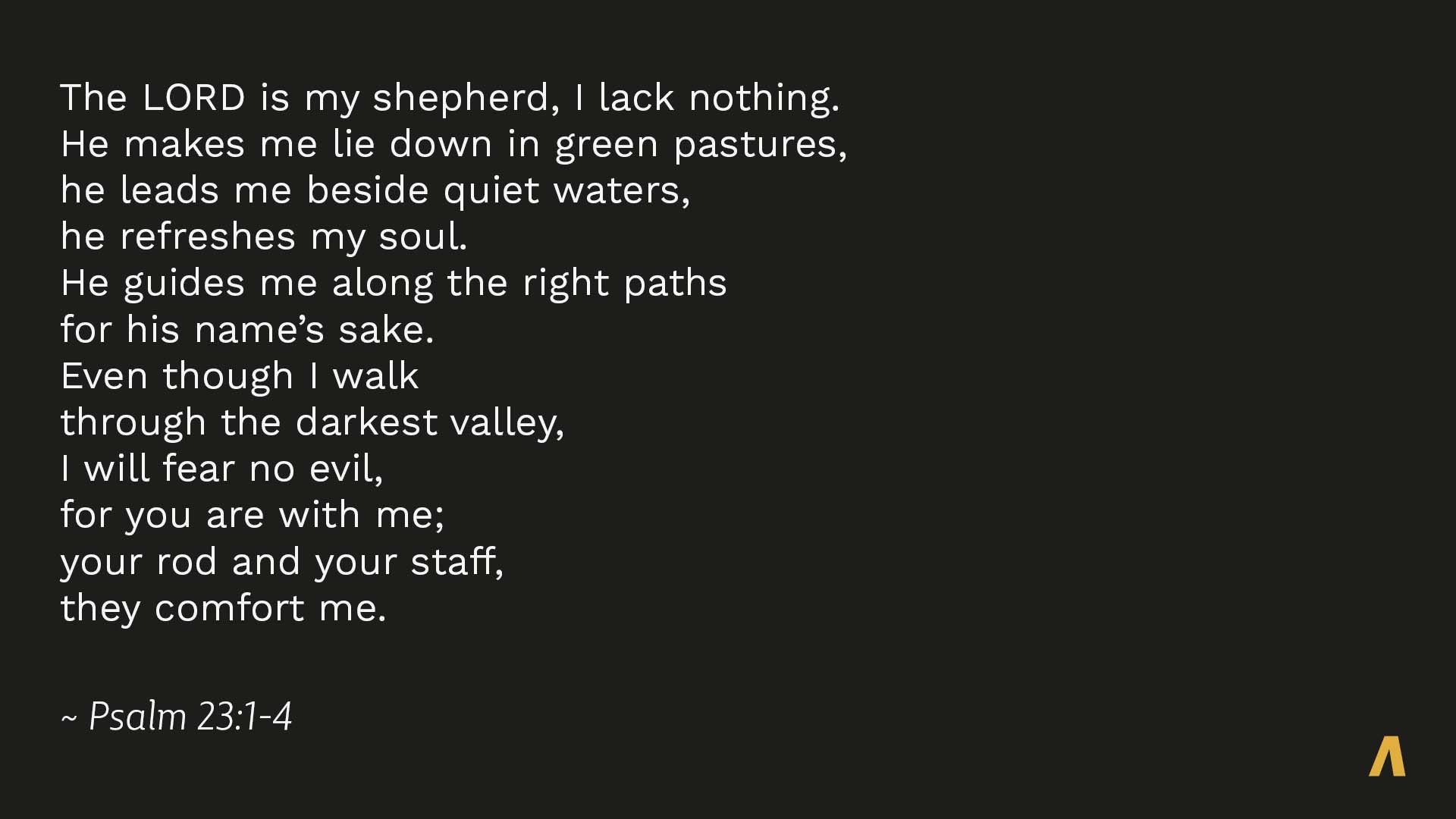
- Slide:
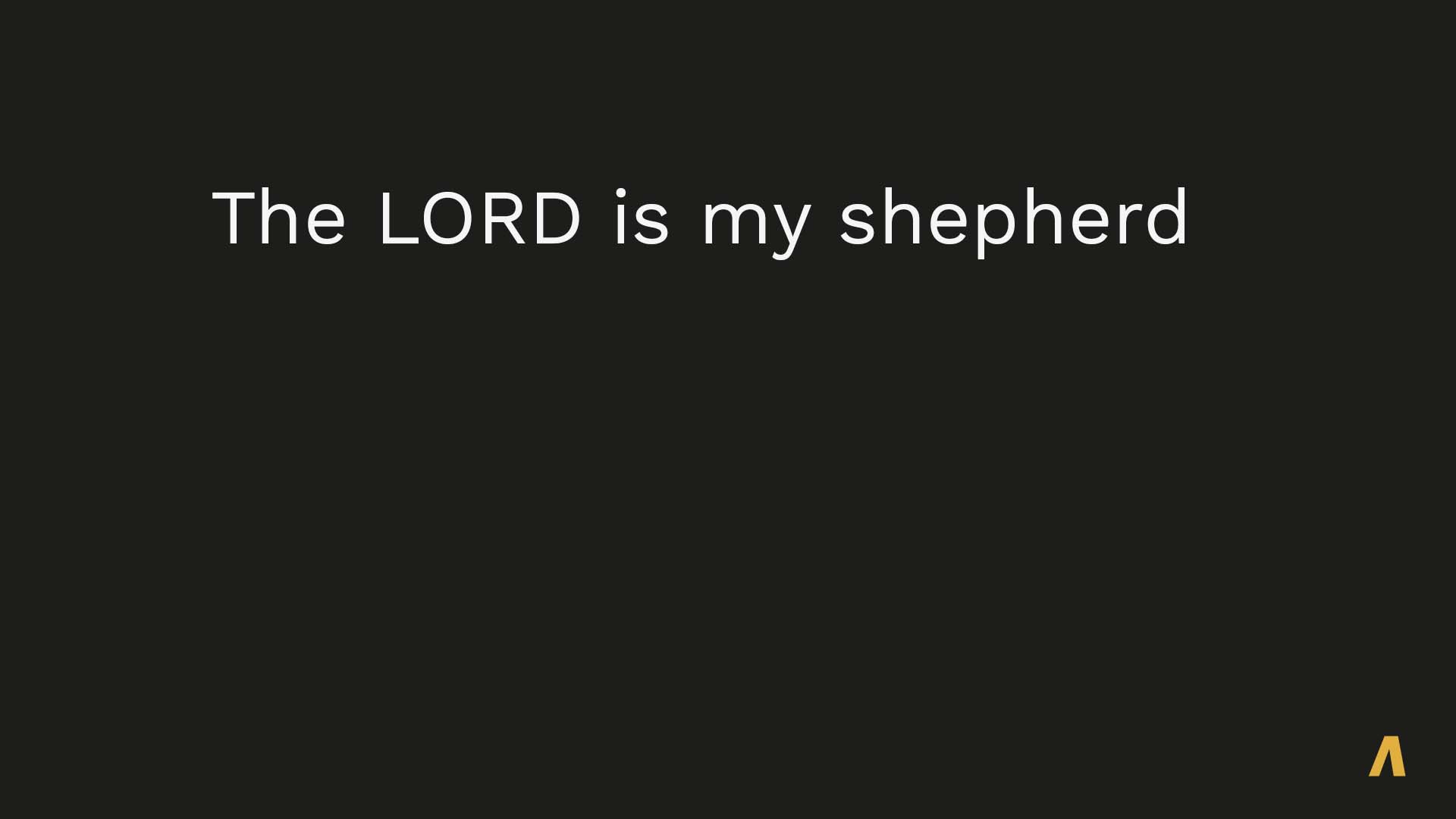
- Slide:
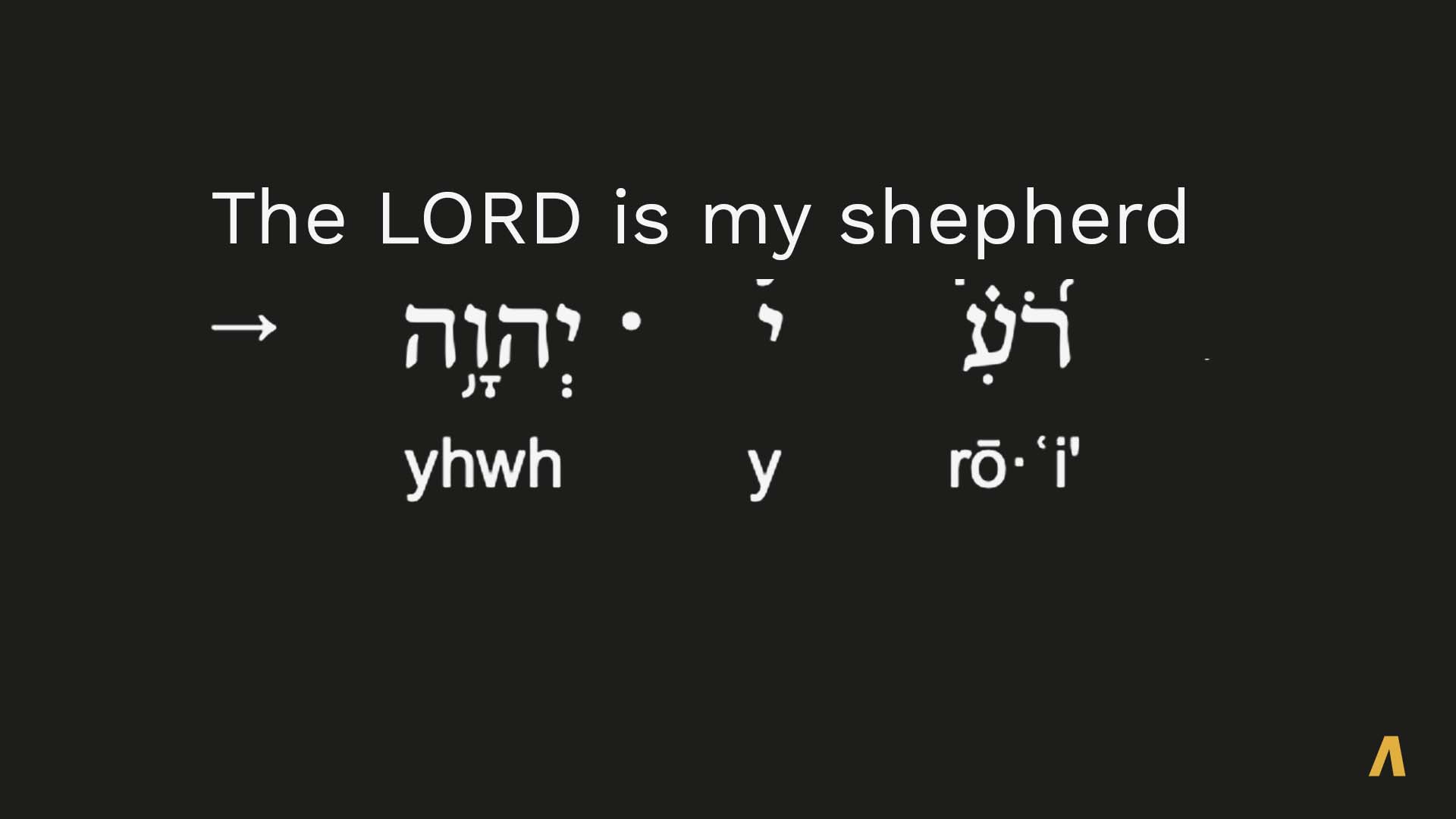
- Slide:
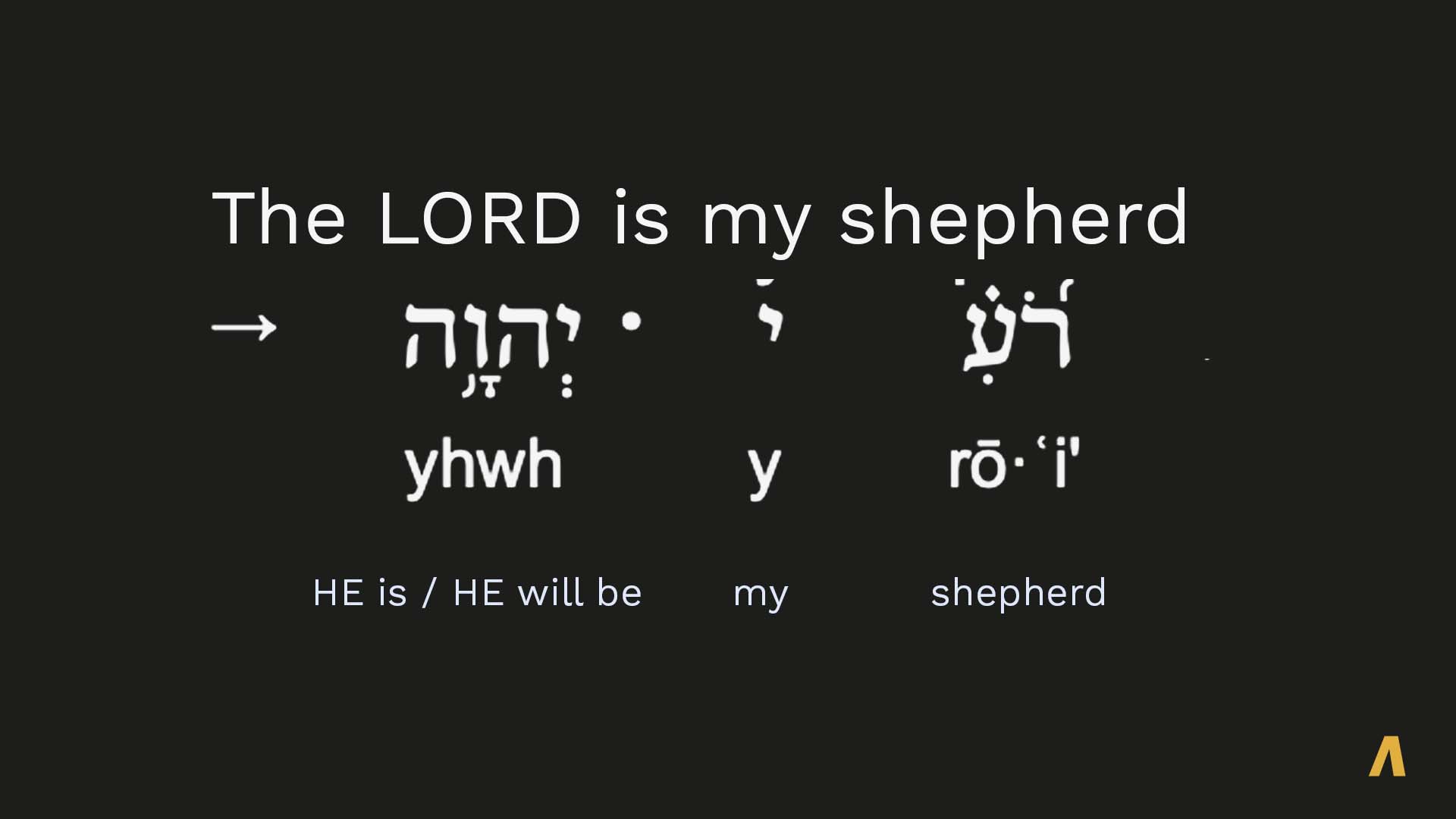
- Slide:
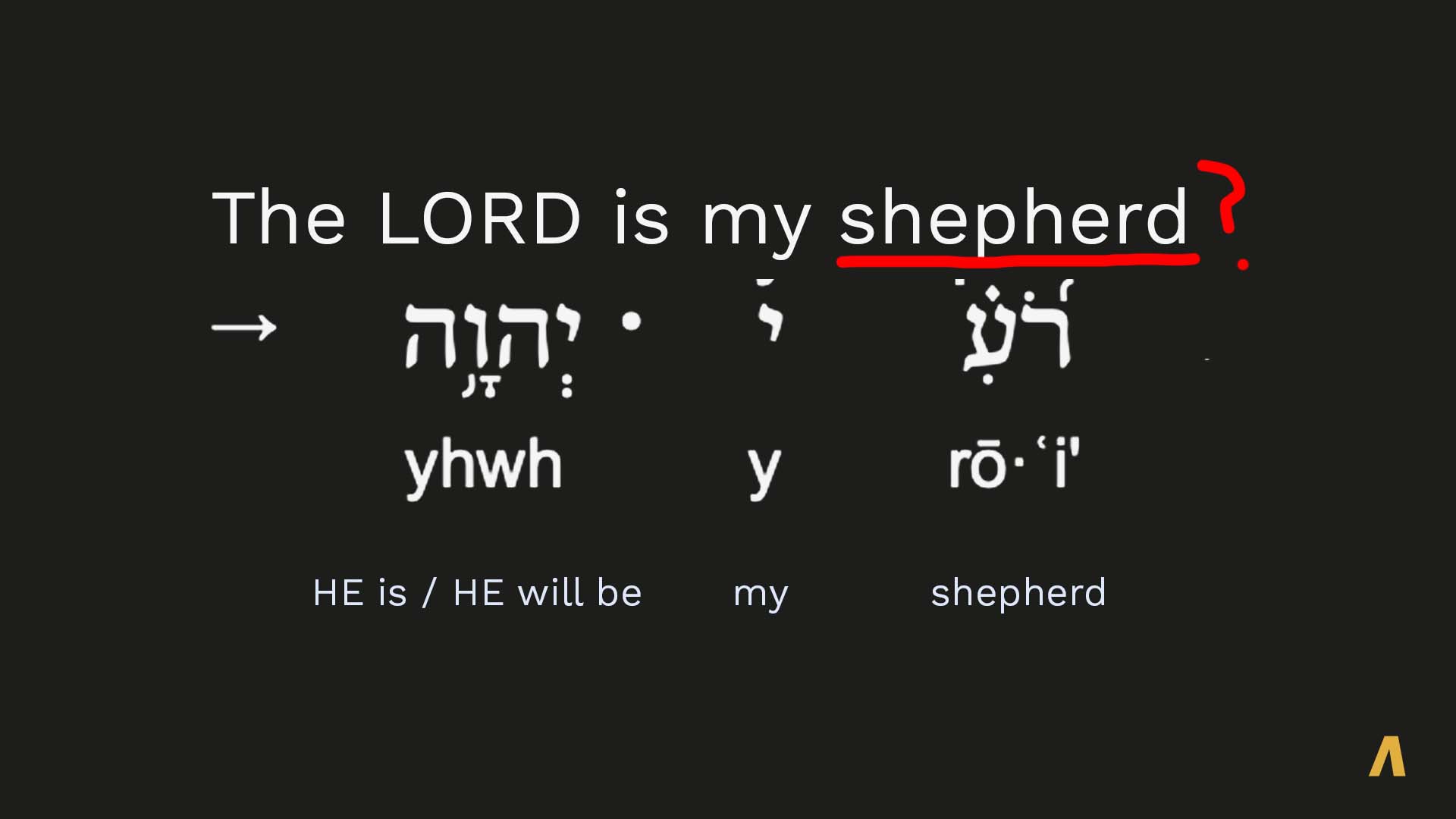
- Slide:
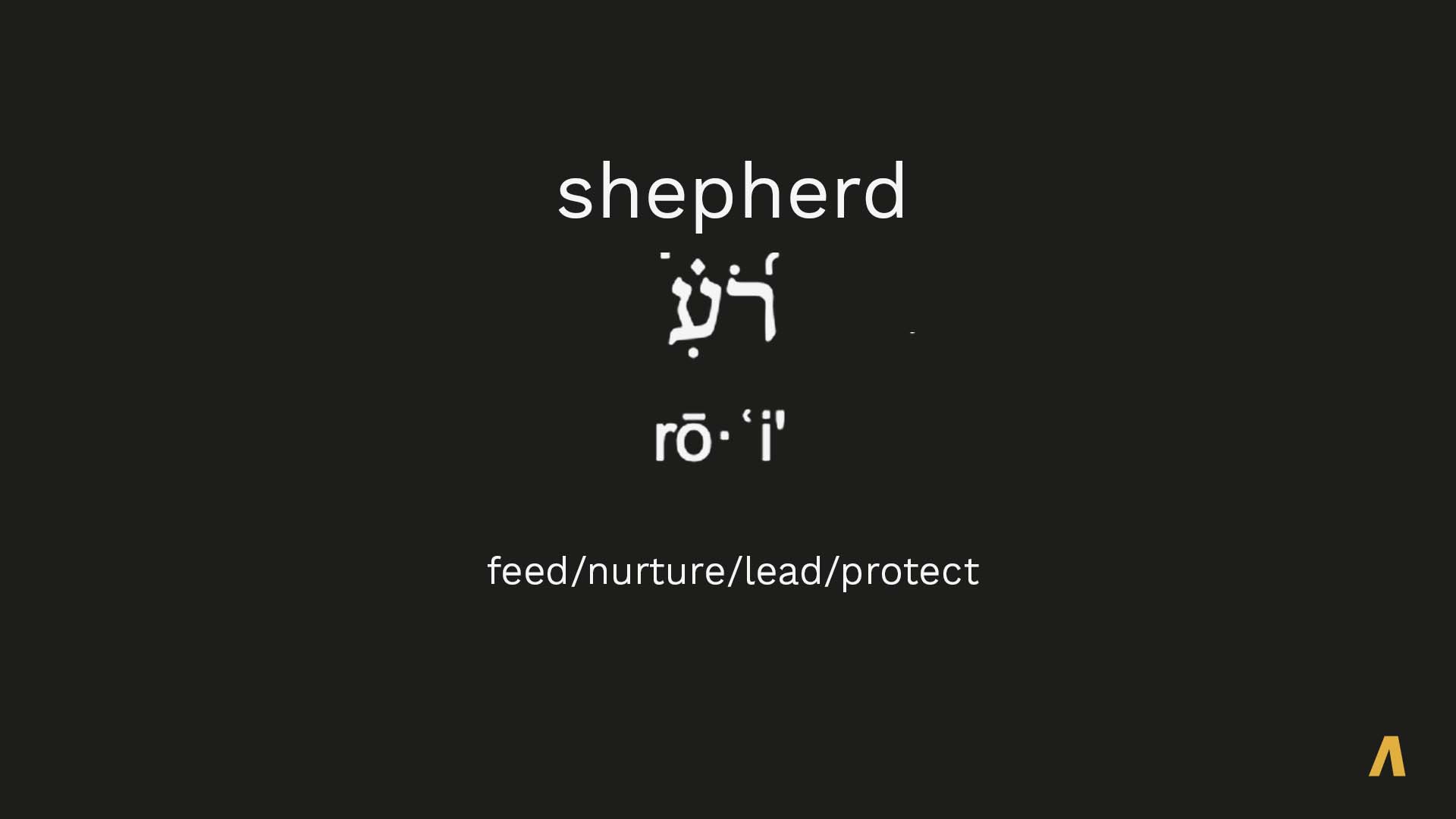
- Slide:

- Slide:

- Slide:

- Slide:
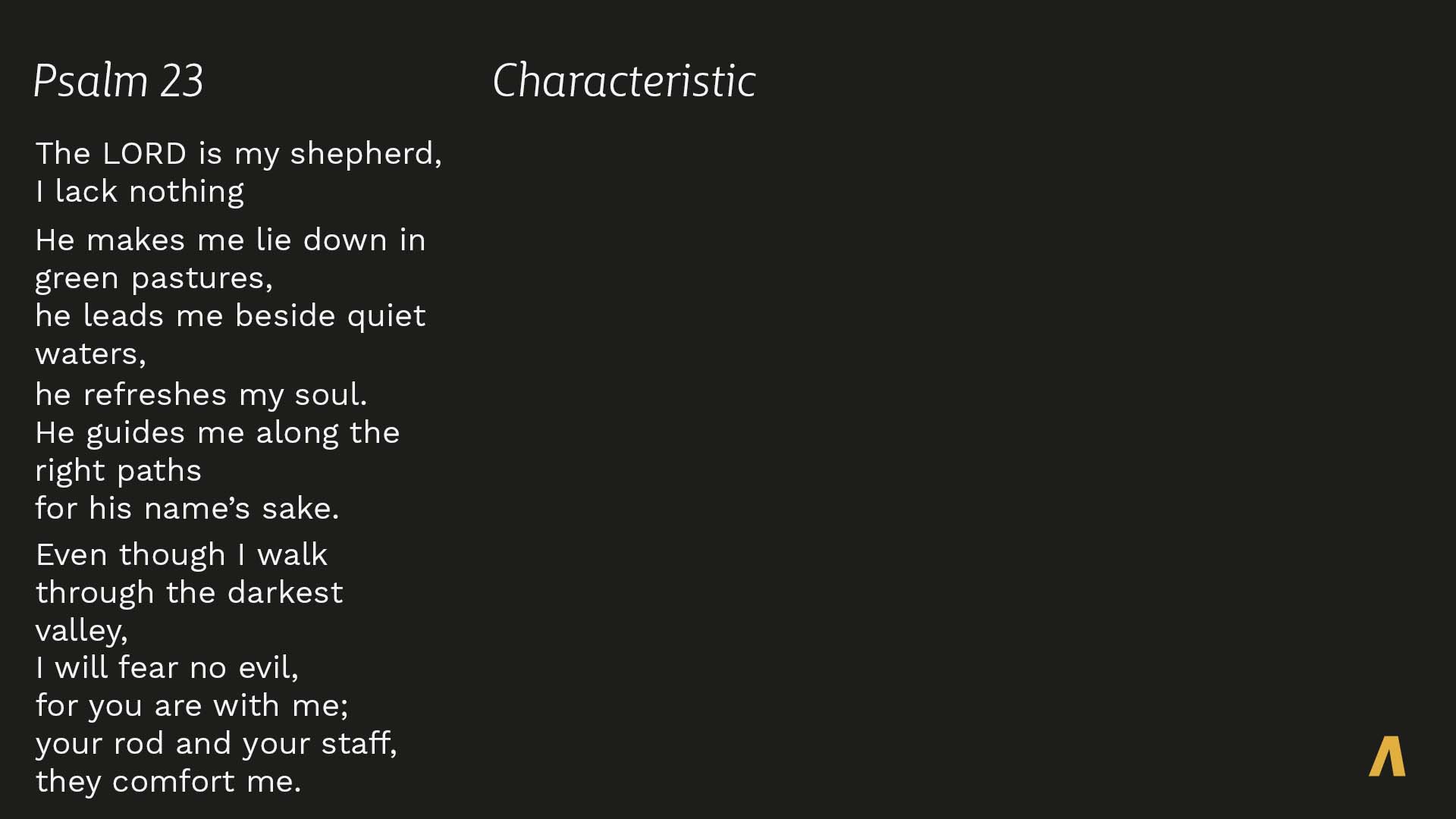
- Slide:
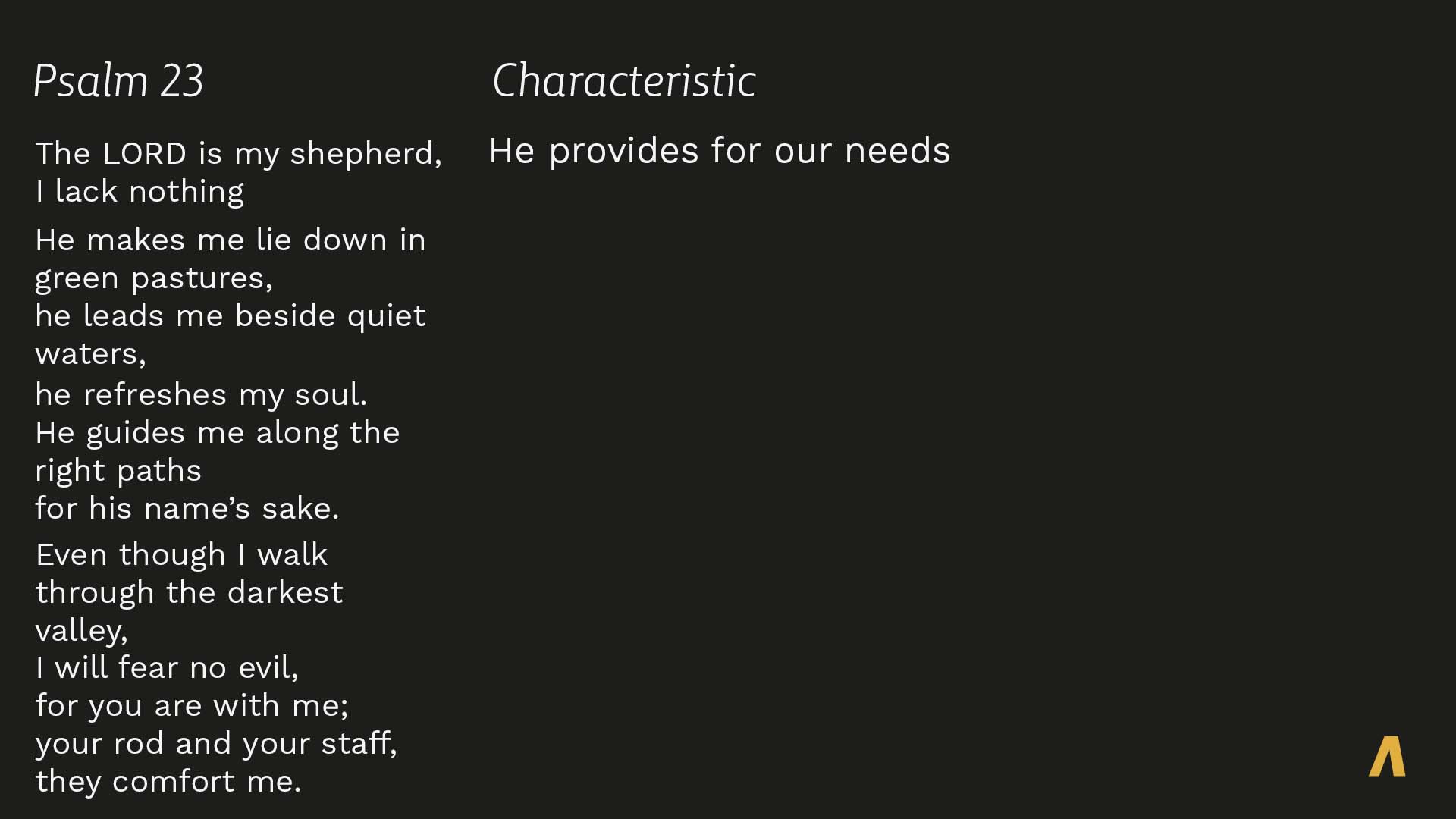
- Slide:
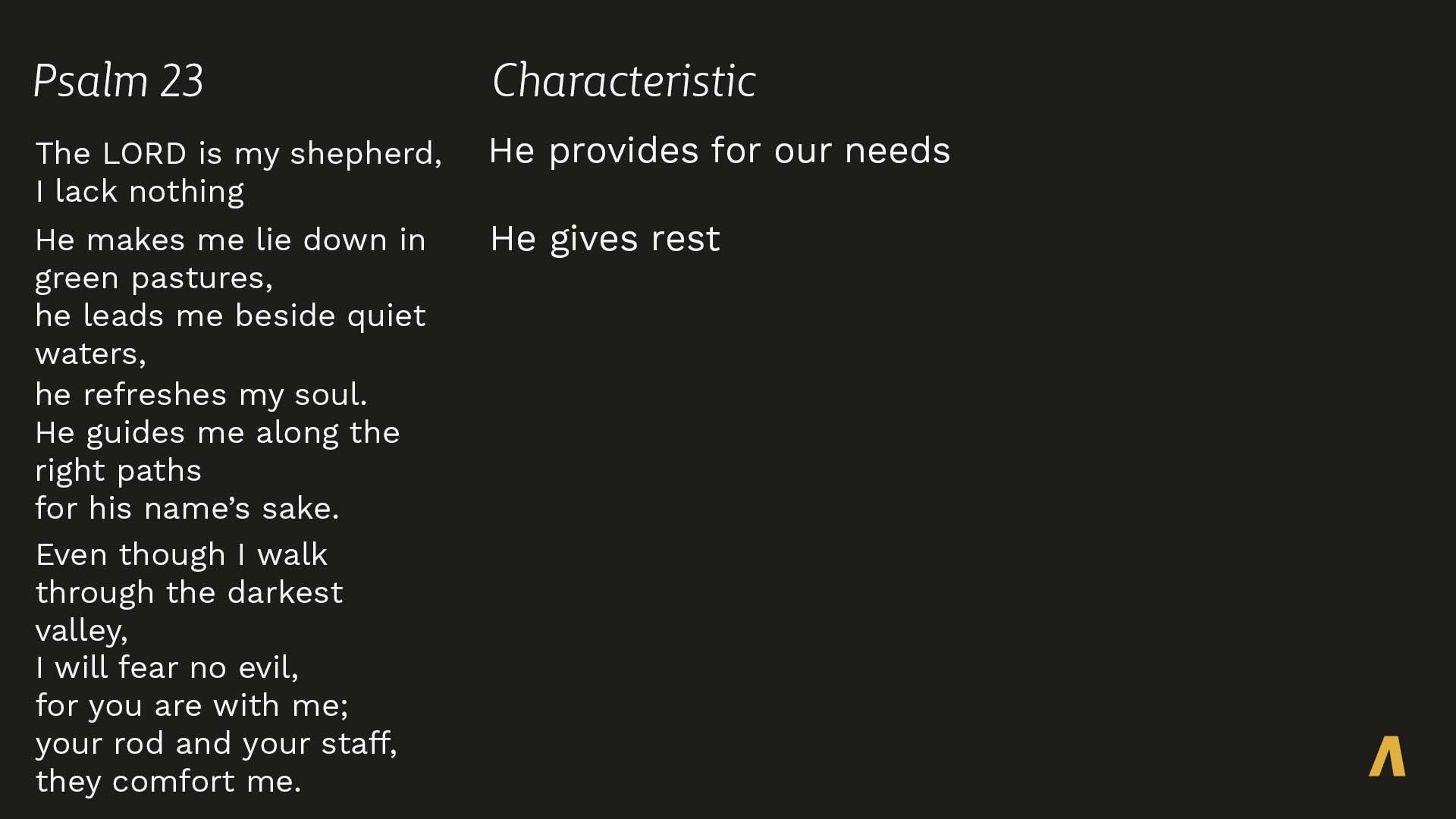
- Slide:
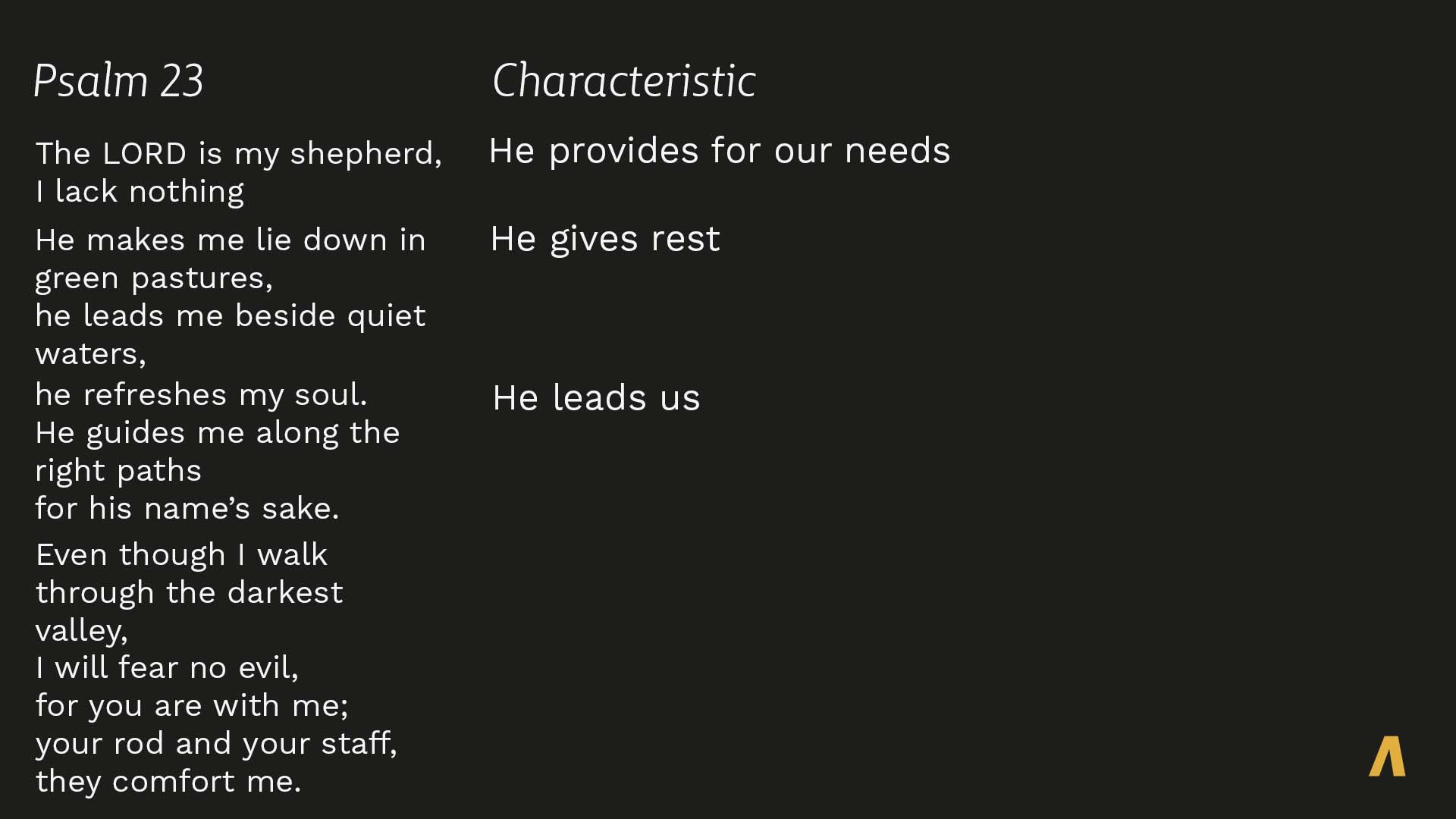
- Slide:
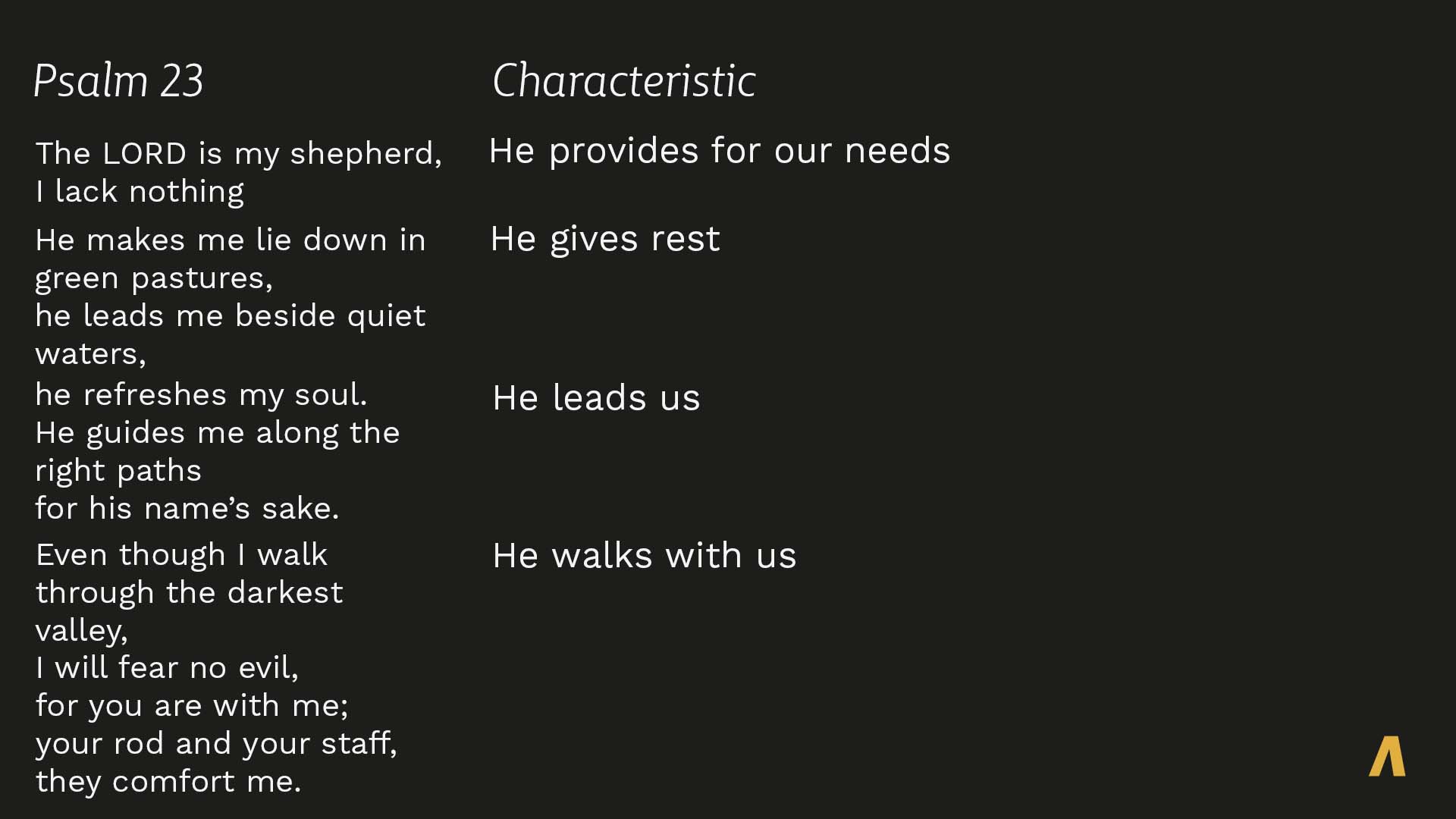
- Slide:
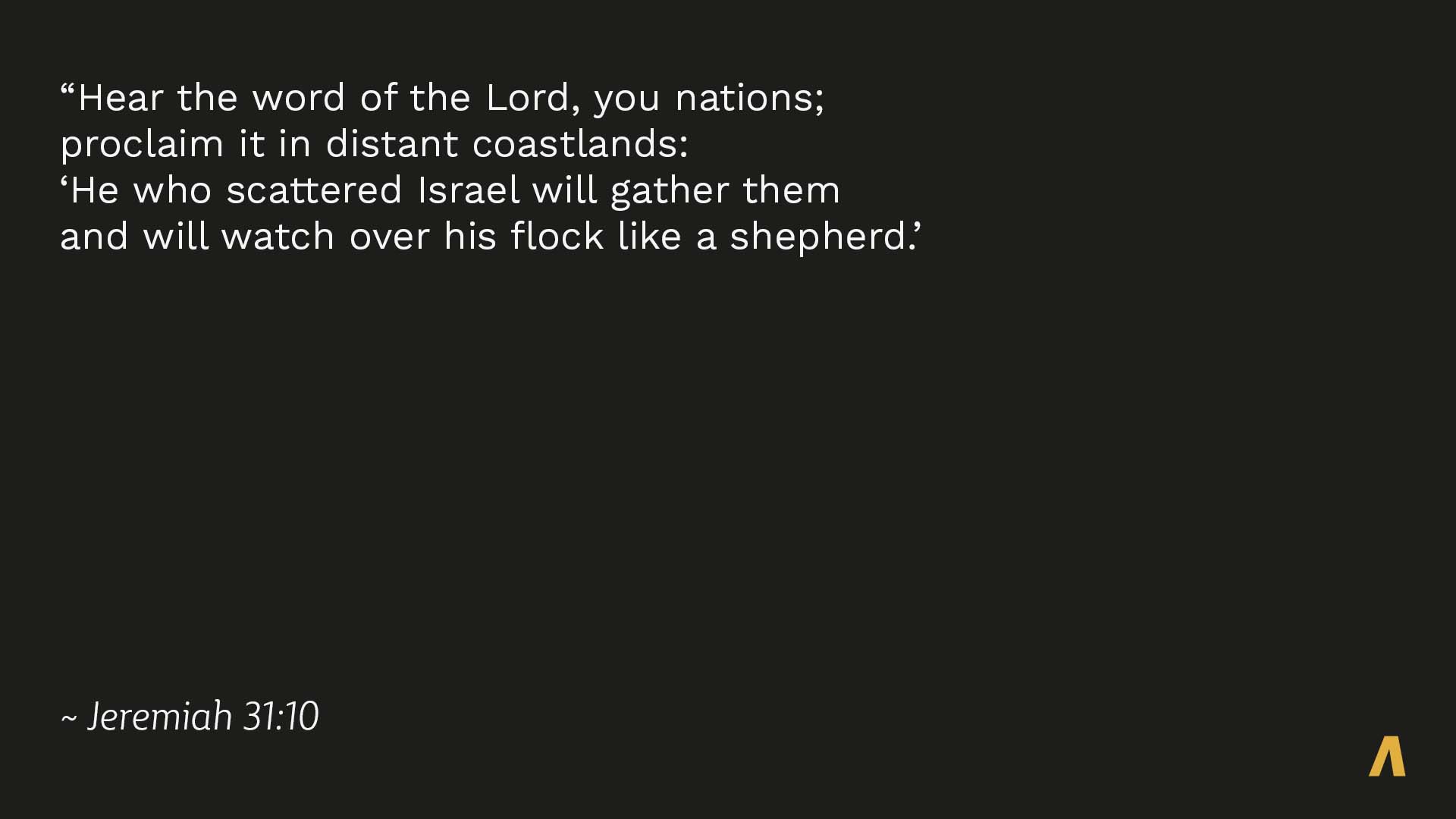
- Slide:
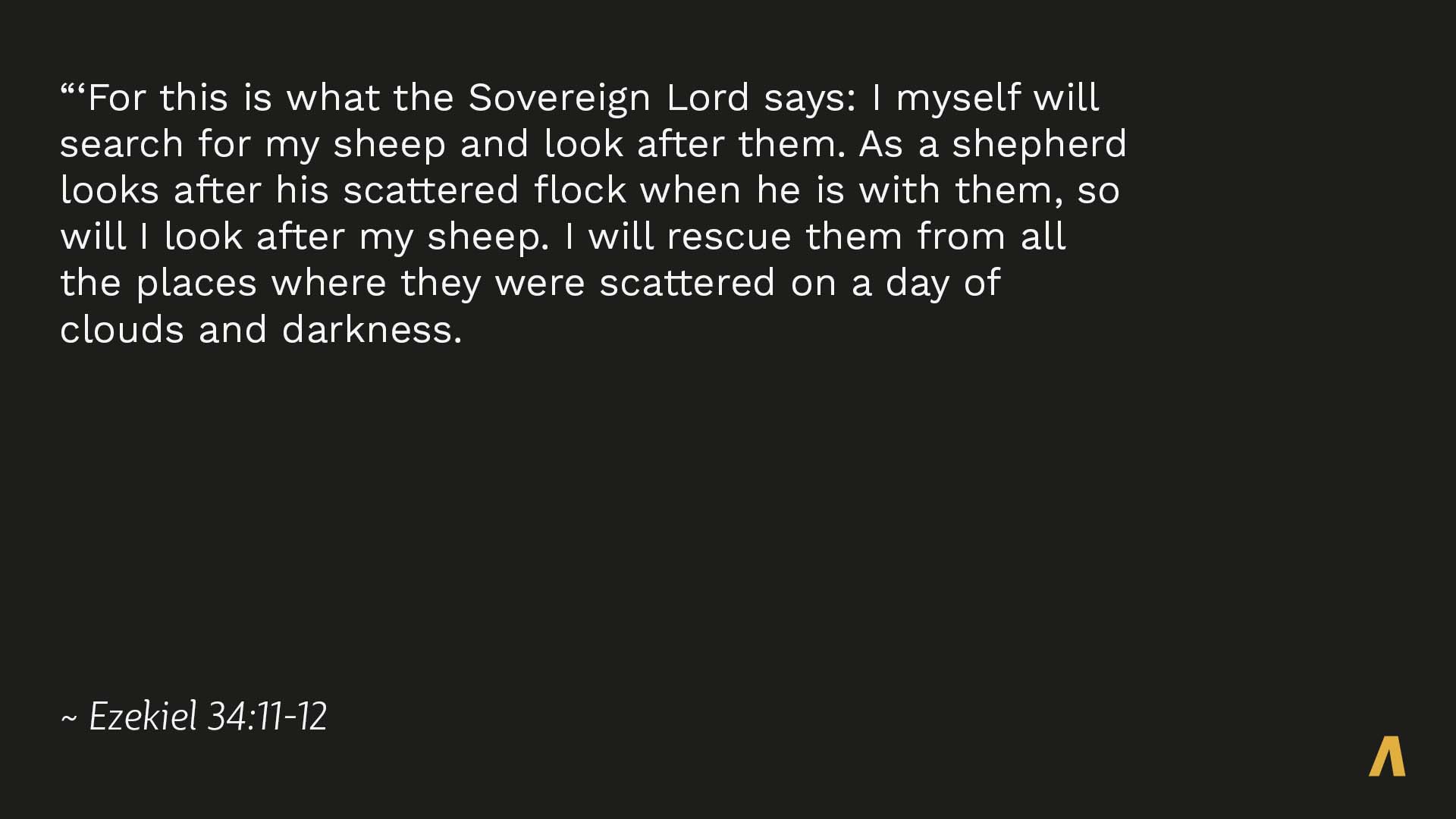
- Slide:
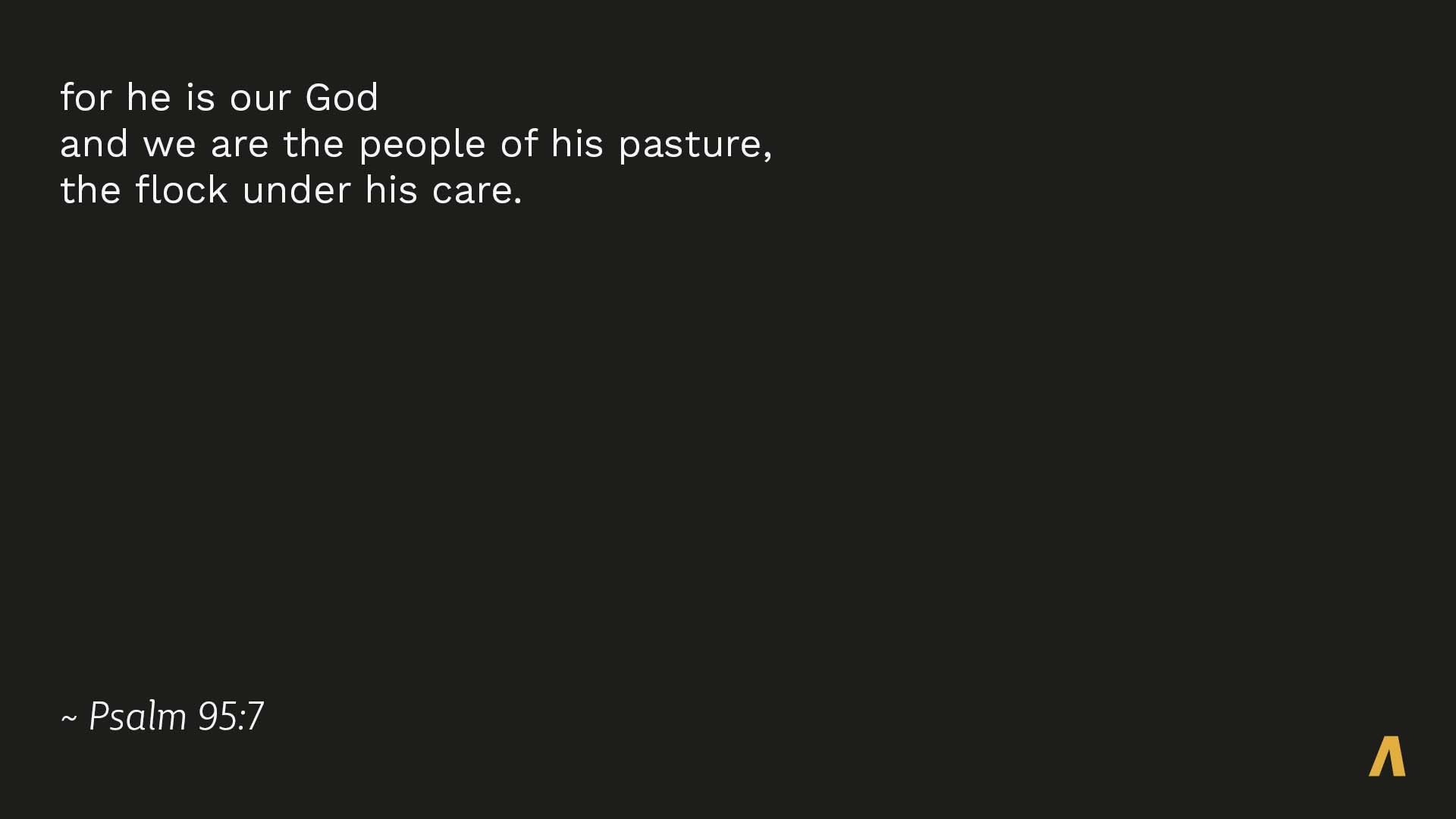
- Slide:
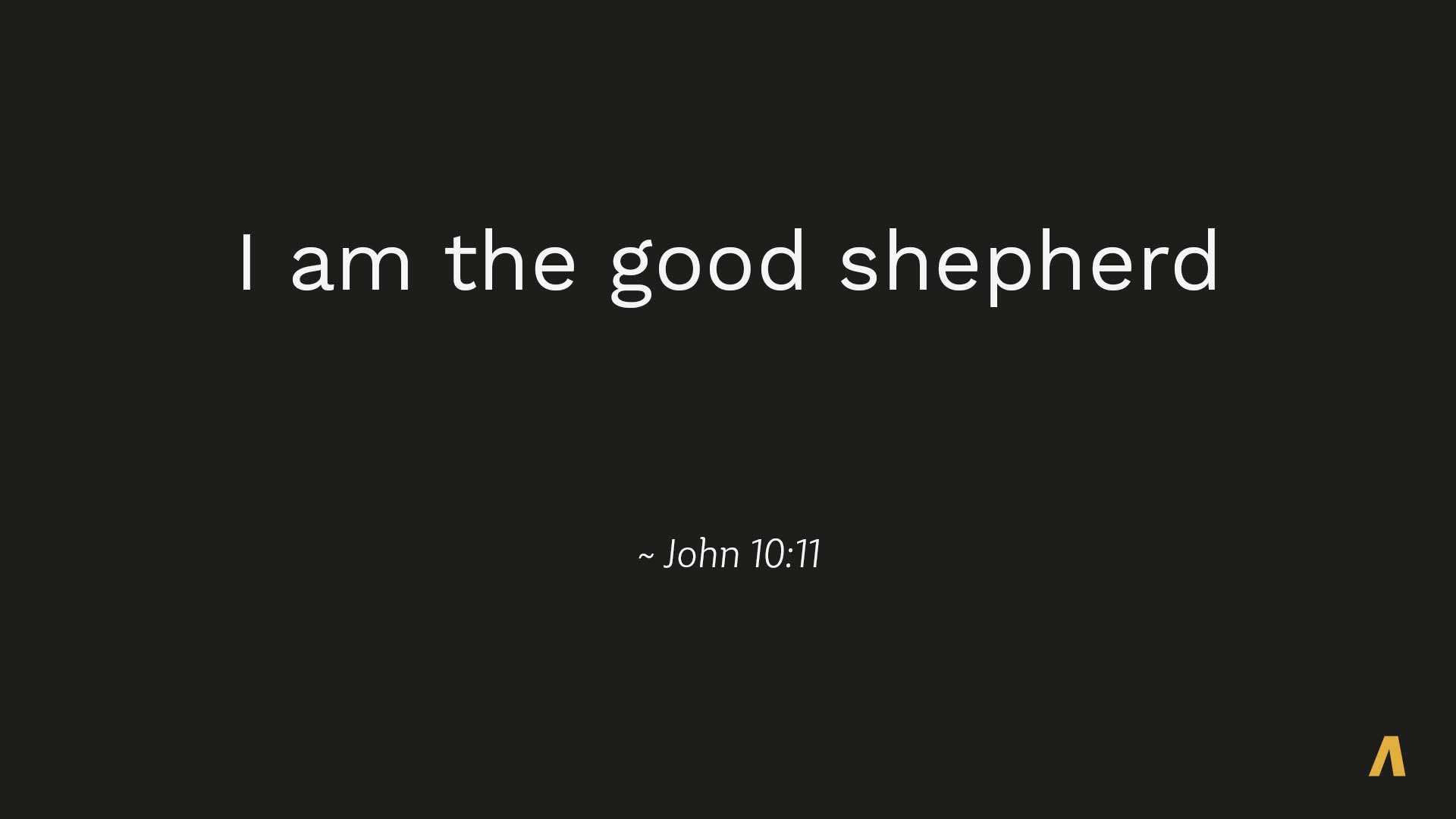
- Slide:
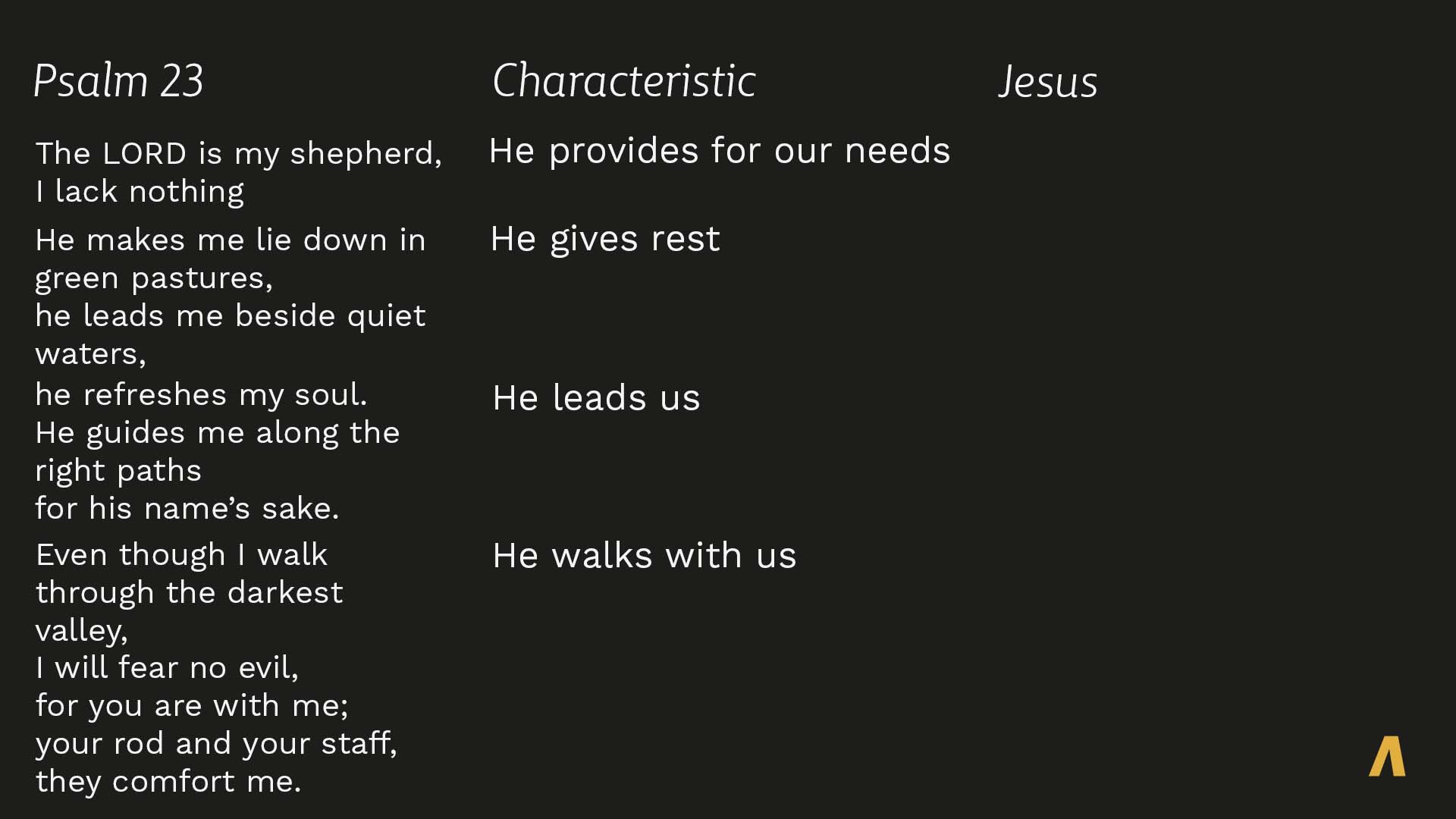
- Slide:
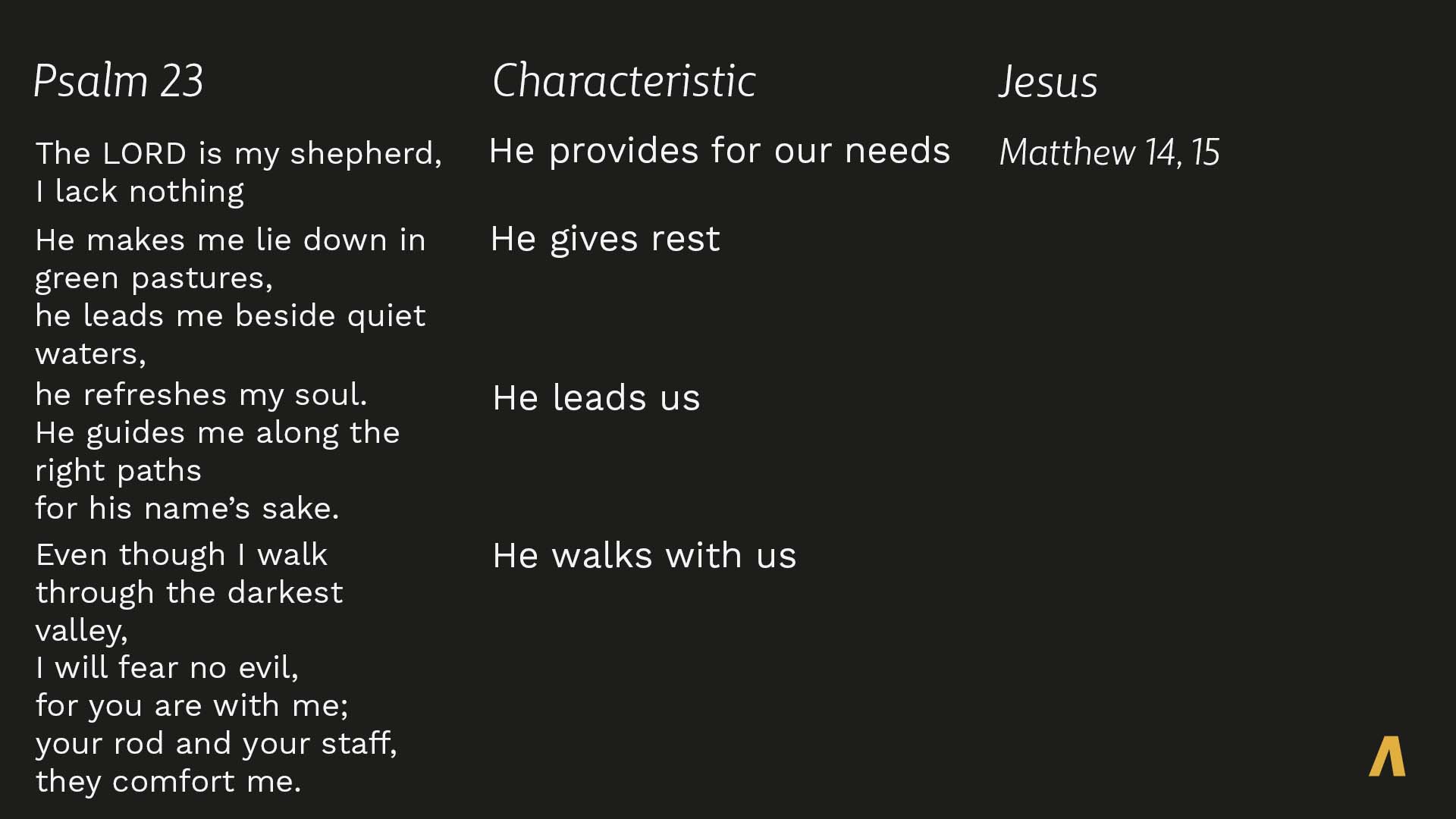
- Slide:
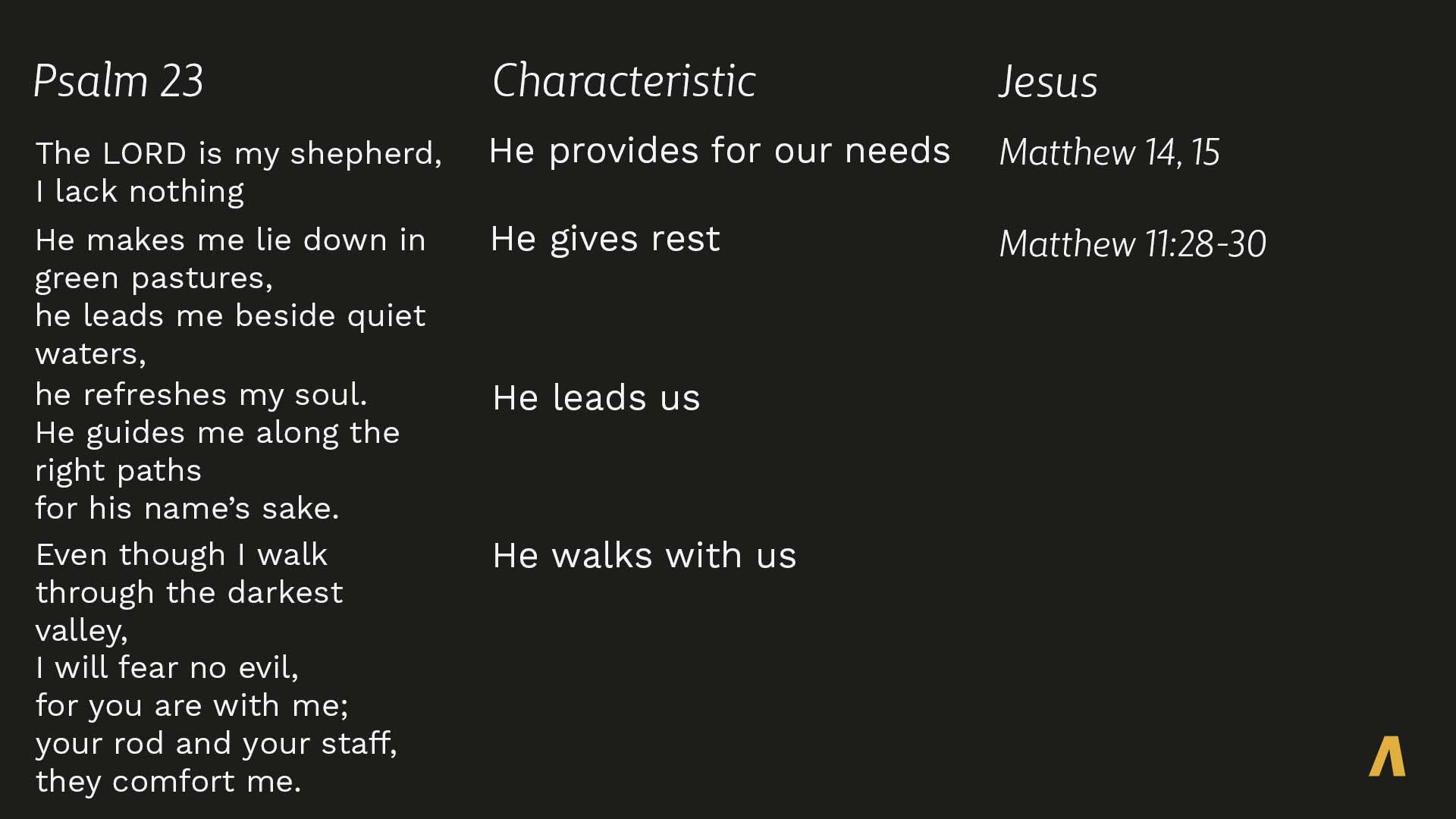
- Slide:
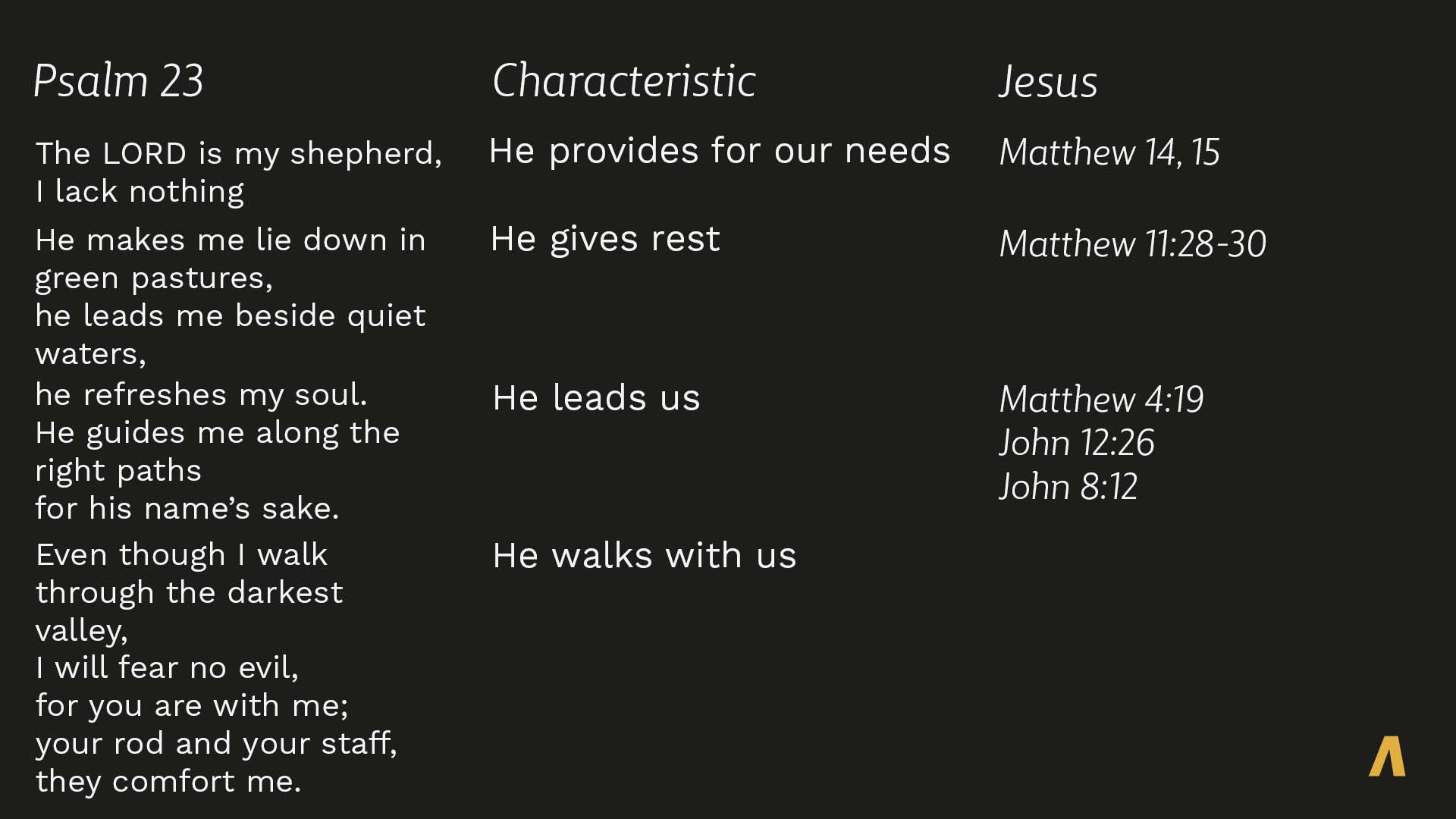
- Slide:
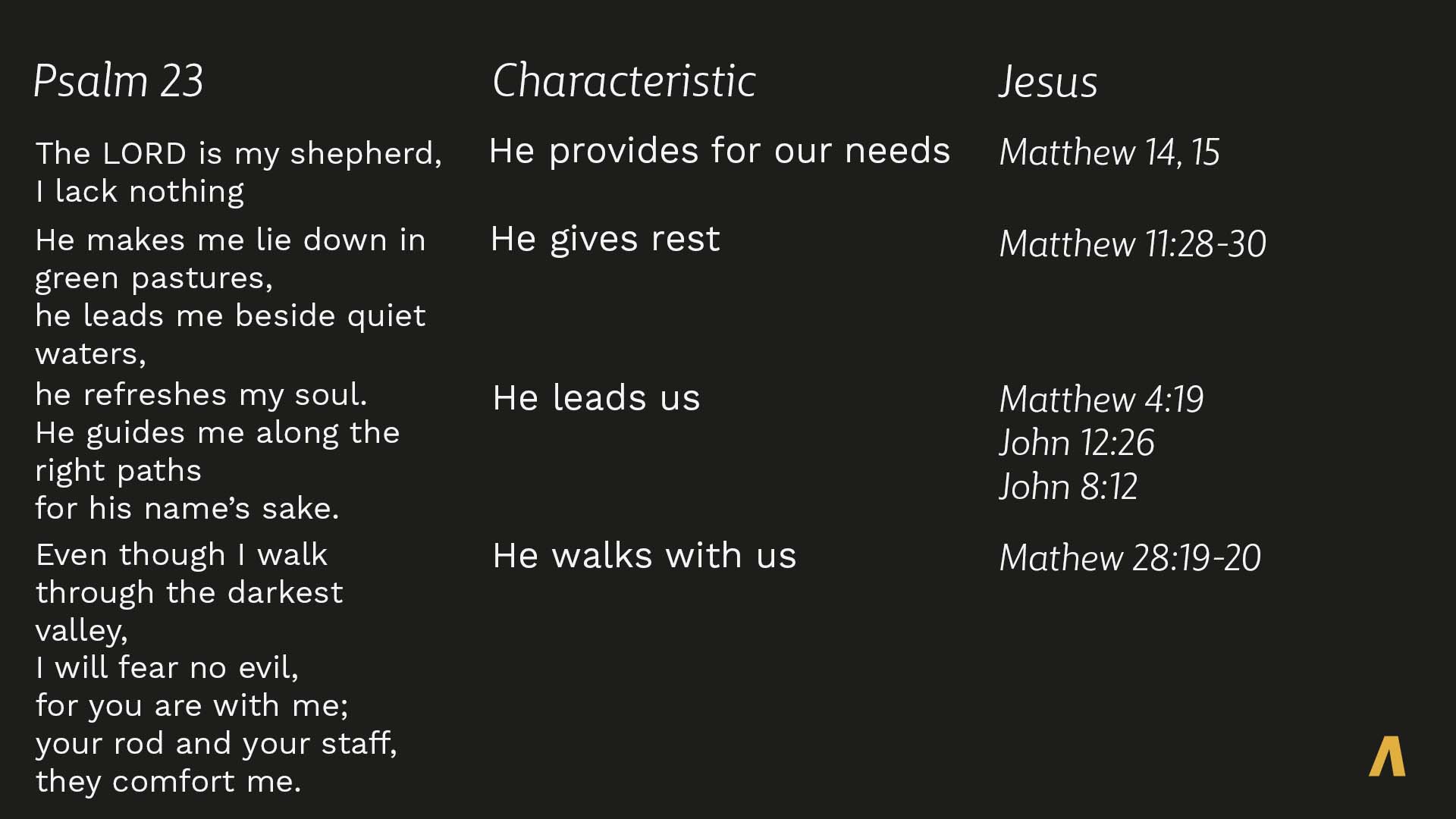
- Slide:
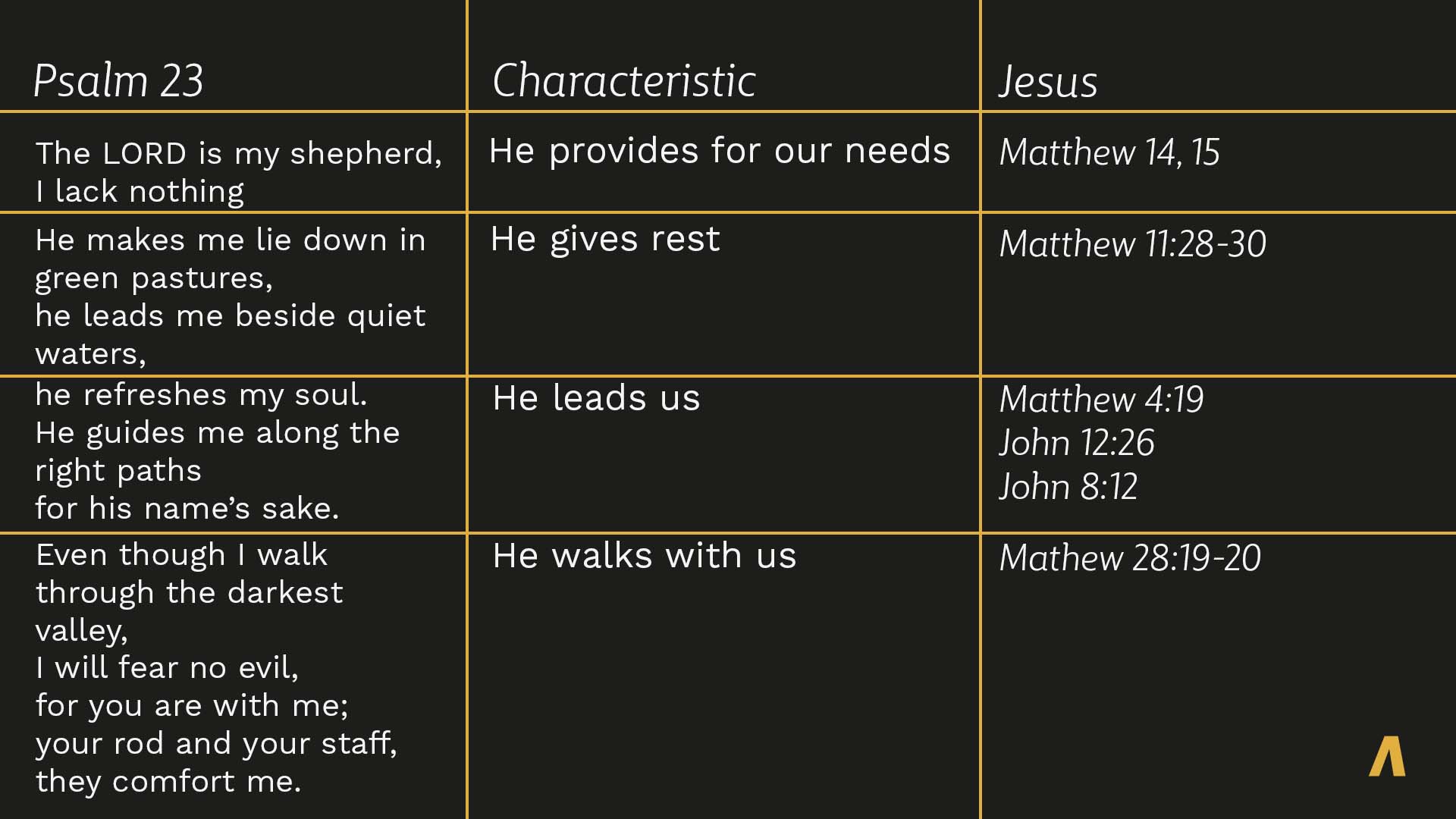
- Episode Audio Embed:
- Episode Preview MP4:
Visit Website
- YouTube Link:
Visit Website
- Anchor.fm Link:
Visit Website
- Spotify Link:
Visit Website
- Square Image:
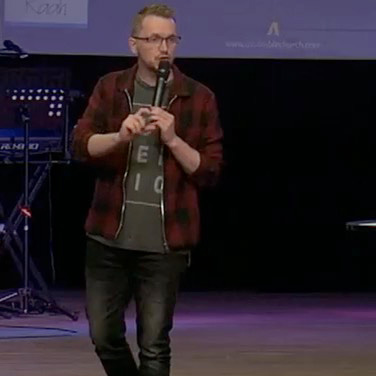
- Portrait Image:
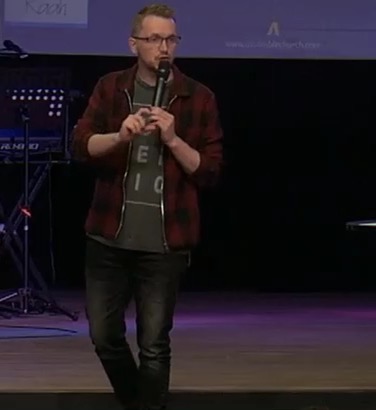
- Rec Date:
1st May 2022
In psalm 23 David describes the God of the bible as being a shepherd, and we can read all across the Old Testament various scriptures where the relationship between God and His people is likened to that of a shepherd and his flock. In this epiosde we study what God means when He declares that He is our shepherd. We then look at how Jesus is the embodiment of the shepherd described in psalm 23, by analysing the evidence from His earthly ministry.
Finally, we unpack some of what this revelation means for us, today.
- Bible References:
- Bible Reference:
Psalm 18:1-2, Bible Link:
https://www.biblegateway.com/passage/?search=Psalm%2018%3A1-2&version=NIV, Bible Passage:
I love you, Lord, my strength.
The Lord is my rock, my fortress and my deliverer;
my God is my rock, in whom I take refuge,
my shield and the horn of my salvation, my stronghold.
- Episode Audio Embed:
- Episode Preview MP4:
Visit Website
- YouTube Link:
Visit Website
- Anchor.fm Link:
Visit Website
- Spotify Link:
Visit Website
- Square Image:
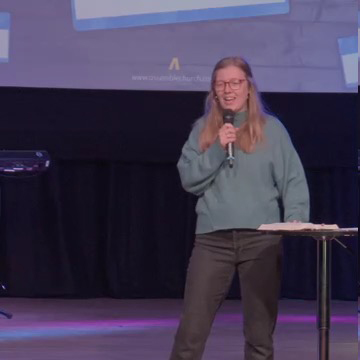
- Portrait Image:
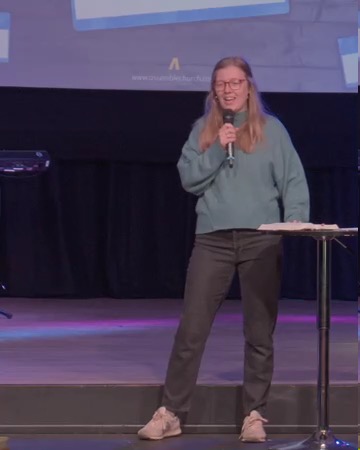
- Rec Date:
5th Jun 2022
After God delivered him from some fairly bleak situations, David was able to declare in Psalm 18 that the LORD is his rock - Jehovah Selah. Throughout the Old Testament there are many images of the rock being a place of refuge and safety, but also provision - as we see in Exodus 17.
We're continuing with our study into the names attributed to God in the Old Testament, this week Olivia explore what it means for us that God is our rock, and how we see the rock imagery continued in the New Testament through Jesus Christ - the cornerstone on which the Church is built
- Bible References:
- Bible Reference:
Judges 6:12-24, Bible Link:
https://www.biblegateway.com/passage/?search=Judges%206%3A12-24&version=NIV, Bible Passage:
When the angel of the Lord appeared to Gideon, he said, “The Lord is with you, mighty warrior.”
“Pardon me, my lord,” Gideon replied, “but if the Lord is with us, why has all this happened to us? Where are all his wonders that our ancestors told us about when they said, ‘Did not the Lord bring us up out of Egypt?’ But now the Lord has abandoned us and given us into the hand of Midian.”
The Lord turned to him and said, “Go in the strength you have and save Israel out of Midian’s hand. Am I not sending you?”
“Pardon me, my lord,” Gideon replied, “but how can I save Israel? My clan is the weakest in Manasseh, and I am the least in my family.”
The Lord answered, “I will be with you, and you will strike down all the Midianites, leaving none alive.”
Gideon replied, “If now I have found favor in your eyes, give me a sign that it is really you talking to me. Please do not go away until I come back and bring my offering and set it before you.”
And the Lord said, “I will wait until you return.”
Gideon went inside, prepared a young goat, and from an ephah of flour he made bread without yeast. Putting the meat in a basket and its broth in a pot, he brought them out and offered them to him under the oak.
The angel of God said to him, “Take the meat and the unleavened bread, place them on this rock, and pour out the broth.” And Gideon did so. Then the angel of the Lord touched the meat and the unleavened bread with the tip of the staff that was in his hand. Fire flared from the rock, consuming the meat and the bread. And the angel of the Lord disappeared. When Gideon realized that it was the angel of the Lord, he exclaimed, “Alas, Sovereign Lord! I have seen the angel of the Lord face to face!”
But the Lord said to him, “Peace! Do not be afraid. You are not going to die.”
So Gideon built an altar to the Lord there and called it The Lord Is Peace. To this day it stands in Ophrah of the Abiezrites.
- Episode Slides:
- Slide:

- Slide:

- Slide:

- Slide:

- Episode Audio Embed:
- Episode Preview MP4:
Visit Website
- YouTube Link:
Visit Website
- Anchor.fm Link:
Visit Website
- Spotify Link:
Visit Website
- Square Image:
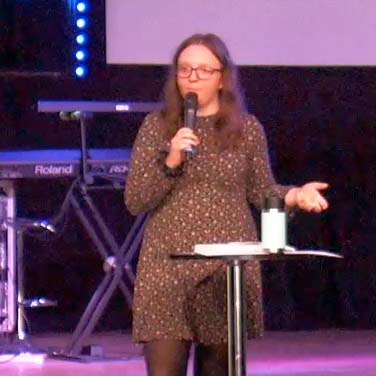
- Portrait Image:
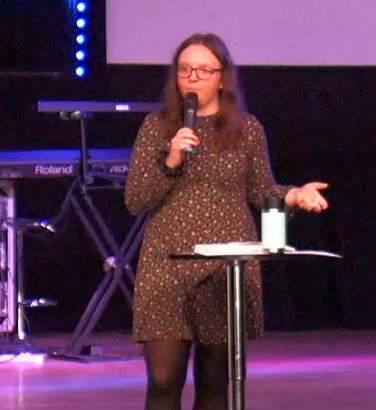
- Rec Date:
22nd May 2022
Gideon experiences the peace of God in Judges 6, when it seems likely that he would face certain death. This week we explore the story of Gideon and how God brought a sense of peace to him, such that he declared "Jehovah Shalom" - the LORD is peace.
We can see how the peace of the Lord is embodied in the person of Jesus, and what this relevation and truth means for us in our lives now.
In Philippians Paul talks about a peace of God that transcends our understanding, it is God's desire that we live in that peace.
- Bible References:
- Bible Reference:
Jeremiah 23: 5-6, Bible Link:
https://www.biblegateway.com/passage/?search=Jeremiah%2023:5-6&version=NIV, Bible Passage:
“The days are coming,” declares the Lord,
“when I will raise up for David a righteous Branch,
a King who will reign wisely
and do what is just and right in the land.
In his days Judah will be saved
and Israel will live in safety.
This is the name by which he will be called:
The Lord Our Righteous Savior.
- Bible Reference:
Psalm 51:3-5, Bible Link:
https://www.biblegateway.com/passage/?search=Psalm%2051:3-5&version=NIV, Bible Passage:
For I know my transgressions,
and my sin is always before me.
Against you, you only, have I sinned
and done what is evil in your sight;
so you are right in your verdict
and justified when you judge.
Surely I was sinful at birth,
sinful from the time my mother conceived me.
- Bible Reference:
Romans 6:12, Bible Link:
https://www.biblegateway.com/passage/?search=Romans+6%3A12&version=NIV, Bible Passage:
Therefore do not let sin reign in your mortal body so that you obey its evil desires.
- Bible Reference:
Romans 5:19, Bible Link:
https://www.biblegateway.com/passage/?search=Romans+5%3A19&version=NIV, Bible Passage:
For just as through the disobedience of the one man the many were made sinners, so also through the obedience of the one man the many will be made righteous.
- Episode Slides:
- Slide:

- Slide:
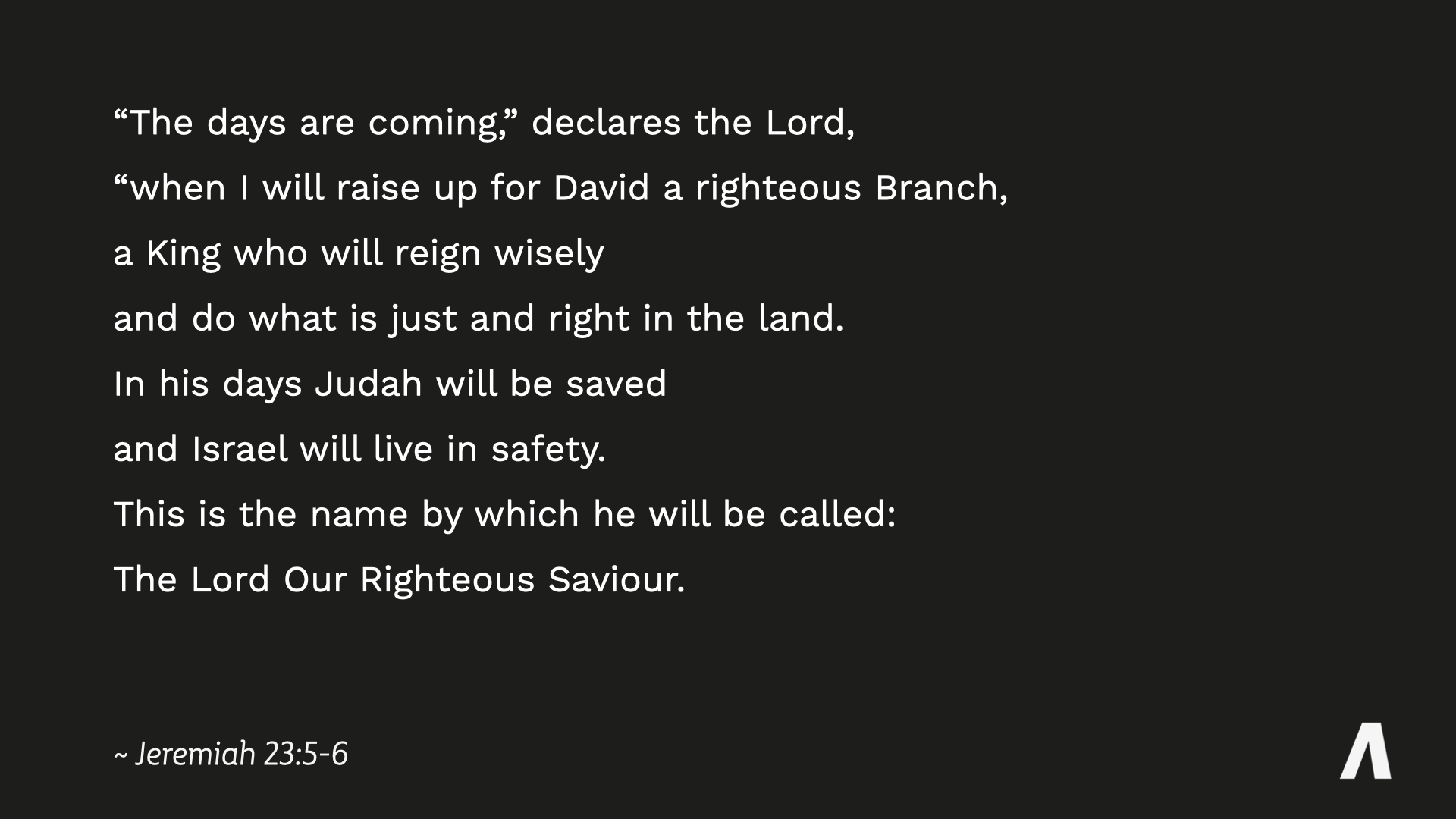
- Slide:

- Slide:

- Slide:

- Slide:

- Slide:

- Slide:

- Episode Audio Embed:
- Episode Preview MP4:
Visit Website
- YouTube Link:
Visit Website
- Anchor.fm Link:
Visit Website
- Spotify Link:
Visit Website
- Square Image:
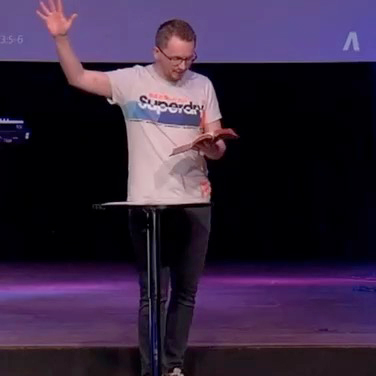
- Portrait Image:
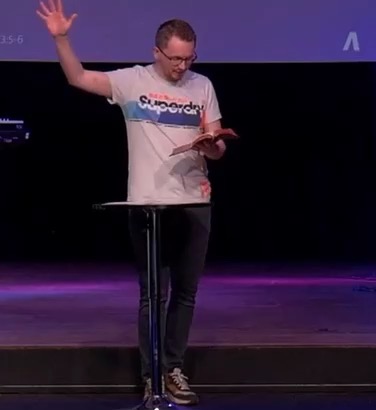
- Rec Date:
15th May 2022
In Jeremiah 23 God declares that He Himself will be the righteousness of His people. But what is righteousness? Why do we need it? How is our righteousness fulfilled by God?
This week we explore what God means when He tells us that He is our righteousness, and we begin to explore some of what righteousness means in context of its opposite - sin. We'll go on a whistle-stop tour of the biblical narrative to try and understand the impact of this declaration.
Finally, we come to observe how it is Jesus who earns righteousness, and how our righteousness is awarded to us by our faith in Him.
In this weeks episode David shows us the passion of Jesus through the eyes of John chapter 18. We look at the days before Jesus was crucified and resurrected and the ways in which Jesus demonstrated his power and authority.
- Bible References:
- Bible Reference:
John 11, Bible Link:
https://www.biblegateway.com/passage/?search=John%2011&version=NIV, Bible Passage:
Now a man named Lazarus was sick. He was from Bethany, the village of Mary and her sister Martha. (This Mary, whose brother Lazarus now lay sick, was the same one who poured perfume on the Lord and wiped his feet with her hair.) So the sisters sent word to Jesus, “Lord, the one you love is sick.”
When he heard this, Jesus said, “This sickness will not end in death. No, it is for God’s glory so that God’s Son may be glorified through it.” Now Jesus loved Martha and her sister and Lazarus. So when he heard that Lazarus was sick, he stayed where he was two more days, and then he said to his disciples, “Let us go back to Judea.”
“But Rabbi,” they said, “a short while ago the Jews there tried to stone you, and yet you are going back?”
Jesus answered, “Are there not twelve hours of daylight? Anyone who walks in the daytime will not stumble, for they see by this world’s light. It is when a person walks at night that they stumble, for they have no light.”
After he had said this, he went on to tell them, “Our friend Lazarus has fallen asleep; but I am going there to wake him up.”
His disciples replied, “Lord, if he sleeps, he will get better.” Jesus had been speaking of his death, but his disciples thought he meant natural sleep.
So then he told them plainly, “Lazarus is dead, and for your sake I am glad I was not there, so that you may believe. But let us go to him.”
Then Thomas (also known as Didymus) said to the rest of the disciples, “Let us also go, that we may die with him.”
On his arrival, Jesus found that Lazarus had already been in the tomb for four days. Now Bethany was less than two miles from Jerusalem, and many Jews had come to Martha and Mary to comfort them in the loss of their brother. When Martha heard that Jesus was coming, she went out to meet him, but Mary stayed at home.
“Lord,” Martha said to Jesus, “if you had been here, my brother would not have died. But I know that even now God will give you whatever you ask.”
Jesus said to her, “Your brother will rise again.”
Martha answered, “I know he will rise again in the resurrection at the last day.”
Jesus said to her, “I am the resurrection and the life. The one who believes in me will live, even though they die; and whoever lives by believing in me will never die. Do you believe this?”
“Yes, Lord,” she replied, “I believe that you are the Messiah, the Son of God, who is to come into the world.”
After she had said this, she went back and called her sister Mary aside. “The Teacher is here,” she said, “and is asking for you.” When Mary heard this, she got up quickly and went to him. Now Jesus had not yet entered the village, but was still at the place where Martha had met him. When the Jews who had been with Mary in the house, comforting her, noticed how quickly she got up and went out, they followed her, supposing she was going to the tomb to mourn there.
When Mary reached the place where Jesus was and saw him, she fell at his feet and said, “Lord, if you had been here, my brother would not have died.”
When Jesus saw her weeping, and the Jews who had come along with her also weeping, he was deeply moved in spirit and troubled. “Where have you laid him?” he asked.
“Come and see, Lord,” they replied.
Jesus wept.
Then the Jews said, “See how he loved him!”
But some of them said, “Could not he who opened the eyes of the blind man have kept this man from dying?”
Jesus, once more deeply moved, came to the tomb. It was a cave with a stone laid across the entrance. “Take away the stone,” he said.
“But, Lord,” said Martha, the sister of the dead man, “by this time there is a bad odor, for he has been there four days.”
Then Jesus said, “Did I not tell you that if you believe, you will see the glory of God?”
So they took away the stone. Then Jesus looked up and said, “Father, I thank you that you have heard me. I knew that you always hear me, but I said this for the benefit of the people standing here, that they may believe that you sent me.”
When he had said this, Jesus called in a loud voice, “Lazarus, come out!” The dead man came out, his hands and feet wrapped with strips of linen, and a cloth around his face.
Jesus said to them, “Take off the grave clothes and let him go.”
Therefore many of the Jews who had come to visit Mary, and had seen what Jesus did, believed in him. But some of them went to the Pharisees and told them what Jesus had done. Then the chief priests and the Pharisees called a meeting of the Sanhedrin.
“What are we accomplishing?” they asked. “Here is this man performing many signs. If we let him go on like this, everyone will believe in him, and then the Romans will come and take away both our temple and our nation.”
Then one of them, named Caiaphas, who was high priest that year, spoke up, “You know nothing at all! You do not realize that it is better for you that one man die for the people than that the whole nation perish.”
He did not say this on his own, but as high priest that year he prophesied that Jesus would die for the Jewish nation, and not only for that nation but also for the scattered children of God, to bring them together and make them one. So from that day on they plotted to take his life.
Therefore Jesus no longer moved about publicly among the people of Judea. Instead he withdrew to a region near the wilderness, to a village called Ephraim, where he stayed with his disciples.
When it was almost time for the Jewish Passover, many went up from the country to Jerusalem for their ceremonial cleansing before the Passover. They kept looking for Jesus, and as they stood in the temple courts they asked one another, “What do you think? Isn’t he coming to the festival at all?” But the chief priests and the Pharisees had given orders that anyone who found out where Jesus was should report it so that they might arrest him.
- Episode Audio Embed:
- YouTube Link:
Visit Website
- Anchor.fm Link:
Visit Website
- Spotify Link:
Visit Website
- Square Image:
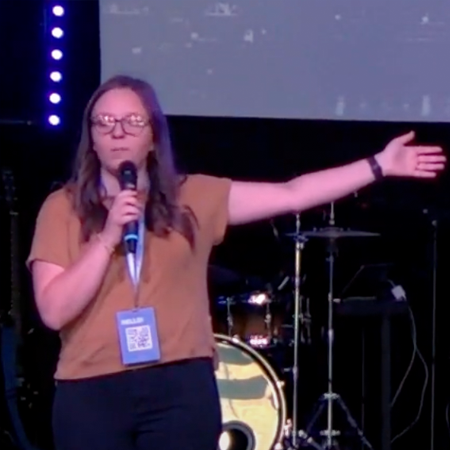
- Portrait Image:

- Rec Date:
9th October 2022
John chapter 11 is a turning point in John's gospel - we see Jesus perform an incredible miracle in raising Lazarus from the grave, but this gives way to increased pressure from the Pharisees and religious leaders in the rest of the gospel. Here we explore what we can learn about who Jesus is in the build up to this miracle, and how that can help us in our walks with Him today.
- Bible References:
- Bible Reference:
John 6, Bible Link:
https://www.biblegateway.com/passage/?search=John%206&version=NIV, Bible Passage:
Some time after this, Jesus crossed to the far shore of the Sea of Galilee (that is, the Sea of Tiberias), 2 and a great crowd of people followed him because they saw the signs he had performed by healing the sick. 3 Then Jesus went up on a mountainside and sat down with his disciples. 4 The Jewish Passover Festival was near.
5 When Jesus looked up and saw a great crowd coming toward him, he said to Philip, “Where shall we buy bread for these people to eat?” 6 He asked this only to test him, for he already had in mind what he was going to do.
7 Philip answered him, “It would take more than half a year’s wages[a] to buy enough bread for each one to have a bite!”
8 Another of his disciples, Andrew, Simon Peter’s brother, spoke up, 9 “Here is a boy with five small barley loaves and two small fish, but how far will they go among so many?”
10 Jesus said, “Have the people sit down.” There was plenty of grass in that place, and they sat down (about five thousand men were there). 11 Jesus then took the loaves, gave thanks, and distributed to those who were seated as much as they wanted. He did the same with the fish.
12 When they had all had enough to eat, he said to his disciples, “Gather the pieces that are left over. Let nothing be wasted.” 13 So they gathered them and filled twelve baskets with the pieces of the five barley loaves left over by those who had eaten.
14 After the people saw the sign Jesus performed, they began to say, “Surely this is the Prophet who is to come into the world.” 15 Jesus, knowing that they intended to come and make him king by force, withdrew again to a mountain by himself.
Jesus Walks on the Water
16 When evening came, his disciples went down to the lake, 17 where they got into a boat and set off across the lake for Capernaum. By now it was dark, and Jesus had not yet joined them. 18 A strong wind was blowing and the waters grew rough. 19 When they had rowed about three or four miles,[b] they saw Jesus approaching the boat, walking on the water; and they were frightened. 20 But he said to them, “It is I; don’t be afraid.” 21 Then they were willing to take him into the boat, and immediately the boat reached the shore where they were heading.
22 The next day the crowd that had stayed on the opposite shore of the lake realized that only one boat had been there, and that Jesus had not entered it with his disciples, but that they had gone away alone. 23 Then some boats from Tiberias landed near the place where the people had eaten the bread after the Lord had given thanks. 24 Once the crowd realized that neither Jesus nor his disciples were there, they got into the boats and went to Capernaum in search of Jesus.
Jesus the Bread of Life
25 When they found him on the other side of the lake, they asked him, “Rabbi, when did you get here?”
26 Jesus answered, “Very truly I tell you, you are looking for me, not because you saw the signs I performed but because you ate the loaves and had your fill. 27 Do not work for food that spoils, but for food that endures to eternal life, which the Son of Man will give you. For on him God the Father has placed his seal of approval.”
28 Then they asked him, “What must we do to do the works God requires?”
29 Jesus answered, “The work of God is this: to believe in the one he has sent.”
30 So they asked him, “What sign then will you give that we may see it and believe you? What will you do? 31 Our ancestors ate the manna in the wilderness; as it is written: ‘He gave them bread from heaven to eat.’[c]”
32 Jesus said to them, “Very truly I tell you, it is not Moses who has given you the bread from heaven, but it is my Father who gives you the true bread from heaven. 33 For the bread of God is the bread that comes down from heaven and gives life to the world.”
34 “Sir,” they said, “always give us this bread.”
35 Then Jesus declared, “I am the bread of life. Whoever comes to me will never go hungry, and whoever believes in me will never be thirsty. 36 But as I told you, you have seen me and still you do not believe. 37 All those the Father gives me will come to me, and whoever comes to me I will never drive away. 38 For I have come down from heaven not to do my will but to do the will of him who sent me. 39 And this is the will of him who sent me, that I shall lose none of all those he has given me, but raise them up at the last day. 40 For my Father’s will is that everyone who looks to the Son and believes in him shall have eternal life, and I will raise them up at the last day.”
41 At this the Jews there began to grumble about him because he said, “I am the bread that came down from heaven.” 42 They said, “Is this not Jesus, the son of Joseph, whose father and mother we know? How can he now say, ‘I came down from heaven’?”
43 “Stop grumbling among yourselves,” Jesus answered. 44 “No one can come to me unless the Father who sent me draws them, and I will raise them up at the last day. 45 It is written in the Prophets: ‘They will all be taught by God.’[d] Everyone who has heard the Father and learned from him comes to me. 46 No one has seen the Father except the one who is from God; only he has seen the Father. 47 Very truly I tell you, the one who believes has eternal life. 48 I am the bread of life. 49 Your ancestors ate the manna in the wilderness, yet they died. 50 But here is the bread that comes down from heaven, which anyone may eat and not die. 51 I am the living bread that came down from heaven. Whoever eats this bread will live forever. This bread is my flesh, which I will give for the life of the world.”
52 Then the Jews began to argue sharply among themselves, “How can this man give us his flesh to eat?”
53 Jesus said to them, “Very truly I tell you, unless you eat the flesh of the Son of Man and drink his blood, you have no life in you. 54 Whoever eats my flesh and drinks my blood has eternal life, and I will raise them up at the last day. 55 For my flesh is real food and my blood is real drink. 56 Whoever eats my flesh and drinks my blood remains in me, and I in them. 57 Just as the living Father sent me and I live because of the Father, so the one who feeds on me will live because of me. 58 This is the bread that came down from heaven. Your ancestors ate manna and died, but whoever feeds on this bread will live forever.” 59 He said this while teaching in the synagogue in Capernaum.
Many Disciples Desert Jesus
60 On hearing it, many of his disciples said, “This is a hard teaching. Who can accept it?”
61 Aware that his disciples were grumbling about this, Jesus said to them, “Does this offend you? 62 Then what if you see the Son of Man ascend to where he was before! 63 The Spirit gives life; the flesh counts for nothing. The words I have spoken to you—they are full of the Spirit[e] and life. 64 Yet there are some of you who do not believe.” For Jesus had known from the beginning which of them did not believe and who would betray him. 65 He went on to say, “This is why I told you that no one can come to me unless the Father has enabled them.”
66 From this time many of his disciples turned back and no longer followed him.
67 “You do not want to leave too, do you?” Jesus asked the Twelve.
68 Simon Peter answered him, “Lord, to whom shall we go? You have the words of eternal life. 69 We have come to believe and to know that you are the Holy One of God.”
70 Then Jesus replied, “Have I not chosen you, the Twelve? Yet one of you is a devil!” 71 (He meant Judas, the son of Simon Iscariot, who, though one of the Twelve, was later to betray him.)
- Episode Slides:
- Slide:
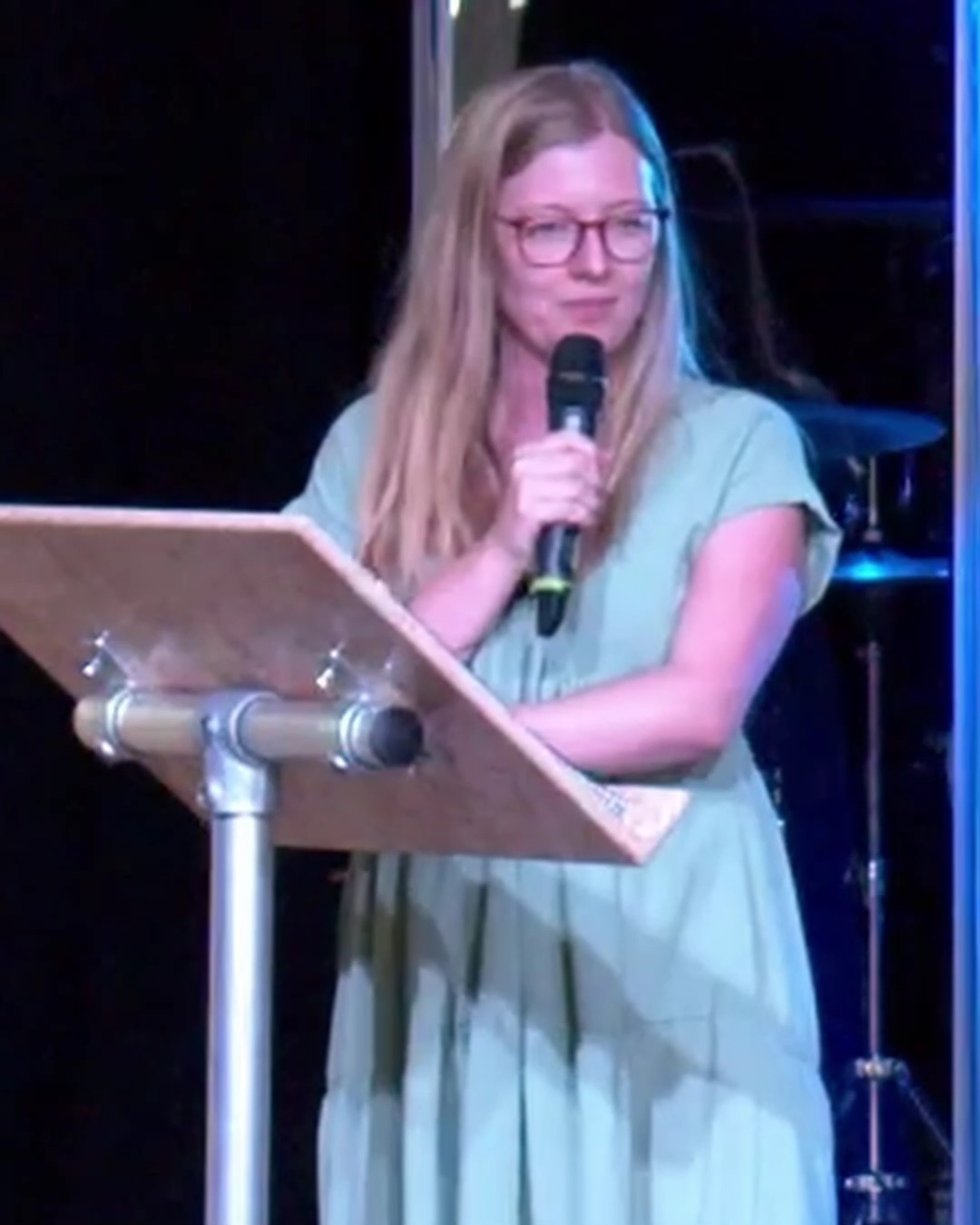
- Episode Audio Embed:
- Episode Preview MP4:
Visit Website
- YouTube Link:
Visit Website
- Anchor.fm Link:
Visit Website
- Spotify Link:
Visit Website
- Square Image:
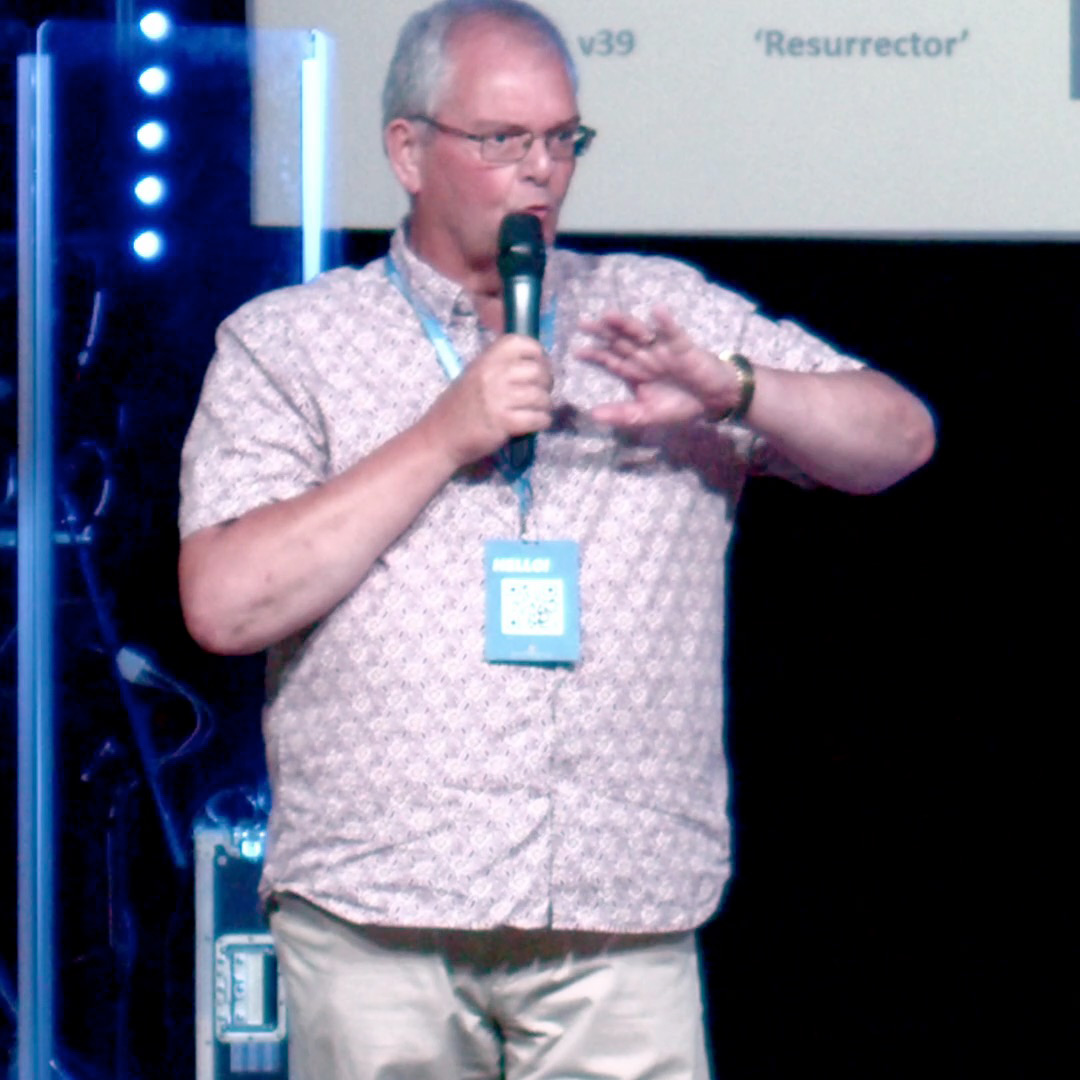
- Portrait Image:
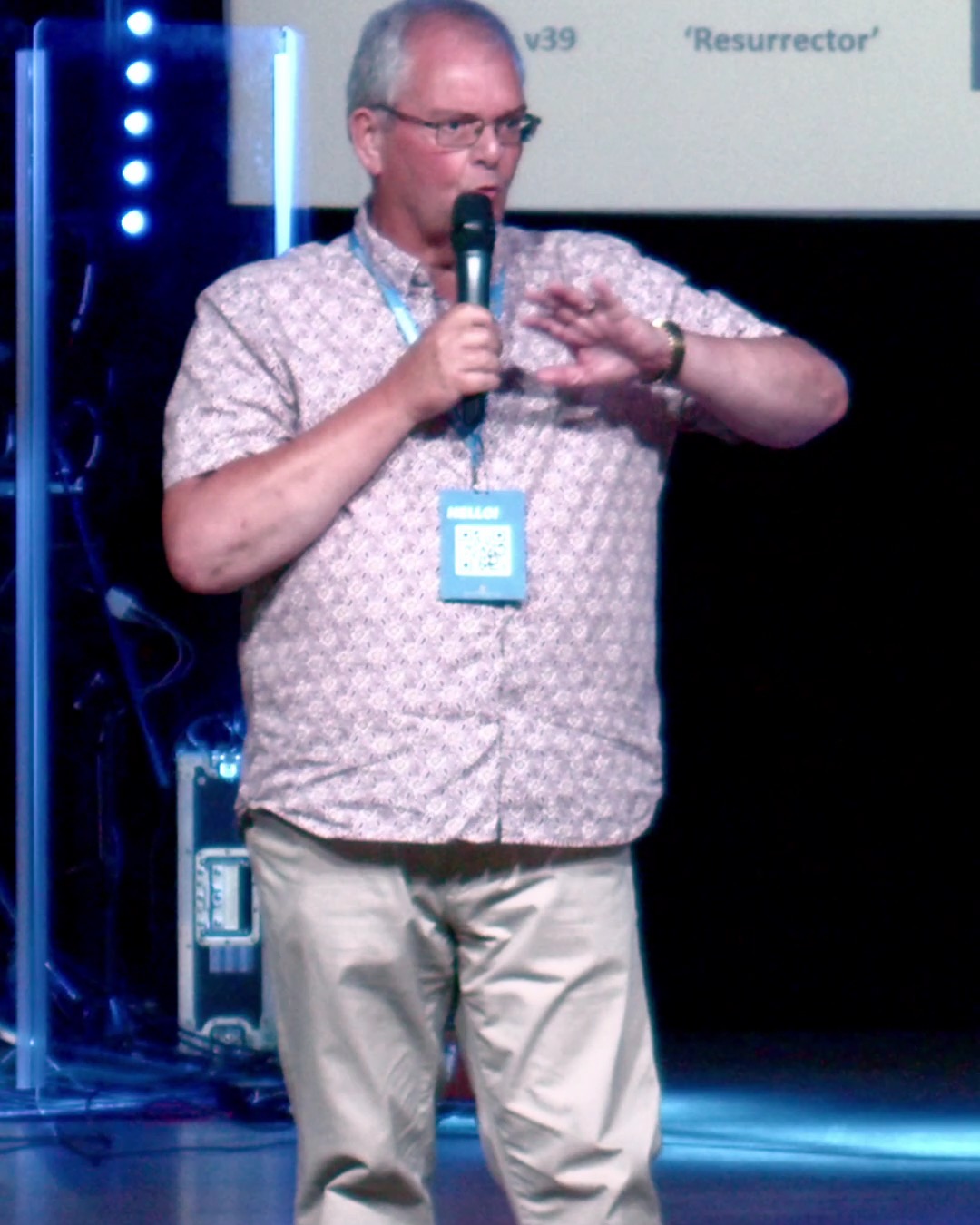
- Rec Date:
4th September 2022
Jesus cares so deeply for our needs. In John 6 Jesus prepares to teach the crowds as they follow him and gather round on a hillside.
Before Jesus begins to teach, he sorts out lunch. He is concerned for the crowd's hunger, so that they may not be distracted by it as they hear from Jesus. More than this, is that Jesus teaches the crowds, and us, about Him through this very act of miraculously feeding 5000 people.
David opens the scripture to John 6 this week, as we study the Word together.
- Bible References:
- Bible Reference:
John 13, Bible Link:
https://www.biblegateway.com/passage/?search=John%2013&version=NIV, Bible Passage:
It was just before the Passover Festival. Jesus knew that the hour had come for him to leave this world and go to the Father. Having loved his own who were in the world, he loved them to the end.
The evening meal was in progress, and the devil had already prompted Judas, the son of Simon Iscariot, to betray Jesus. Jesus knew that the Father had put all things under his power, and that he had come from God and was returning to God; so he got up from the meal, took off his outer clothing, and wrapped a towel around his waist. After that, he poured water into a basin and began to wash his disciples’ feet, drying them with the towel that was wrapped around him.
He came to Simon Peter, who said to him, “Lord, are you going to wash my feet?”
Jesus replied, “You do not realize now what I am doing, but later you will understand.”
“No,” said Peter, “you shall never wash my feet.”
Jesus answered, “Unless I wash you, you have no part with me.”
“Then, Lord,” Simon Peter replied, “not just my feet but my hands and my head as well!”
Jesus answered, “Those who have had a bath need only to wash their feet; their whole body is clean. And you are clean, though not every one of you.” For he knew who was going to betray him, and that was why he said not every one was clean.
When he had finished washing their feet, he put on his clothes and returned to his place. “Do you understand what I have done for you?” he asked them. “You call me ‘Teacher’ and ‘Lord,’ and rightly so, for that is what I am. Now that I, your Lord and Teacher, have washed your feet, you also should wash one another’s feet. I have set you an example that you should do as I have done for you. Very truly I tell you, no servant is greater than his master, nor is a messenger greater than the one who sent him. Now that you know these things, you will be blessed if you do them.
“I am not referring to all of you; I know those I have chosen. But this is to fulfill this passage of Scripture: ‘He who shared my bread has turned against me.’
“I am telling you now before it happens, so that when it does happen you will believe that I am who I am. Very truly I tell you, whoever accepts anyone I send accepts me; and whoever accepts me accepts the one who sent me.”
After he had said this, Jesus was troubled in spirit and testified, “Very truly I tell you, one of you is going to betray me.”
His disciples stared at one another, at a loss to know which of them he meant. One of them, the disciple whom Jesus loved, was reclining next to him. Simon Peter motioned to this disciple and said, “Ask him which one he means.”
Leaning back against Jesus, he asked him, “Lord, who is it?”
Jesus answered, “It is the one to whom I will give this piece of bread when I have dipped it in the dish.” Then, dipping the piece of bread, he gave it to Judas, the son of Simon Iscariot. As soon as Judas took the bread, Satan entered into him.
So Jesus told him, “What you are about to do, do quickly.” But no one at the meal understood why Jesus said this to him. Since Judas had charge of the money, some thought Jesus was telling him to buy what was needed for the festival, or to give something to the poor. As soon as Judas had taken the bread, he went out. And it was night.
When he was gone, Jesus said, “Now the Son of Man is glorified and God is glorified in him. If God is glorified in him, God will glorify the Son in himself, and will glorify him at once.
“My children, I will be with you only a little longer. You will look for me, and just as I told the Jews, so I tell you now: Where I am going, you cannot come.
“A new command I give you: Love one another. As I have loved you, so you must love one another. By this everyone will know that you are my disciples, if you love one another.”
Simon Peter asked him, “Lord, where are you going?”
Jesus replied, “Where I am going, you cannot follow now, but you will follow later.”
Peter asked, “Lord, why can’t I follow you now? I will lay down my life for you.”
Then Jesus answered, “Will you really lay down your life for me? Very truly I tell you, before the rooster crows, you will disown me three times!
- Episode Audio Embed:
- YouTube Link:
Visit Website
- Anchor.fm Link:
Visit Website
- Spotify Link:
Visit Website
- Square Image:
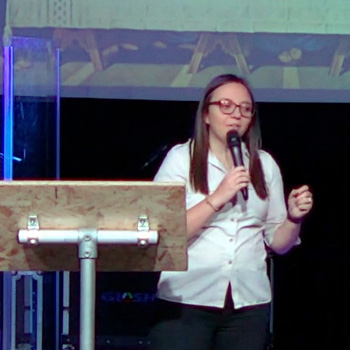
- Portrait Image:

- Rec Date:
23rd October 2022
In this message we look at the account of Jesus washing the disciples' feet. Love is woven through this incredible act, and through the conversation that follows, and so today we explore love exemplified, love explained, and love encouraged.
In this message we look at the last sermon preached by Jesus, Dom looks at the holy spirit, truth, the cost of following Jesus, as he dives deep into John chapter 16
- Bible References:
- Bible Reference:
John 5, Bible Link:
https://www.biblegateway.com/passage/?search=John%205&version=NIV, Bible Passage:
The Healing at the Pool
5 Some time later, Jesus went up to Jerusalem for one of the Jewish festivals. 2 Now there is in Jerusalem near the Sheep Gate a pool, which in Aramaic is called Bethesda[a] and which is surrounded by five covered colonnades. 3 Here a great number of disabled people used to lie—the blind, the lame, the paralyzed. [4] [b] 5 One who was there had been an invalid for thirty-eight years. 6 When Jesus saw him lying there and learned that he had been in this condition for a long time, he asked him, “Do you want to get well?”
7 “Sir,” the invalid replied, “I have no one to help me into the pool when the water is stirred. While I am trying to get in, someone else goes down ahead of me.”
8 Then Jesus said to him, “Get up! Pick up your mat and walk.” 9 At once the man was cured; he picked up his mat and walked.
The day on which this took place was a Sabbath, 10 and so the Jewish leaders said to the man who had been healed, “It is the Sabbath; the law forbids you to carry your mat.”
11 But he replied, “The man who made me well said to me, ‘Pick up your mat and walk.’ ”
12 So they asked him, “Who is this fellow who told you to pick it up and walk?”
13 The man who was healed had no idea who it was, for Jesus had slipped away into the crowd that was there.
14 Later Jesus found him at the temple and said to him, “See, you are well again. Stop sinning or something worse may happen to you.” 15 The man went away and told the Jewish leaders that it was Jesus who had made him well.
The Authority of the Son
16 So, because Jesus was doing these things on the Sabbath, the Jewish leaders began to persecute him. 17 In his defense Jesus said to them, “My Father is always at his work to this very day, and I too am working.” 18 For this reason they tried all the more to kill him; not only was he breaking the Sabbath, but he was even calling God his own Father, making himself equal with God.
19 Jesus gave them this answer: “Very truly I tell you, the Son can do nothing by himself; he can do only what he sees his Father doing, because whatever the Father does the Son also does. 20 For the Father loves the Son and shows him all he does. Yes, and he will show him even greater works than these, so that you will be amazed. 21 For just as the Father raises the dead and gives them life, even so the Son gives life to whom he is pleased to give it. 22 Moreover, the Father judges no one, but has entrusted all judgment to the Son, 23 that all may honor the Son just as they honor the Father. Whoever does not honor the Son does not honor the Father, who sent him.
24 “Very truly I tell you, whoever hears my word and believes him who sent me has eternal life and will not be judged but has crossed over from death to life. 25 Very truly I tell you, a time is coming and has now come when the dead will hear the voice of the Son of God and those who hear will live. 26 For as the Father has life in himself, so he has granted the Son also to have life in himself. 27 And he has given him authority to judge because he is the Son of Man.
28 “Do not be amazed at this, for a time is coming when all who are in their graves will hear his voice 29 and come out—those who have done what is good will rise to live, and those who have done what is evil will rise to be condemned. 30 By myself I can do nothing; I judge only as I hear, and my judgment is just, for I seek not to please myself but him who sent me.
Testimonies About Jesus
31 “If I testify about myself, my testimony is not true. 32 There is another who testifies in my favor, and I know that his testimony about me is true.
33 “You have sent to John and he has testified to the truth. 34 Not that I accept human testimony; but I mention it that you may be saved. 35 John was a lamp that burned and gave light, and you chose for a time to enjoy his light.
36 “I have testimony weightier than that of John. For the works that the Father has given me to finish—the very works that I am doing—testify that the Father has sent me. 37 And the Father who sent me has himself testified concerning me. You have never heard his voice nor seen his form, 38 nor does his word dwell in you, for you do not believe the one he sent. 39 You study[c] the Scriptures diligently because you think that in them you have eternal life. These are the very Scriptures that testify about me, 40 yet you refuse to come to me to have life.
41 “I do not accept glory from human beings, 42 but I know you. I know that you do not have the love of God in your hearts. 43 I have come in my Father’s name, and you do not accept me; but if someone else comes in his own name, you will accept him. 44 How can you believe since you accept glory from one another but do not seek the glory that comes from the only God[d]?
45 “But do not think I will accuse you before the Father. Your accuser is Moses, on whom your hopes are set. 46 If you believed Moses, you would believe me, for he wrote about me. 47 But since you do not believe what he wrote, how are you going to believe what I say?”
- Episode Slides:
- Slide:

- Episode Audio Embed:
- Episode Preview MP4:
Visit Website
- YouTube Link:
Visit Website
- Anchor.fm Link:
Visit Website
- Spotify Link:
Visit Website
- Square Image:
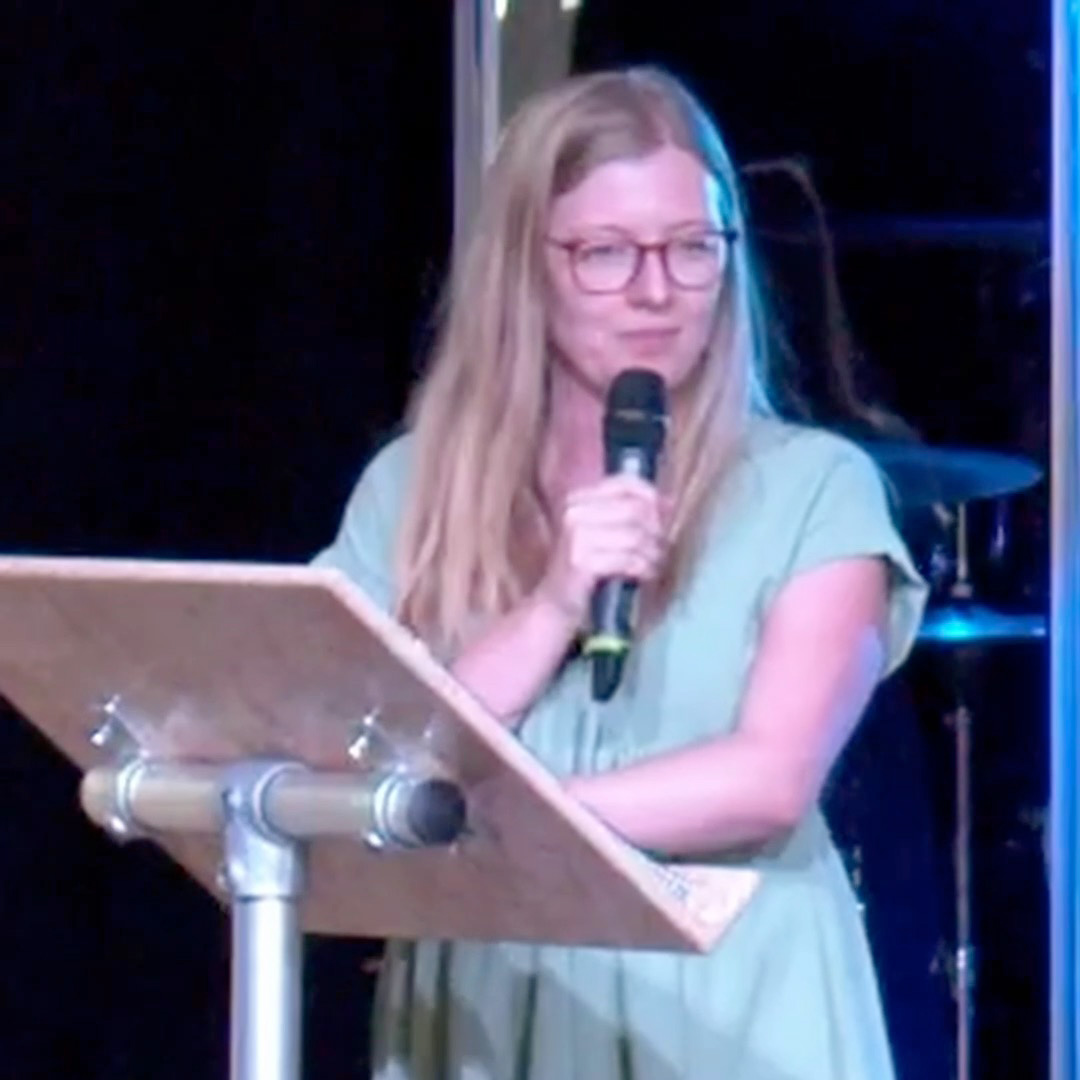
- Portrait Image:

- Rec Date:
28th August 2022
Sometimes we can become a bit obsessed with looking for the healing rather than looking towards the healer. This week Olivia opens up the bible to John chapter 5, where we look at a healing that takes place at the pool of Bethesda. A man spends most of his life eagerly awaiting a healing, and almost misses the healer.
- Bible References:
- Bible Reference:
John 12, Bible Link:
https://www.biblegateway.com/passage/?search=John+12&version=NIV, Bible Passage:
Six days before the Passover, Jesus came to Bethany, where Lazarus lived, whom Jesus had raised from the dead. Here a dinner was given in Jesus’ honor. Martha served, while Lazarus was among those reclining at the table with him. Then Mary took about a pint of pure nard, an expensive perfume; she poured it on Jesus’ feet and wiped his feet with her hair. And the house was filled with the fragrance of the perfume.
But one of his disciples, Judas Iscariot, who was later to betray him, objected, “Why wasn’t this perfume sold and the money given to the poor? It was worth a year’s wages.” He did not say this because he cared about the poor but because he was a thief; as keeper of the money bag, he used to help himself to what was put into it.
“Leave her alone,” Jesus replied. “It was intended that she should save this perfume for the day of my burial. You will always have the poor among you, but you will not always have me.”
Meanwhile a large crowd of Jews found out that Jesus was there and came, not only because of him but also to see Lazarus, whom he had raised from the dead. So the chief priests made plans to kill Lazarus as well, for on account of him many of the Jews were going over to Jesus and believing in him.
The next day the great crowd that had come for the festival heard that Jesus was on his way to Jerusalem. They took palm branches and went out to meet him, shouting,
“Hosanna!”
“Blessed is he who comes in the name of the Lord!”
“Blessed is the king of Israel!”
Jesus found a young donkey and sat on it, as it is written:
“Do not be afraid, Daughter Zion;
see, your king is coming,
seated on a donkey’s colt.”
At first his disciples did not understand all this. Only after Jesus was glorified did they realize that these things had been written about him and that these things had been done to him.
Now the crowd that was with him when he called Lazarus from the tomb and raised him from the dead continued to spread the word. Many people, because they had heard that he had performed this sign, went out to meet him. So the Pharisees said to one another, “See, this is getting us nowhere. Look how the whole world has gone after him!”
Now there were some Greeks among those who went up to worship at the festival. They came to Philip, who was from Bethsaida in Galilee, with a request. “Sir,” they said, “we would like to see Jesus.” Philip went to tell Andrew; Andrew and Philip in turn told Jesus.
Jesus replied, “The hour has come for the Son of Man to be glorified. Very truly I tell you, unless a kernel of wheat falls to the ground and dies, it remains only a single seed. But if it dies, it produces many seeds. Anyone who loves their life will lose it, while anyone who hates their life in this world will keep it for eternal life. Whoever serves me must follow me; and where I am, my servant also will be. My Father will honor the one who serves me.
“Now my soul is troubled, and what shall I say? ‘Father, save me from this hour’? No, it was for this very reason I came to this hour. Father, glorify your name!”
Then a voice came from heaven, “I have glorified it, and will glorify it again.” The crowd that was there and heard it said it had thundered; others said an angel had spoken to him.
Jesus said, “This voice was for your benefit, not mine. Now is the time for judgment on this world; now the prince of this world will be driven out. And I, when I am lifted up from the earth, will draw all people to myself.” He said this to show the kind of death he was going to die.
The crowd spoke up, “We have heard from the Law that the Messiah will remain forever, so how can you say, ‘The Son of Man must be lifted up’? Who is this ‘Son of Man’?”
Then Jesus told them, “You are going to have the light just a little while longer. Walk while you have the light, before darkness overtakes you. Whoever walks in the dark does not know where they are going. Believe in the light while you have the light, so that you may become children of light.” When he had finished speaking, Jesus left and hid himself from them.
Even after Jesus had performed so many signs in their presence, they still would not believe in him. This was to fulfill the word of Isaiah the prophet:
“Lord, who has believed our message
and to whom has the arm of the Lord been revealed?”
For this reason they could not believe, because, as Isaiah says elsewhere:
“He has blinded their eyes
and hardened their hearts,
so they can neither see with their eyes,
nor understand with their hearts,
nor turn—and I would heal them.”
Isaiah said this because he saw Jesus’ glory and spoke about him.
Yet at the same time many even among the leaders believed in him. But because of the Pharisees they would not openly acknowledge their faith for fear they would be put out of the synagogue; for they loved human praise more than praise from God.
Then Jesus cried out, “Whoever believes in me does not believe in me only, but in the one who sent me. The one who looks at me is seeing the one who sent me. I have come into the world as a light, so that no one who believes in me should stay in darkness.
“If anyone hears my words but does not keep them, I do not judge that person. For I did not come to judge the world, but to save the world. There is a judge for the one who rejects me and does not accept my words; the very words I have spoken will condemn them at the last day. For I did not speak on my own, but the Father who sent me commanded me to say all that I have spoken. I know that his command leads to eternal life. So whatever I say is just what the Father has told me to say.”
- Episode Audio Embed:
- YouTube Link:
Visit Website
- Anchor.fm Link:
Visit Website
- Spotify Link:
Visit Website
- Square Image:
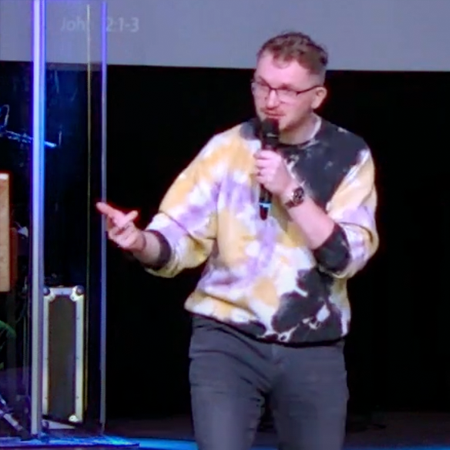
- Portrait Image:

- Rec Date:
16th October 2022
The Old Testament prophesies the coming of 3 distinct offices: an ultimate Prophet to speak on behalf of God; an ultimate Priest to represent a bridge between man and God, as well as atone for the sins of humanity; and an ultimate King, who will rule, not only over Israel, but over the whole world.
John 12 draws our attention to the fact that these 3 distinct offices are fulfilled in the singular person of Jesus Christ. We see Jesus served as King, heard as Prophet, and Worshipped as one that is God.
John further cements this idea by illustrating the world-wide kingship of Jesus; the fact that Jesus speaks what He hears from the Father; and that He is the one who must die in order to atone for our sins.
As we continue to ask the question: Who Is Jesus? we are guided further to our answer in John 12. That Jesus is our prophet, our priest, and our king.
Our call is the respond appropriately, by serving, listening, and worshipping.
- Bible References:
- Bible Reference:
John 7, Bible Link:
https://www.biblegateway.com/passage/?search=John%207&version=NIV, Bible Passage:
After this, Jesus went around in Galilee. He did not want to go about in Judea because the Jewish leaders there were looking for a way to kill him. But when the Jewish Festival of Tabernacles was near, Jesus’ brothers said to him, “Leave Galilee and go to Judea, so that your disciples there may see the works you do. No one who wants to become a public figure acts in secret. Since you are doing these things, show yourself to the world.” For even his own brothers did not believe in him.
Therefore Jesus told them, “My time is not yet here; for you any time will do. The world cannot hate you, but it hates me because I testify that its works are evil. You go to the festival. I am not going up to this festival, because my time has not yet fully come.” After he had said this, he stayed in Galilee.
However, after his brothers had left for the festival, he went also, not publicly, but in secret. Now at the festival the Jewish leaders were watching for Jesus and asking, “Where is he?”
Among the crowds there was widespread whispering about him. Some said, “He is a good man.”
Others replied, “No, he deceives the people.” But no one would say anything publicly about him for fear of the leaders.
Not until halfway through the festival did Jesus go up to the temple courts and begin to teach. The Jews there were amazed and asked, “How did this man get such learning without having been taught?”
Jesus answered, “My teaching is not my own. It comes from the one who sent me. Anyone who chooses to do the will of God will find out whether my teaching comes from God or whether I speak on my own. Whoever speaks on their own does so to gain personal glory, but he who seeks the glory of the one who sent him is a man of truth; there is nothing false about him. Has not Moses given you the law? Yet not one of you keeps the law. Why are you trying to kill me?”
“You are demon-possessed,” the crowd answered. “Who is trying to kill you?”
Jesus said to them, “I did one miracle, and you are all amazed. Yet, because Moses gave you circumcision (though actually it did not come from Moses, but from the patriarchs), you circumcise a boy on the Sabbath. Now if a boy can be circumcised on the Sabbath so that the law of Moses may not be broken, why are you angry with me for healing a man’s whole body on the Sabbath? Stop judging by mere appearances, but instead judge correctly.”
At that point some of the people of Jerusalem began to ask, “Isn’t this the man they are trying to kill? Here he is, speaking publicly, and they are not saying a word to him. Have the authorities really concluded that he is the Messiah? But we know where this man is from; when the Messiah comes, no one will know where he is from.”
Then Jesus, still teaching in the temple courts, cried out, “Yes, you know me, and you know where I am from. I am not here on my own authority, but he who sent me is true. You do not know him, but I know him because I am from him and he sent me.”
At this they tried to seize him, but no one laid a hand on him, because his hour had not yet come. Still, many in the crowd believed in him. They said, “When the Messiah comes, will he perform more signs than this man?”
The Pharisees heard the crowd whispering such things about him. Then the chief priests and the Pharisees sent temple guards to arrest him.
Jesus said, “I am with you for only a short time, and then I am going to the one who sent me. You will look for me, but you will not find me; and where I am, you cannot come.”
The Jews said to one another, “Where does this man intend to go that we cannot find him? Will he go where our people live scattered among the Greeks, and teach the Greeks? What did he mean when he said, ‘You will look for me, but you will not find me,’ and ‘Where I am, you cannot come’?”
On the last and greatest day of the festival, Jesus stood and said in a loud voice, “Let anyone who is thirsty come to me and drink. Whoever believes in me, as Scripture has said, rivers of living water will flow from within them.” By this he meant the Spirit, whom those who believed in him were later to receive. Up to that time the Spirit had not been given, since Jesus had not yet been glorified.
On hearing his words, some of the people said, “Surely this man is the Prophet.”
Others said, “He is the Messiah.”
Still others asked, “How can the Messiah come from Galilee? Does not Scripture say that the Messiah will come from David’s descendants and from Bethlehem, the town where David lived?” Thus the people were divided because of Jesus. Some wanted to seize him, but no one laid a hand on him.
Finally the temple guards went back to the chief priests and the Pharisees, who asked them, “Why didn’t you bring him in?”
“No one ever spoke the way this man does,” the guards replied.
“You mean he has deceived you also?” the Pharisees retorted. “Have any of the rulers or of the Pharisees believed in him? No! But this mob that knows nothing of the law—there is a curse on them.”
Nicodemus, who had gone to Jesus earlier and who was one of their own number, asked, “Does our law condemn a man without first hearing him to find out what he has been doing?”
They replied, “Are you from Galilee, too? Look into it, and you will find that a prophet does not come out of Galilee.”
- Episode Slides:
- Slide:

- Episode Audio Embed:
- YouTube Link:
Visit Website
- Anchor.fm Link:
Visit Website
- Spotify Link:
Visit Website
- Square Image:
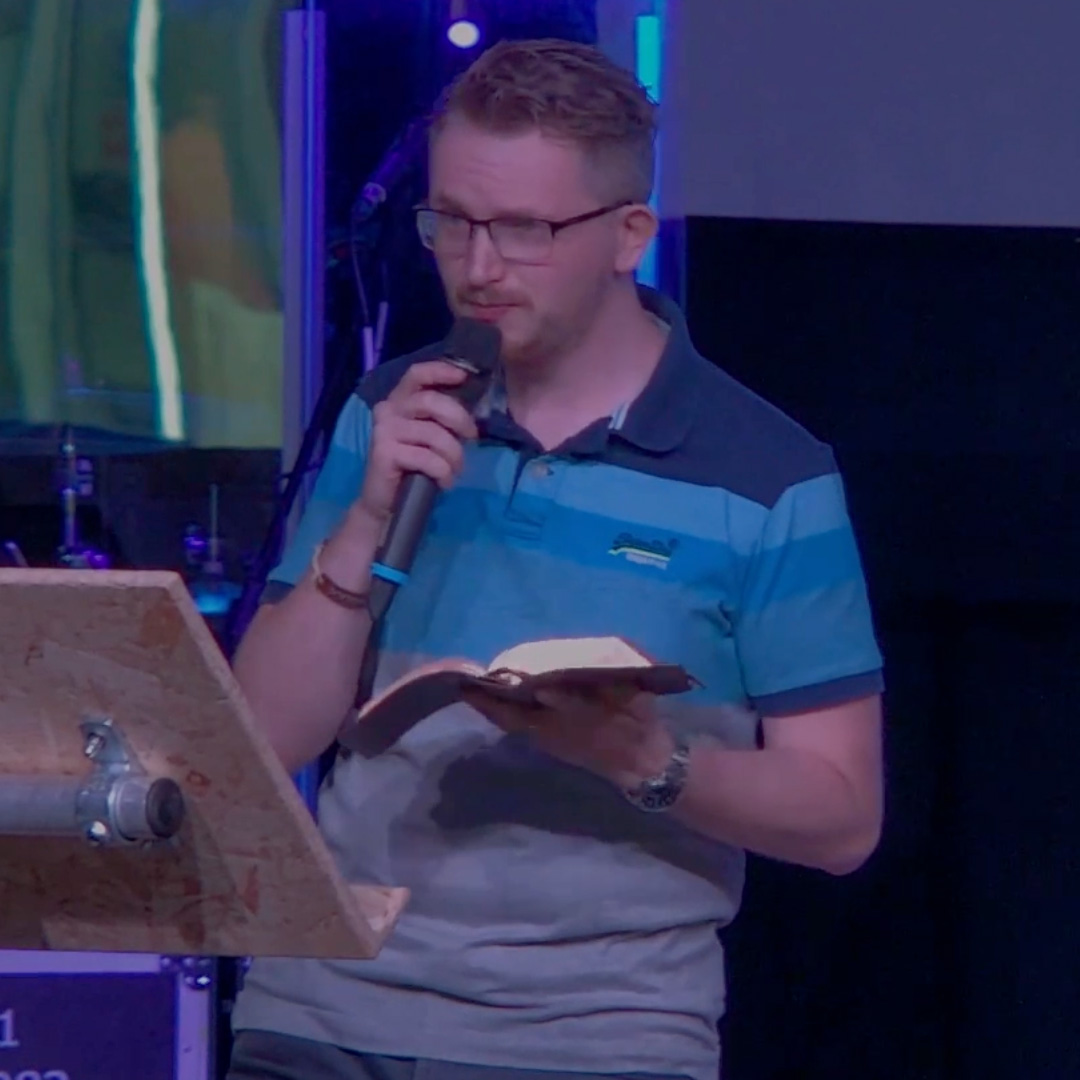
- Portrait Image:

- Rec Date:
11th September 2022
We're opening the Scripture to John 7 this week, where we discover a number of varying responses to Jesus. We find 10 ways that the people around Jesus respond to him; his message; his claims; and his actions. As we journey through life we find ourselves responding to Jesus in different ways in different situations and circumstances - that's part of being human.
Salvation is the greatest miracle that we can ever receive, paid for by the blood of Jesus. This week Dom helps us to fully understand salvation by looking at what we are saved from and what we are saved to.
In this week's episode as we approach Holy Week, Oliva unpacks the events in John 19. We're encouraged to read the 4 different Gospel accounts of Jesus' crucifixion, so that we may build a better image of what actually happened during that time.
What does the Bible say about the end times? Are we eagerly awaiting the return of Jesus? In the last sermon of our series Unveiled, Dom takes a closer look at what the ultimate ending looks like to God's original plan.
Do we discuss and share our passion and excitement for Jesus enough? What makes good Discipleship? This week we look at the story of the Road to Emmaus, David reveals the 7 marks of good Discipleship found in scripture and how we can practically implement each one in to our daily lives.
What does the Bible say about the Holy Trinity? How can we best describe the Trinity and what do we do with the knowledge we have? In this weeks message Dom helps to answer these all important questions and takes a closer look at the three individual persons of the Trinity; enabling us better understand our relationship with God.
- Bible References:
- Bible Reference:
John 2:13-22, Bible Link:
https://www.biblegateway.com/passage/?search=John+2%3A13-22&version=NIV, Bible Passage:
When it was almost time for the Jewish Passover, Jesus went up to Jerusalem. In the temple courts he found people selling cattle, sheep and doves, and others sitting at tables exchanging money. So he made a whip out of cords, and drove all from the temple courts, both sheep and cattle; he scattered the coins of the money changers and overturned their tables. To those who sold doves he said, “Get these out of here! Stop turning my Father’s house into a market!” His disciples remembered that it is written: “Zeal for your house will consume me.”
The Jews then responded to him, “What sign can you show us to prove your authority to do all this?”
Jesus answered them, “Destroy this temple, and I will raise it again in three days.”
They replied, “It has taken forty-six years to build this temple, and you are going to raise it in three days?” But the temple he had spoken of was his body. After he was raised from the dead, his disciples recalled what he had said. Then they believed the scripture and the words that Jesus had spoken.
- Episode Slides:
- Slide:

- Slide:

- Slide:

- Slide:

- Slide:

- Slide:

- Episode Audio Embed:
- Episode Preview MP4:
Visit Website
- YouTube Link:
Visit Website
- Anchor.fm Link:
Visit Website
- Spotify Link:
Visit Website
- Square Image:
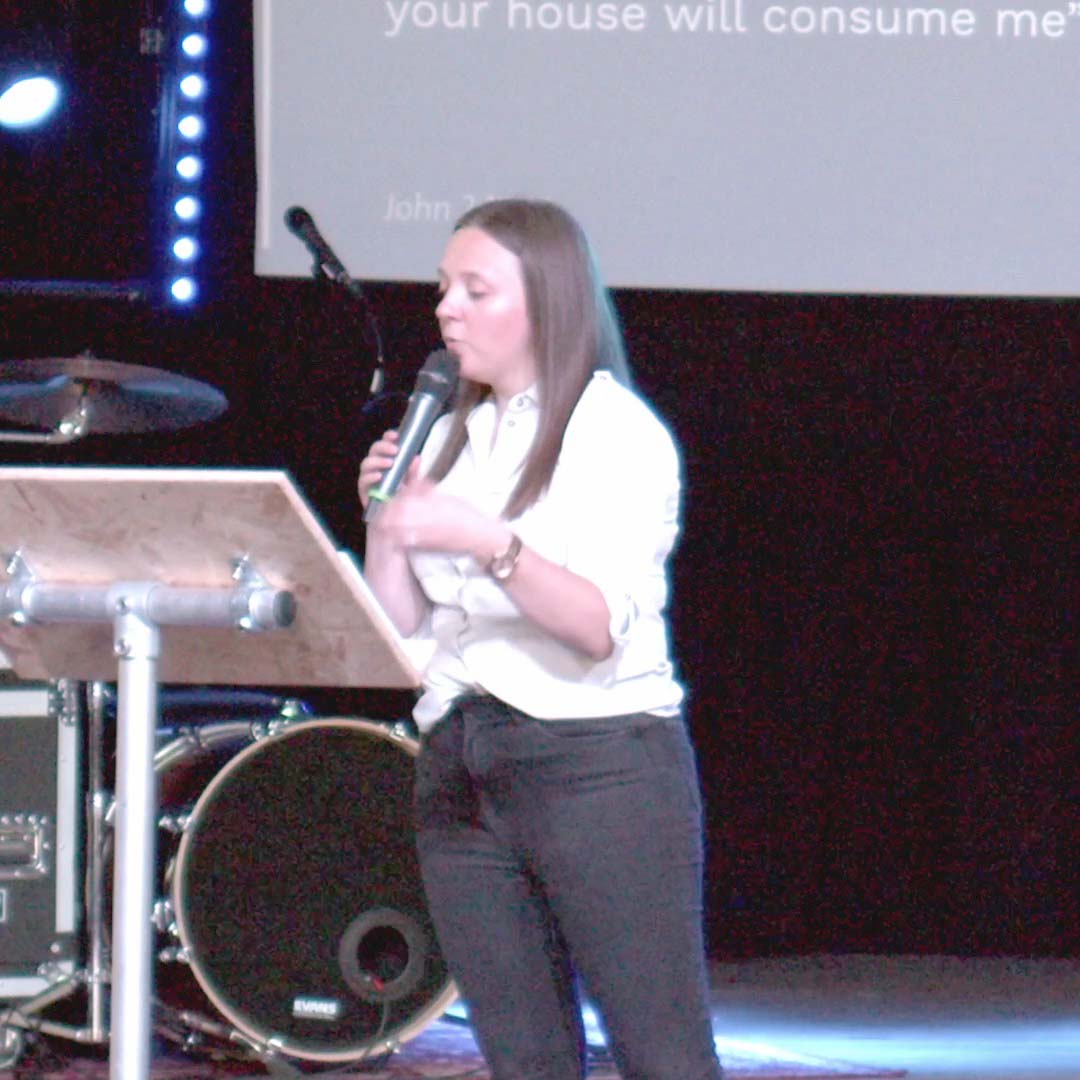
- Portrait Image:
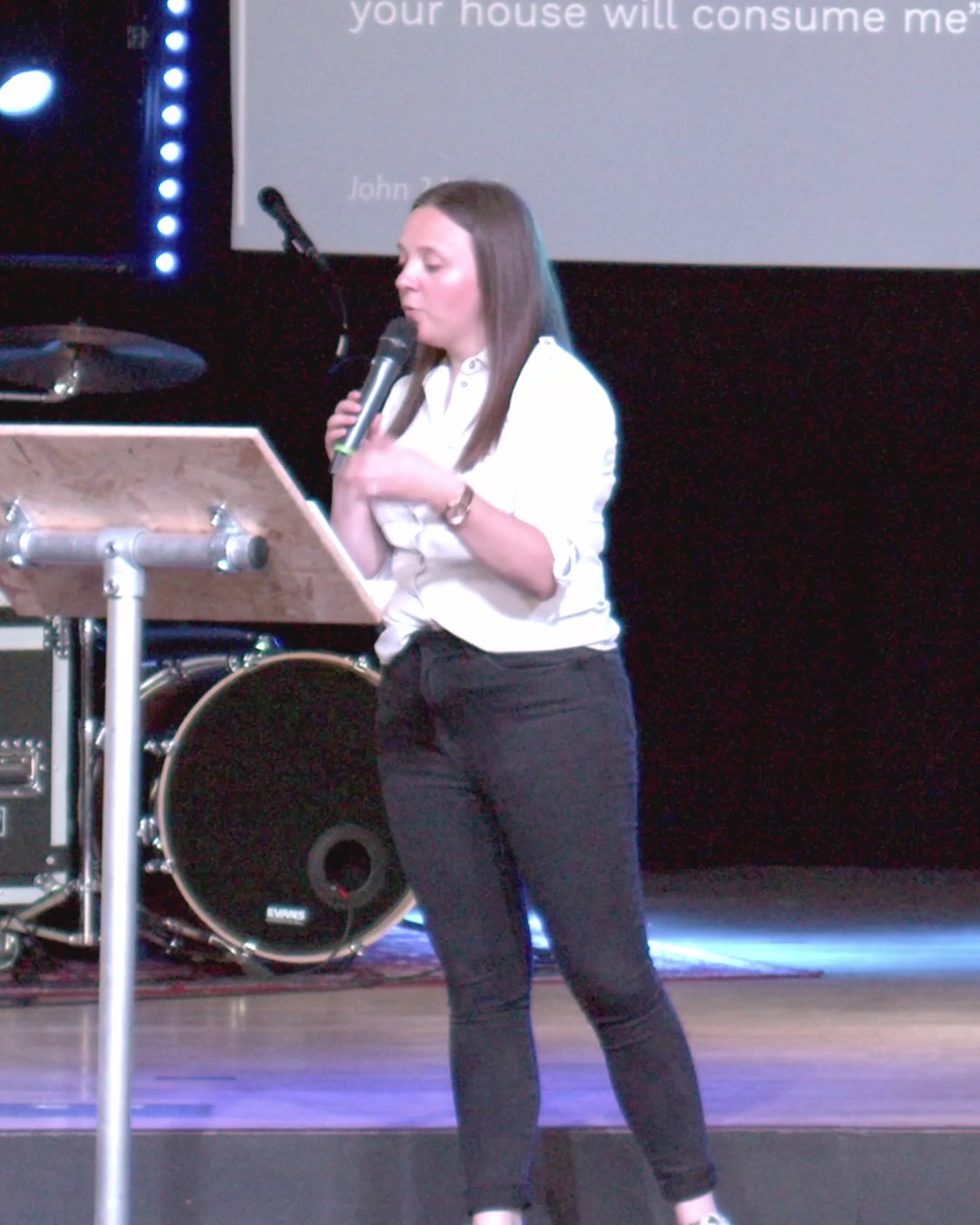
- Rec Date:
7th Aug 2022
What is in your life that is preventing you from fully God fully in spirit and truth? In John 2 Jesus gets frustrated when he sees that His temple of prayer is being defiled, and He drives out the things that are coming between the people and God.
We are no longer reliant on a temple building to come to worship God, instead the bible says that we are temples of the Holy Spirit. What needs driving out of your temple?
- Bible References:
- Bible Reference:
John 3:1-21, Bible Link:
https://www.biblegateway.com/passage/?search=John%203%3A1-21&version=NIV, Bible Passage:
Now there was a Pharisee, a man named Nicodemus who was a member of the Jewish ruling council. He came to Jesus at night and said, “Rabbi, we know that you are a teacher who has come from God. For no one could perform the signs you are doing if God were not with him.”
Jesus replied, “Very truly I tell you, no one can see the kingdom of God unless they are born again.”
“How can someone be born when they are old?” Nicodemus asked. “Surely they cannot enter a second time into their mother’s womb to be born!”
Jesus answered, “Very truly I tell you, no one can enter the kingdom of God unless they are born of water and the Spirit. Flesh gives birth to flesh, but the Spirit gives birth to spirit. You should not be surprised at my saying, ‘You must be born again.’ The wind blows wherever it pleases. You hear its sound, but you cannot tell where it comes from or where it is going. So it is with everyone born of the Spirit.”
“How can this be?” Nicodemus asked.
“You are Israel’s teacher,” said Jesus, “and do you not understand these things? Very truly I tell you, we speak of what we know, and we testify to what we have seen, but still you people do not accept our testimony. I have spoken to you of earthly things and you do not believe; how then will you believe if I speak of heavenly things? No one has ever gone into heaven except the one who came from heaven—the Son of Man. Just as Moses lifted up the snake in the wilderness, so the Son of Man must be lifted up, that everyone who believes may have eternal life in him.”
For God so loved the world that he gave his one and only Son, that whoever believes in him shall not perish but have eternal life. For God did not send his Son into the world to condemn the world, but to save the world through him. Whoever believes in him is not condemned, but whoever does not believe stands condemned already because they have not believed in the name of God’s one and only Son. This is the verdict: Light has come into the world, but people loved darkness instead of light because their deeds were evil. Everyone who does evil hates the light, and will not come into the light for fear that their deeds will be exposed. But whoever lives by the truth comes into the light, so that it may be seen plainly that what they have done has been done in the sight of God.
- Episode Slides:
- Slide:

- Slide:

- Slide:

- Slide:

- Slide:

- Slide:

- Slide:

- Slide:

- Slide:

- Slide:

- Slide:

- Slide:

- Slide:

- Slide:

- Slide:
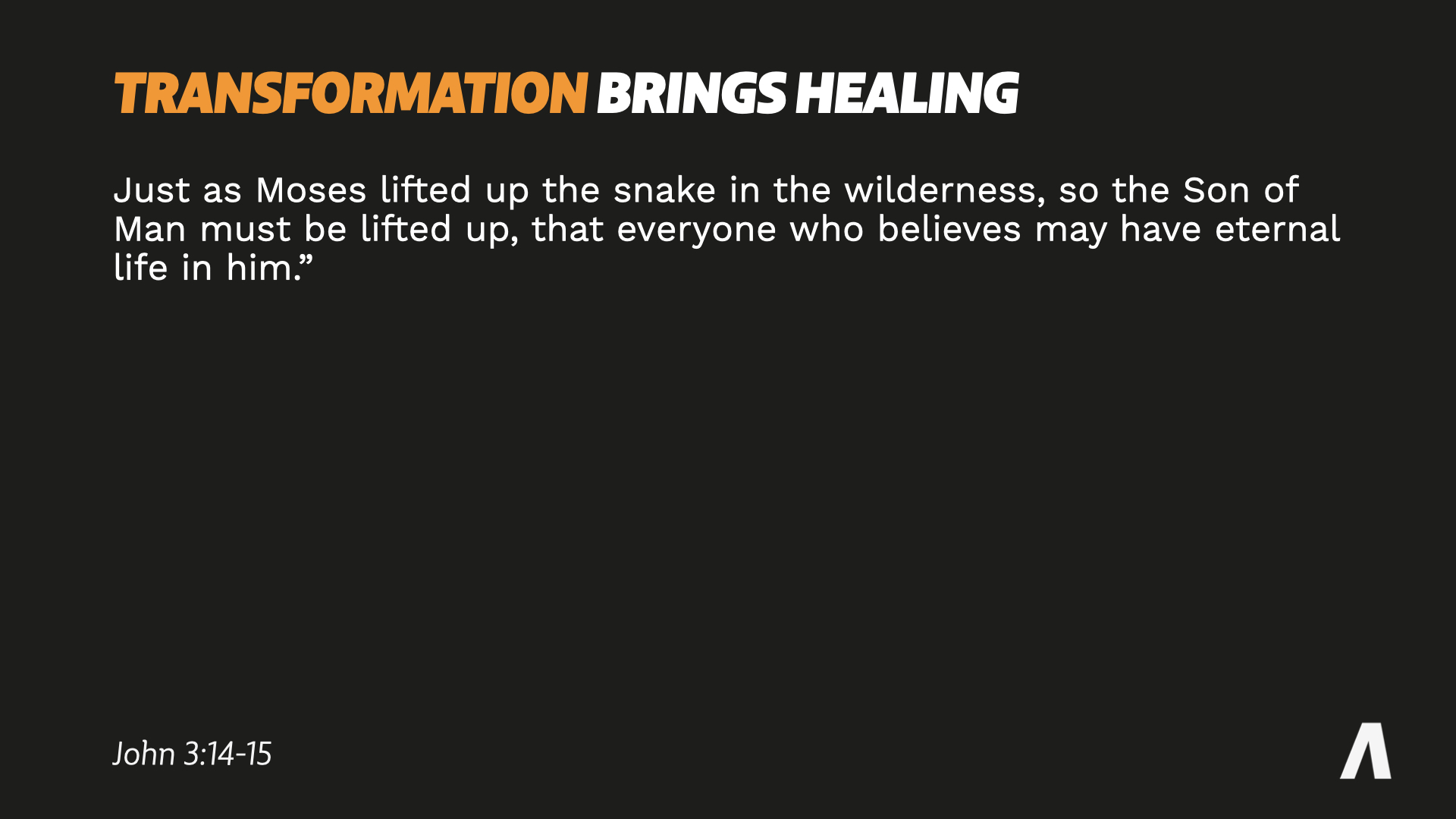
- Slide:
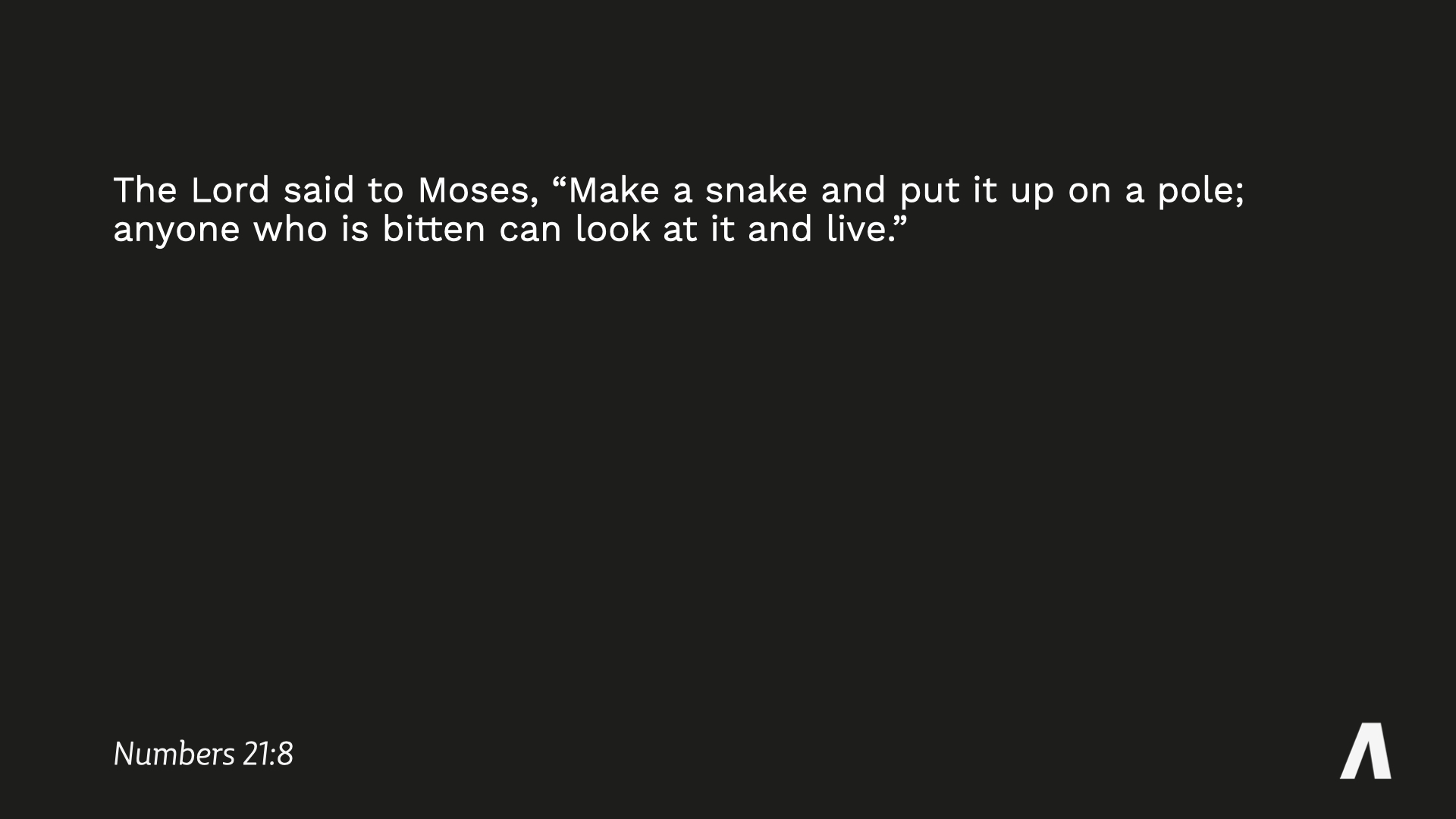
- Slide:
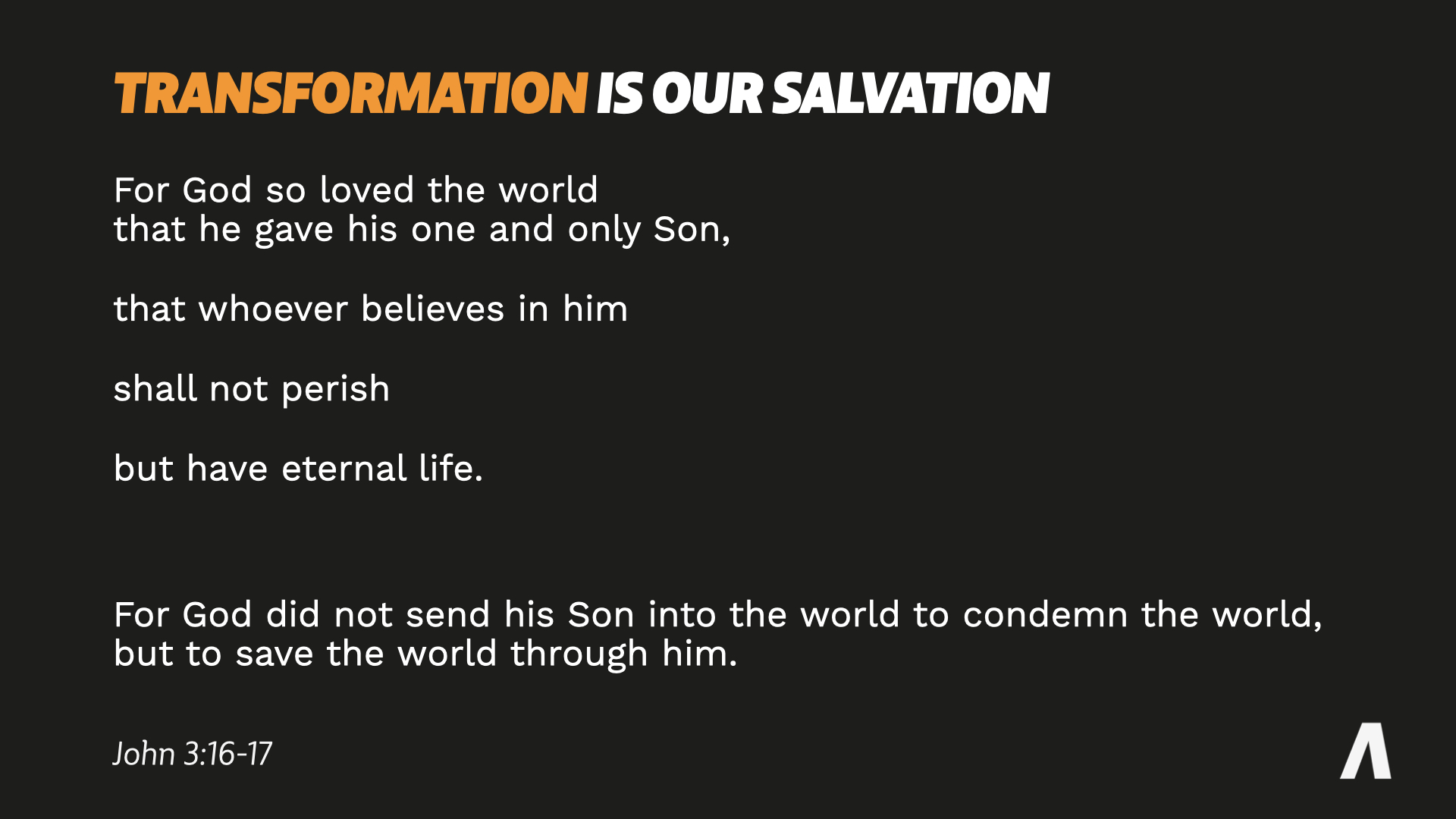
- Slide:
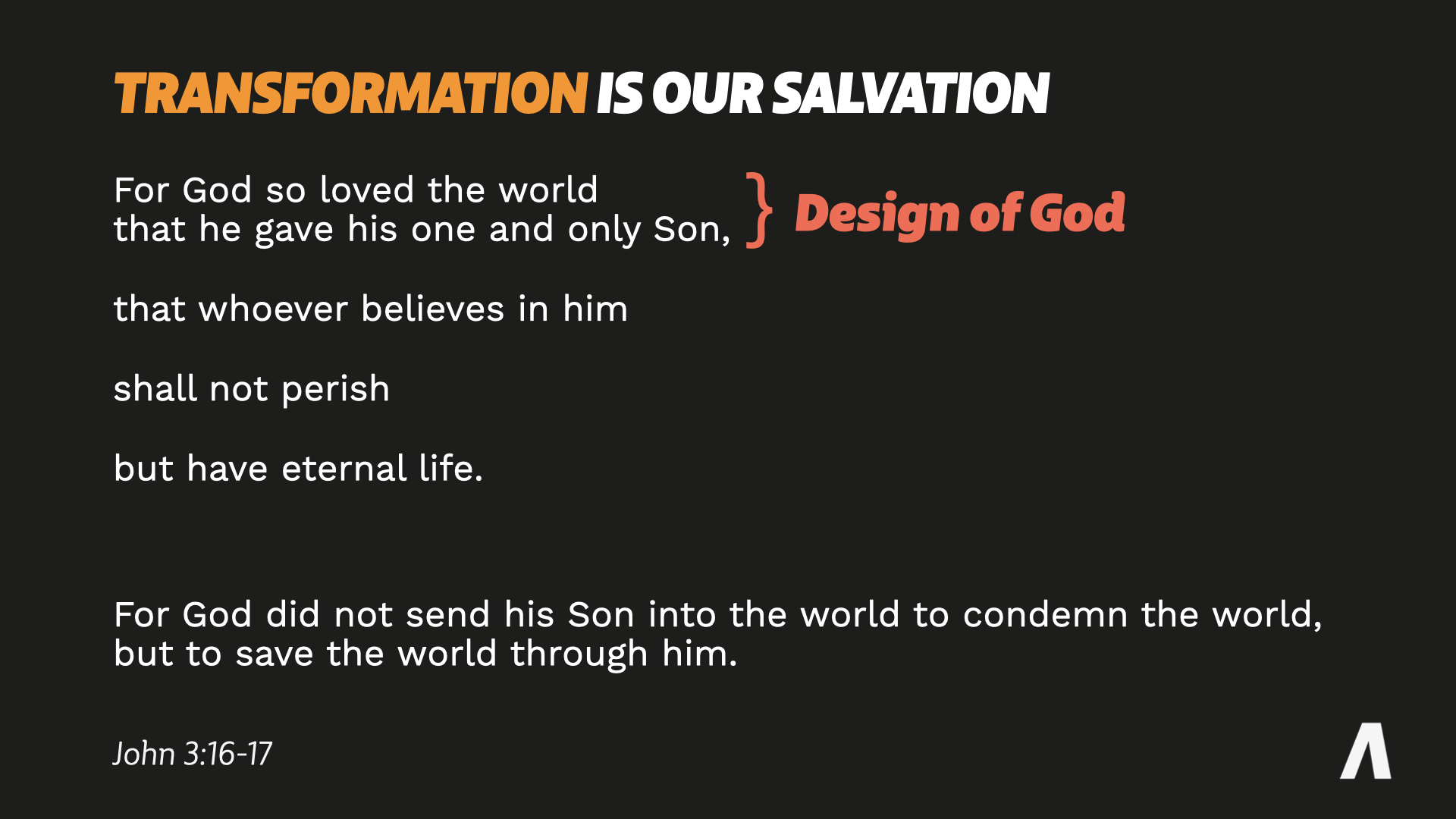
- Slide:
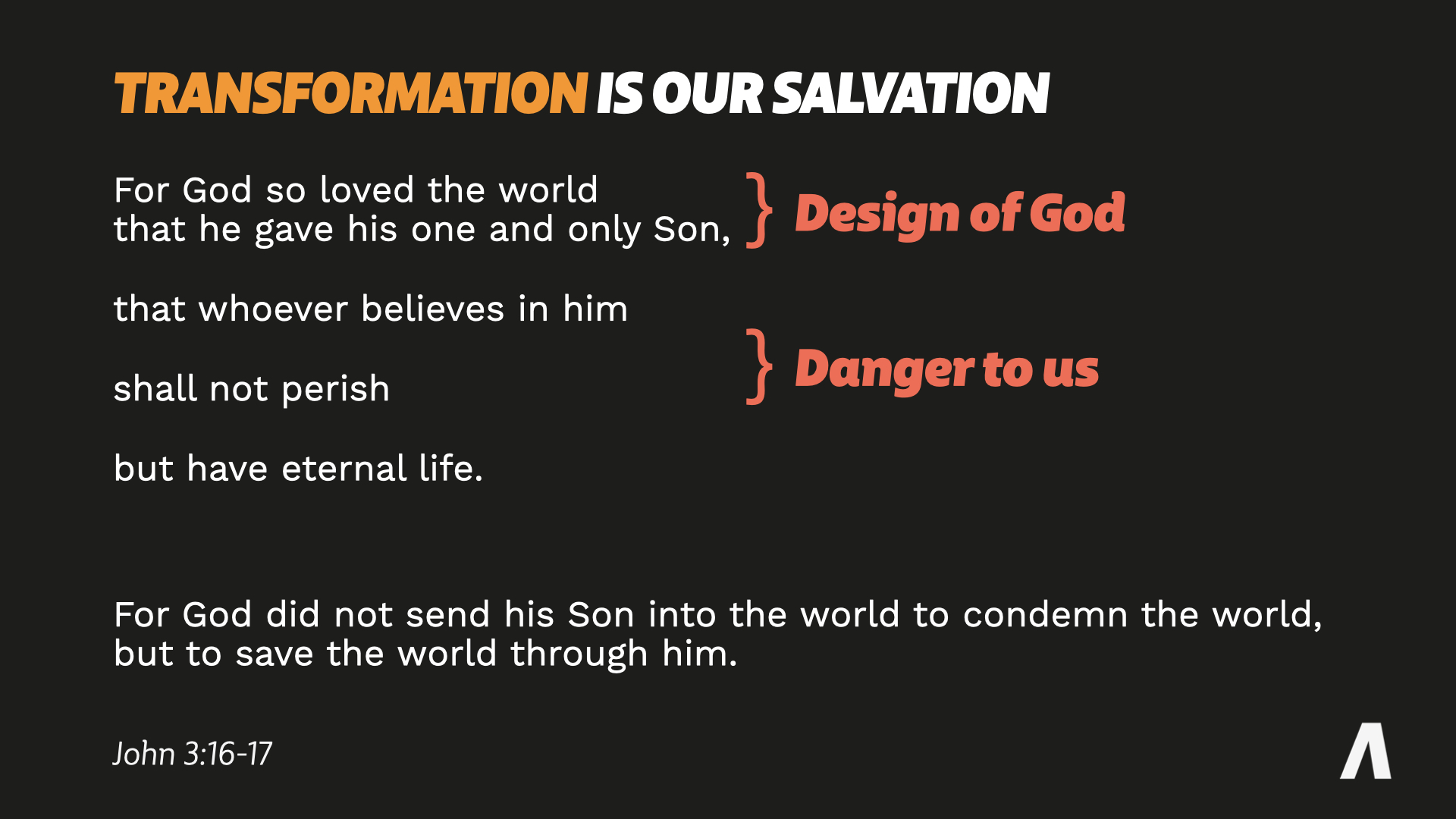
- Slide:
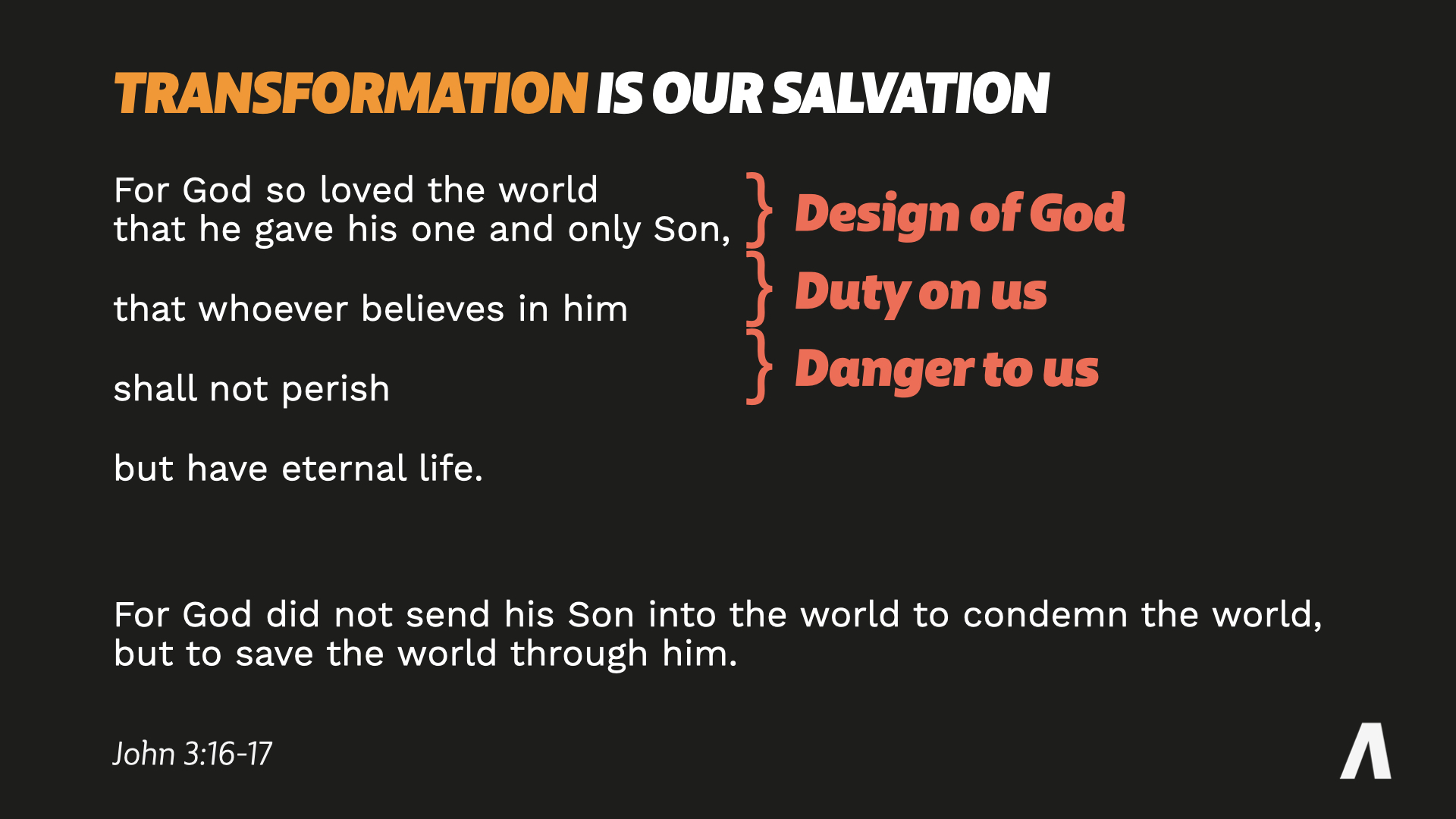
- Slide:
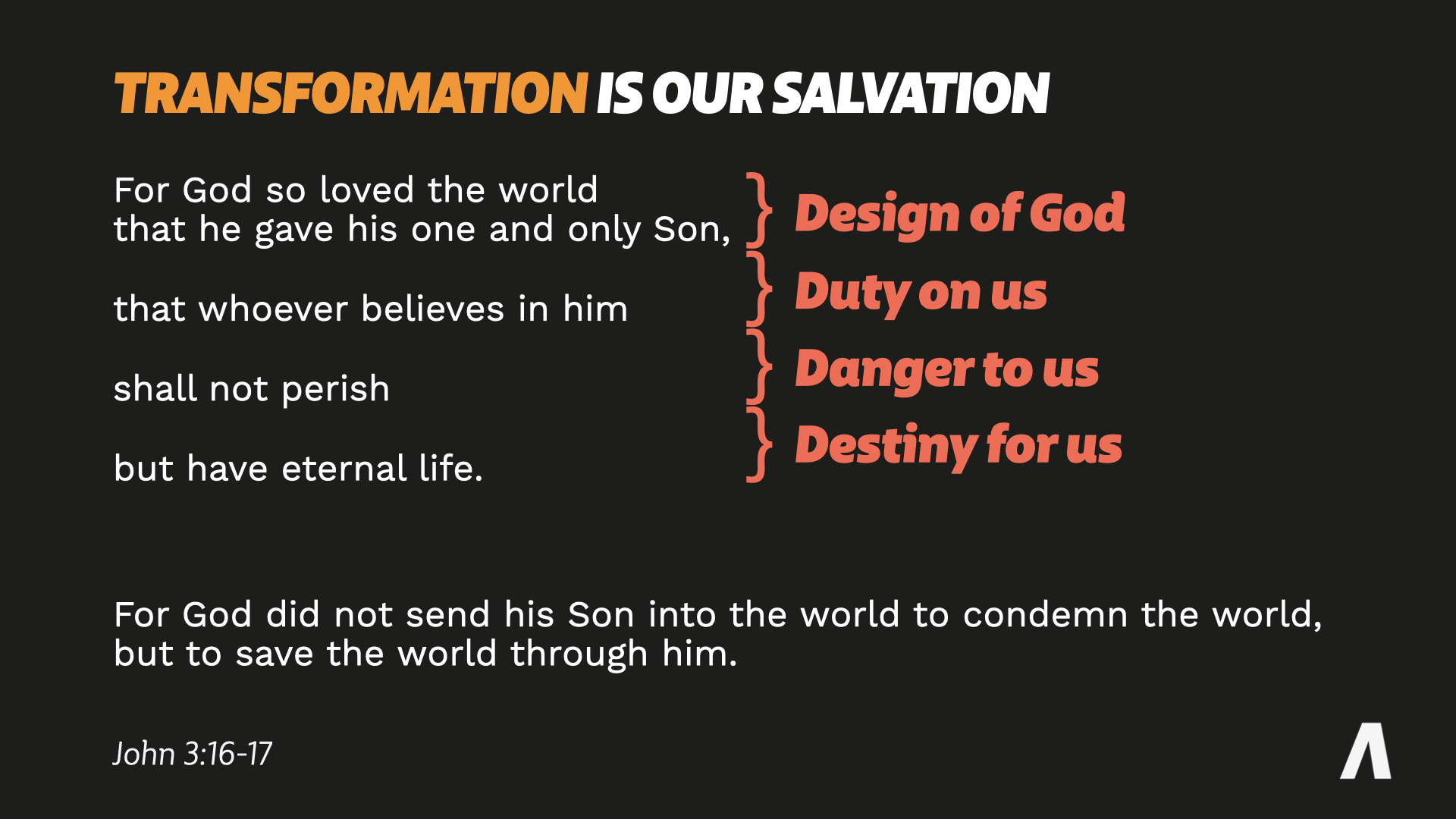
- Slide:
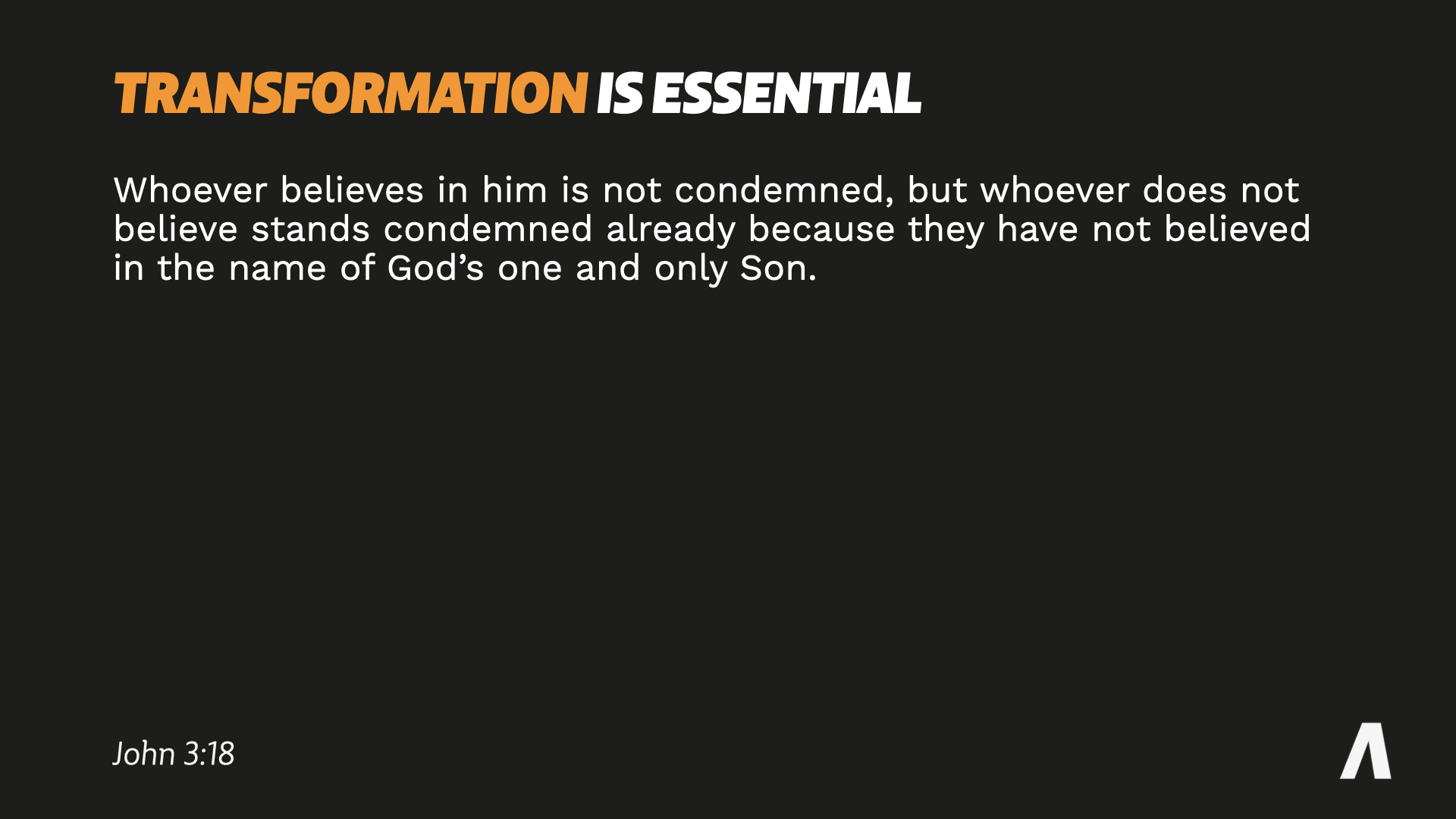
- Slide:
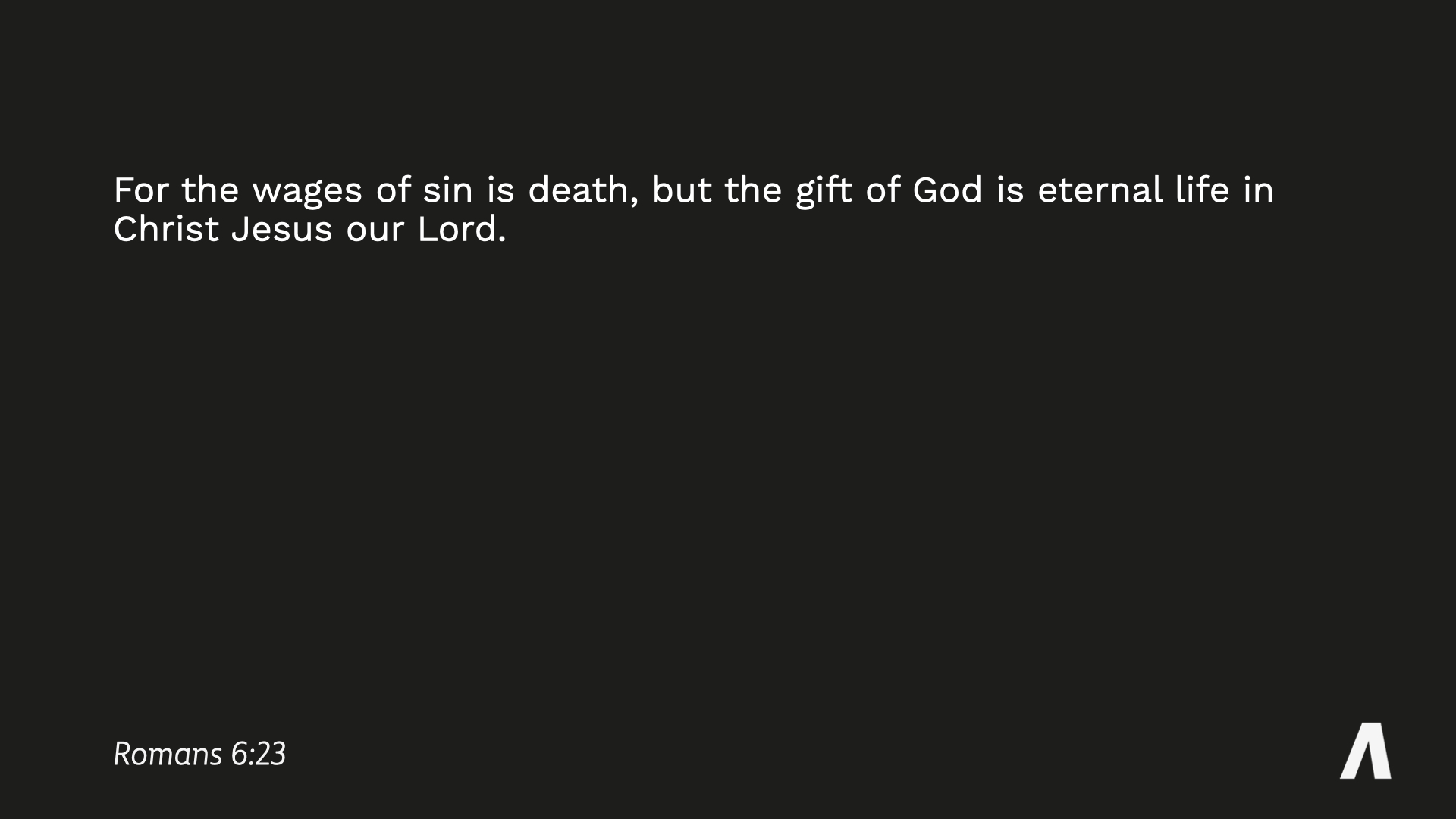
- Slide:
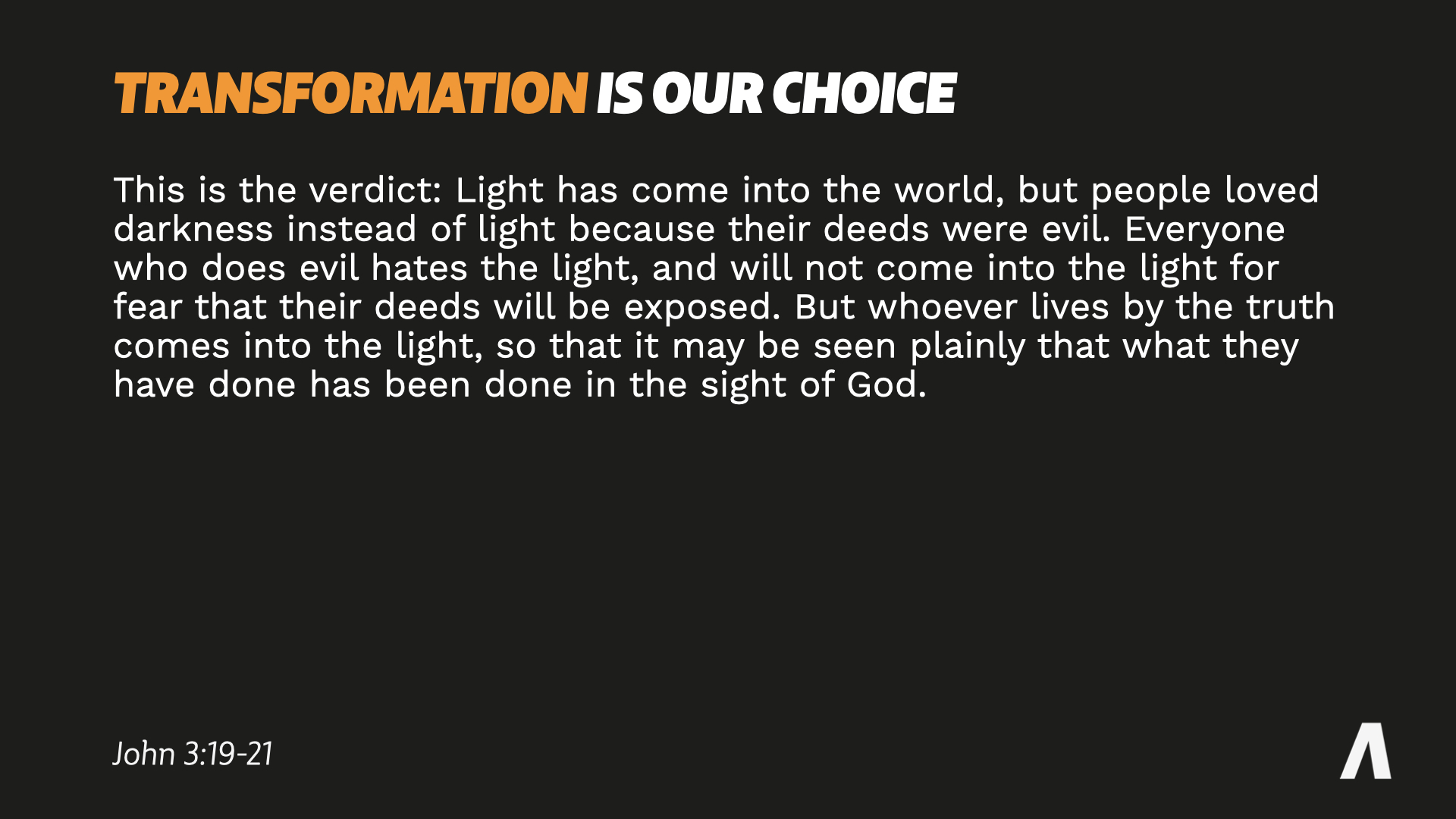
- Slide:
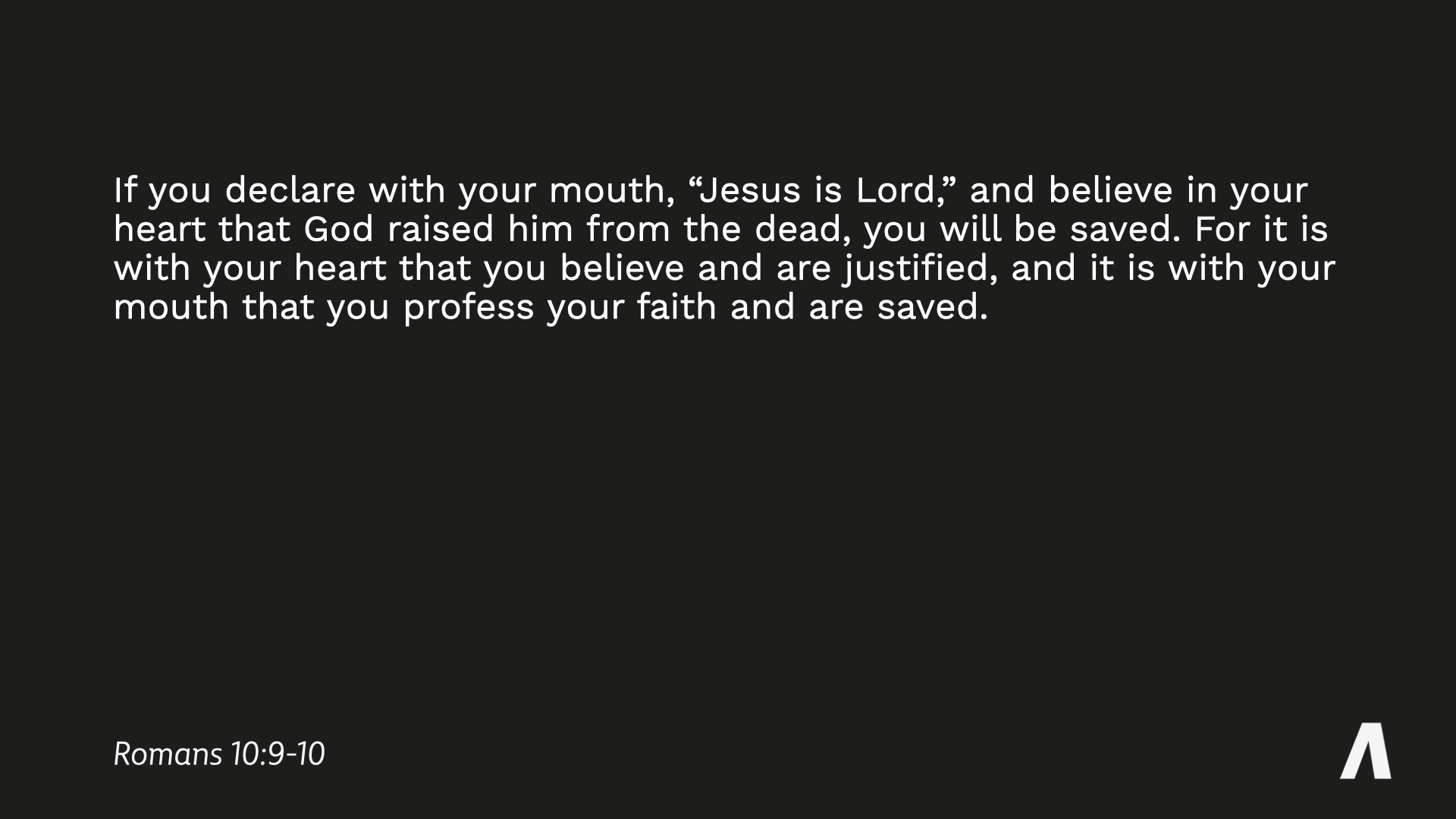
- Episode Audio Embed:
- Episode Preview MP4:
Visit Website
- YouTube Link:
Visit Website
- Anchor.fm Link:
Visit Website
- Spotify Link:
Visit Website
- Square Image:
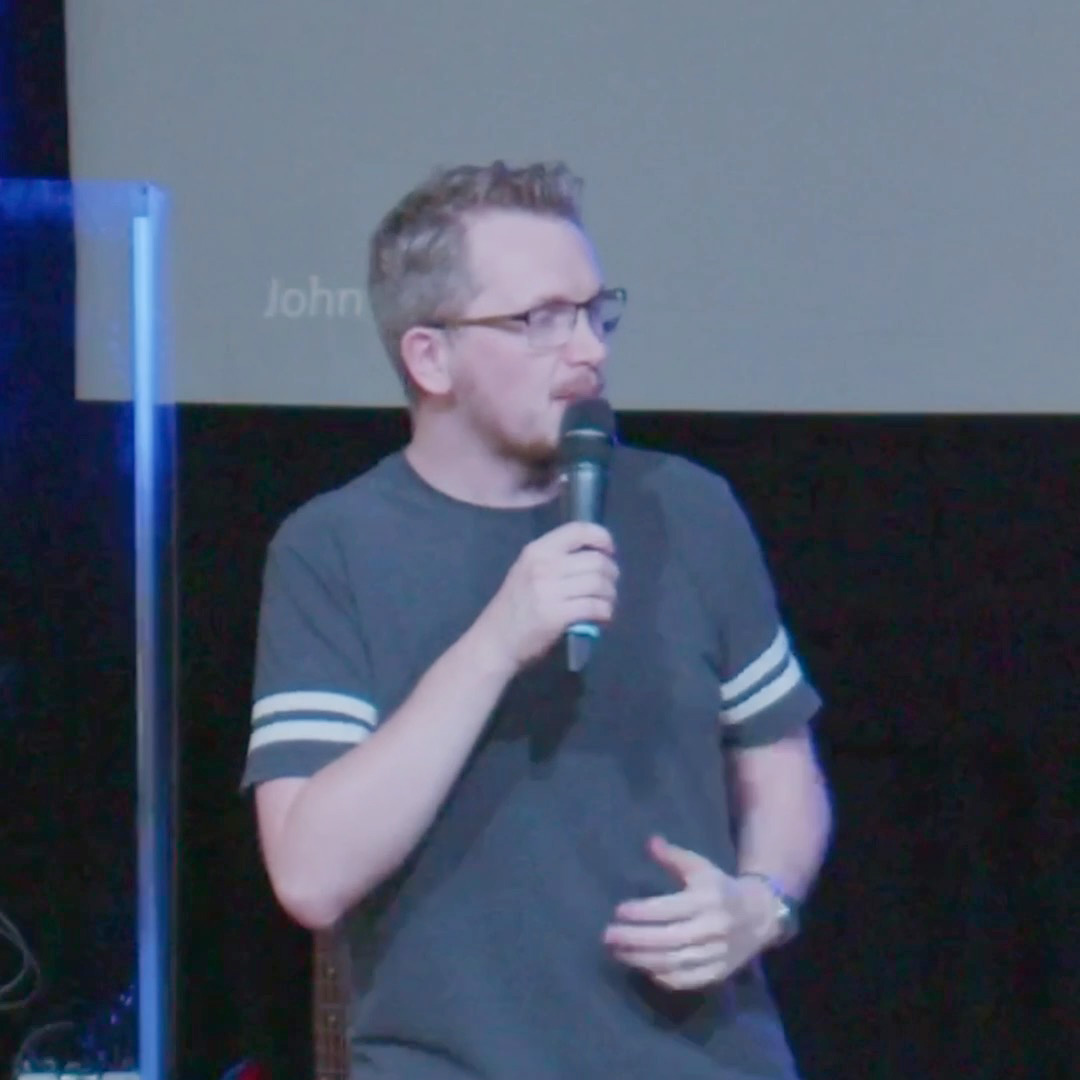
- Portrait Image:
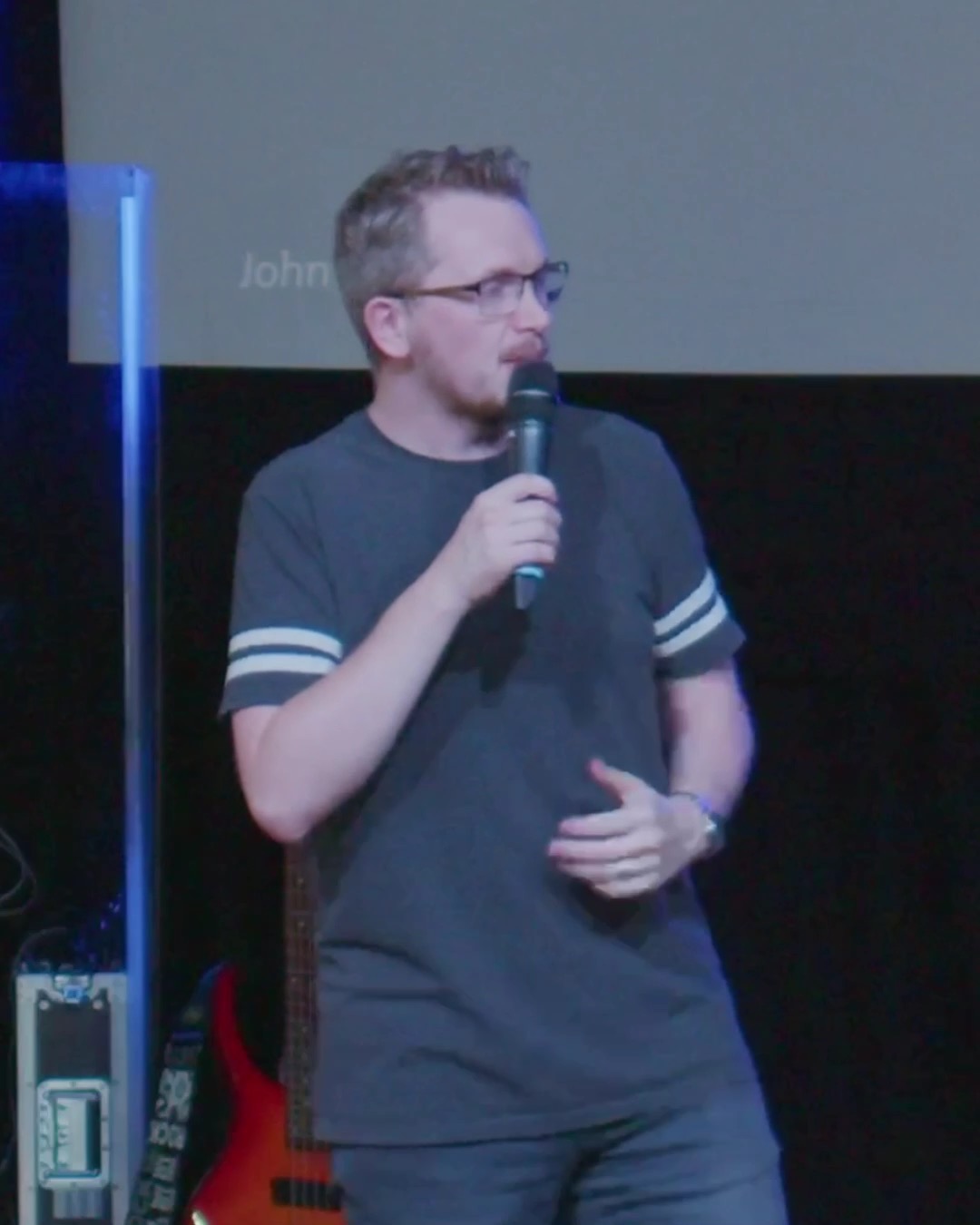
- Rec Date:
14th Aug 2022
What does it mean to see real transformation in your life? Maybe a transformation of your bank account, or of your body at the gym, or maybe you have a room in your house that you'd like to see transformed.
Jesus has a conversation with Nicodemus is John 3, and he speaks all about transformation - a much more real, meaningful, eternal transformation.
- Bible References:
- Bible Reference:
John 17, Bible Link:
https://www.biblegateway.com/passage/?search=John%2017&version=NIV, Bible Passage:
After Jesus said this, he looked toward heaven and prayed:
“Father, the hour has come. Glorify your Son, that your Son may glorify you. For you granted him authority over all people that he might give eternal life to all those you have given him. Now this is eternal life: that they know you, the only true God, and Jesus Christ, whom you have sent. I have brought you glory on earth by finishing the work you gave me to do. And now, Father, glorify me in your presence with the glory I had with you before the world began.
“I have revealed you to those whom you gave me out of the world. They were yours; you gave them to me and they have obeyed your word. Now they know that everything you have given me comes from you. For I gave them the words you gave me and they accepted them. They knew with certainty that I came from you, and they believed that you sent me. I pray for them. I am not praying for the world, but for those you have given me, for they are yours. All I have is yours, and all you have is mine. And glory has come to me through them. I will remain in the world no longer, but they are still in the world, and I am coming to you. Holy Father, protect them by the power of your name, the name you gave me, so that they may be one as we are one. While I was with them, I protected them and kept them safe by that name you gave me. None has been lost except the one doomed to destruction so that Scripture would be fulfilled.
“I am coming to you now, but I say these things while I am still in the world, so that they may have the full measure of my joy within them. I have given them your word and the world has hated them, for they are not of the world any more than I am of the world. My prayer is not that you take them out of the world but that you protect them from the evil one. They are not of the world, even as I am not of it. Sanctify them by the truth; your word is truth. As you sent me into the world, I have sent them into the world. For them I sanctify myself, that they too may be truly sanctified.
“My prayer is not for them alone. I pray also for those who will believe in me through their message, that all of them may be one, Father, just as you are in me and I am in you. May they also be in us so that the world may believe that you have sent me. I have given them the glory that you gave me, that they may be one as we are one— I in them and you in me—so that they may be brought to complete unity. Then the world will know that you sent me and have loved them even as you have loved me.
“Father, I want those you have given me to be with me where I am, and to see my glory, the glory you have given me because you loved me before the creation of the world.
“Righteous Father, though the world does not know you, I know you, and they know that you have sent me. I have made you known to them, and will continue to make you known in order that the love you have for me may be in them and that I myself may be in them.”
- Episode Audio Embed:
- YouTube Link:
Visit Website
- Anchor.fm Link:
Visit Website
- Spotify Link:
Visit Website
- Square Image:
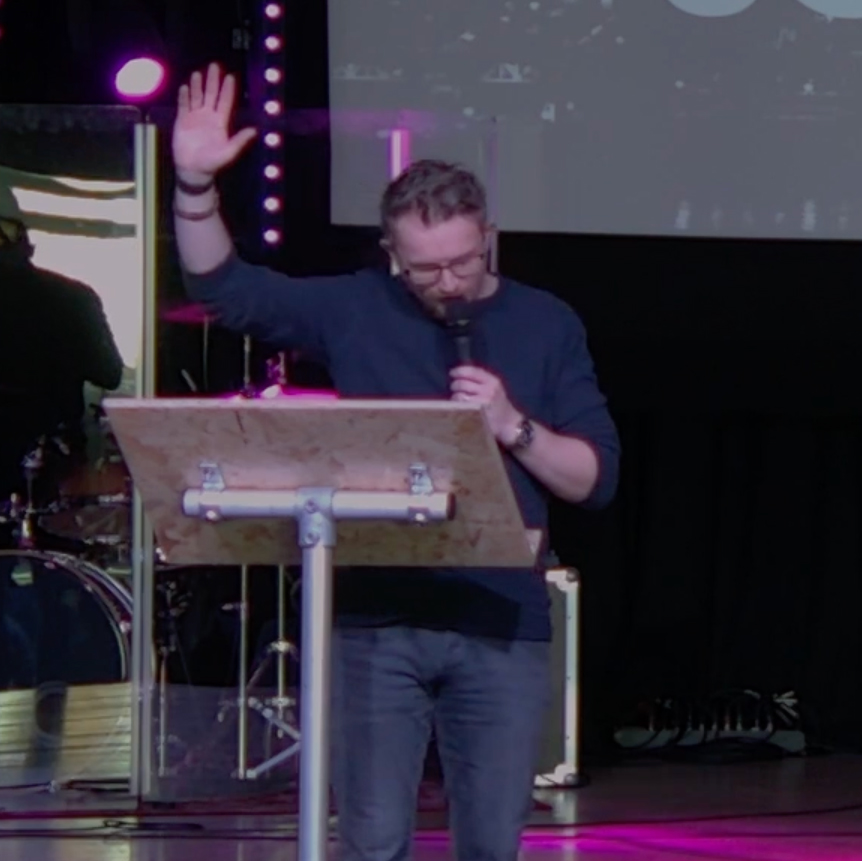
- Portrait Image:

- Rec Date:
20th November 2022
In this message we take a deep dive into John chapter 17, Dom discusses discipleship, and the many different ways Jesus has sent us. Assuring us that we are not left behind, but are here for great purpose.
As we celebrate Father's day, Dom takes a closer look across the Bible at what our Heavenly Father says about Godly men and who they are called to be.
As we continue in our series Unveiled, Sam focuses on the scripture Proverbs 31. She guides us through what the Bible says a Godly woman is, and the practical steps we can take to become the women God has called us to be.
As we revisit our series the Gospel of John, Dom asks the question
"Who Is Jesus?"
He then takes us through the 7 statements of who Jesus claims to be.












































